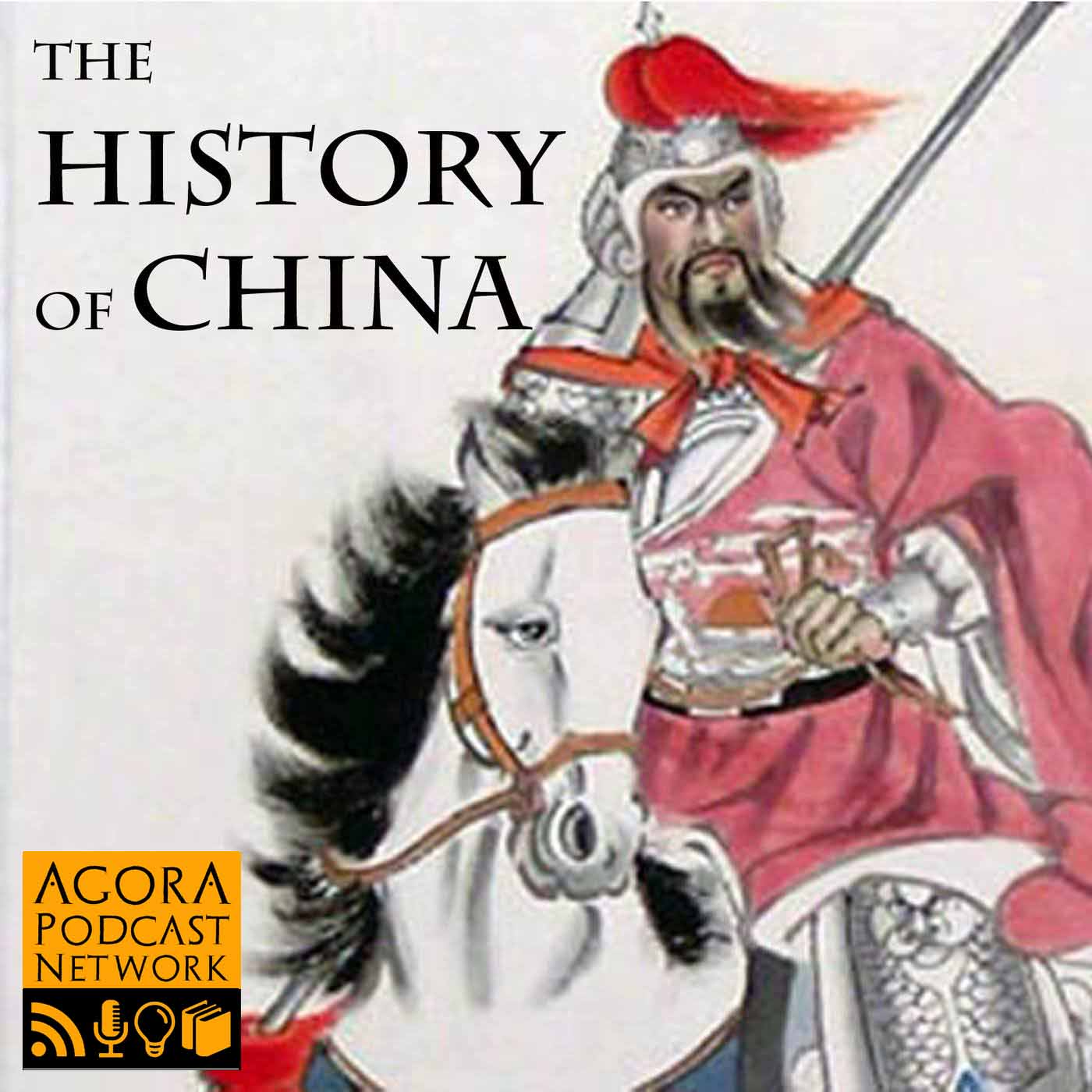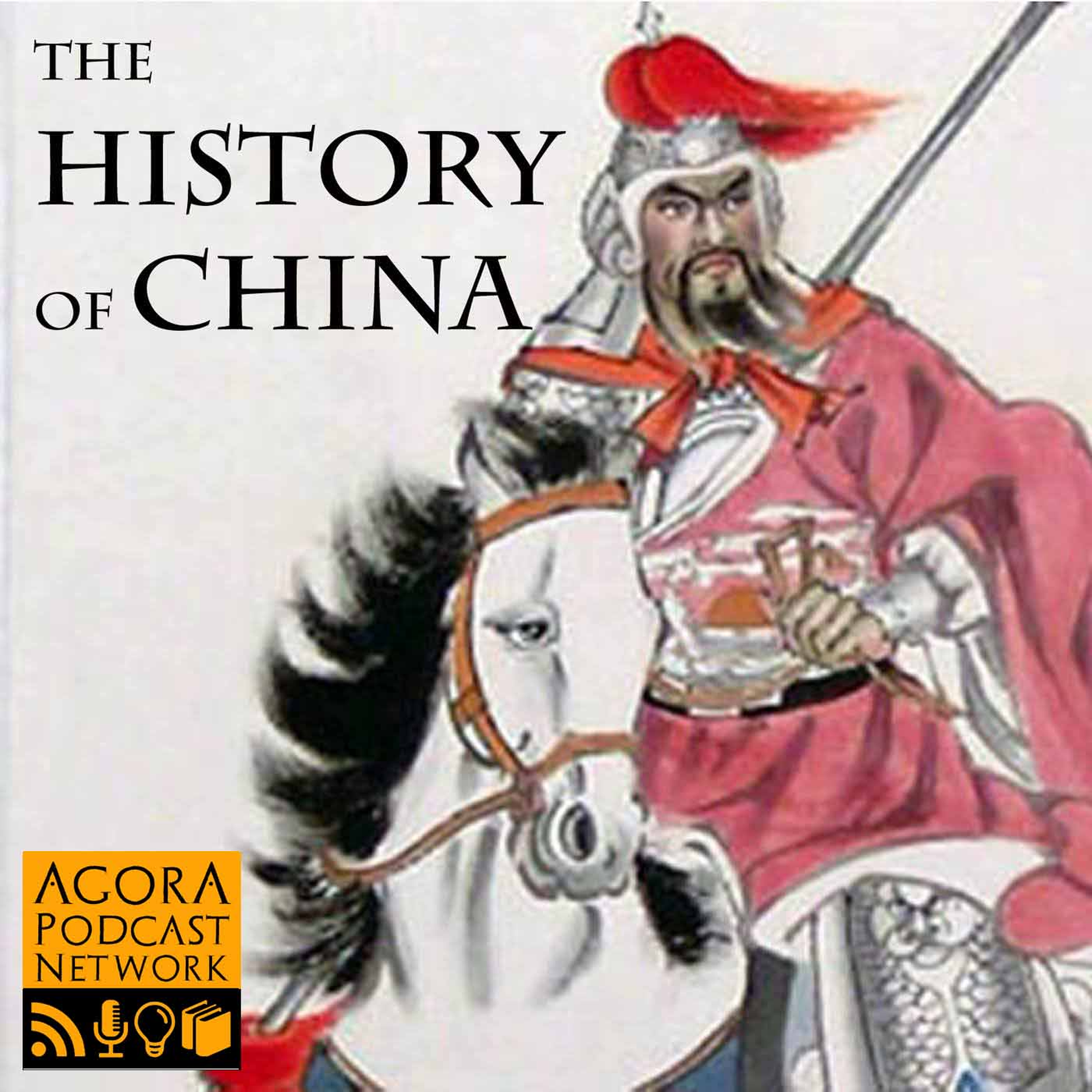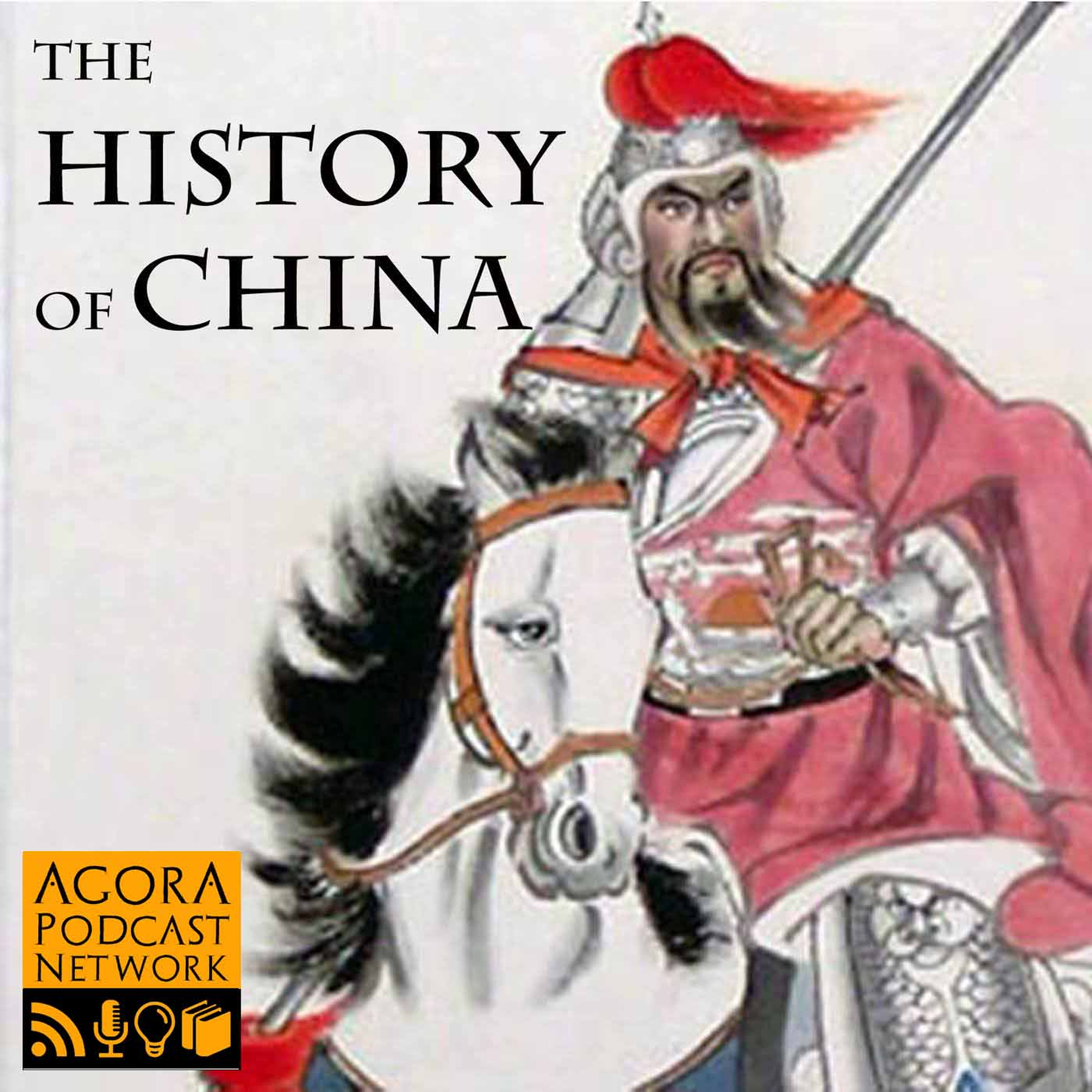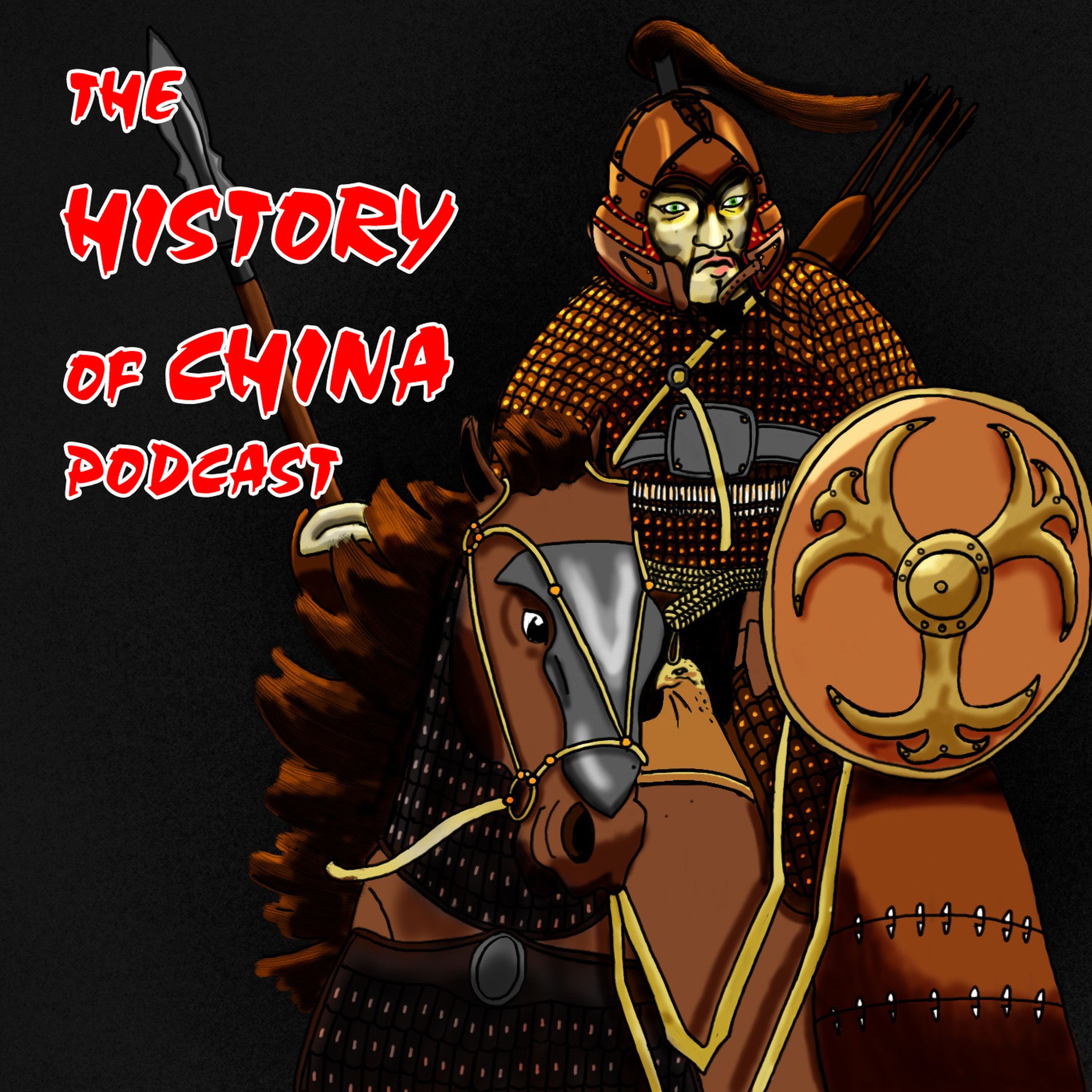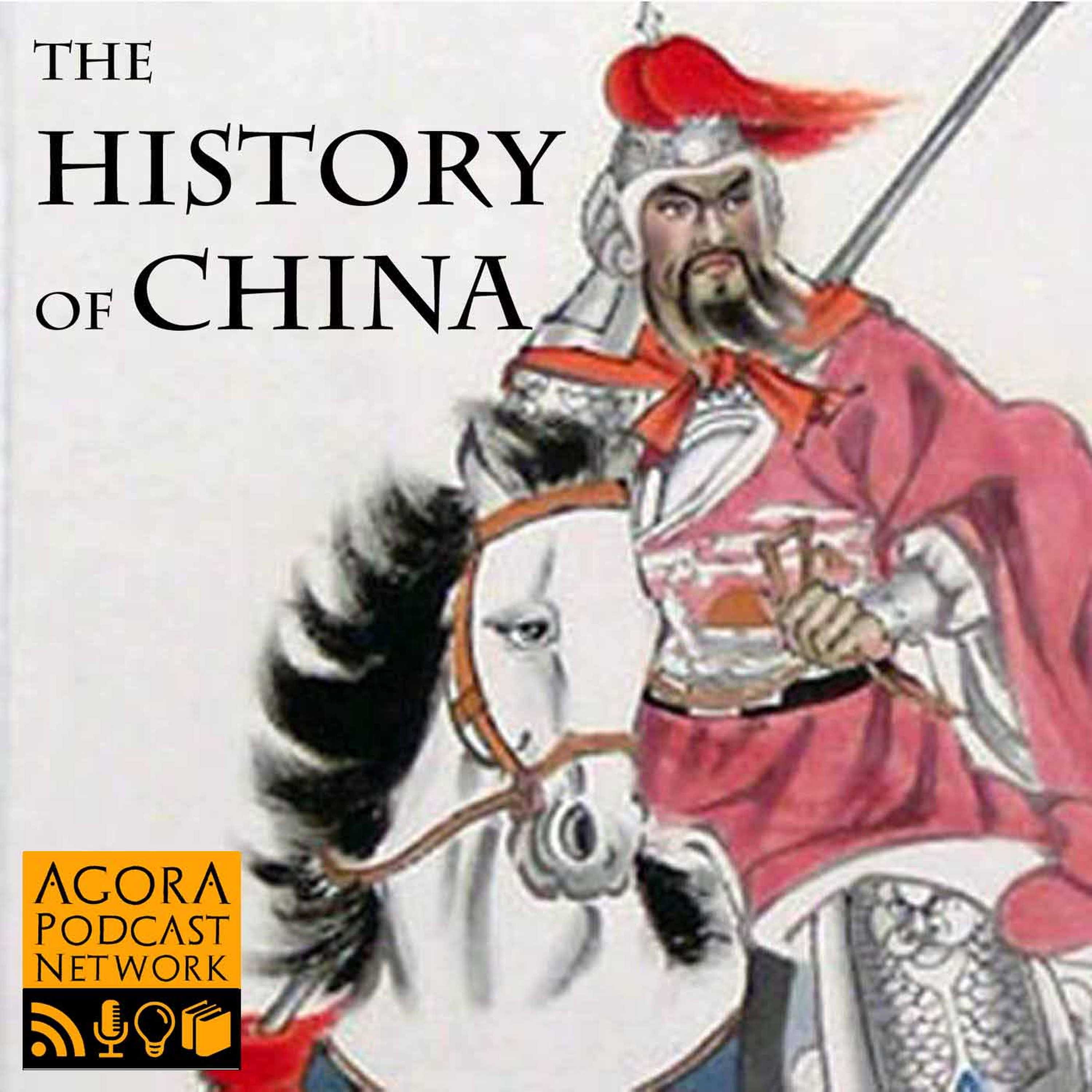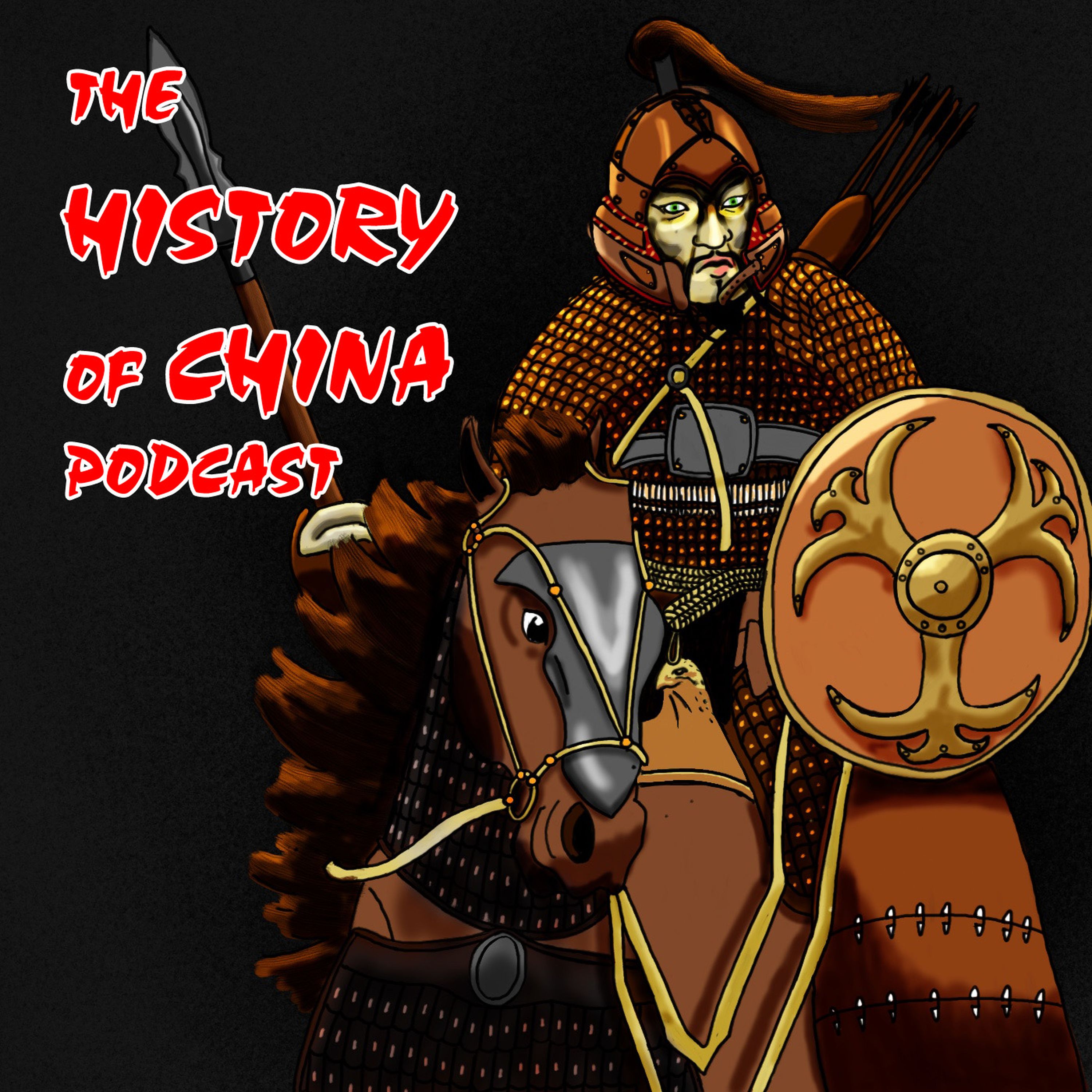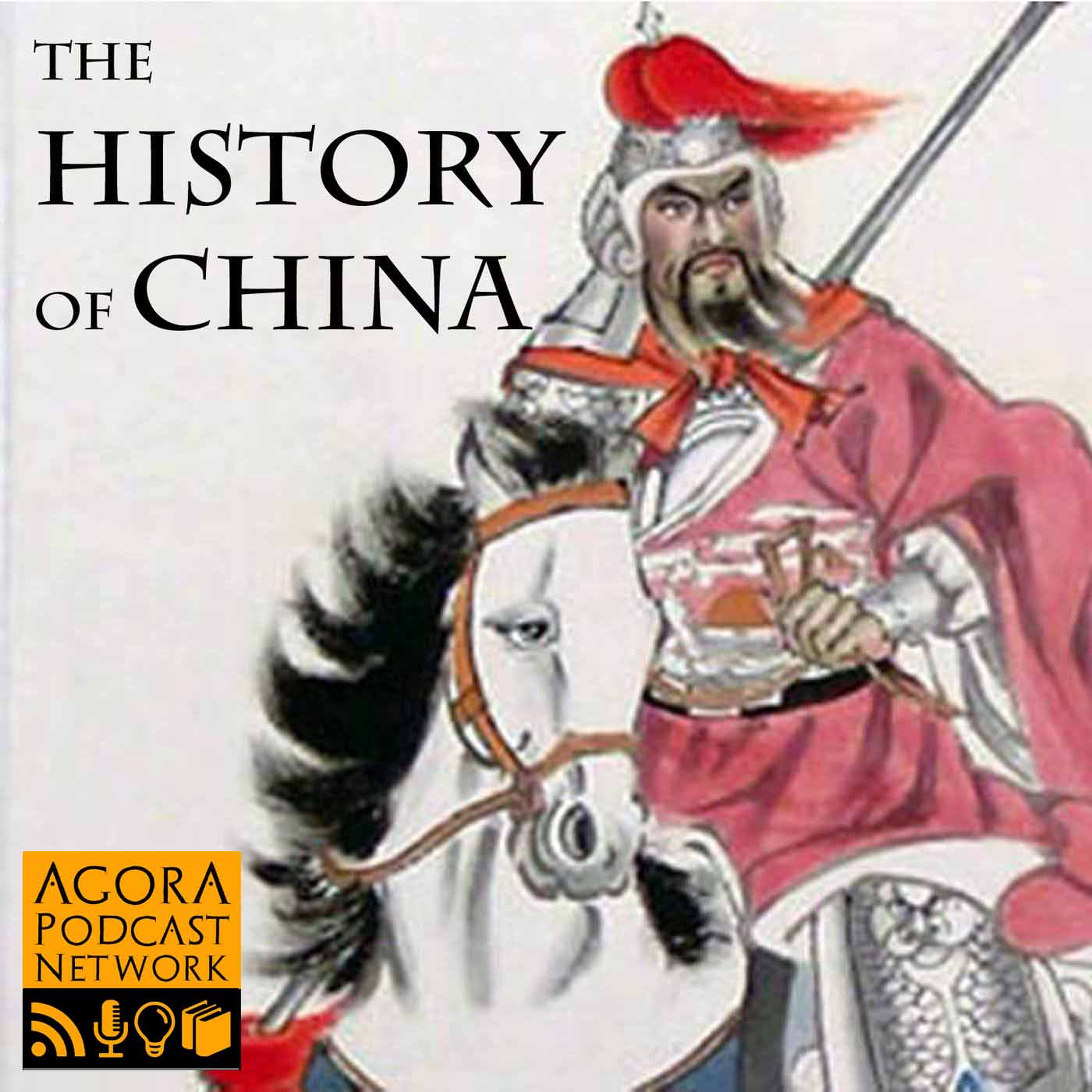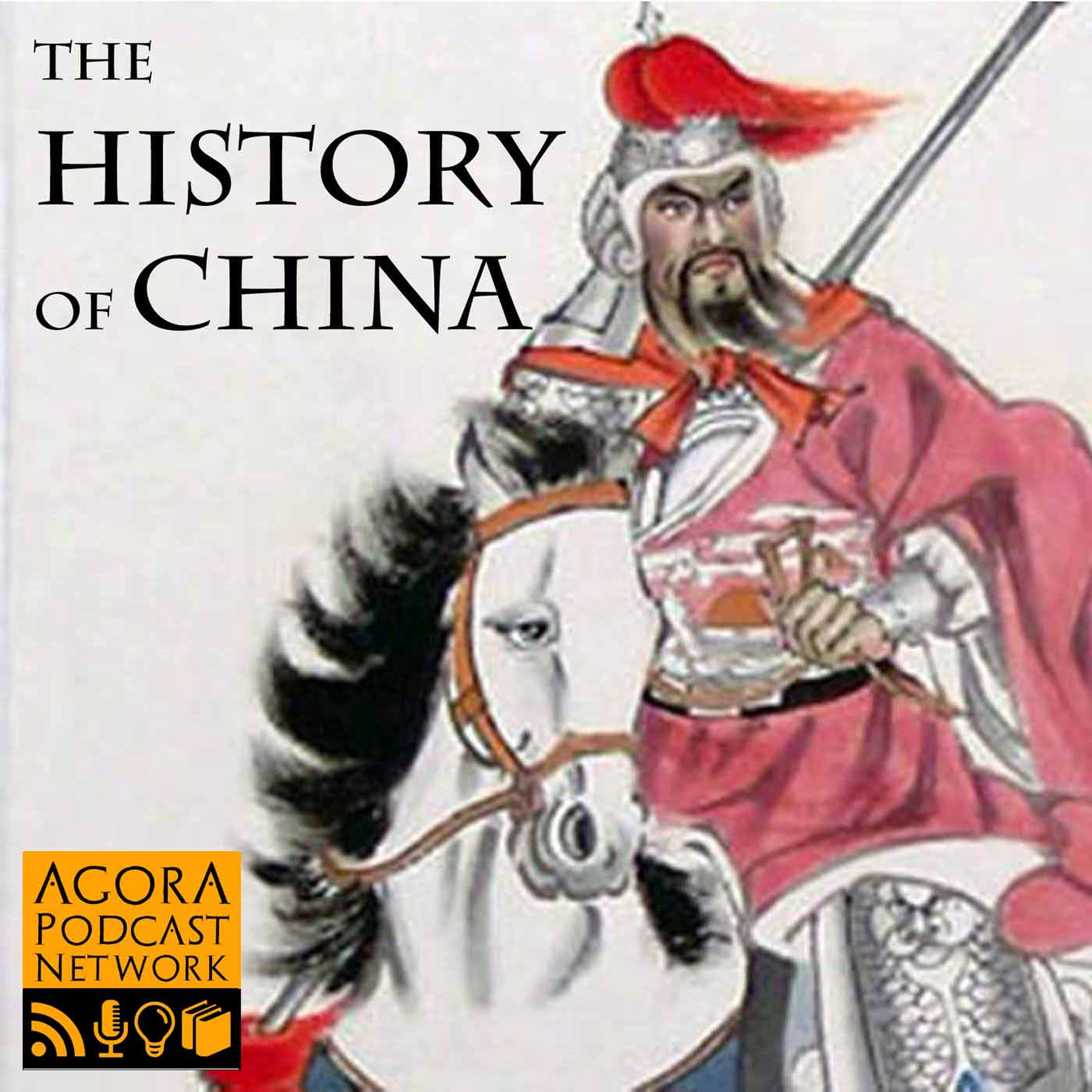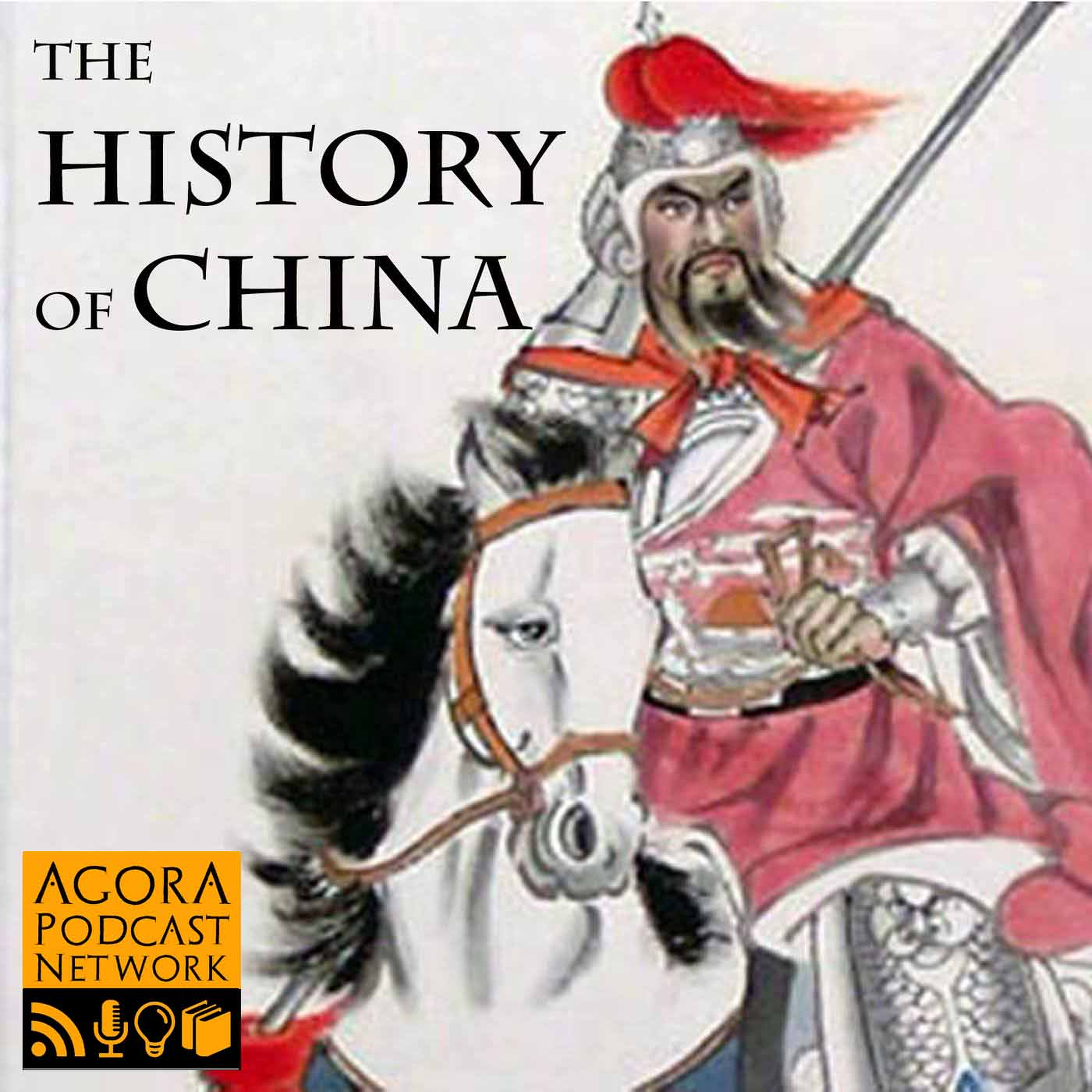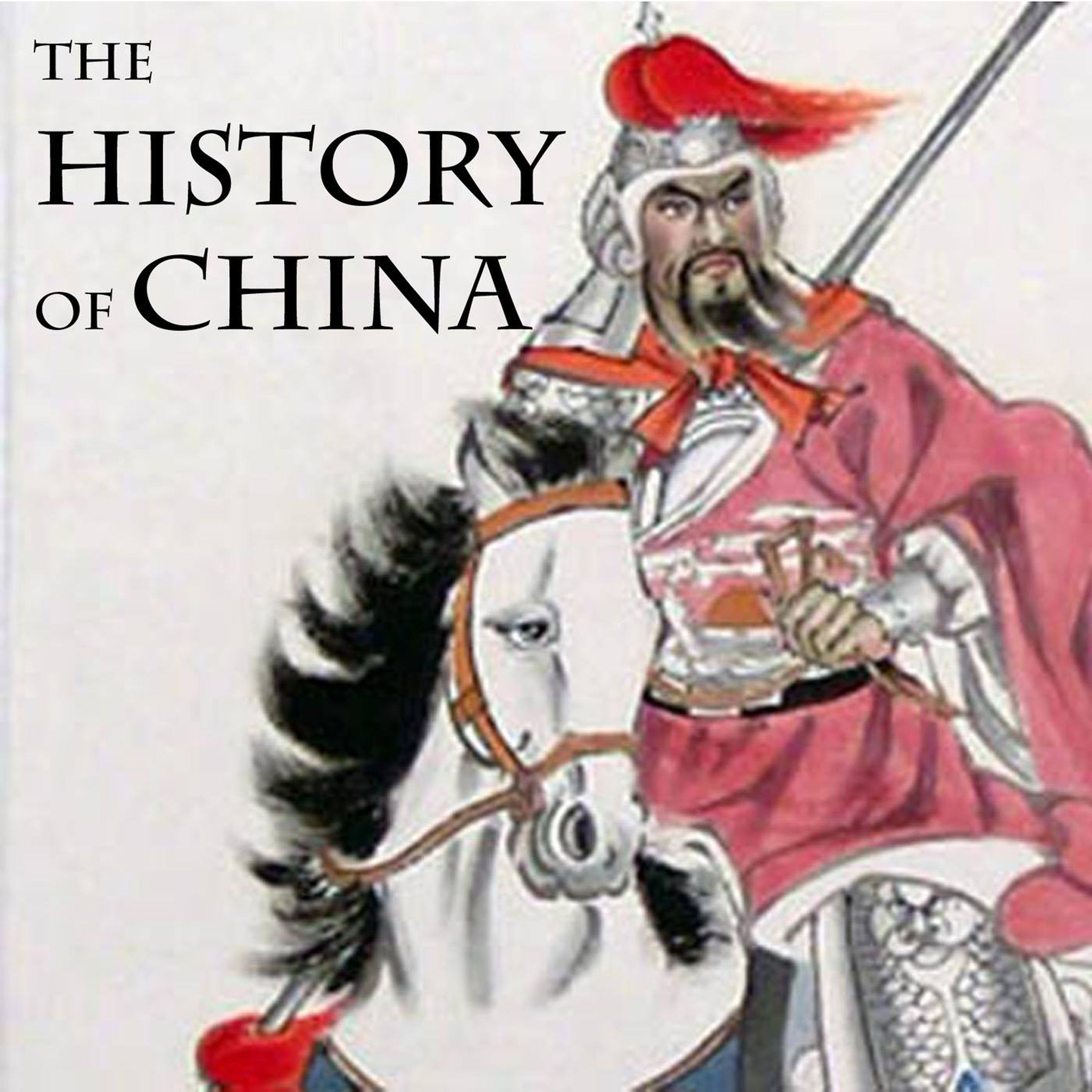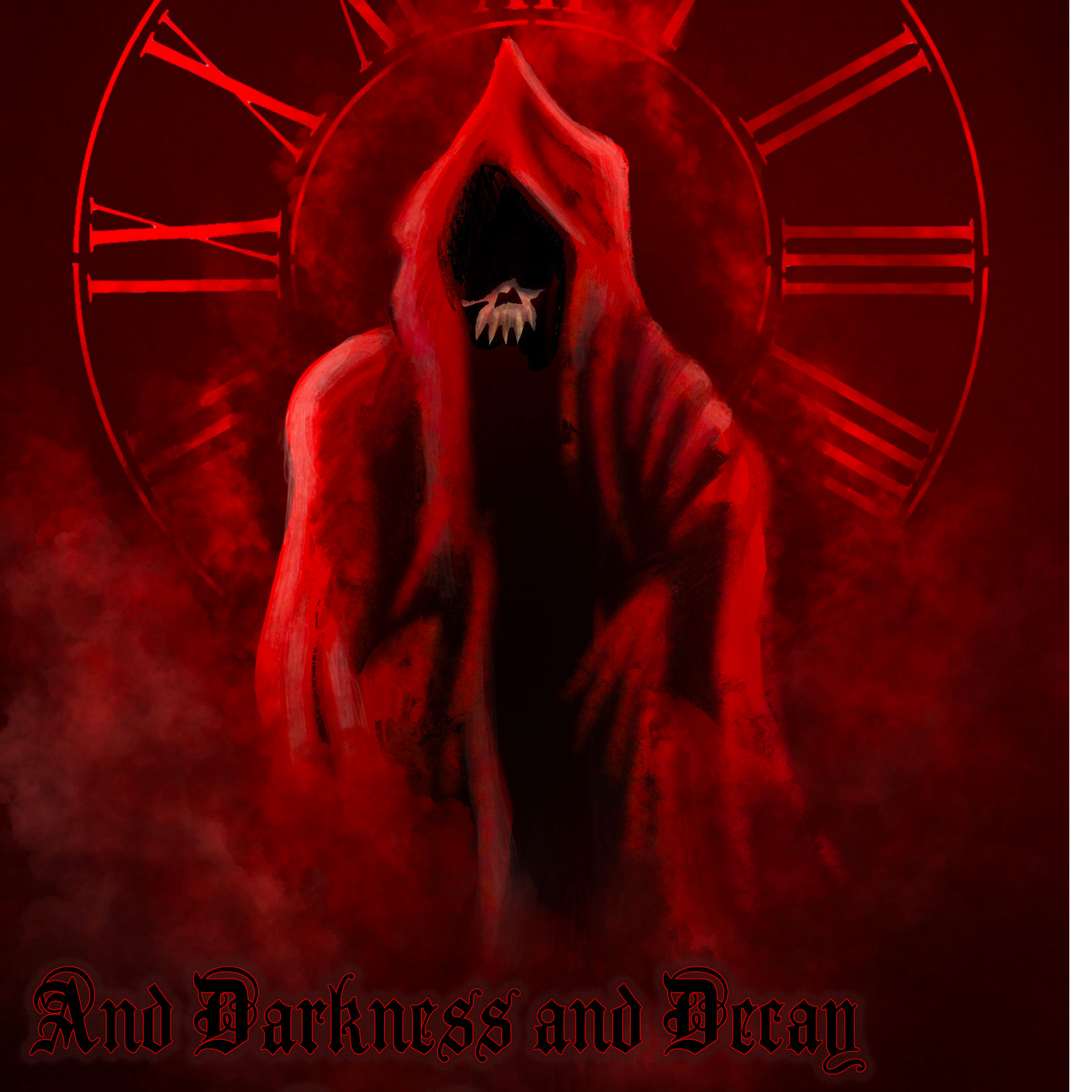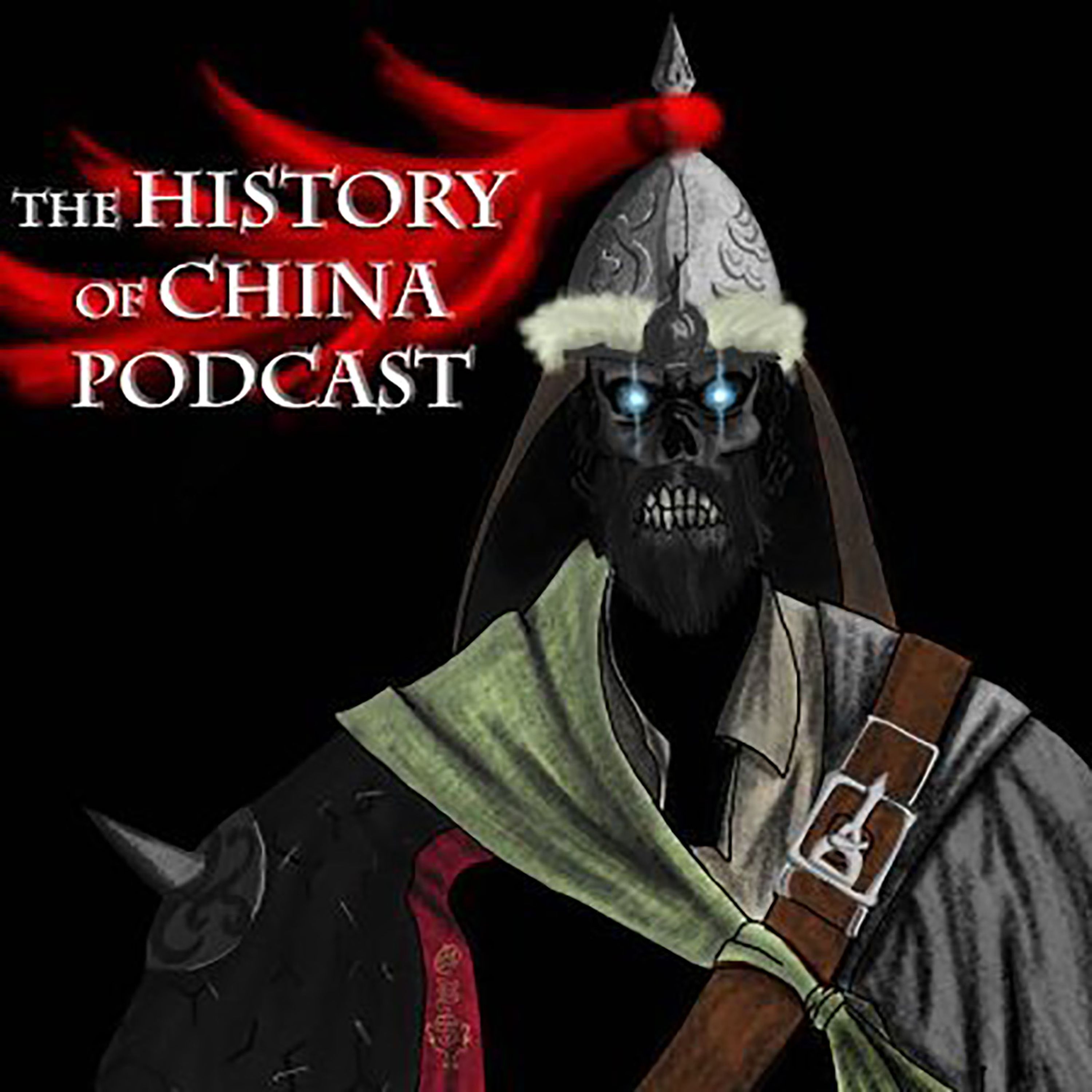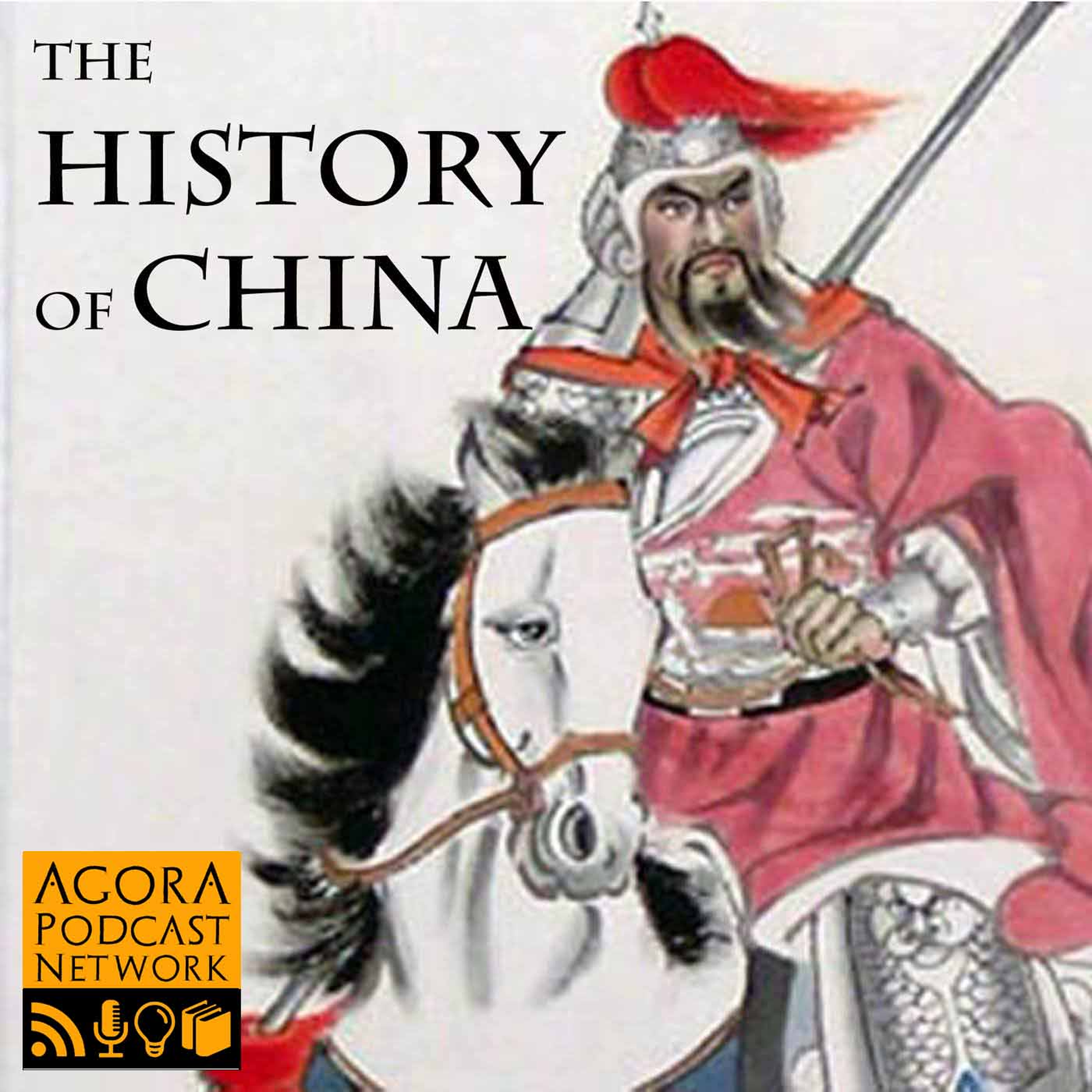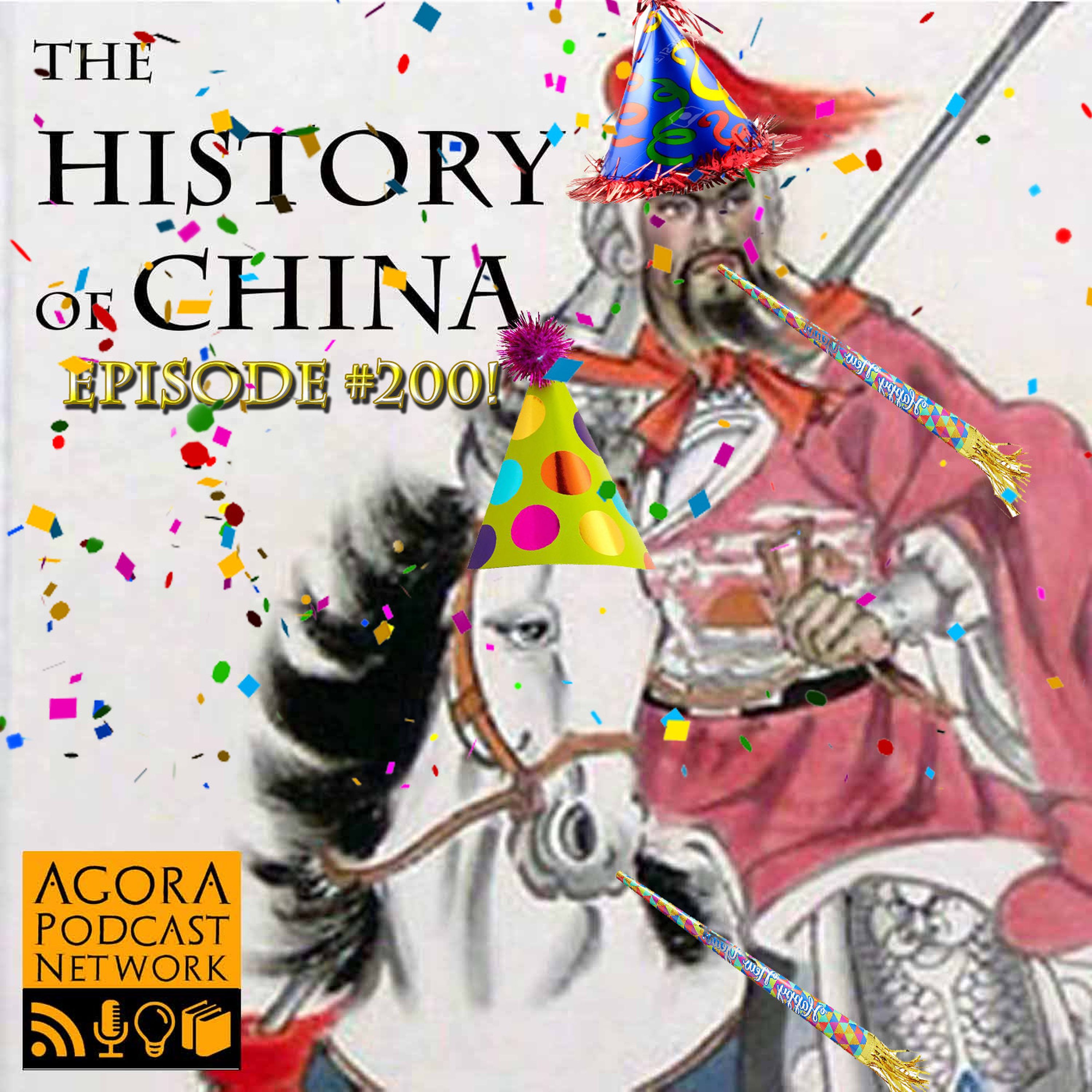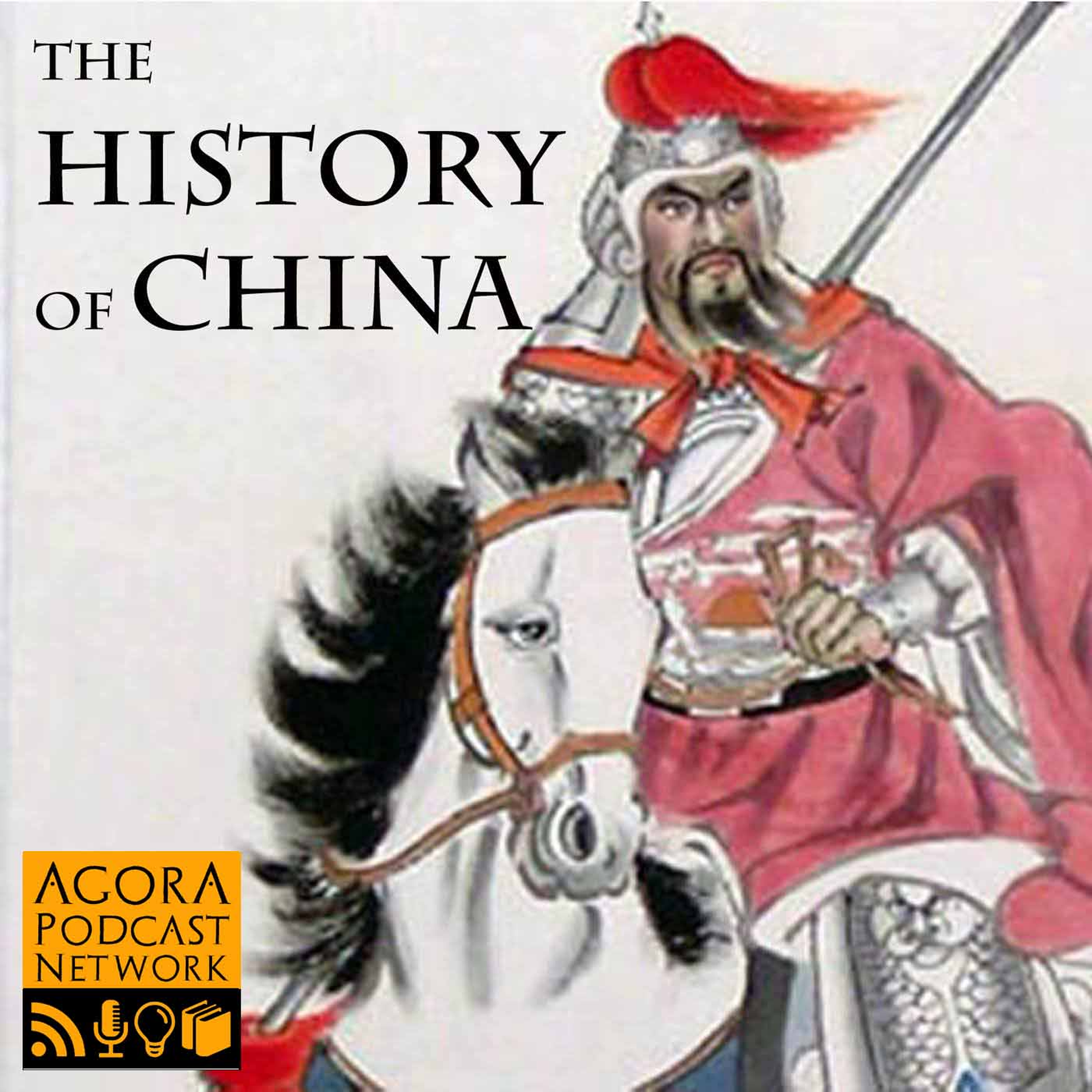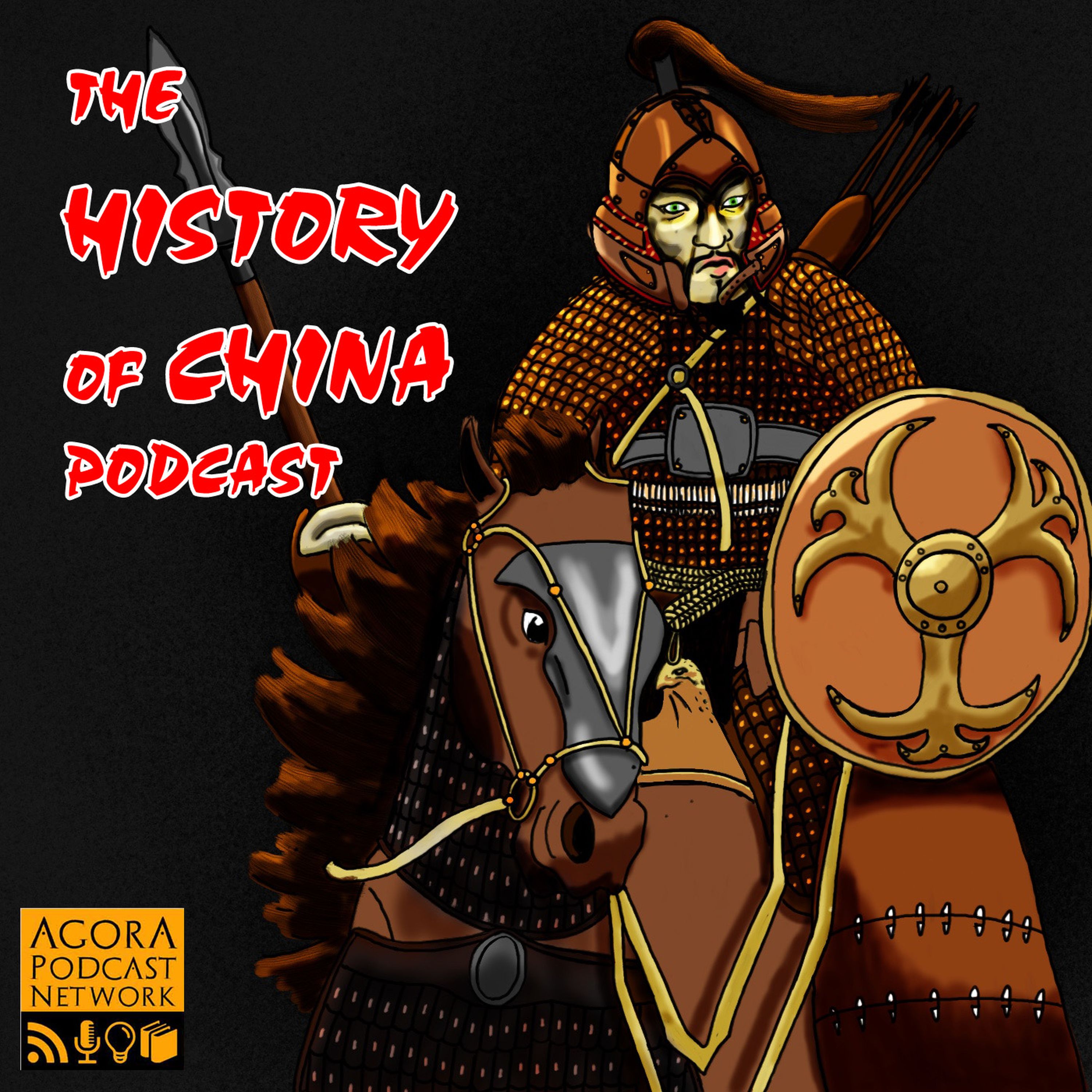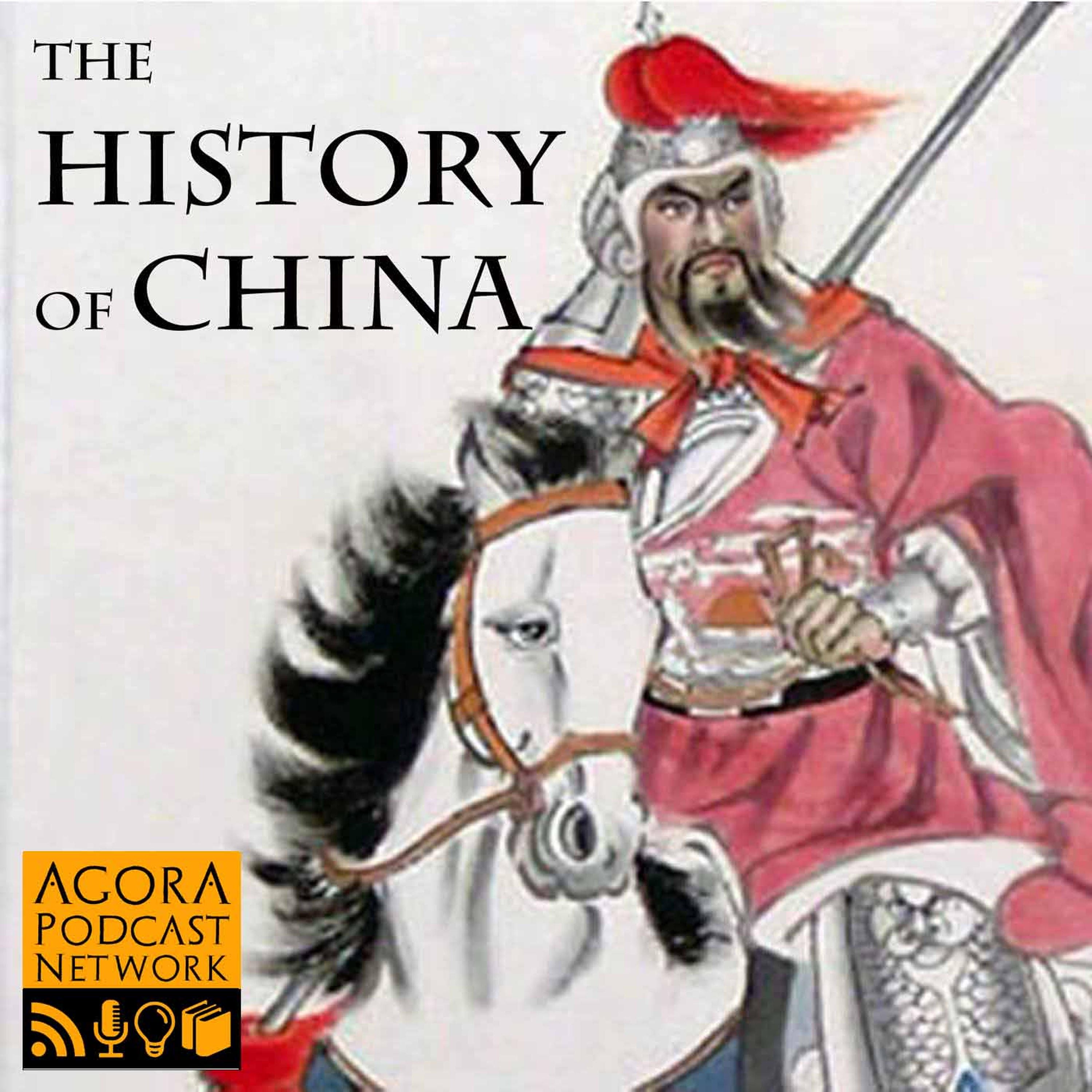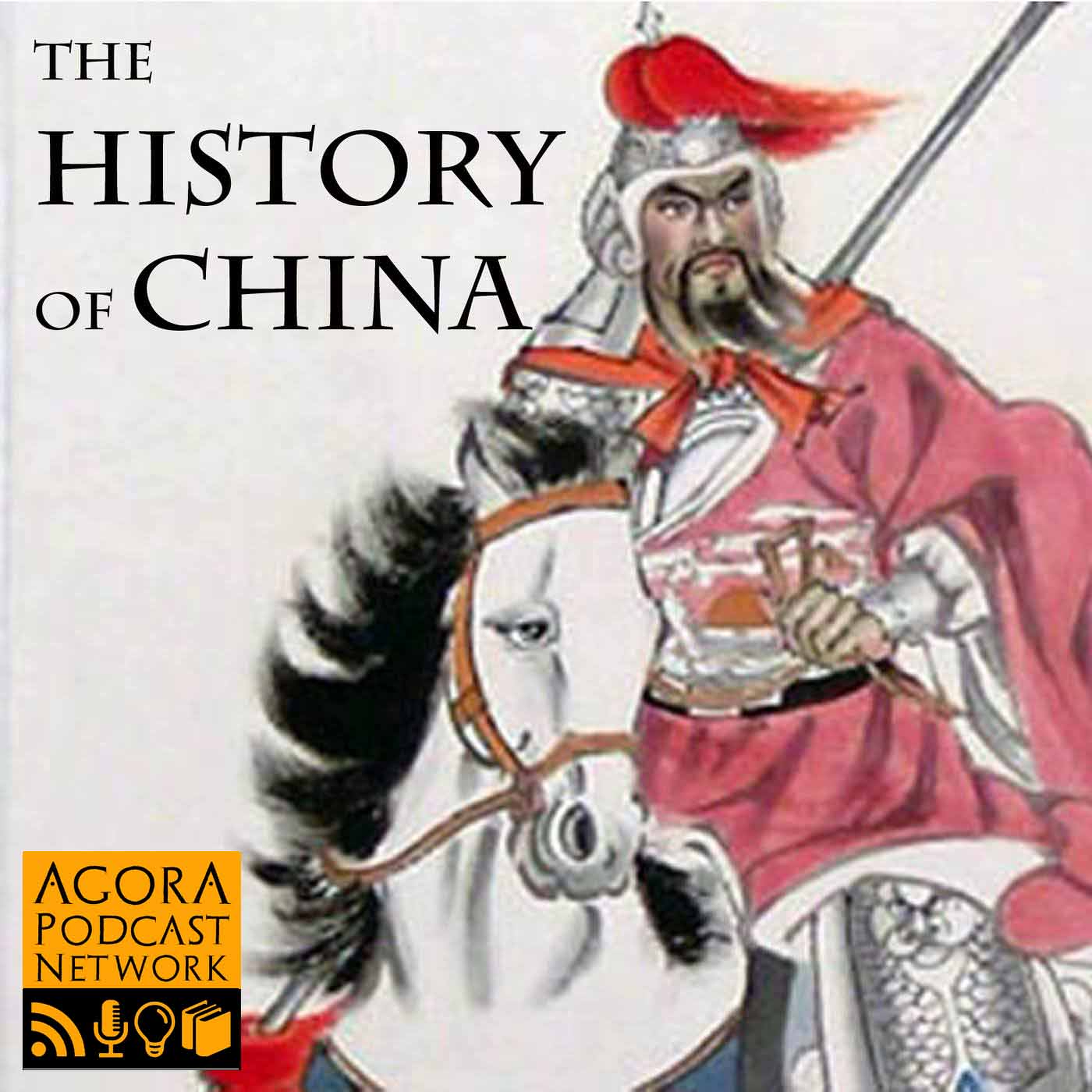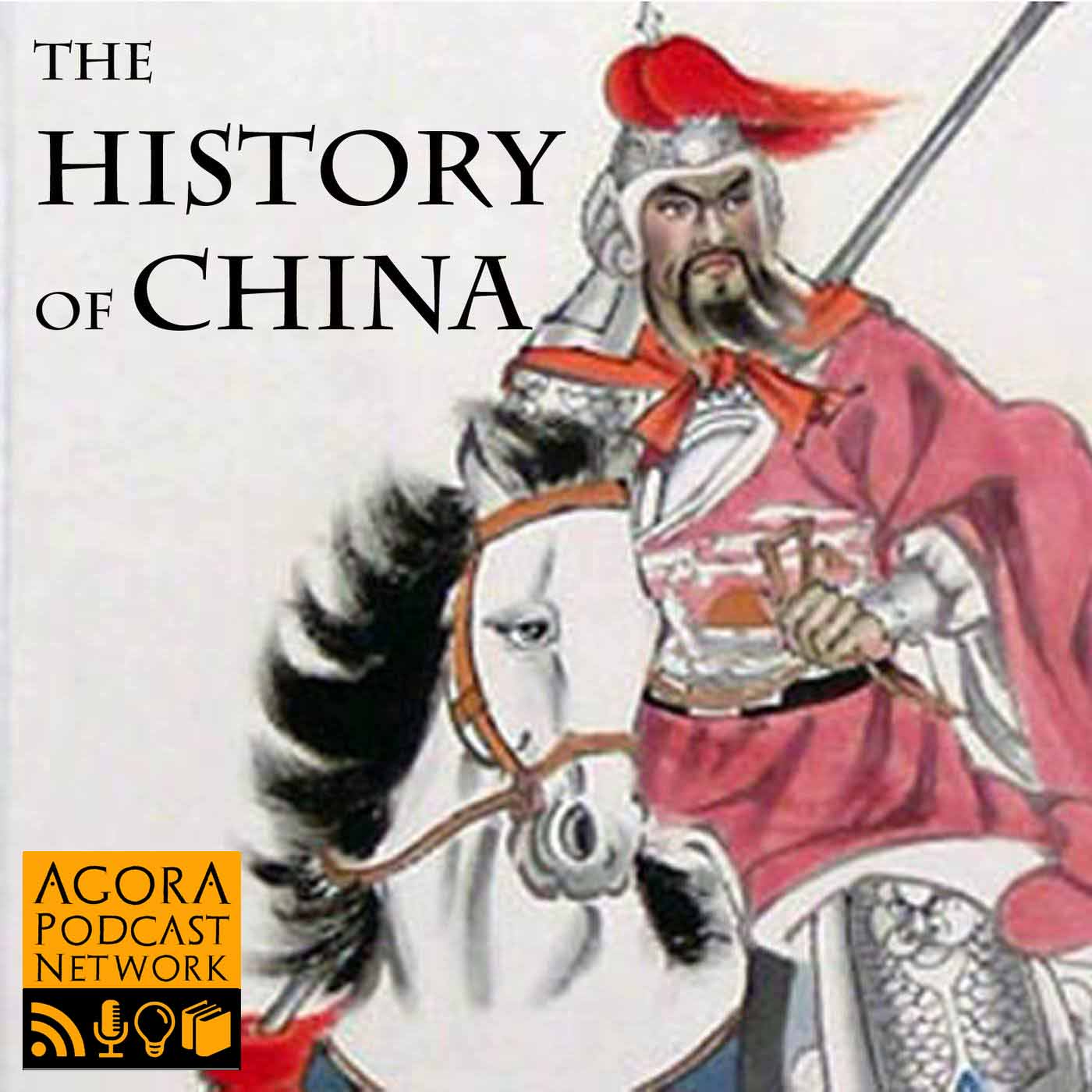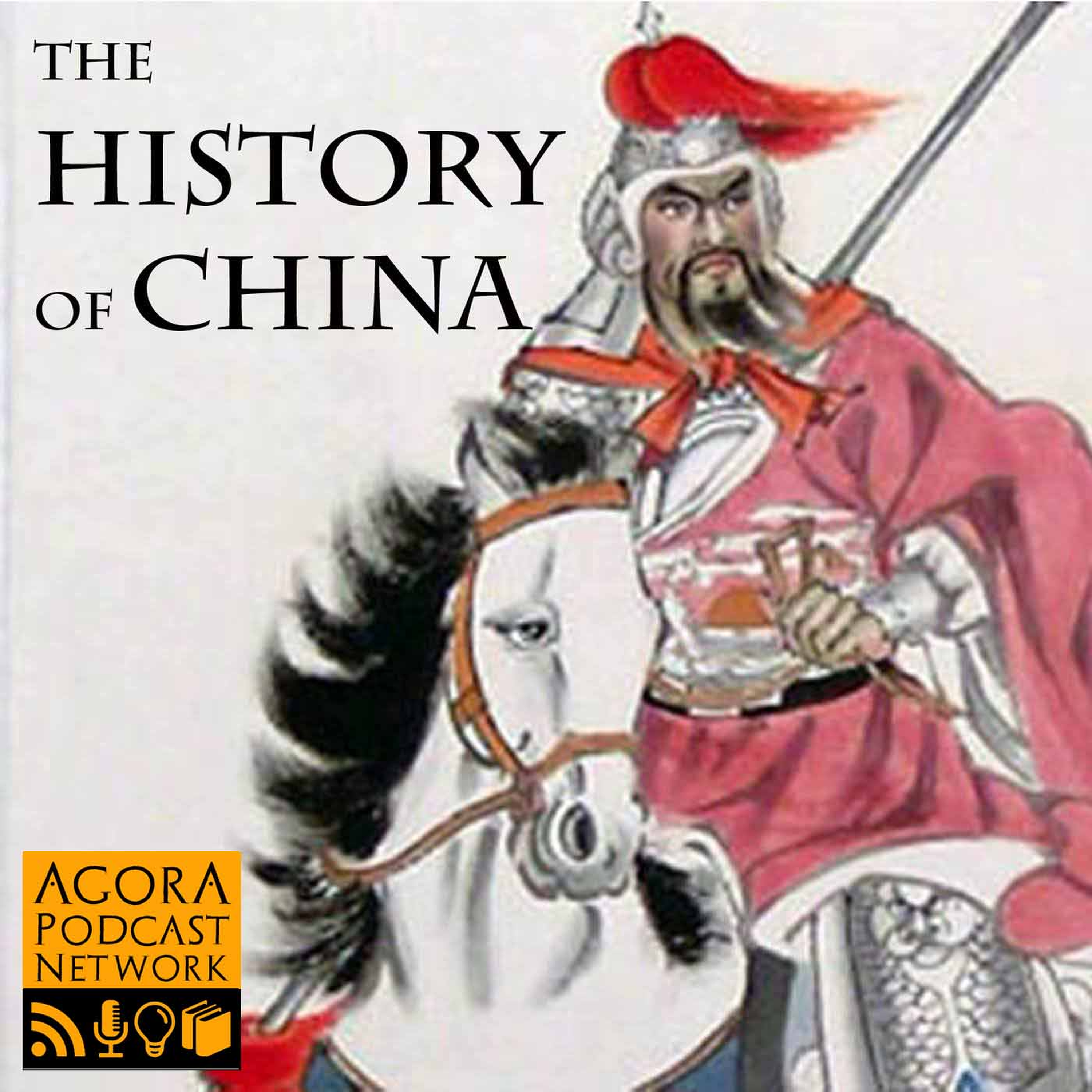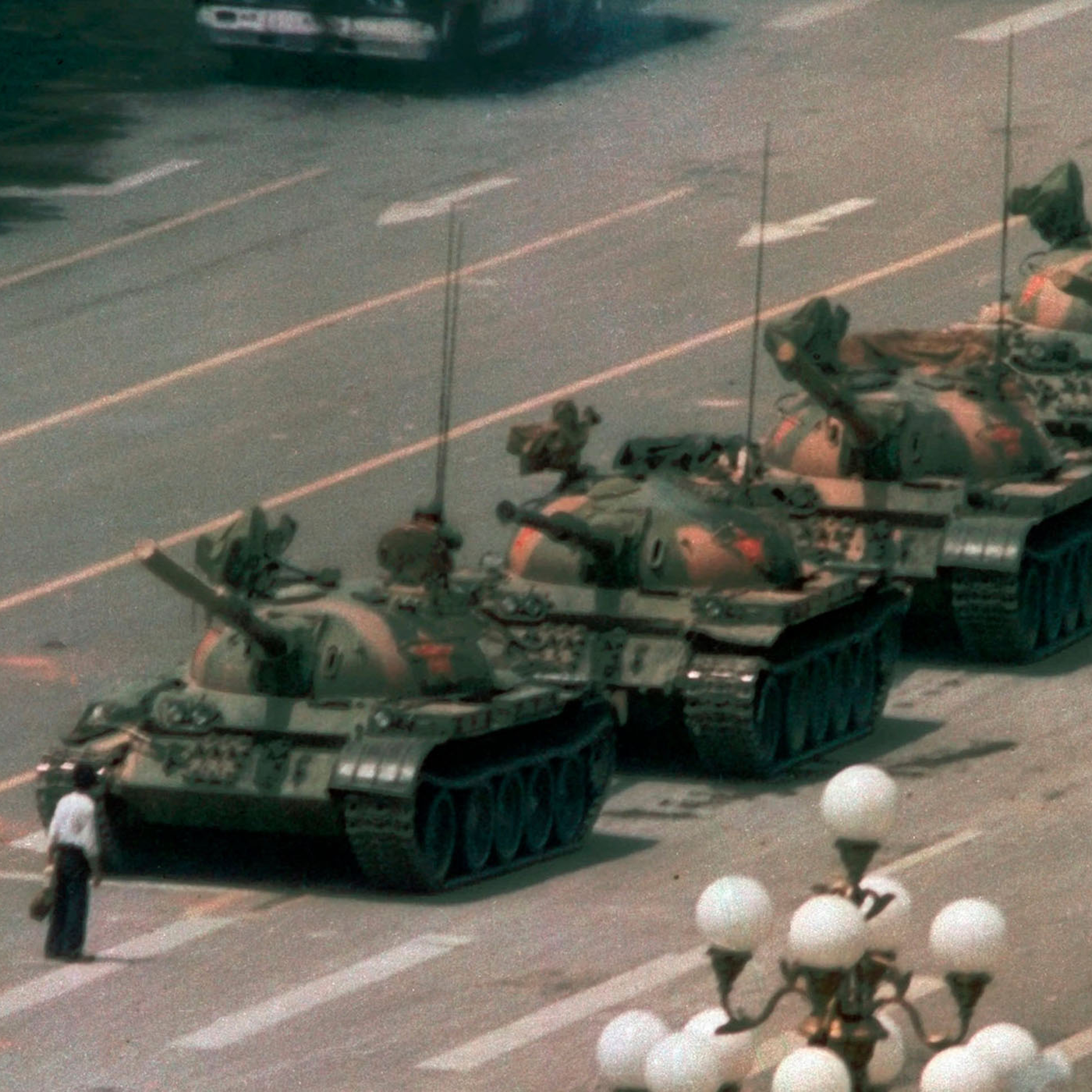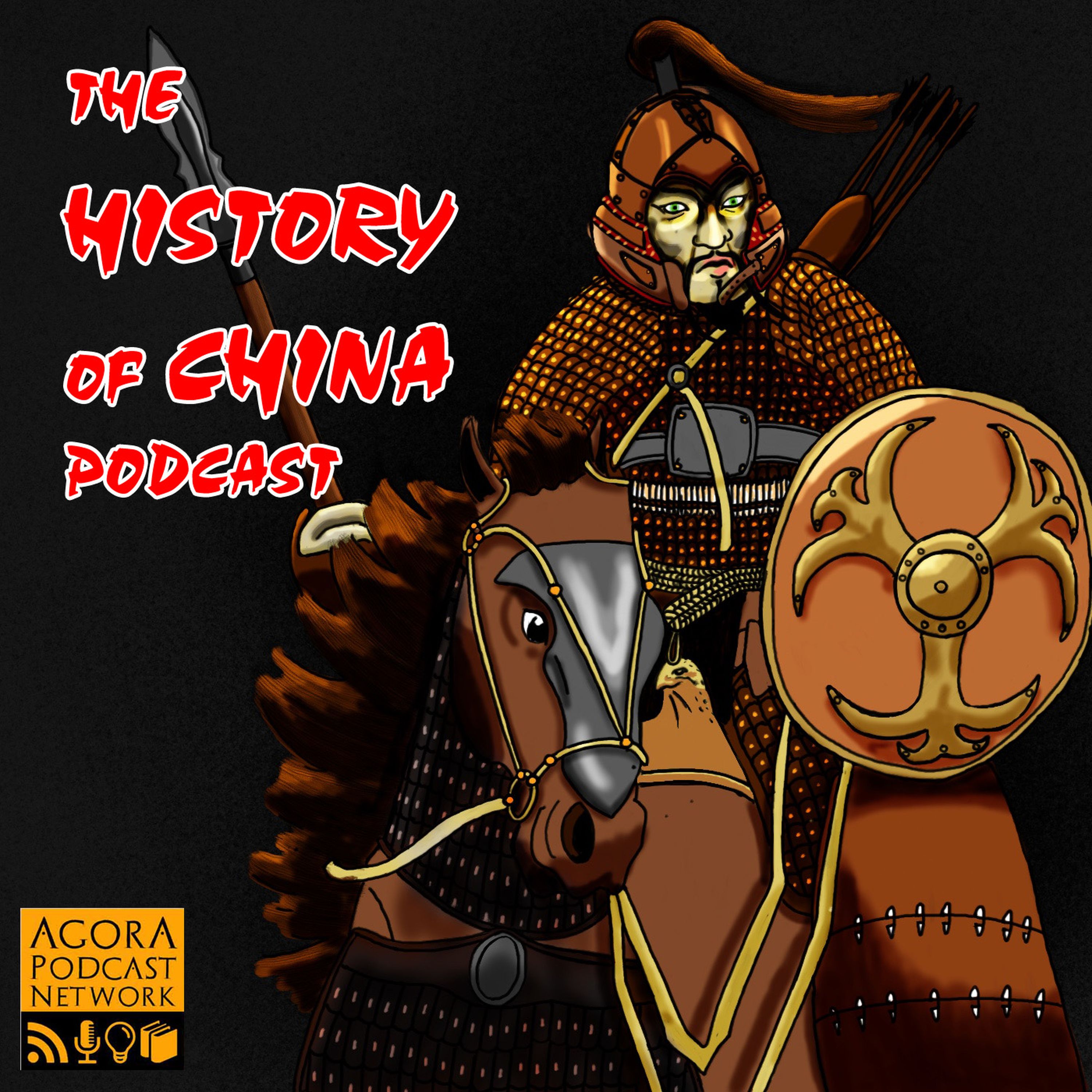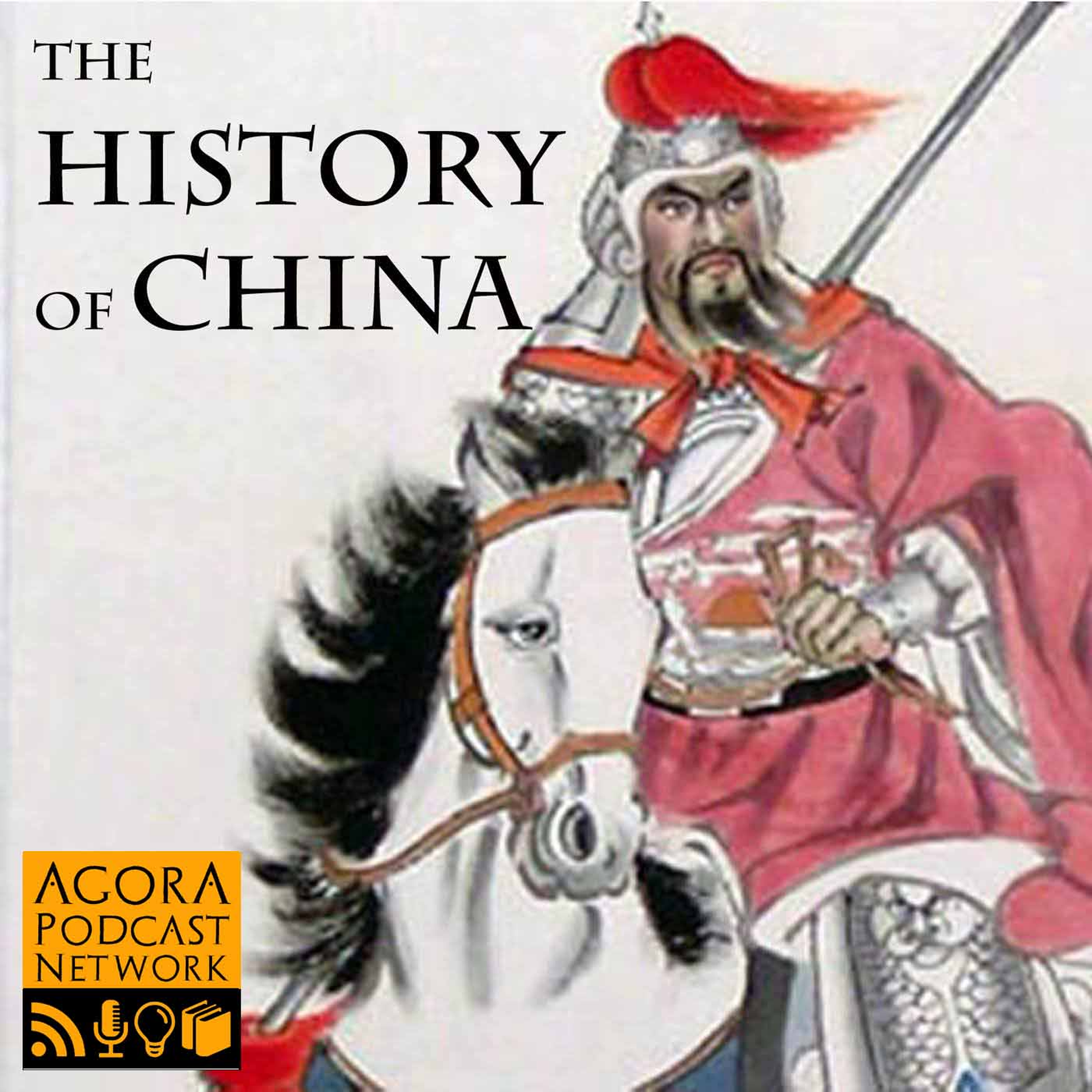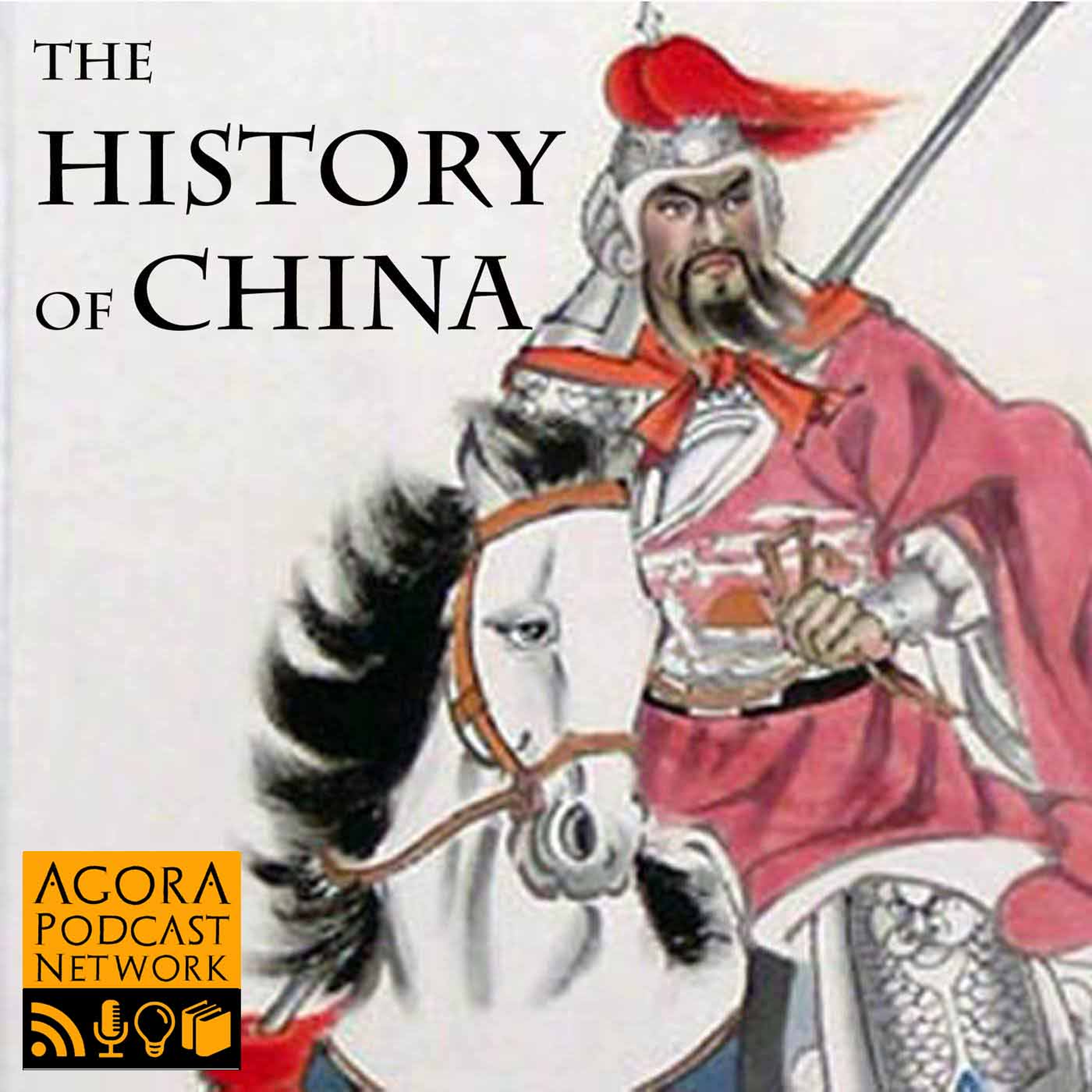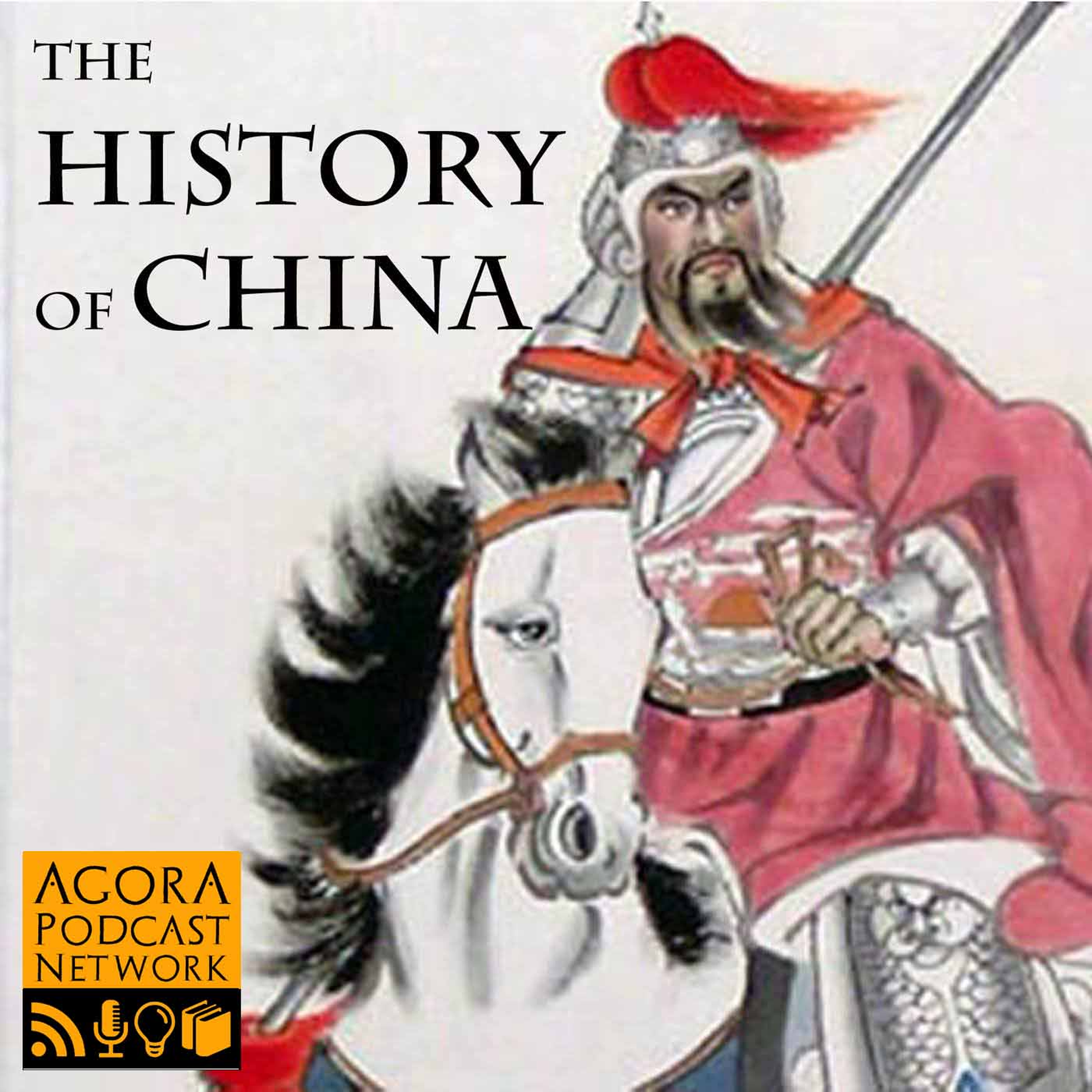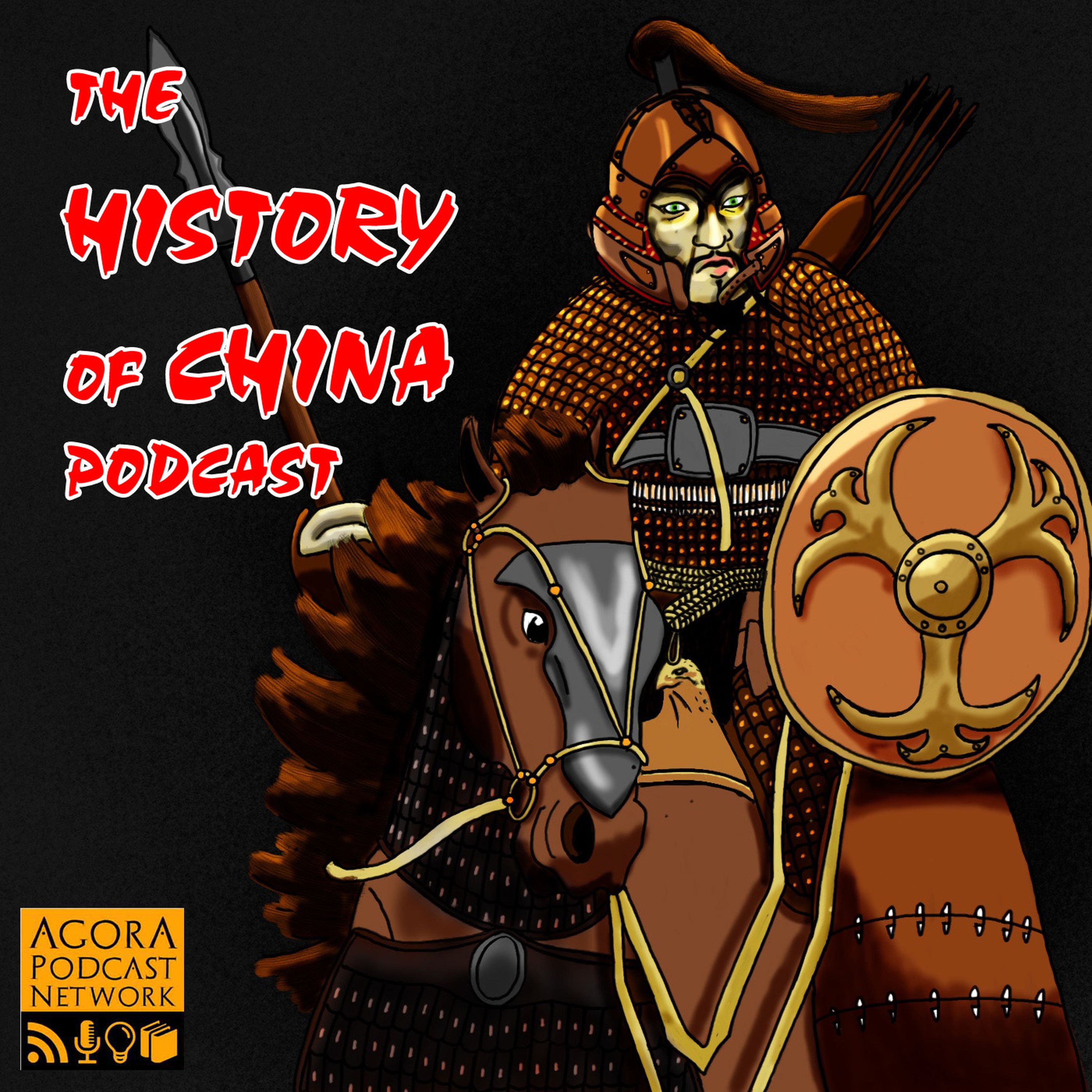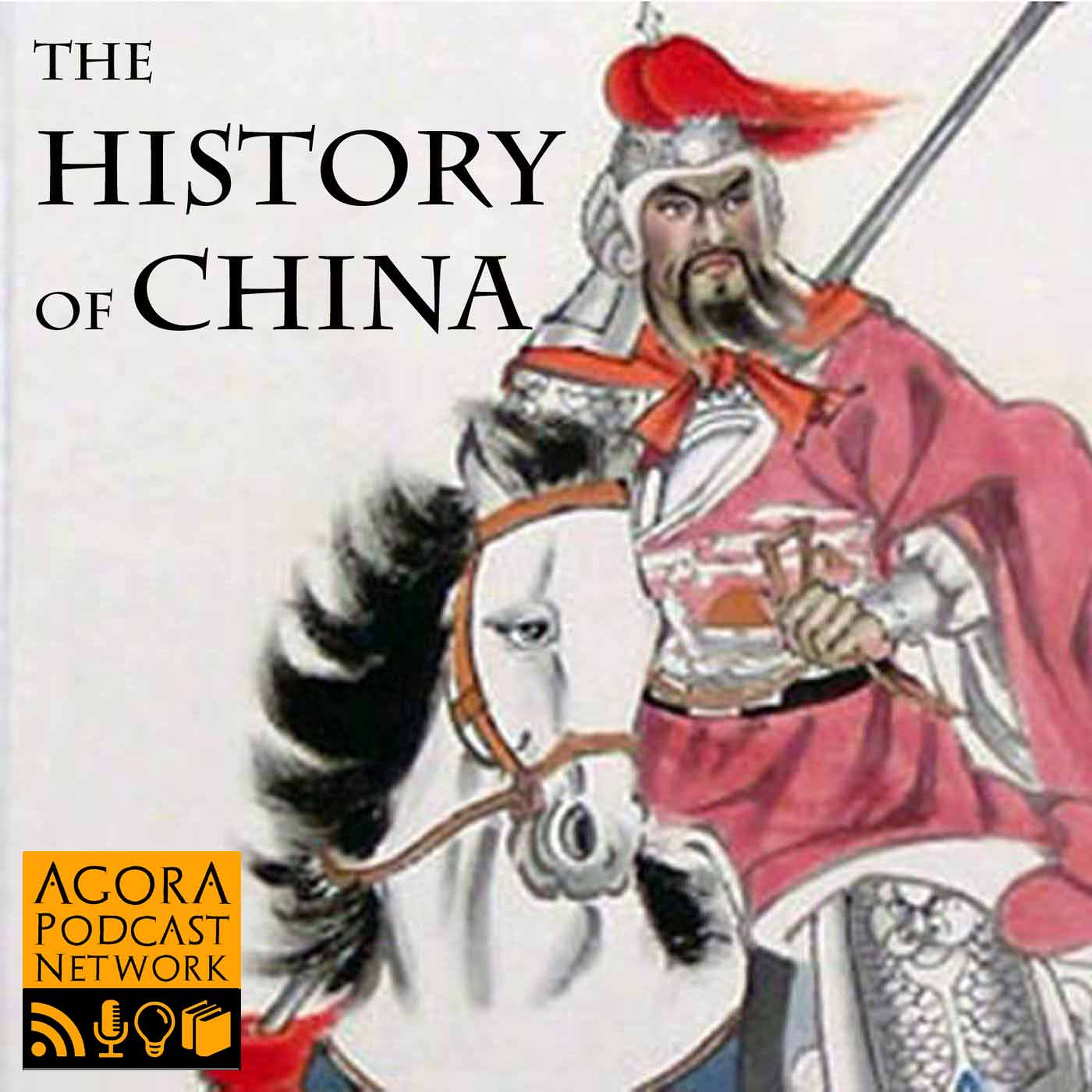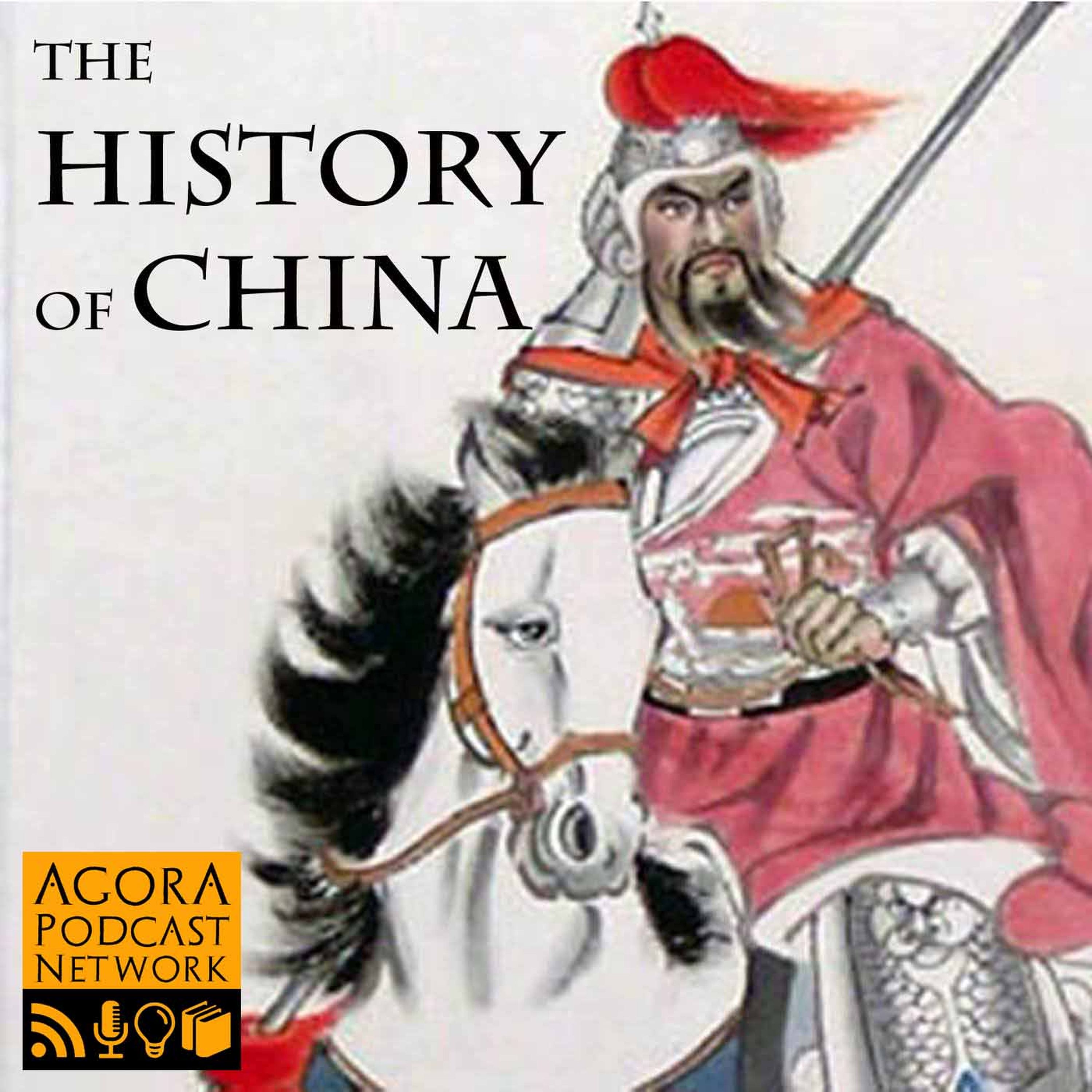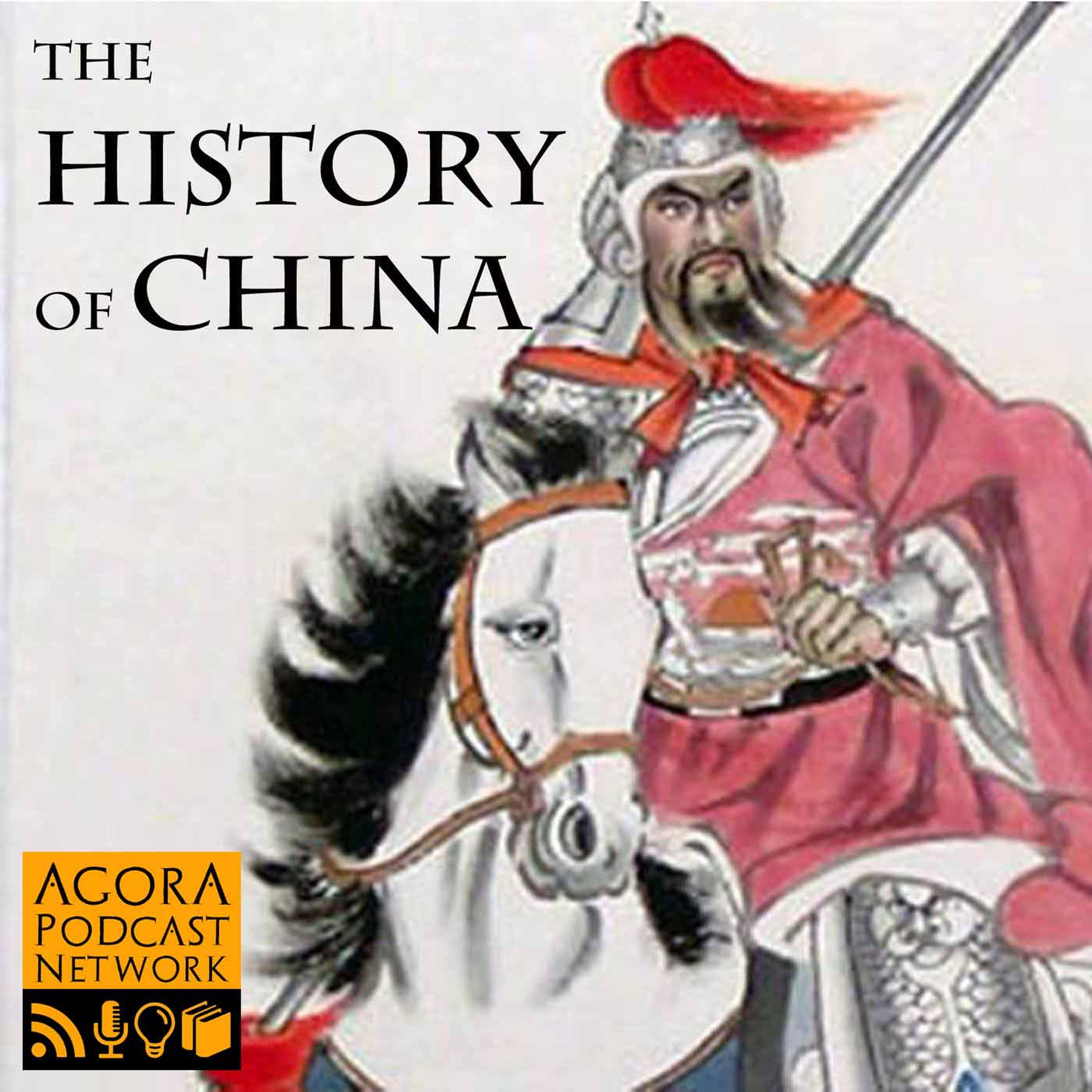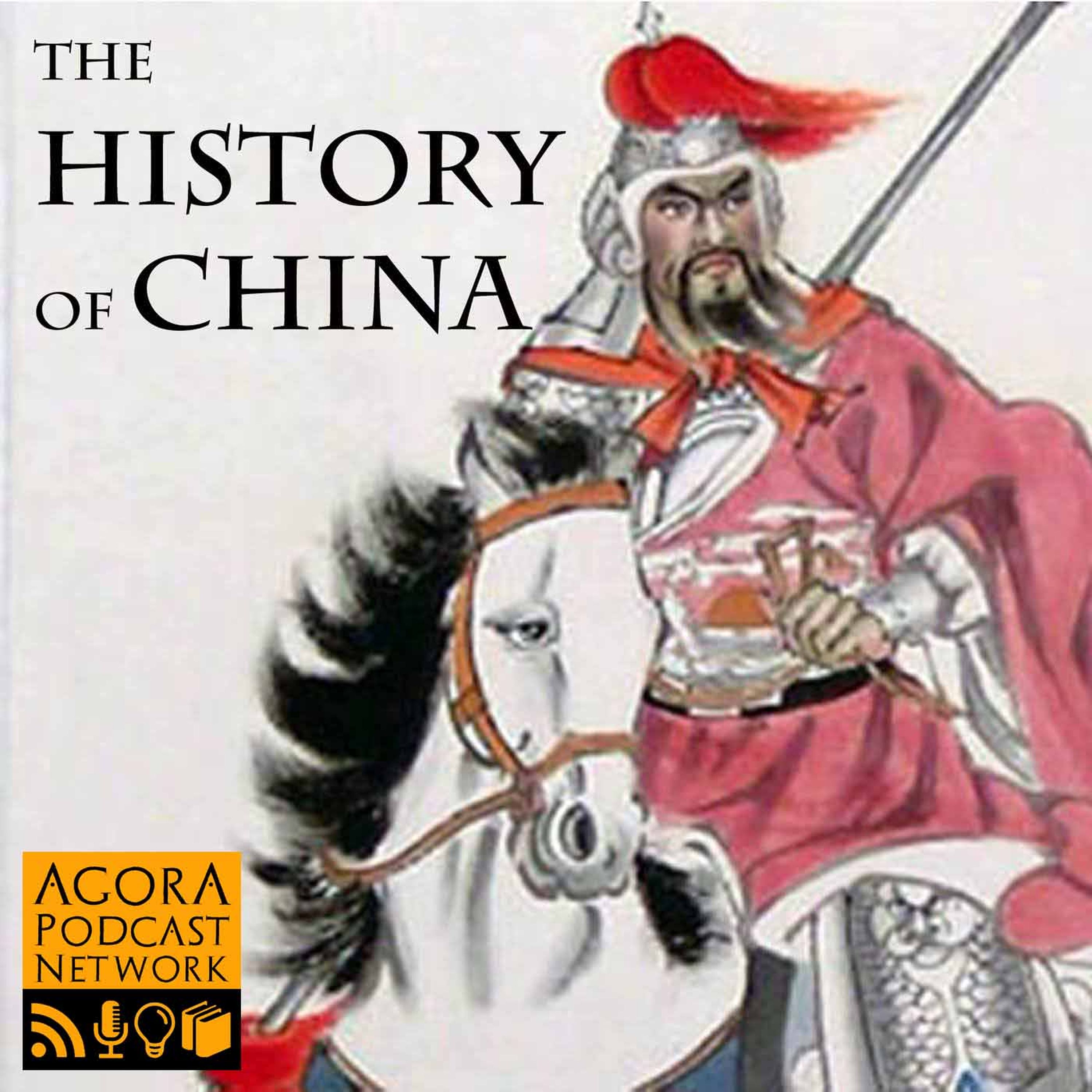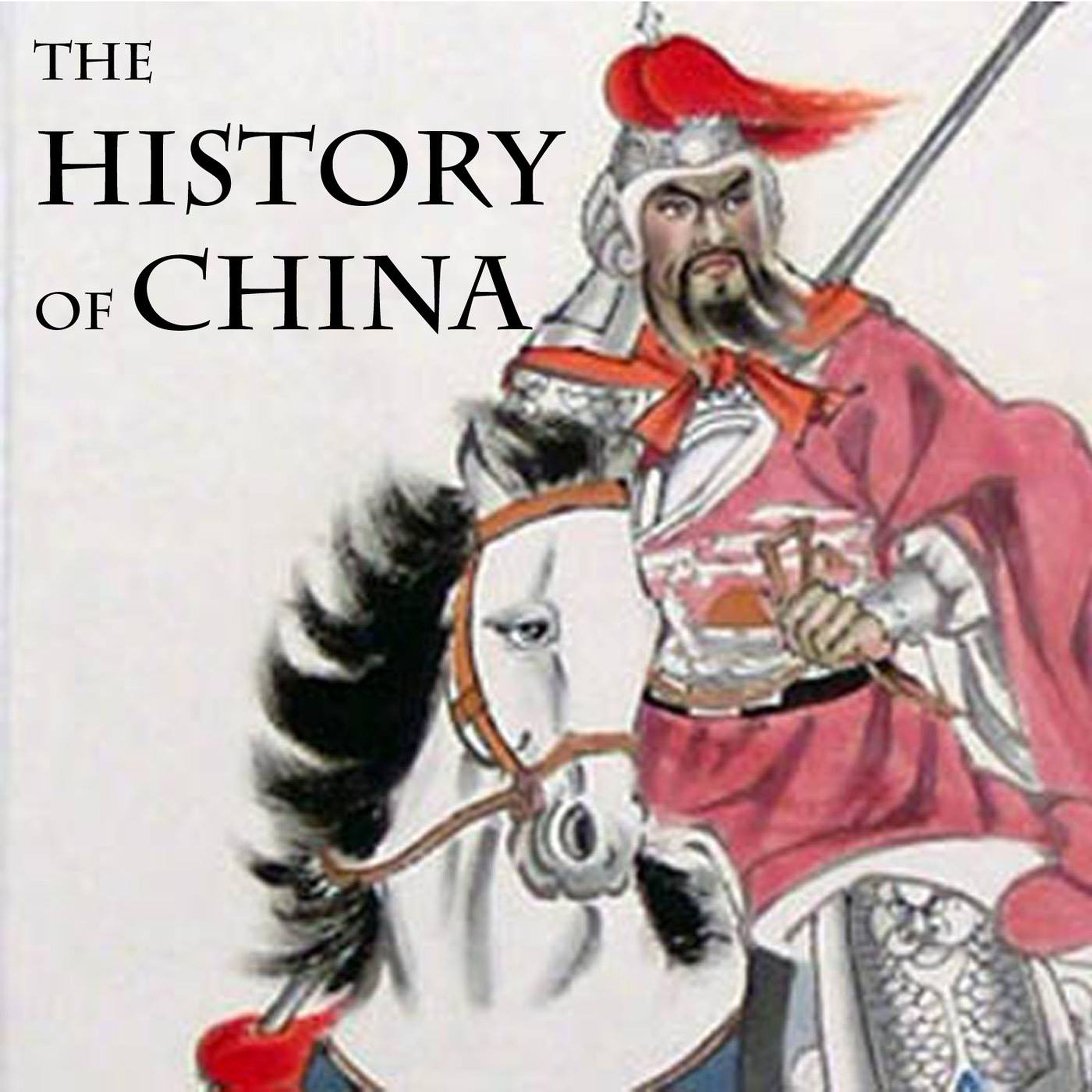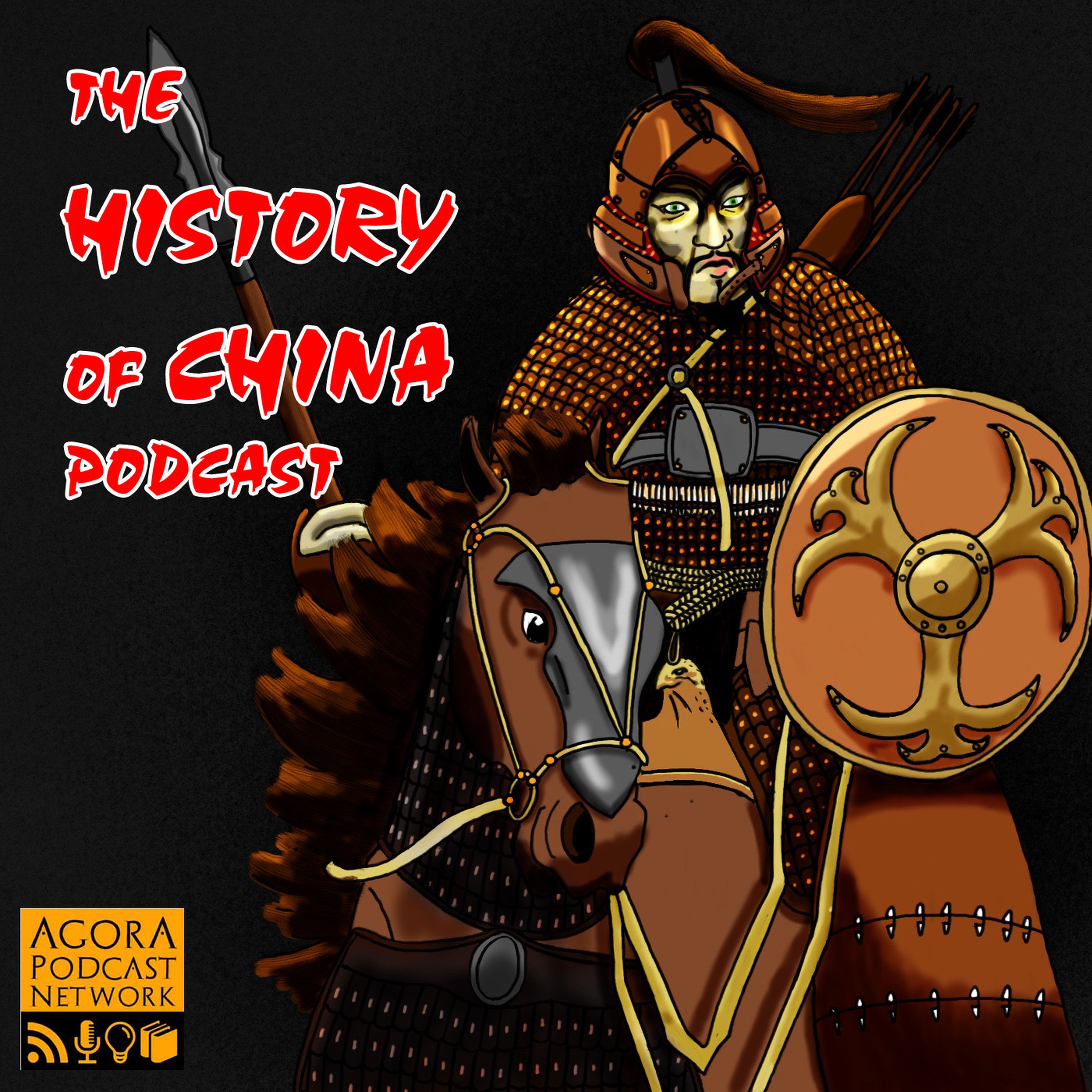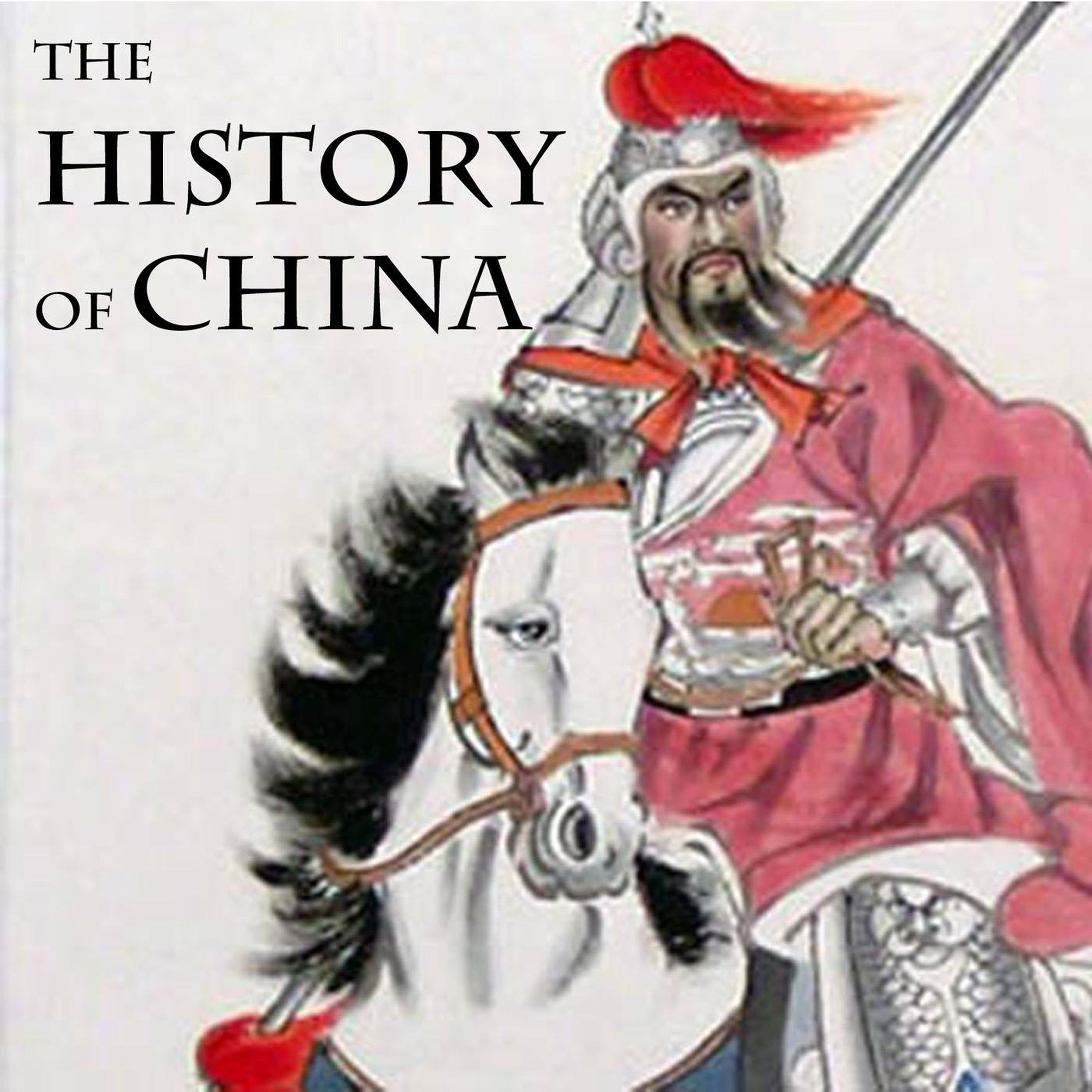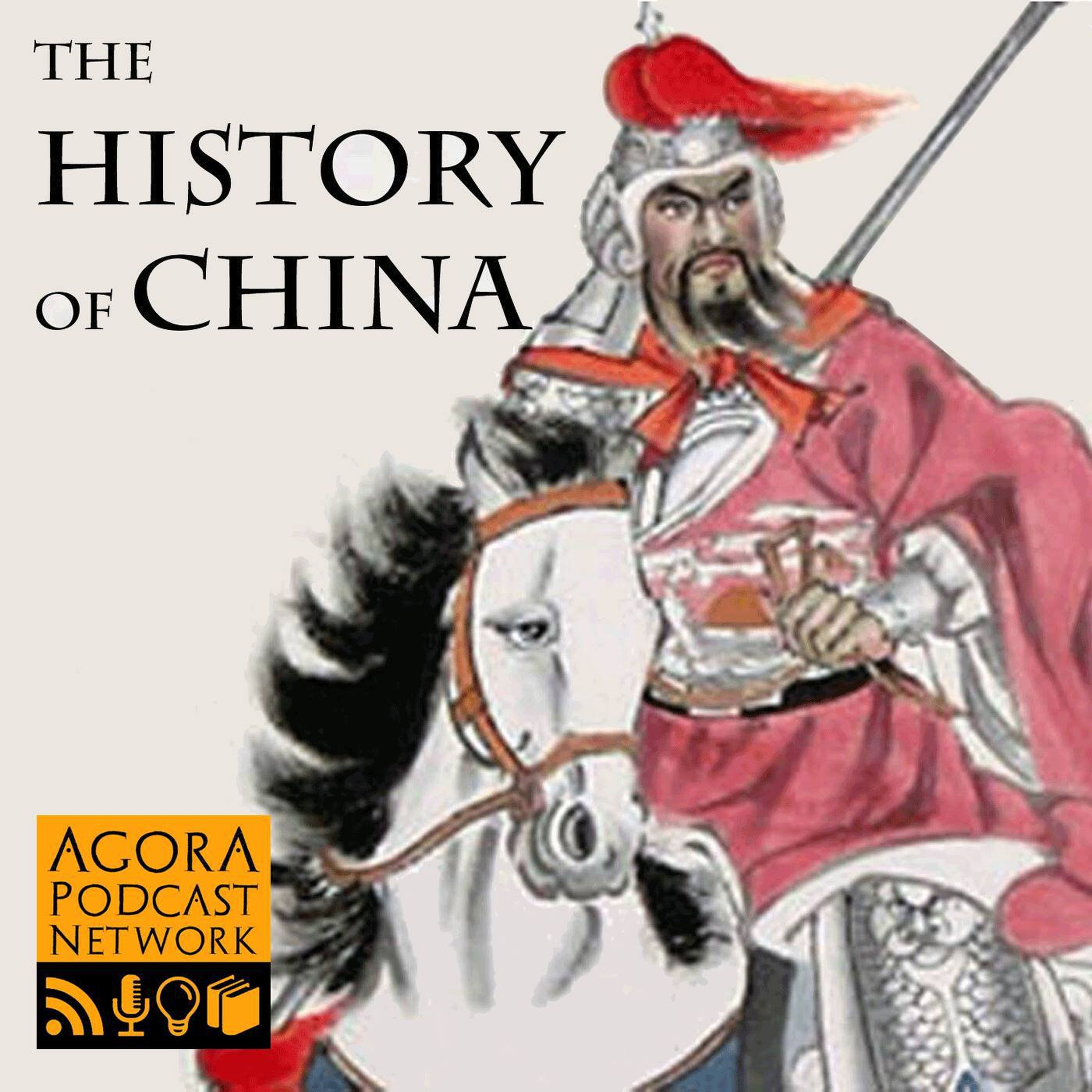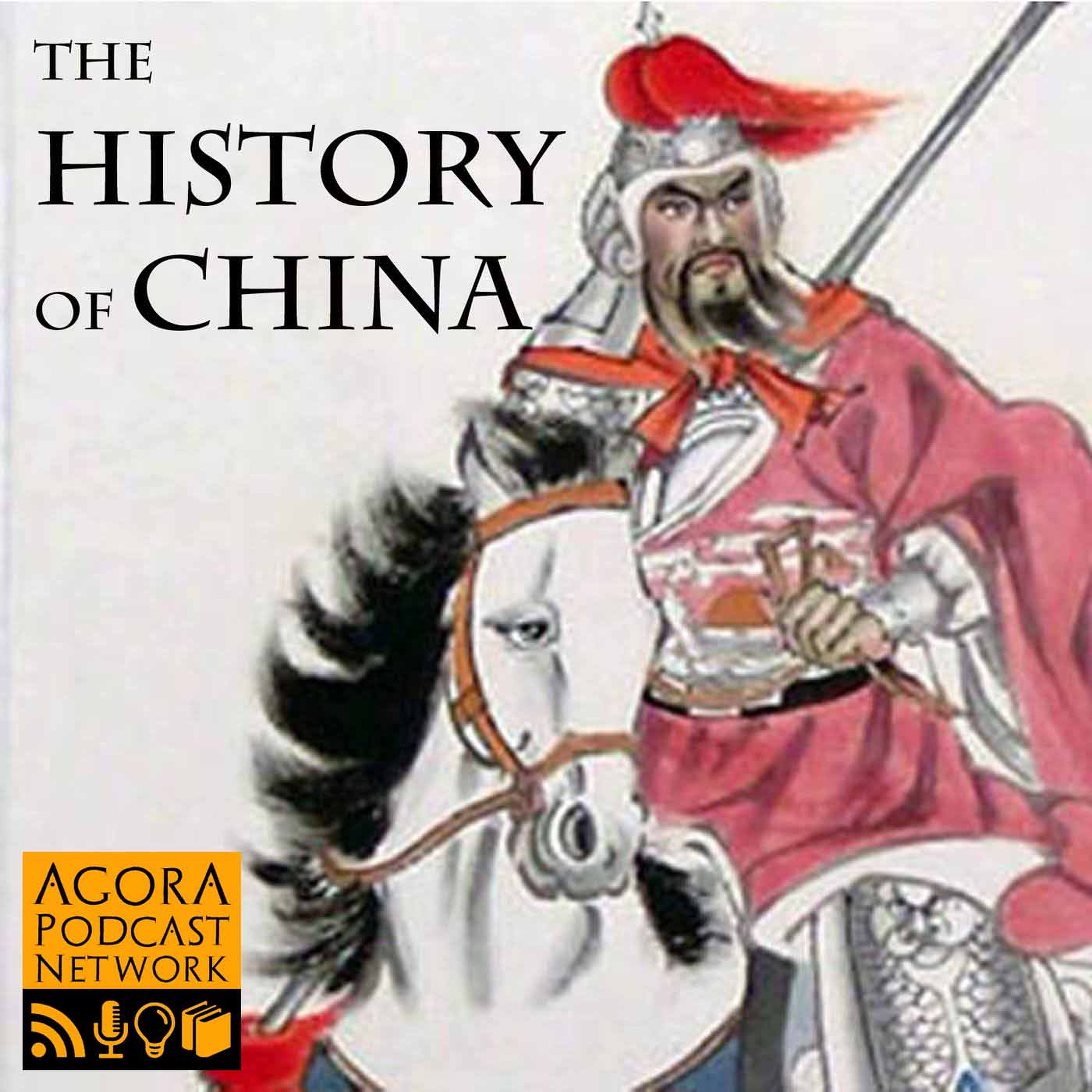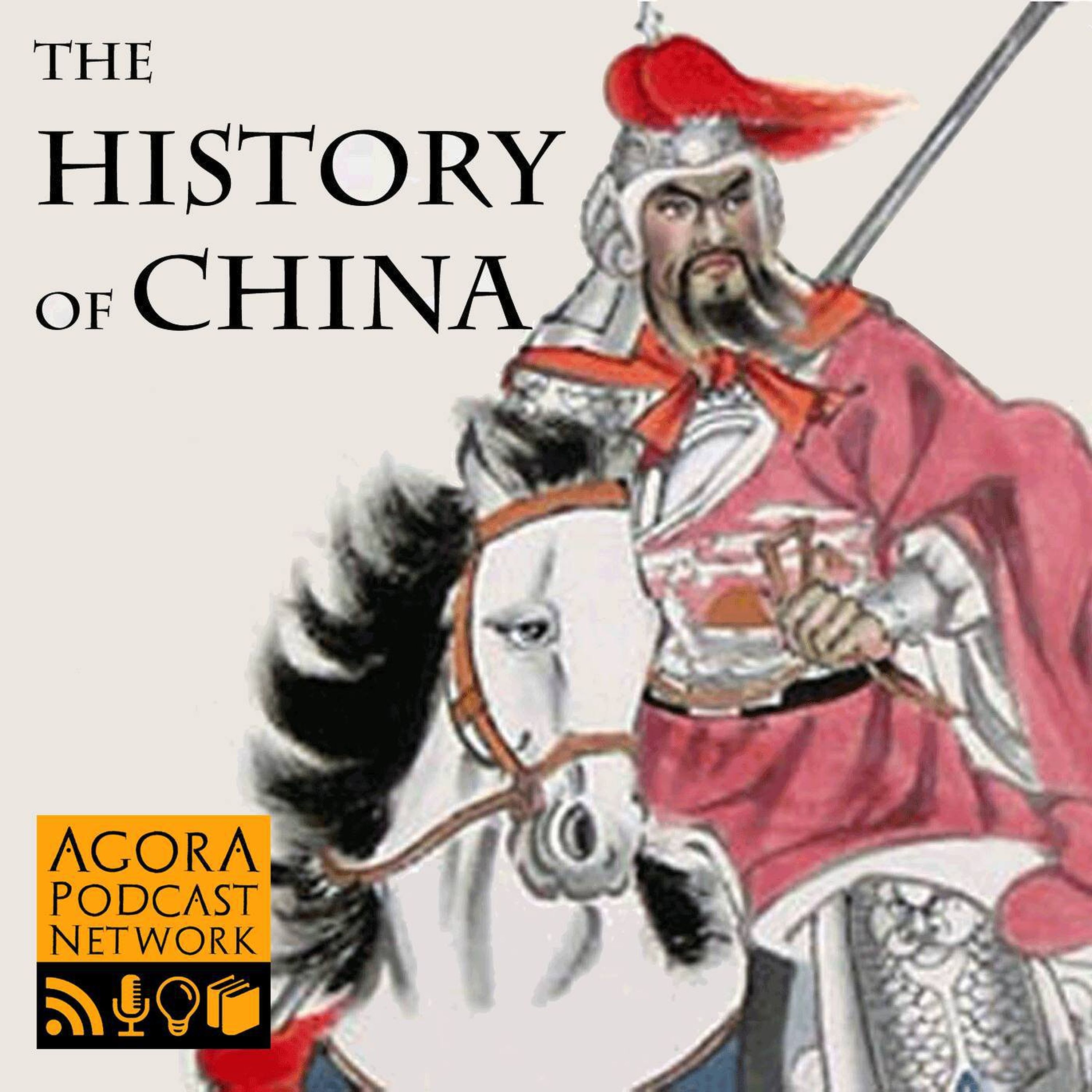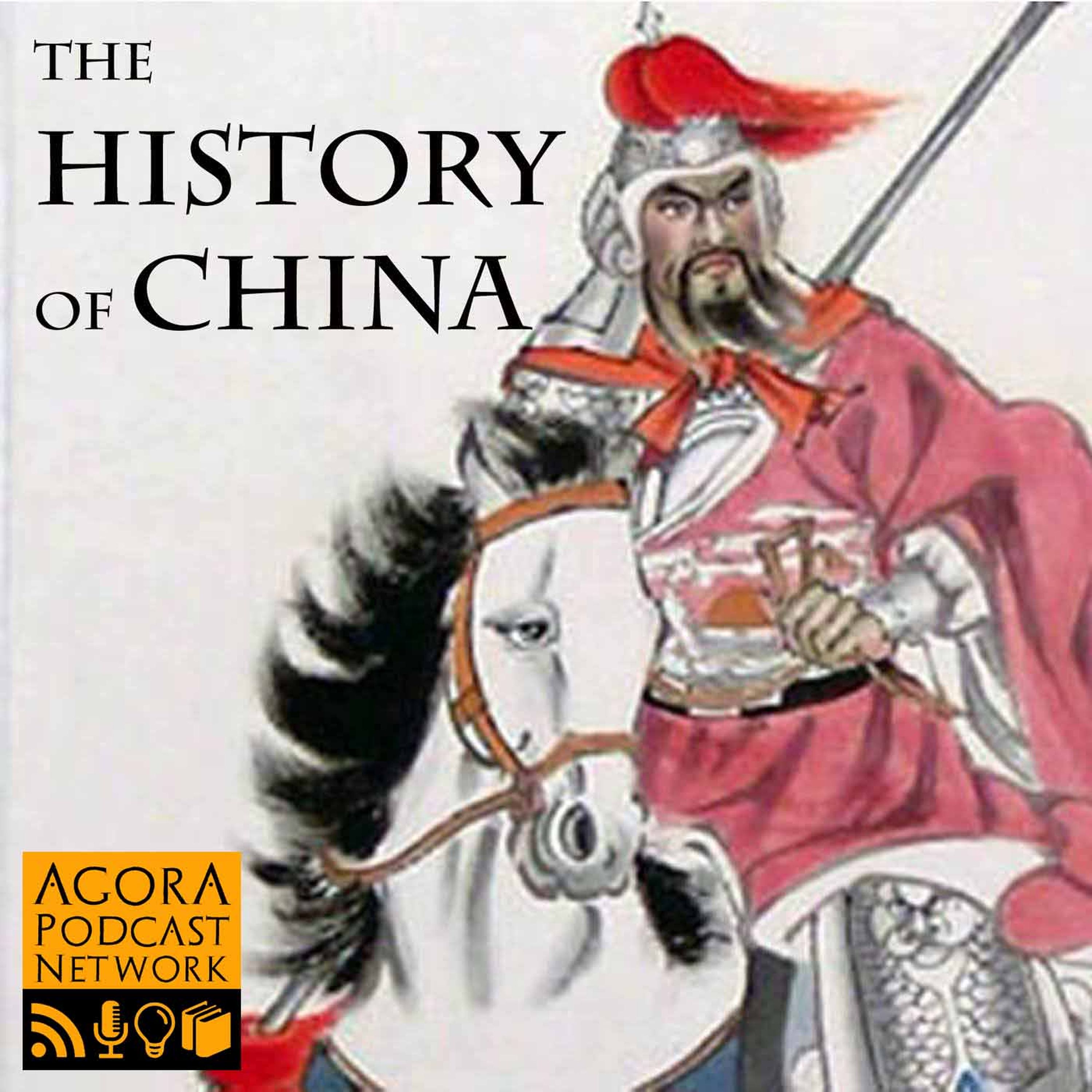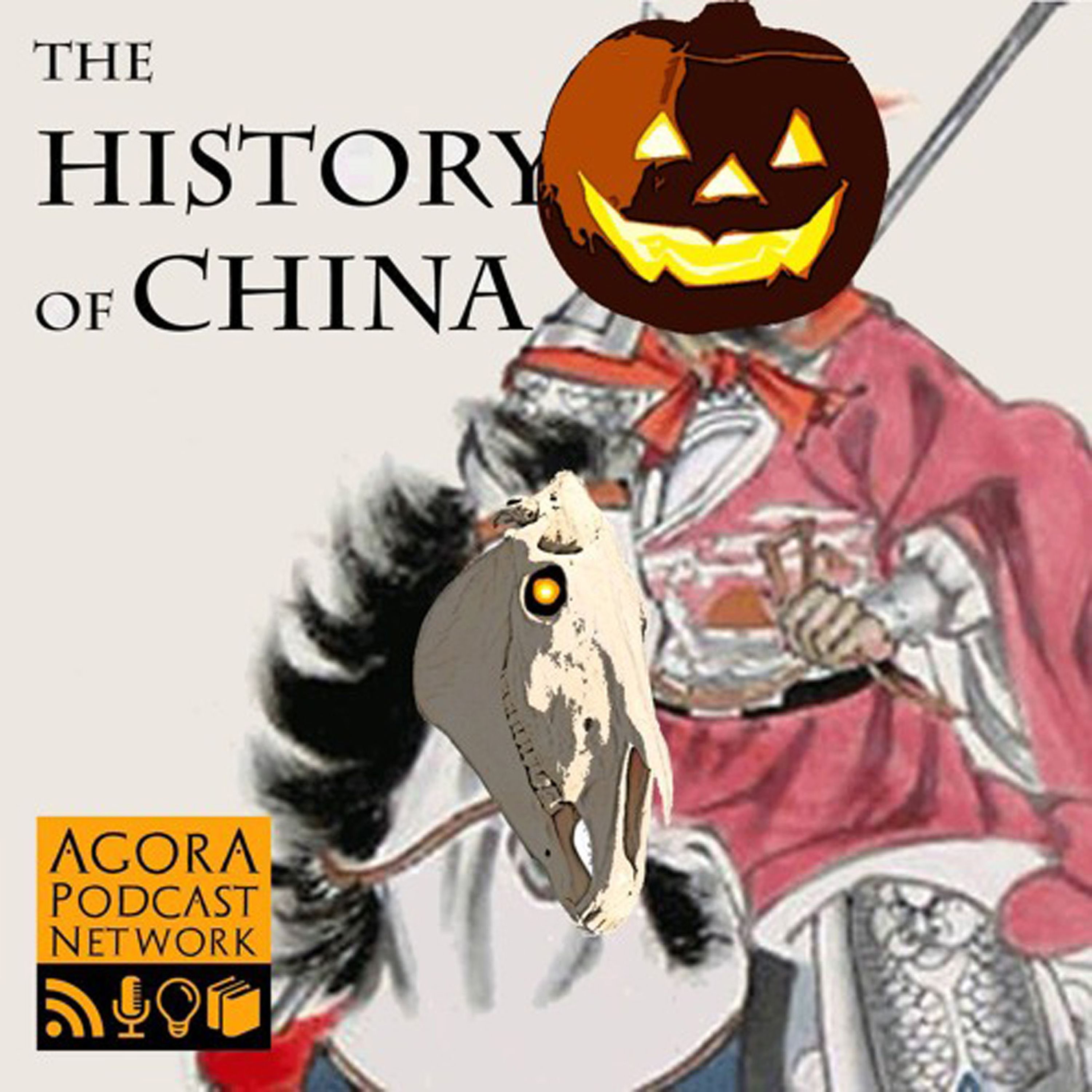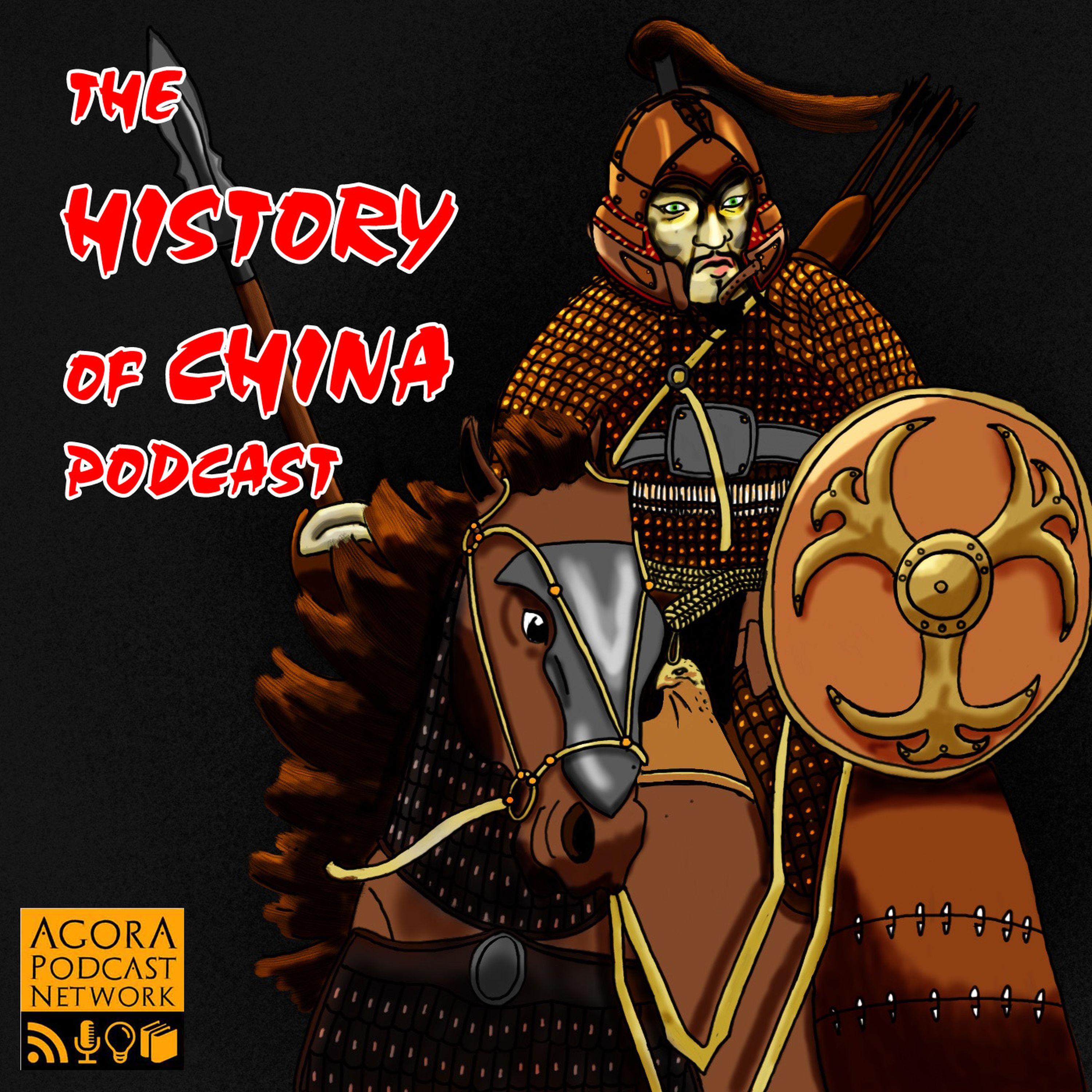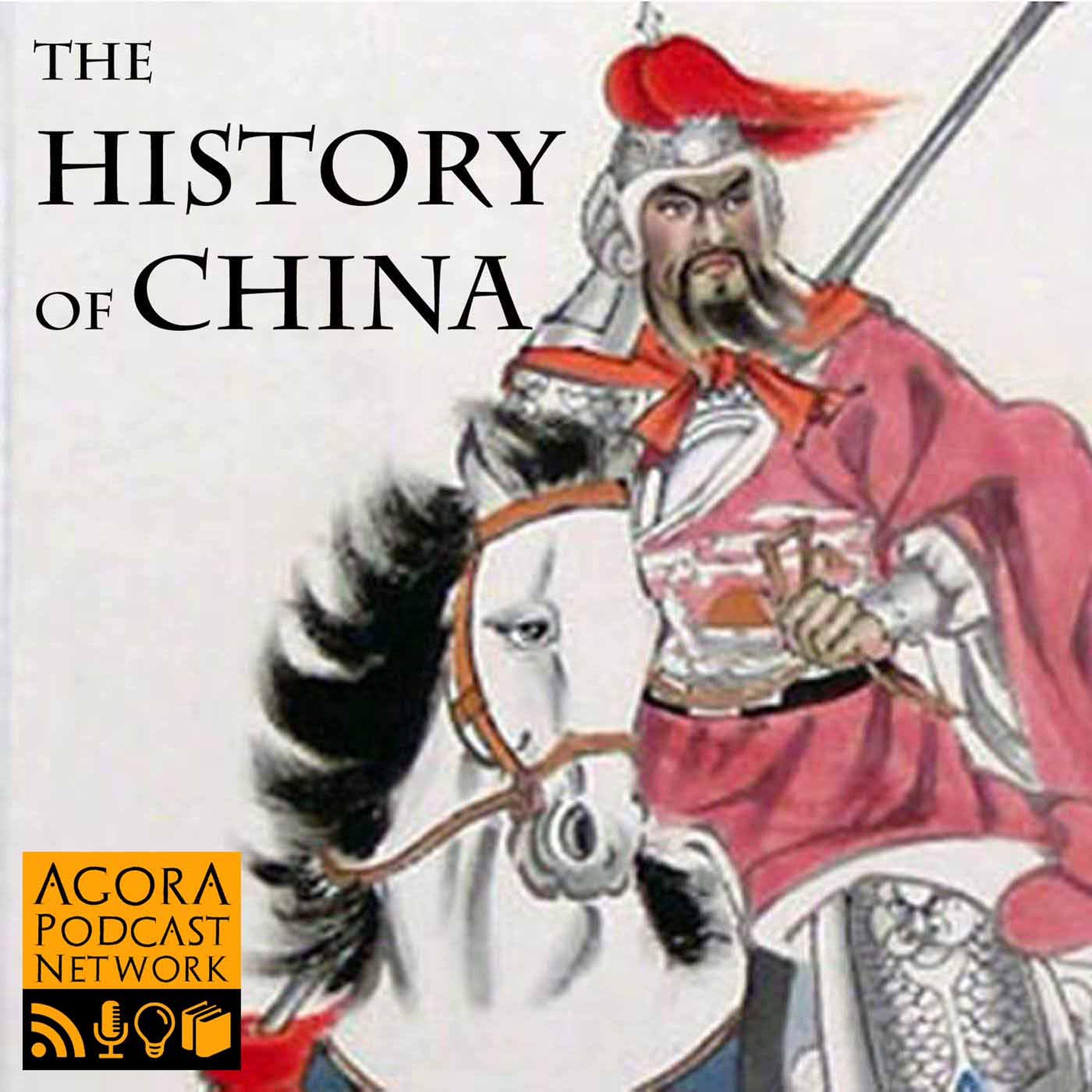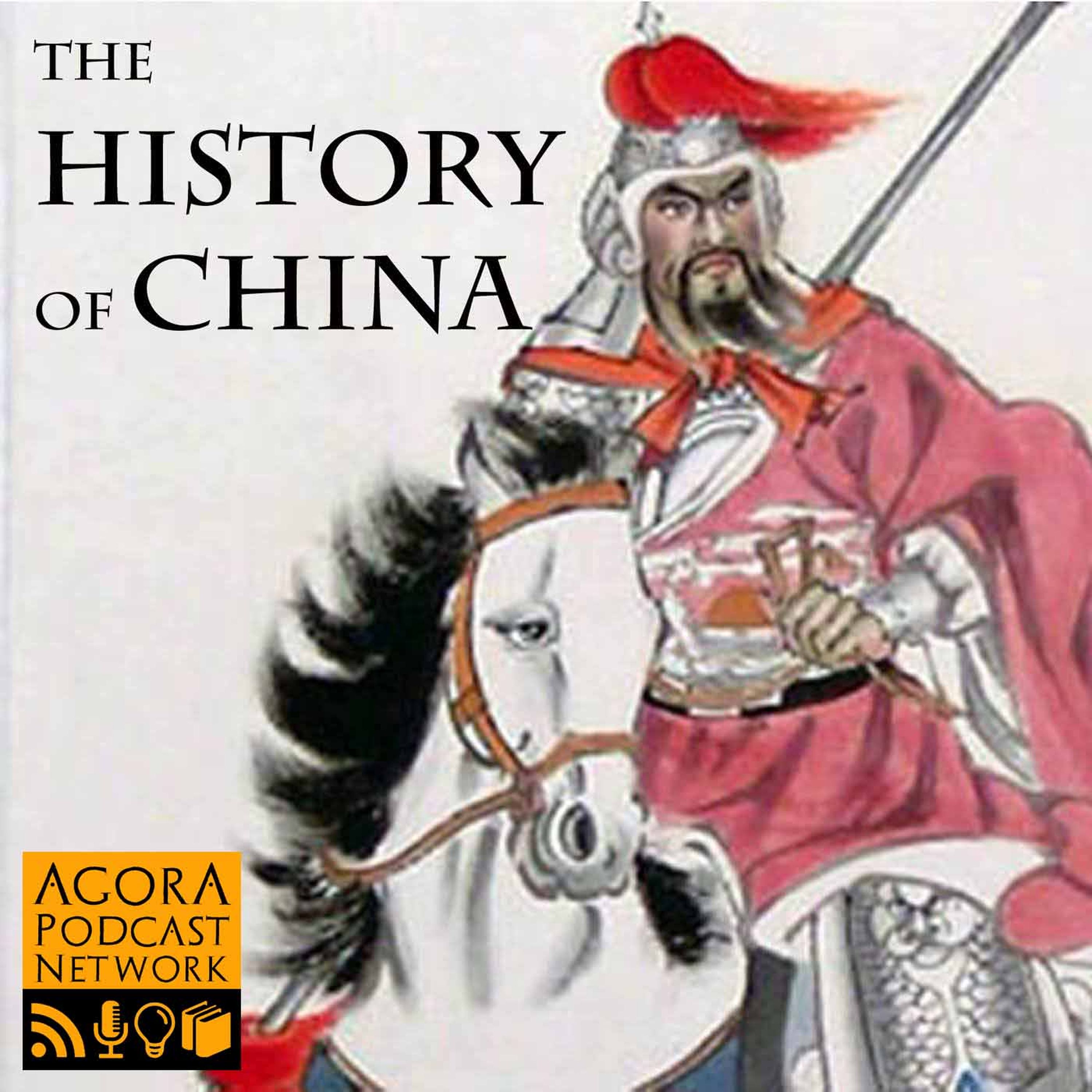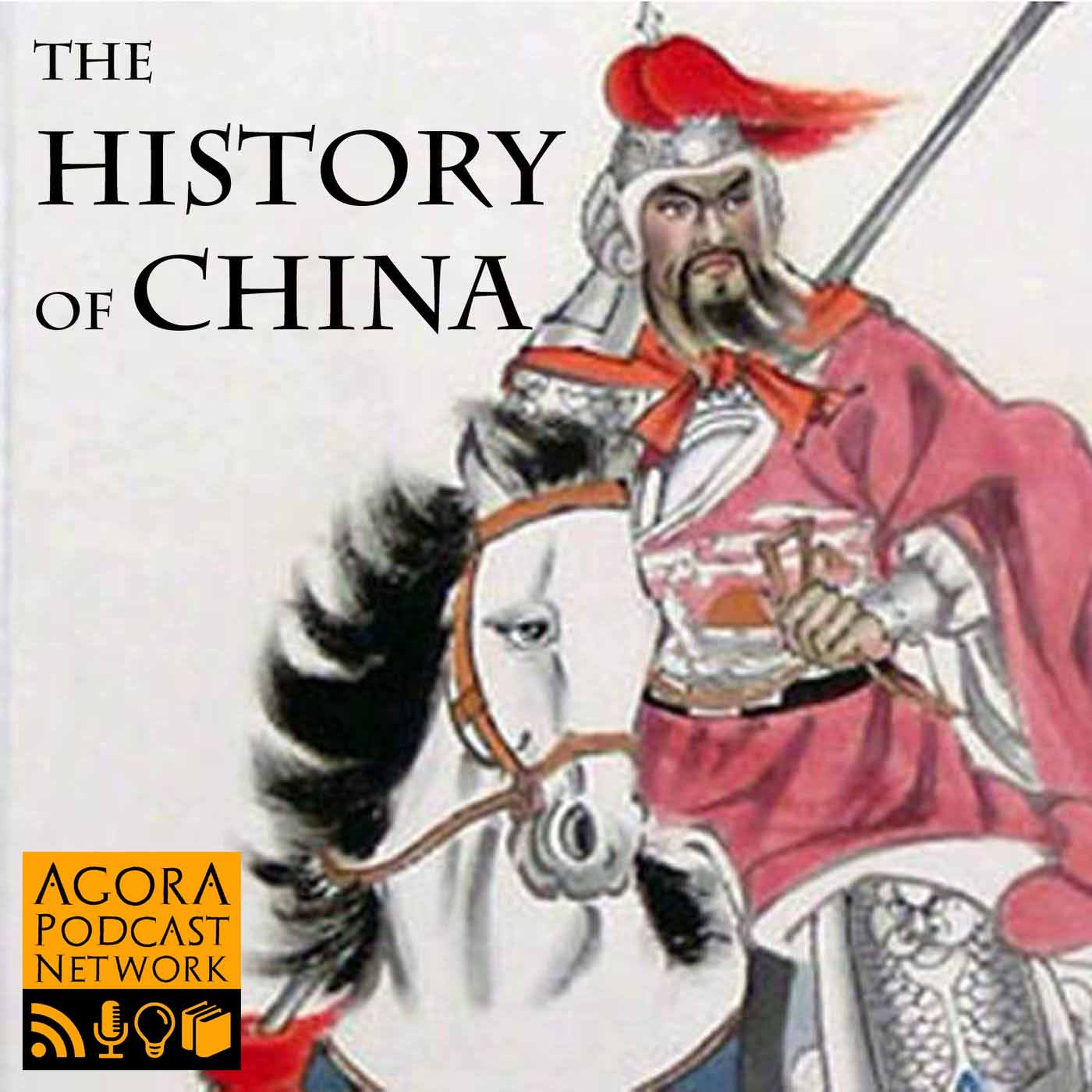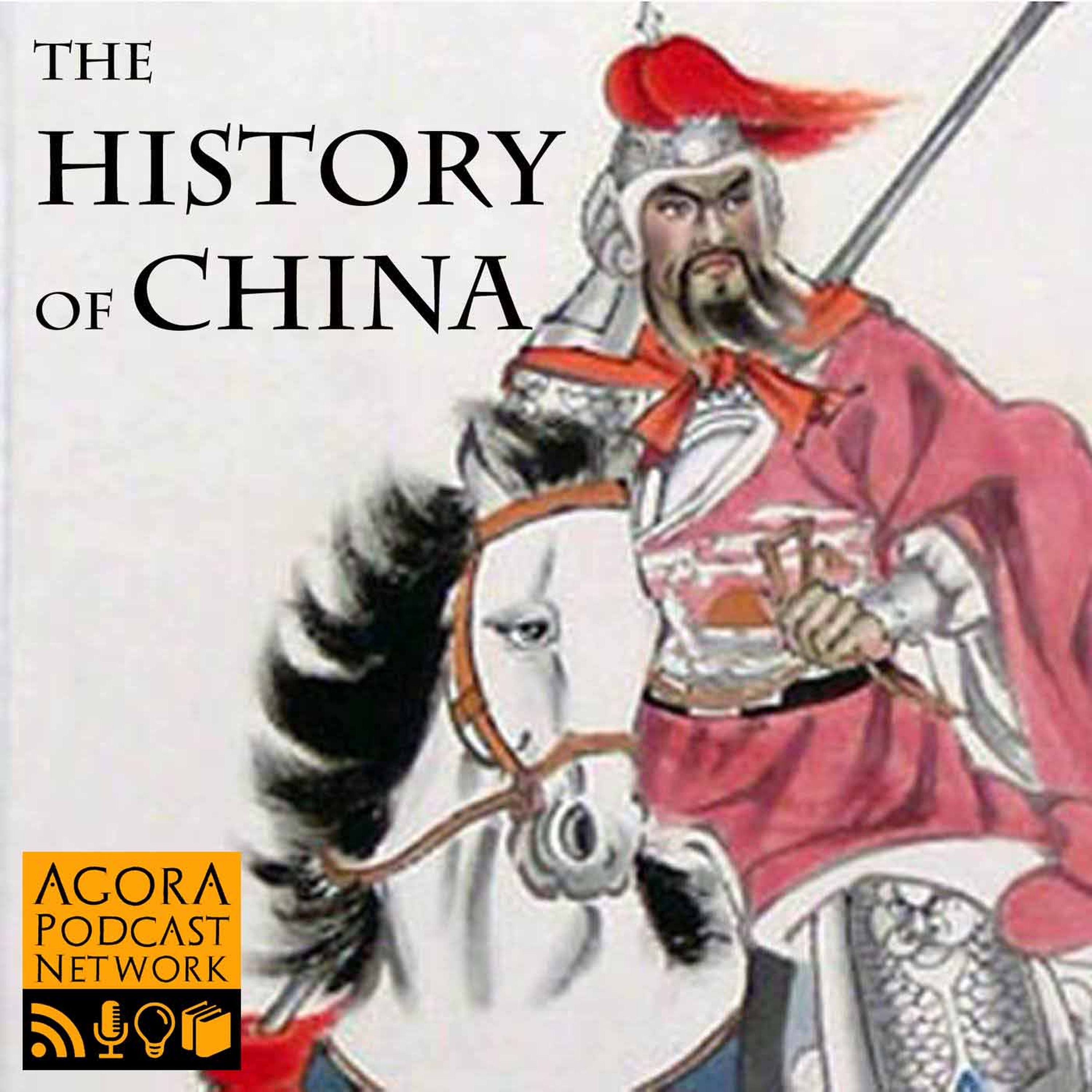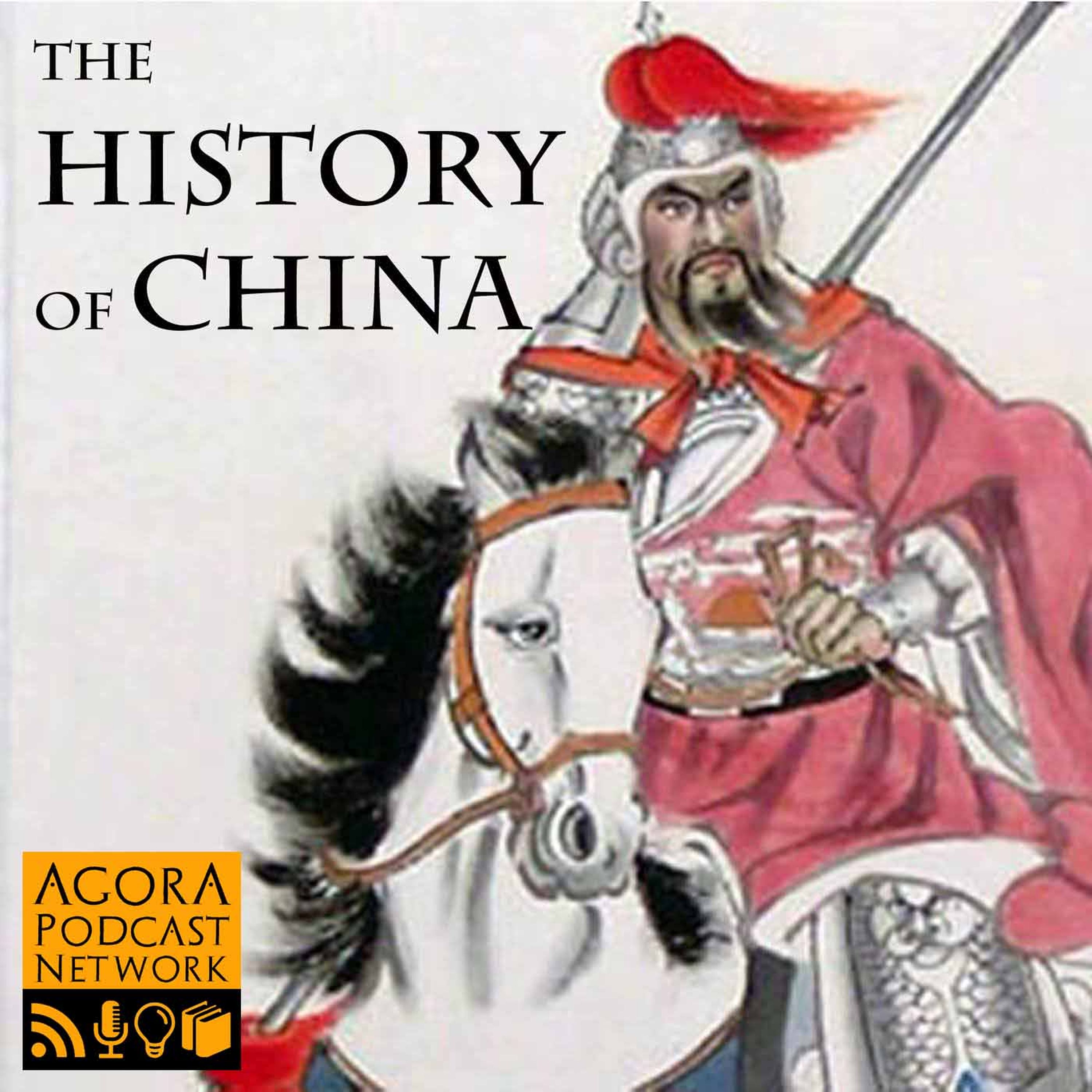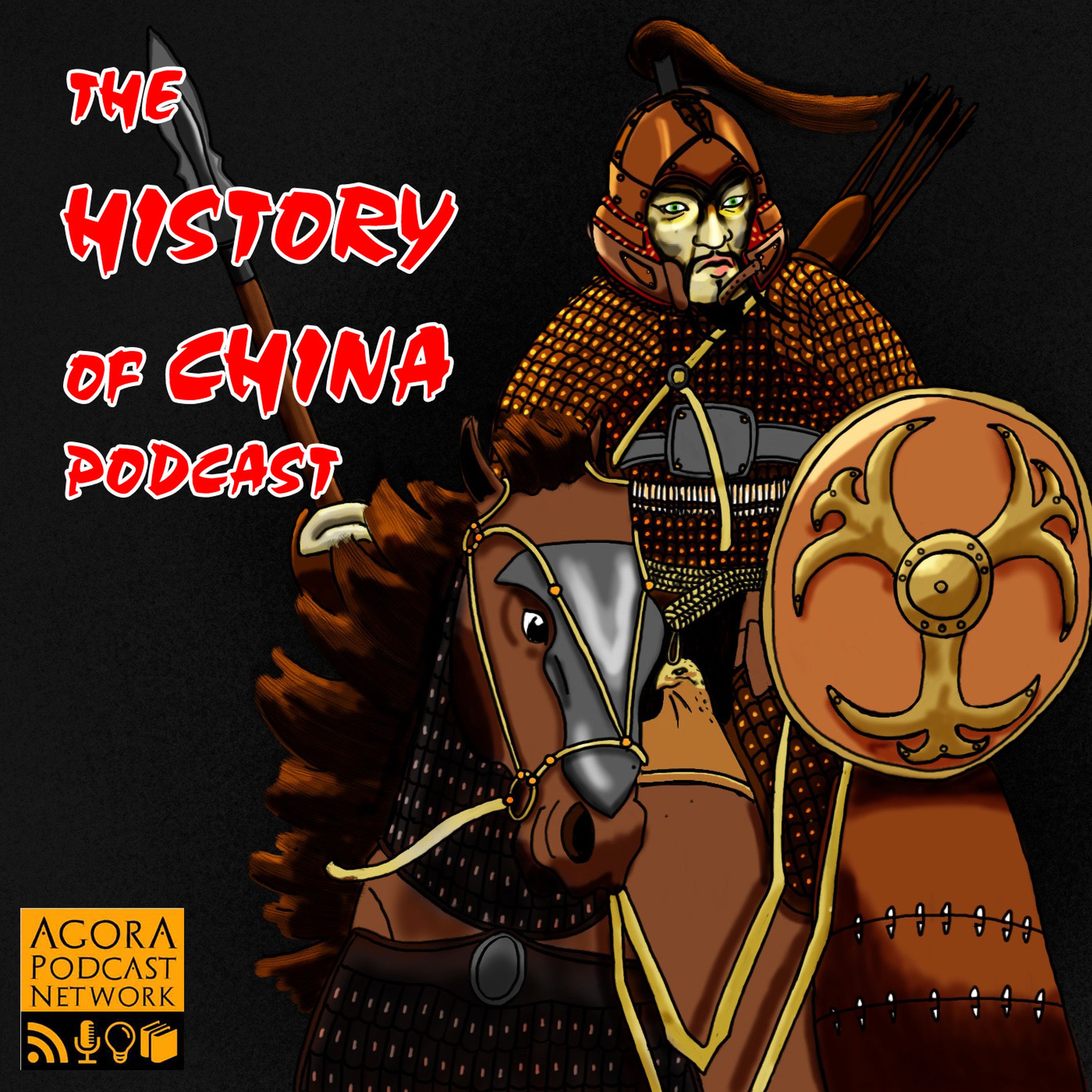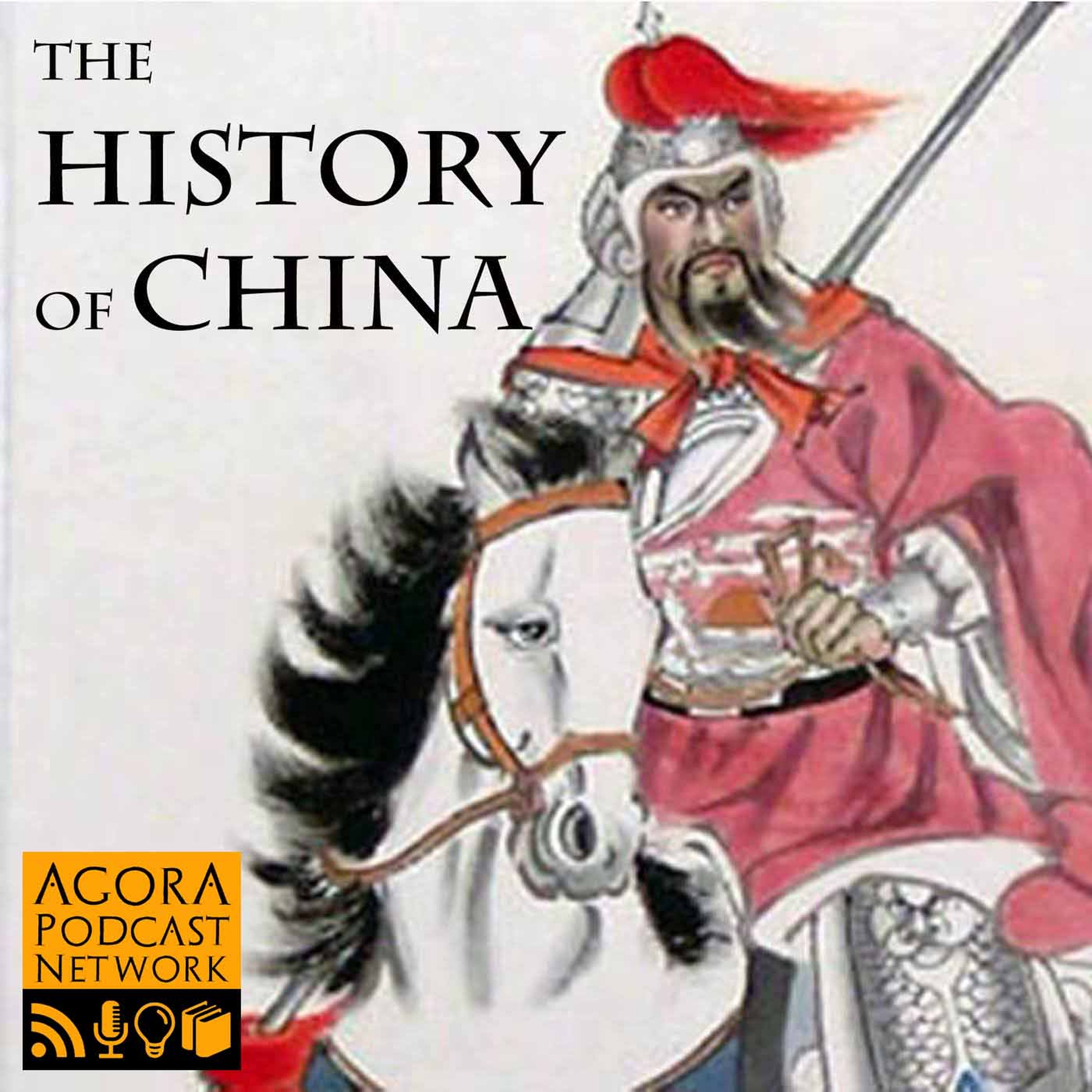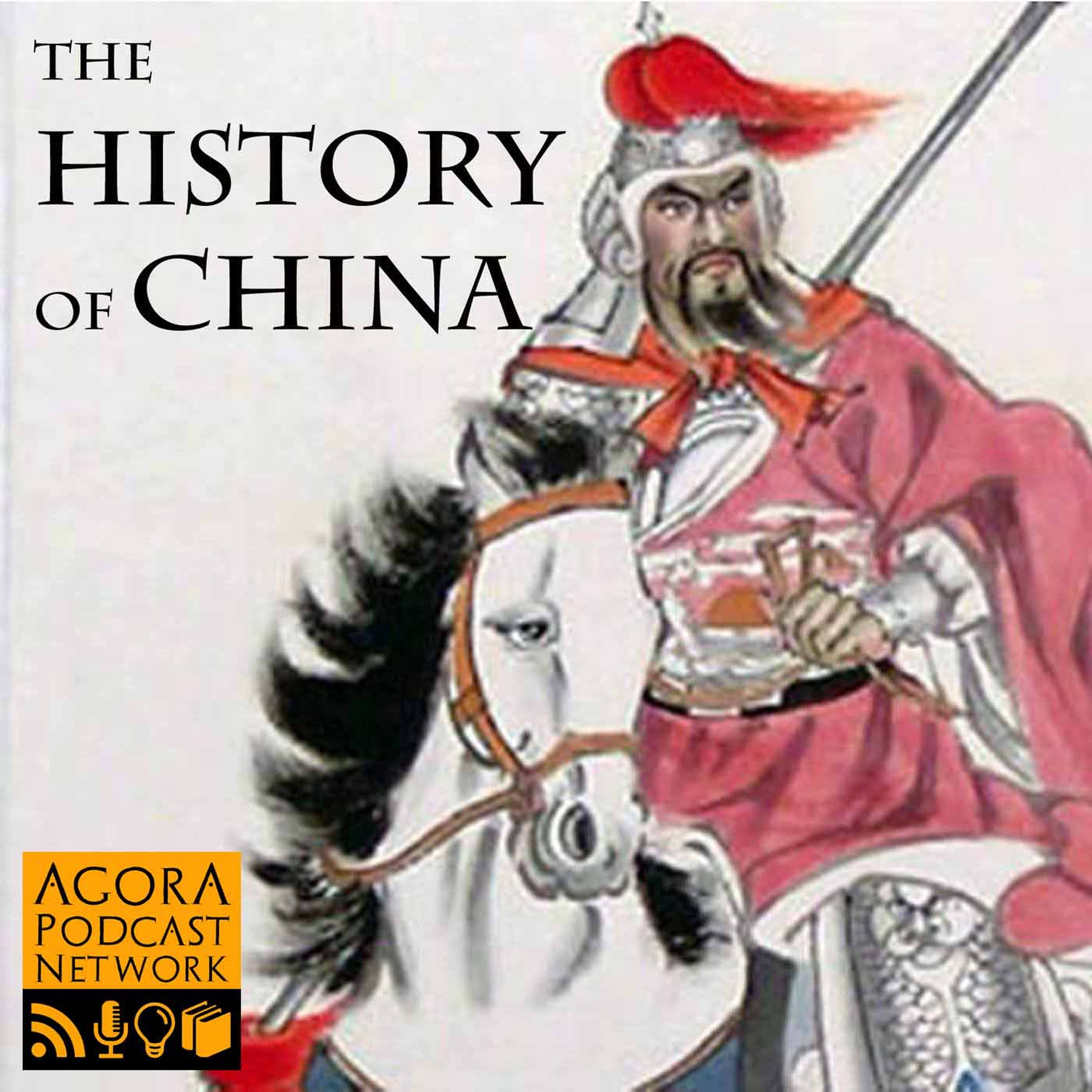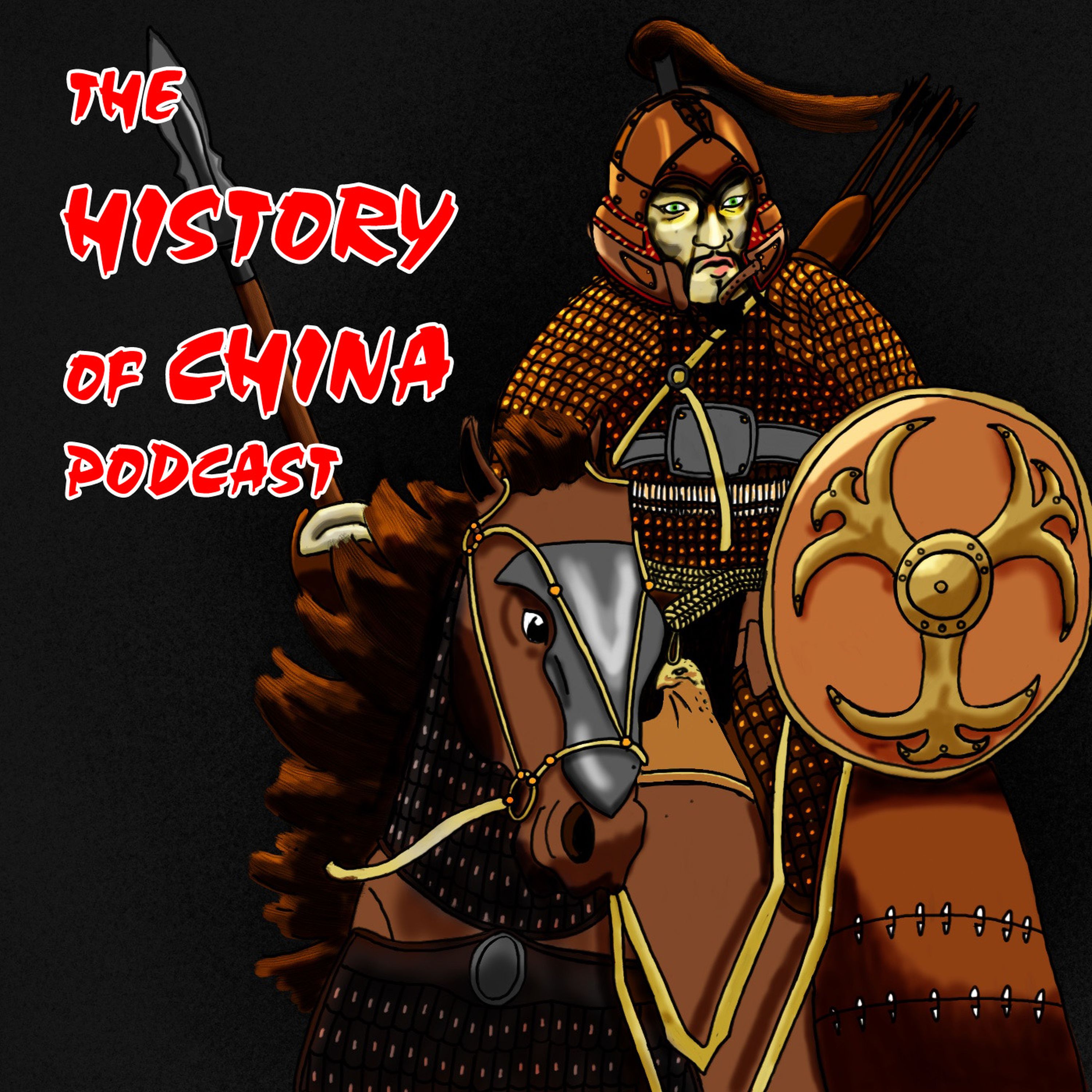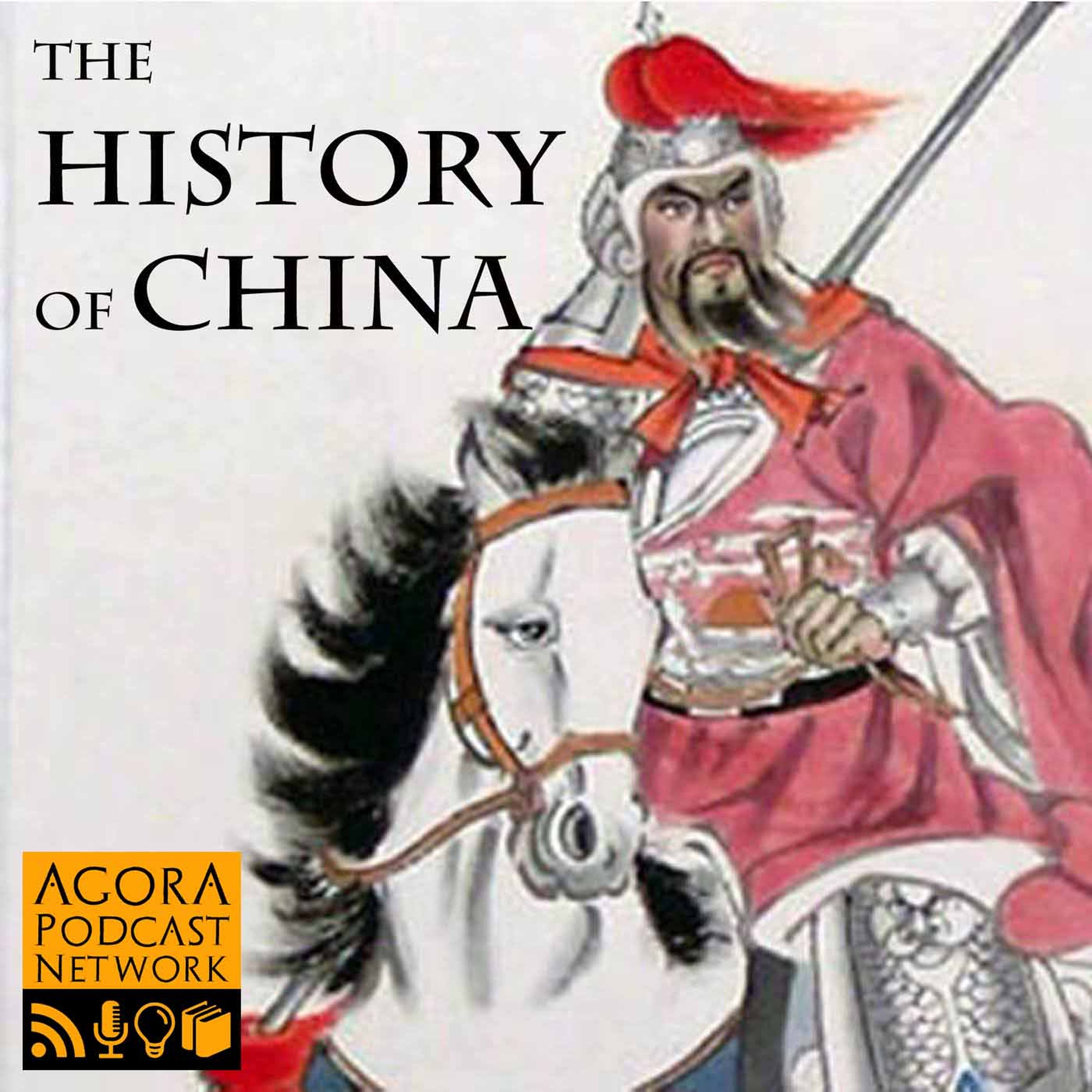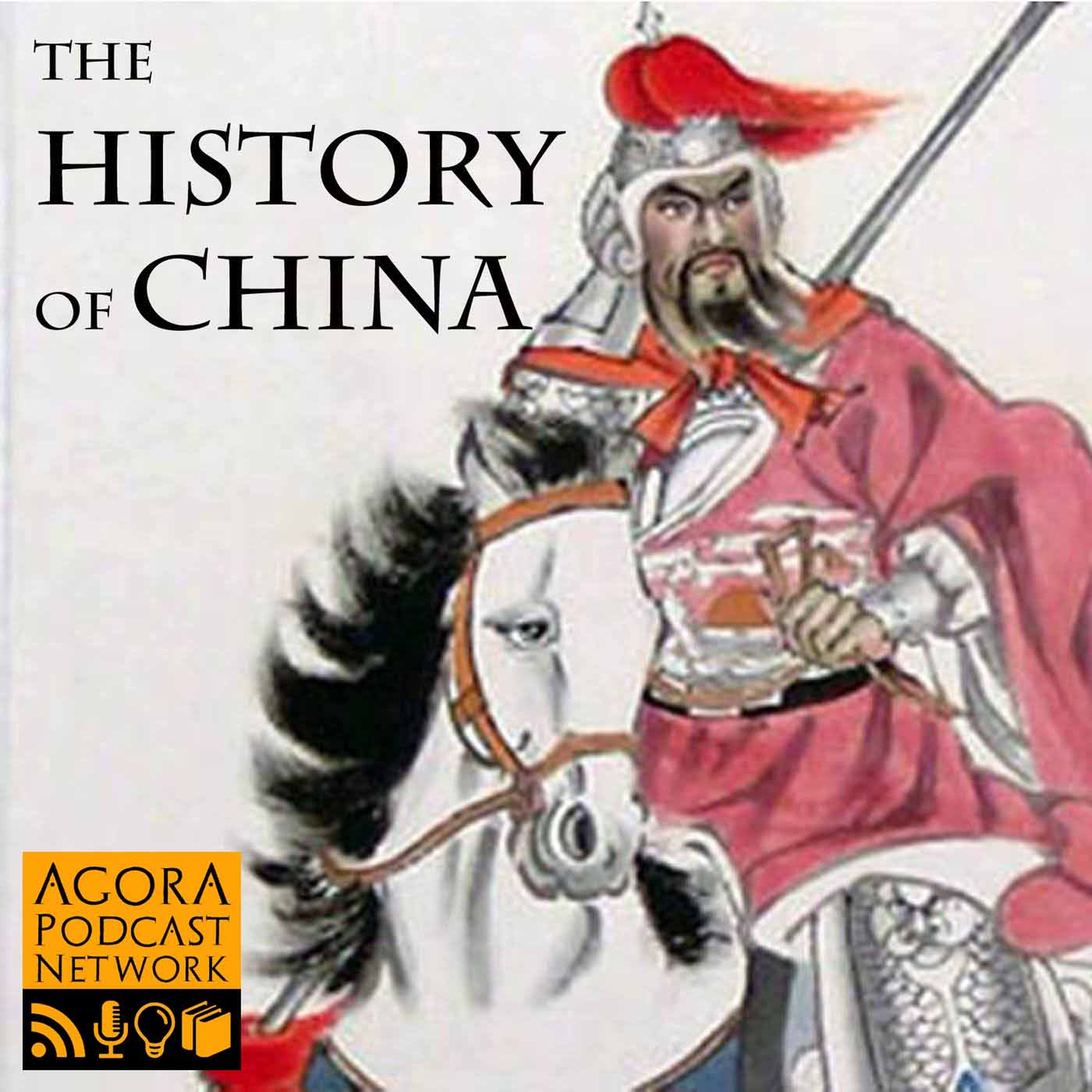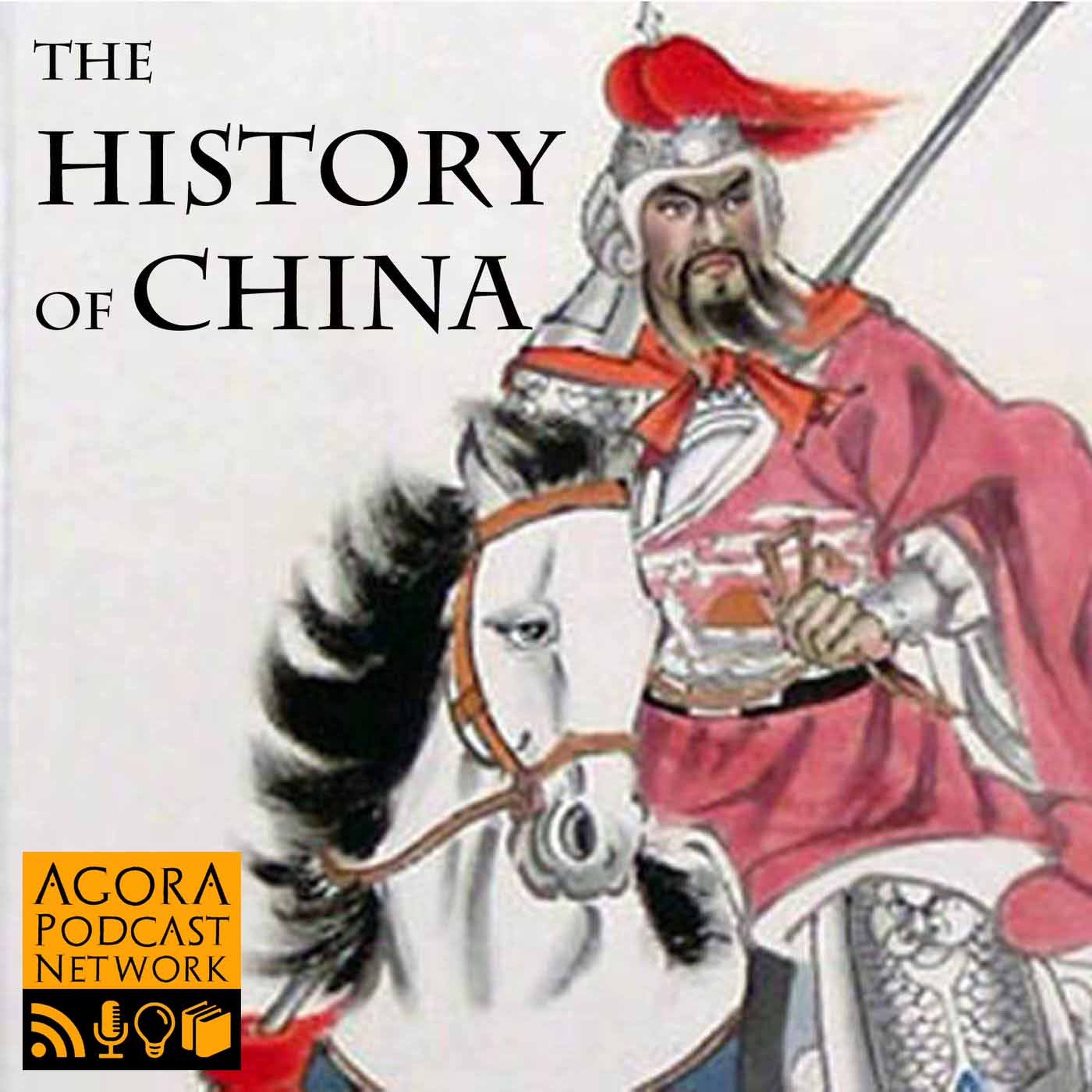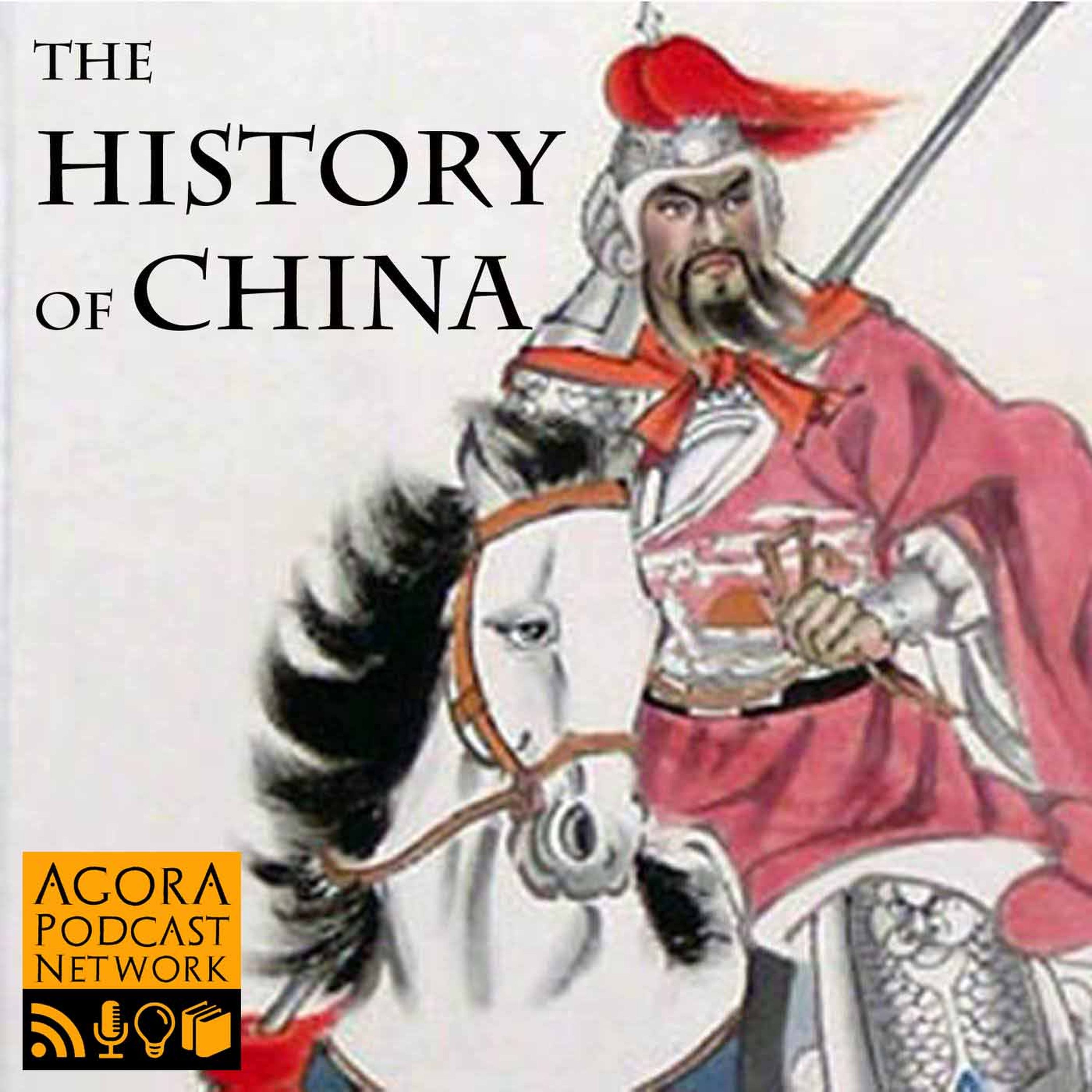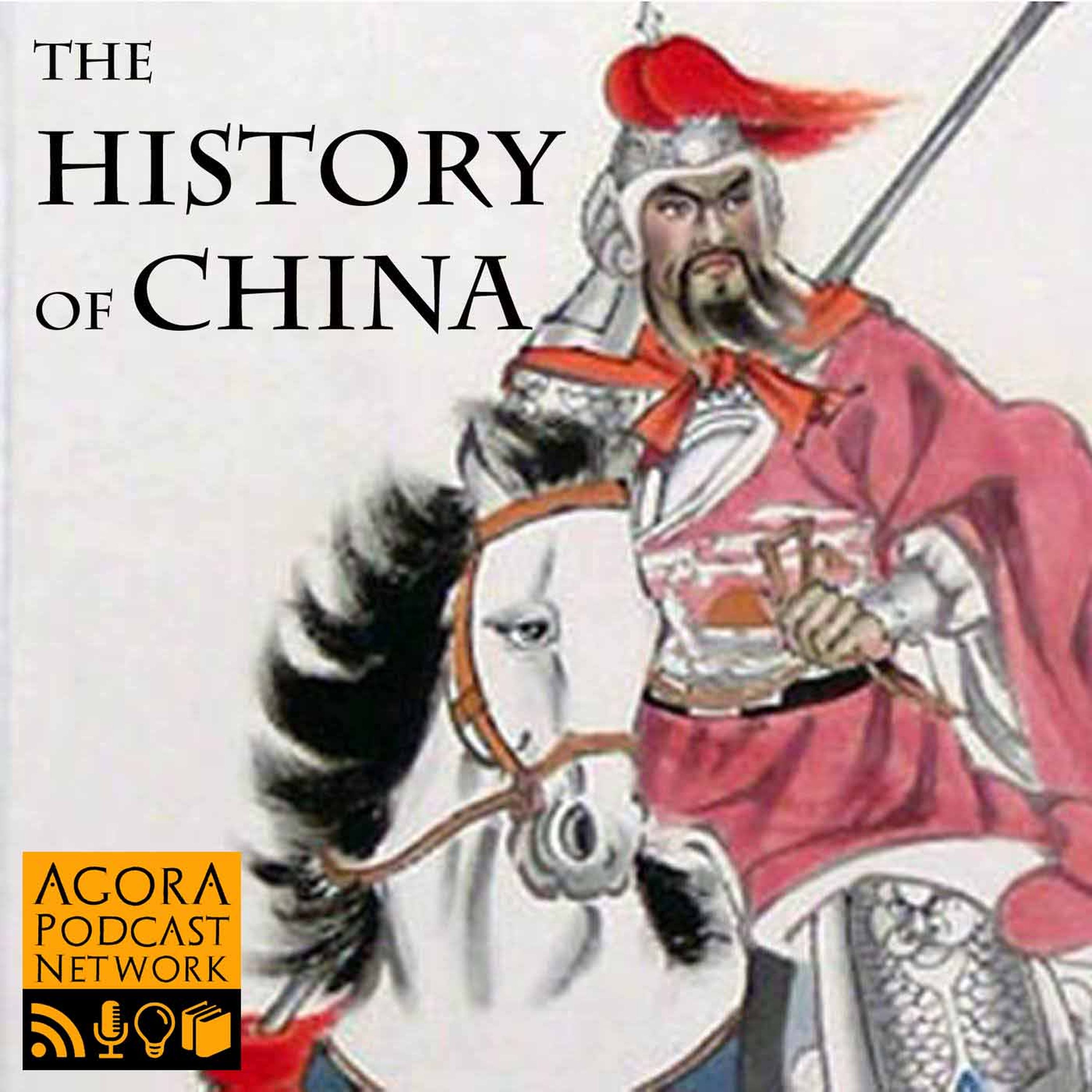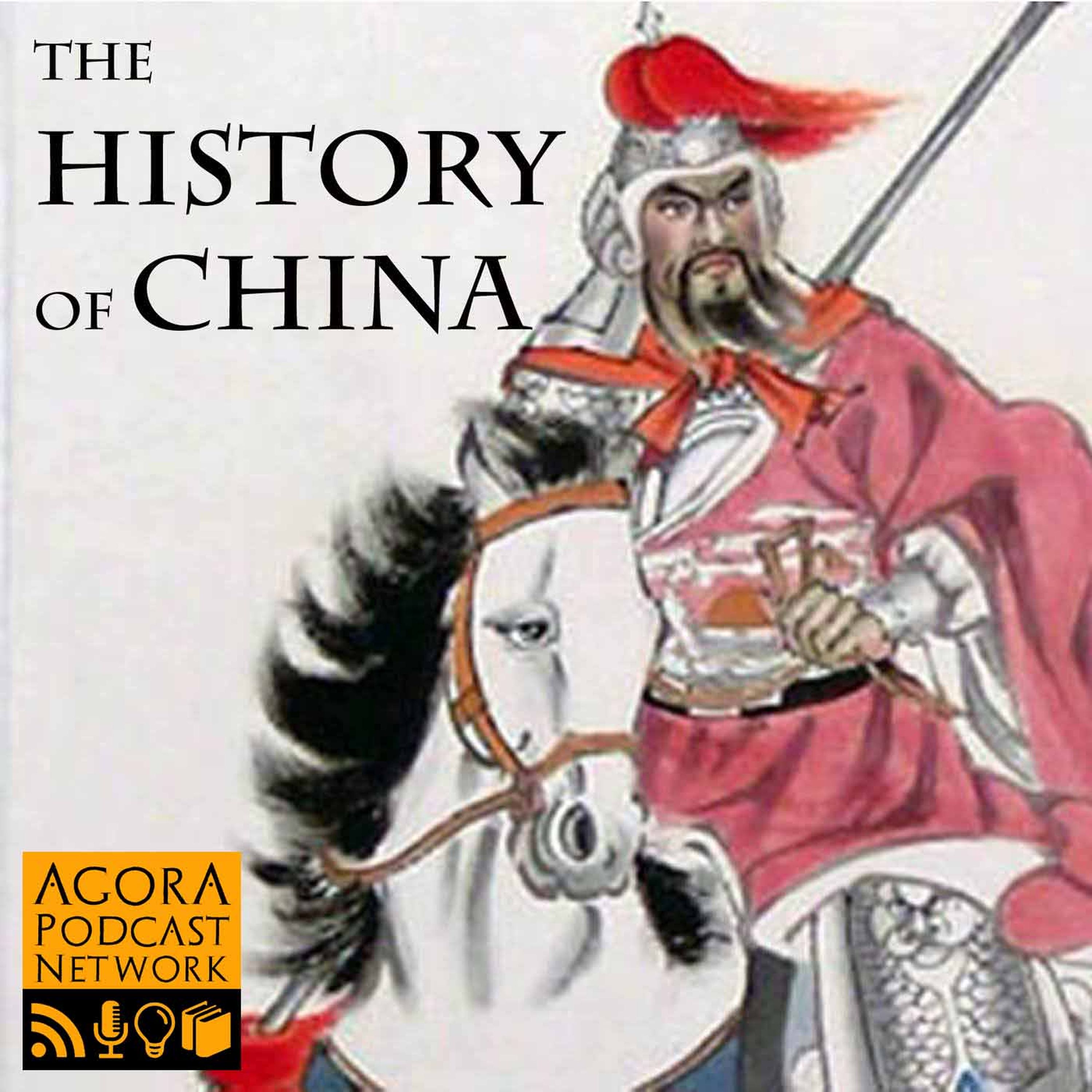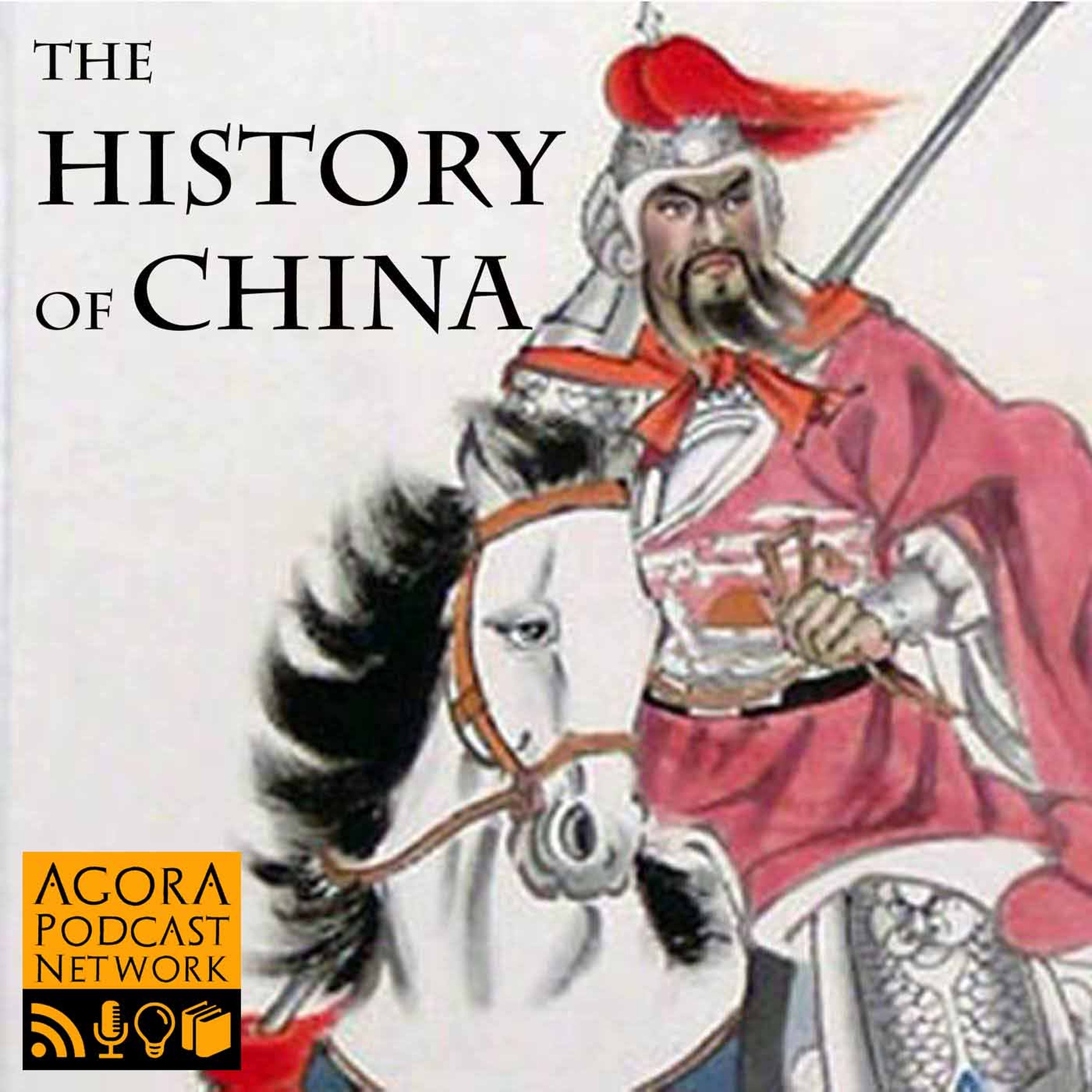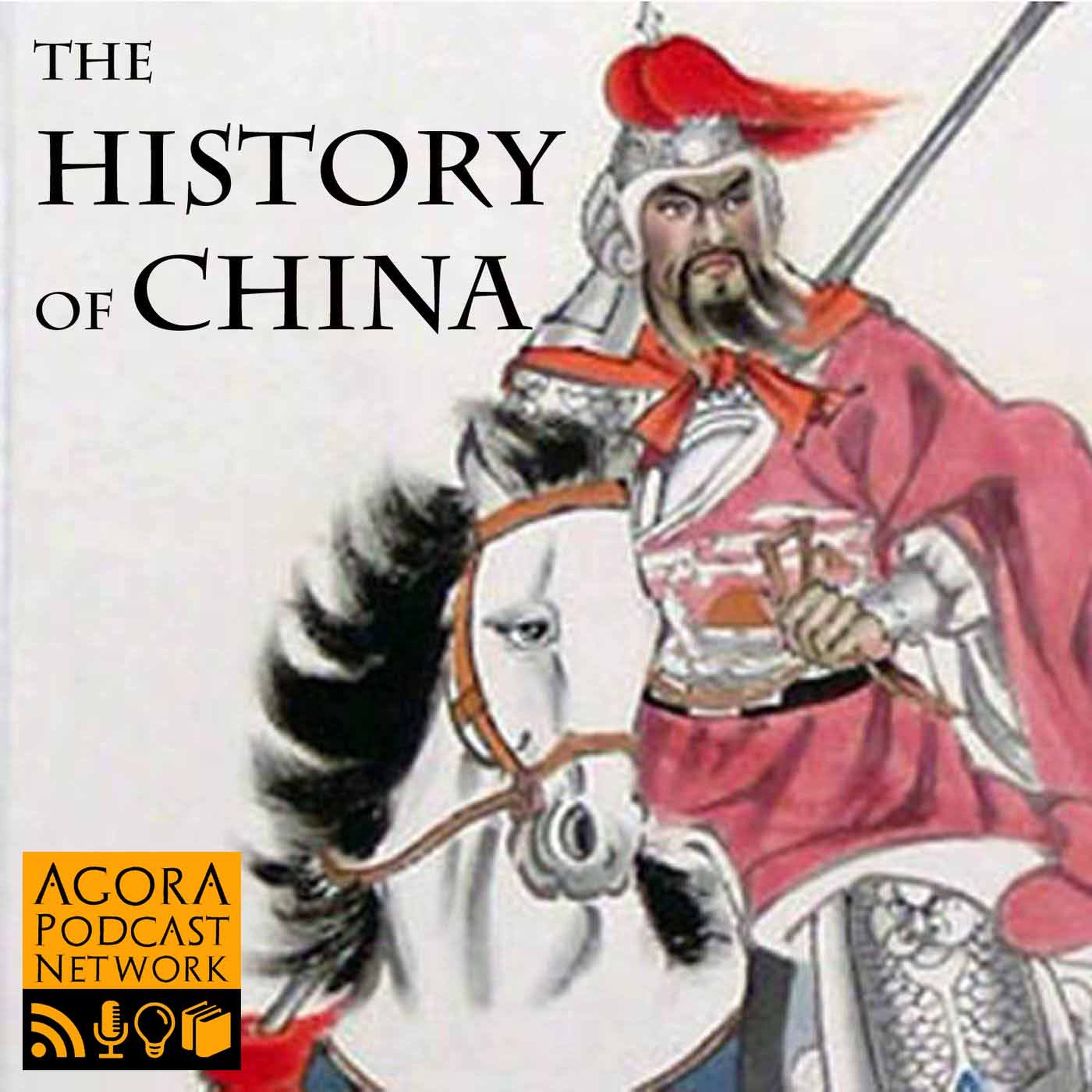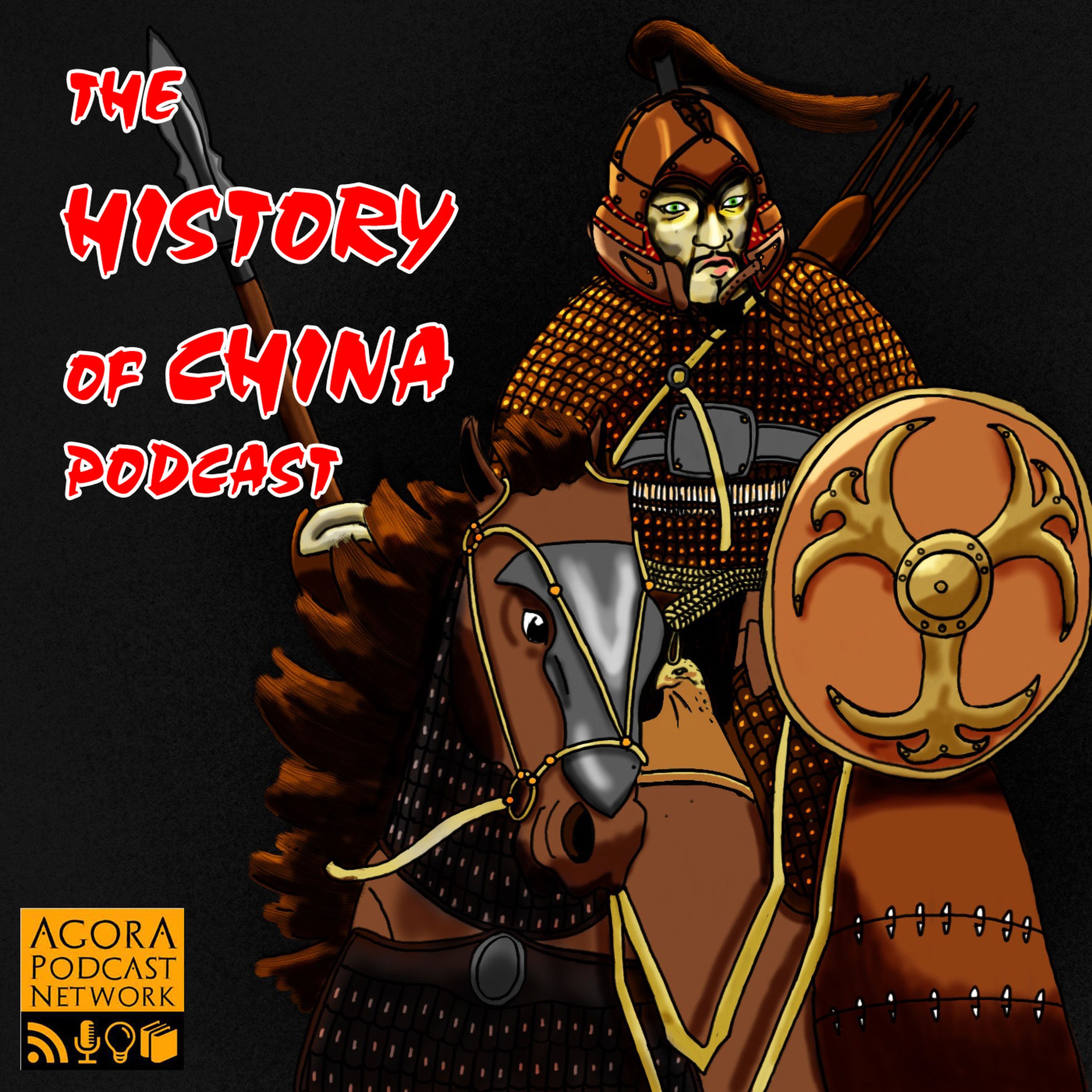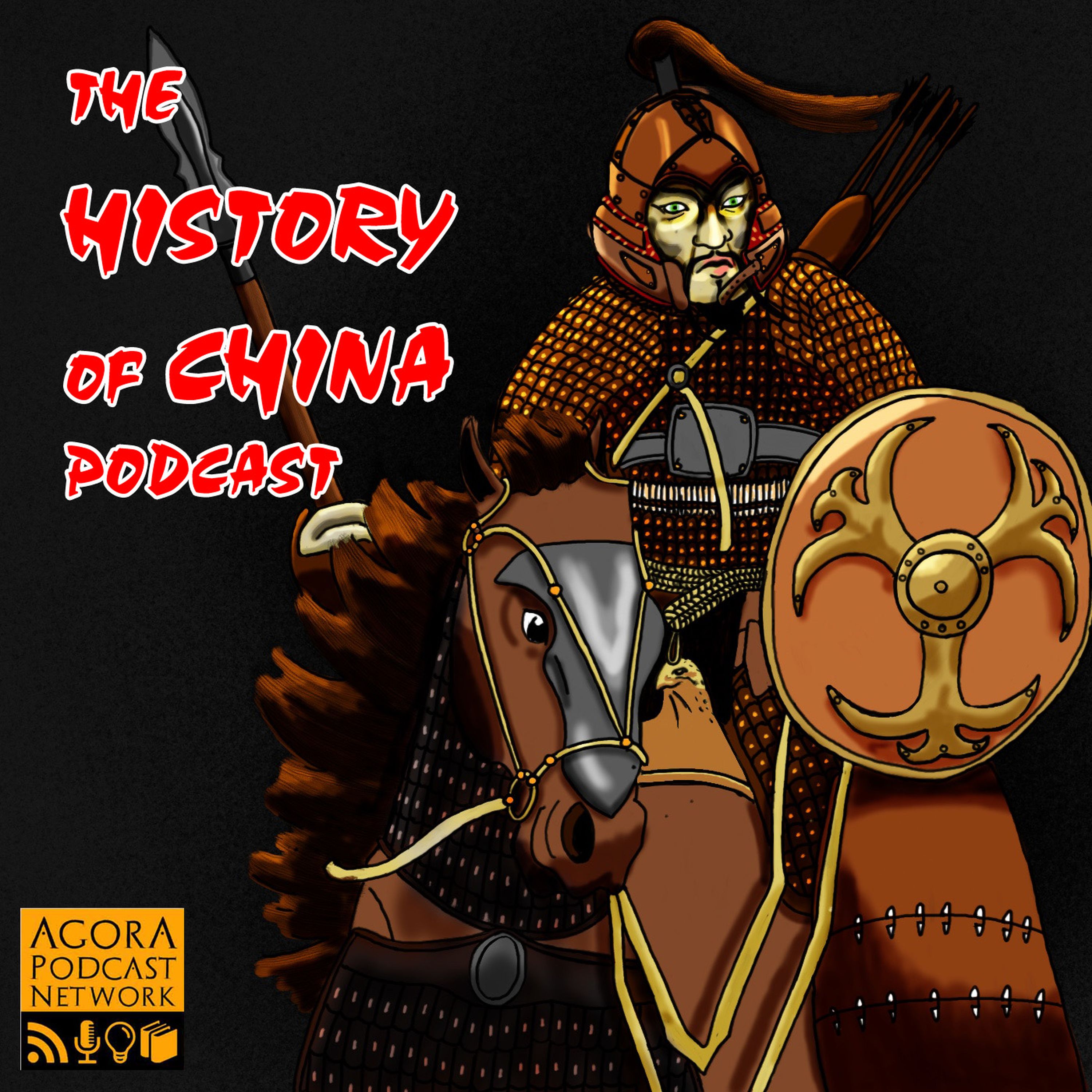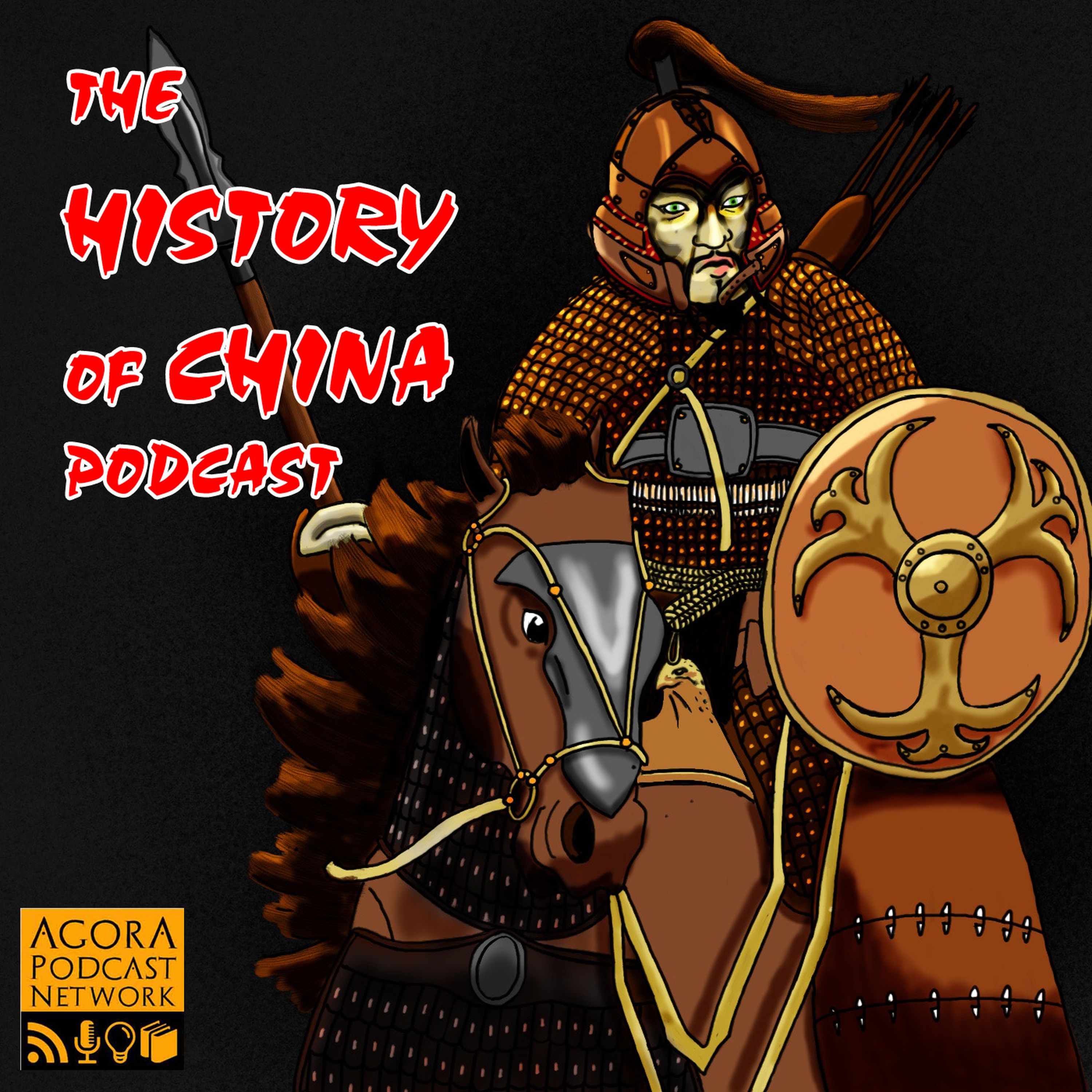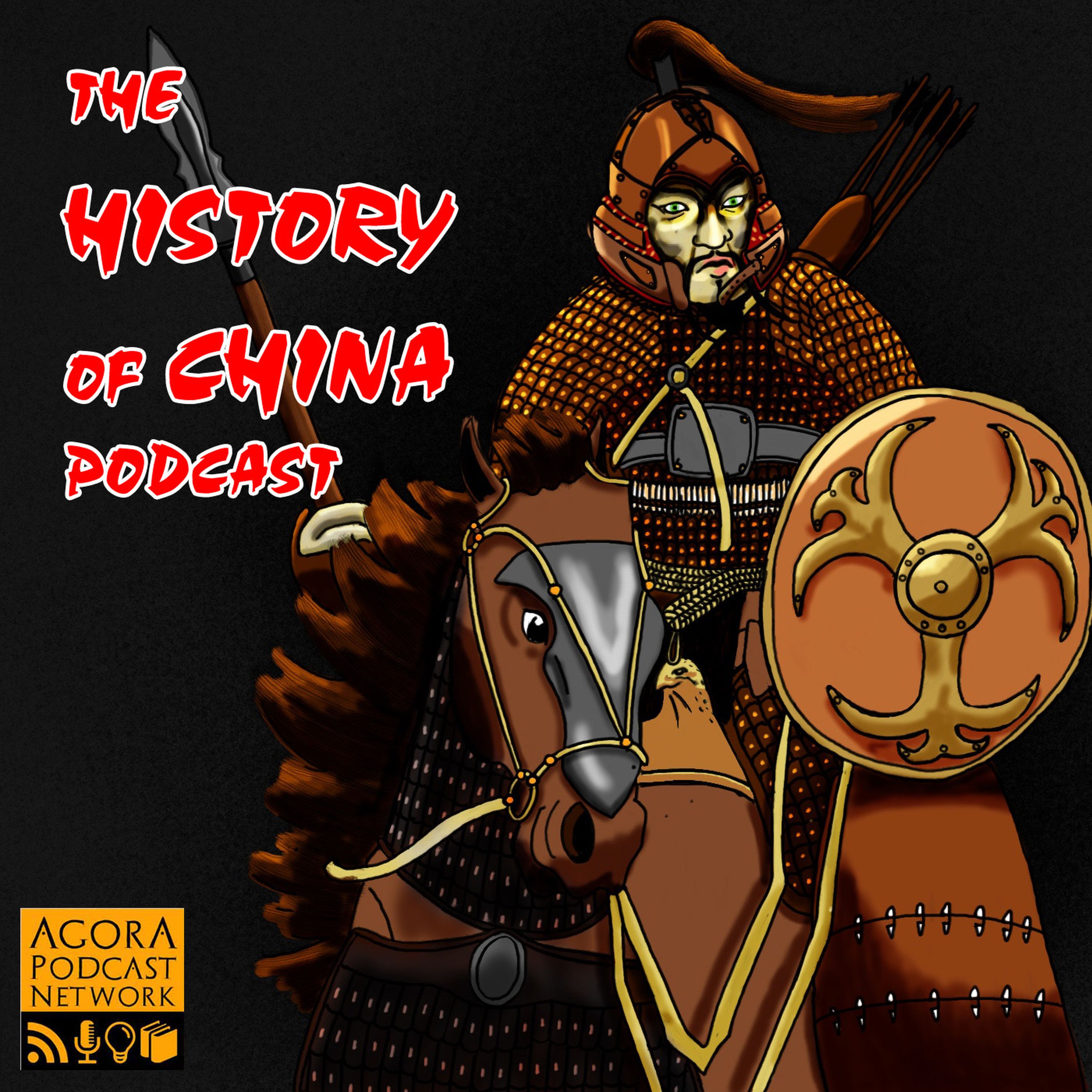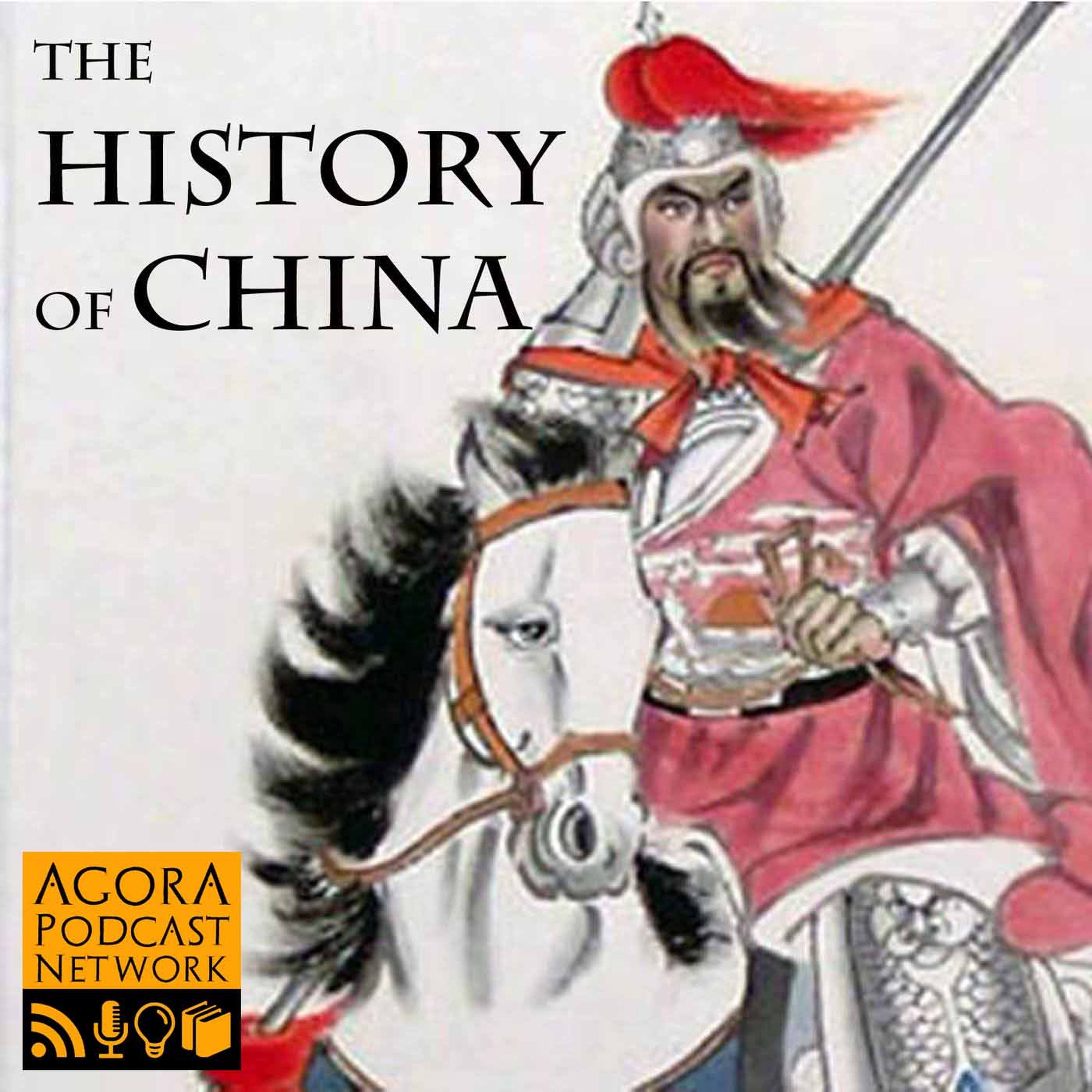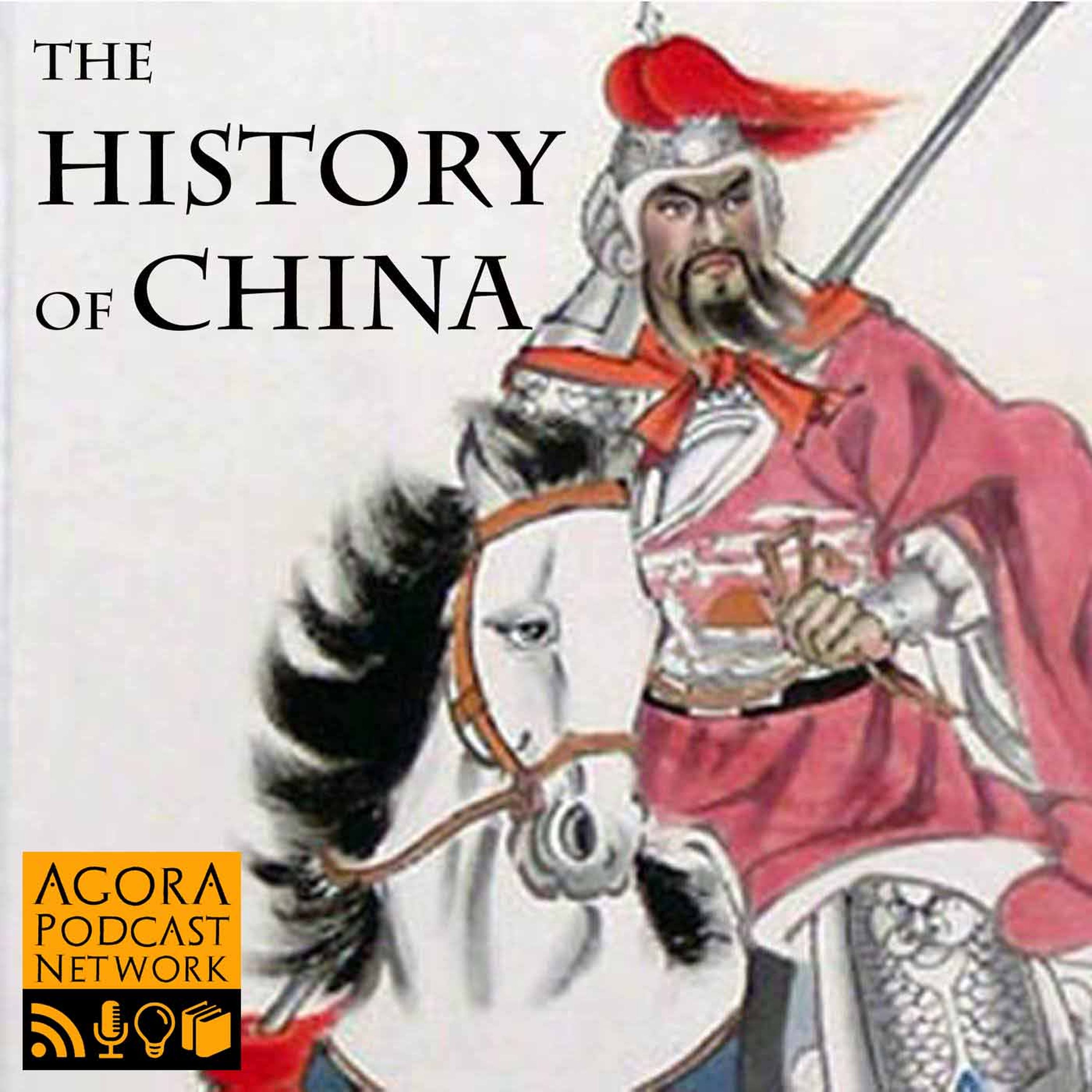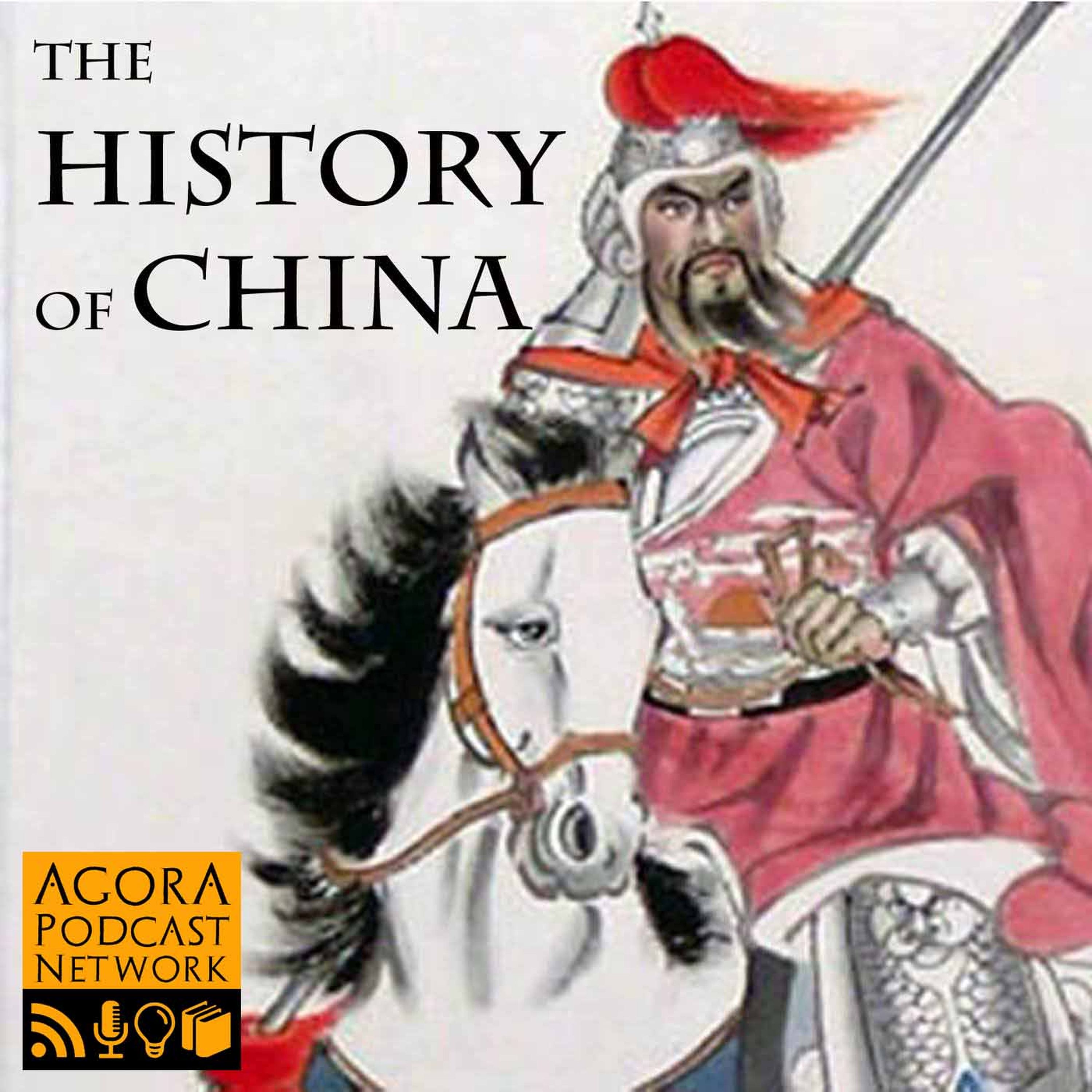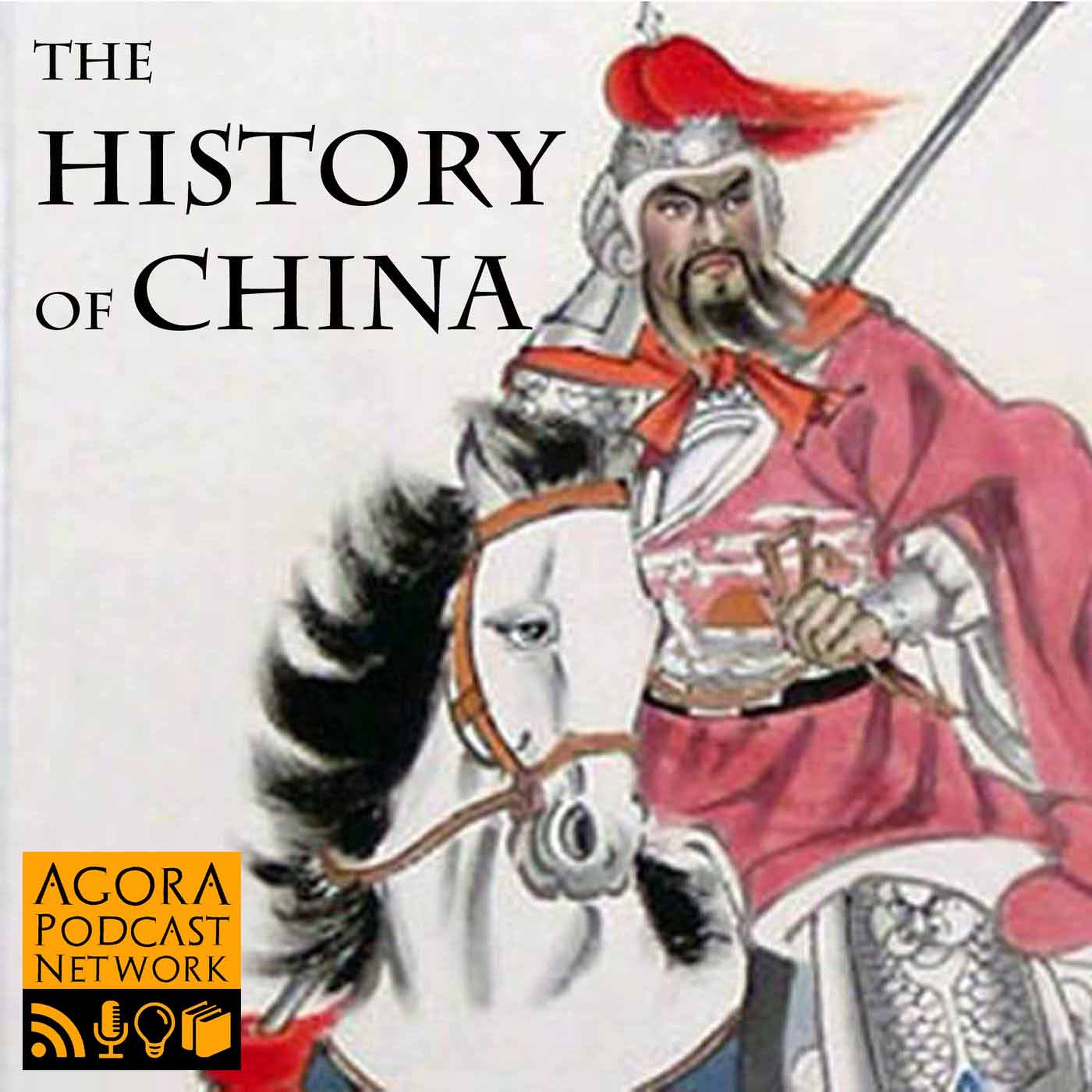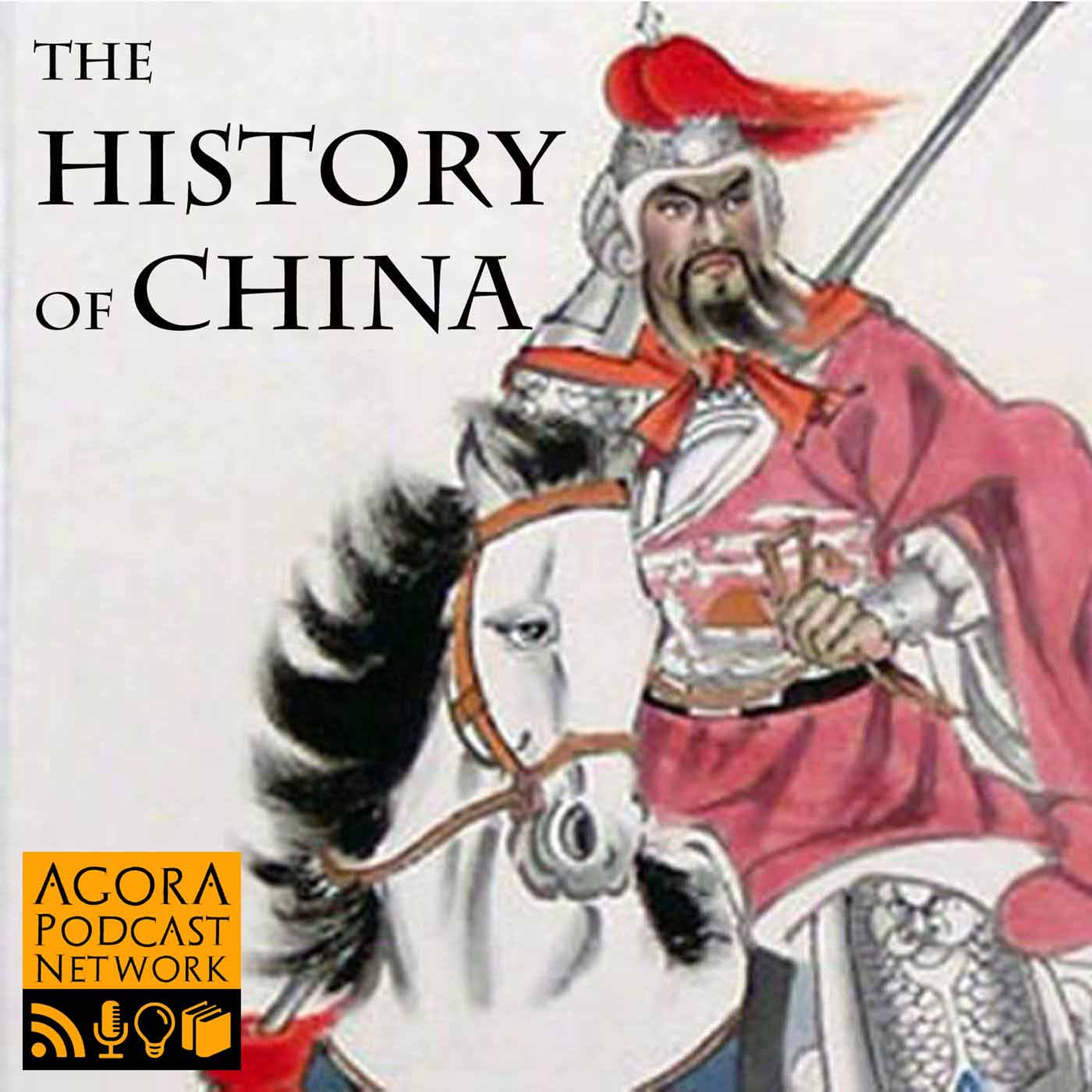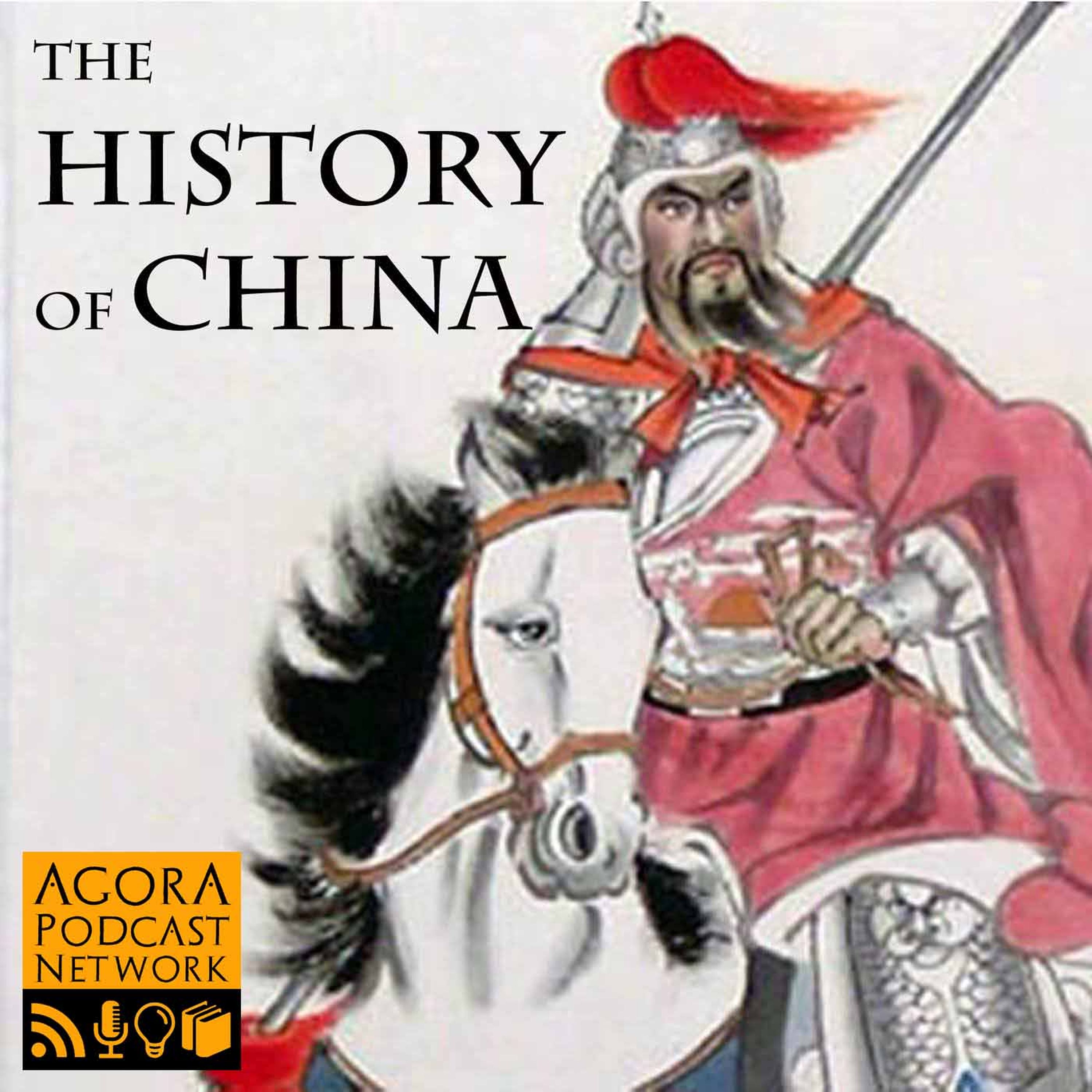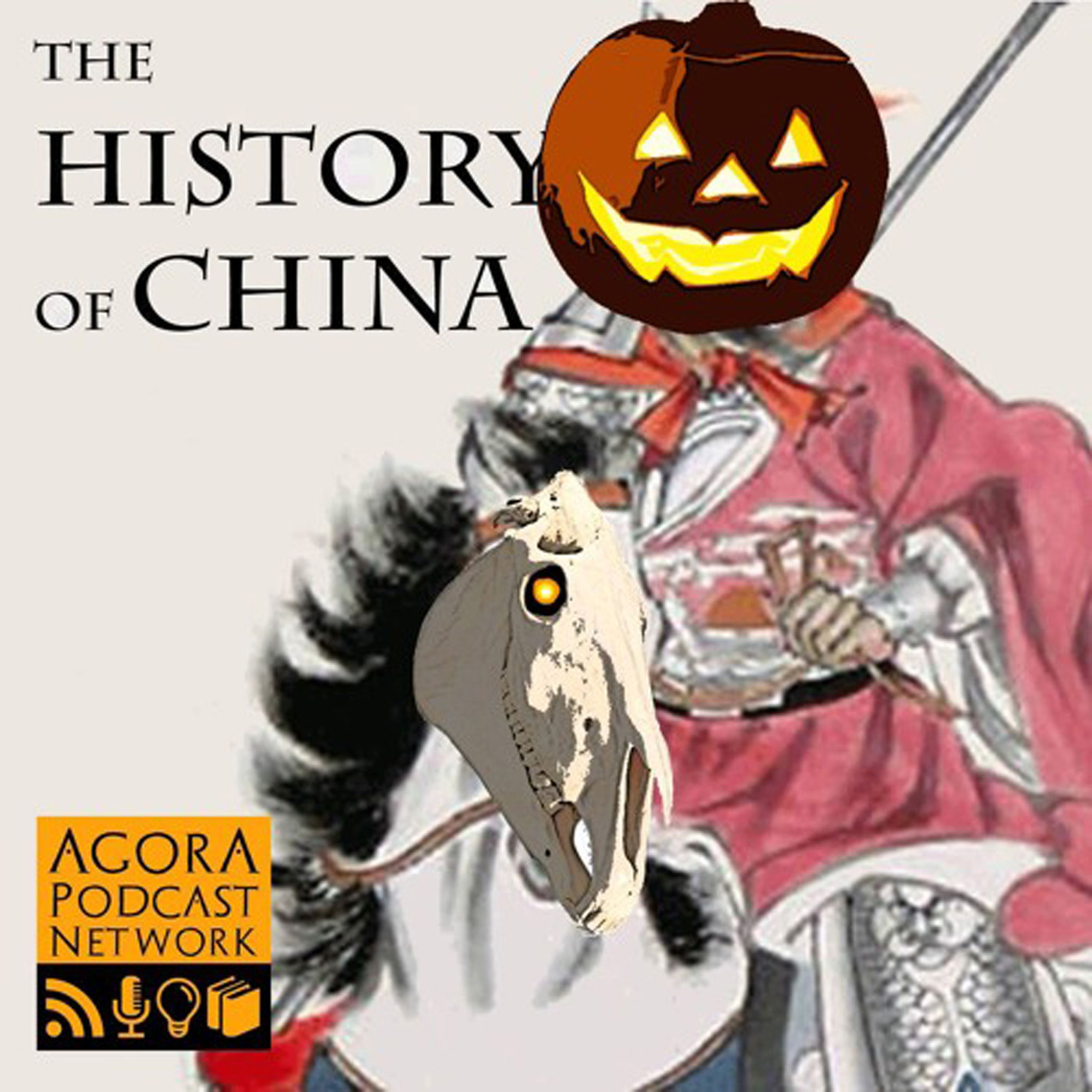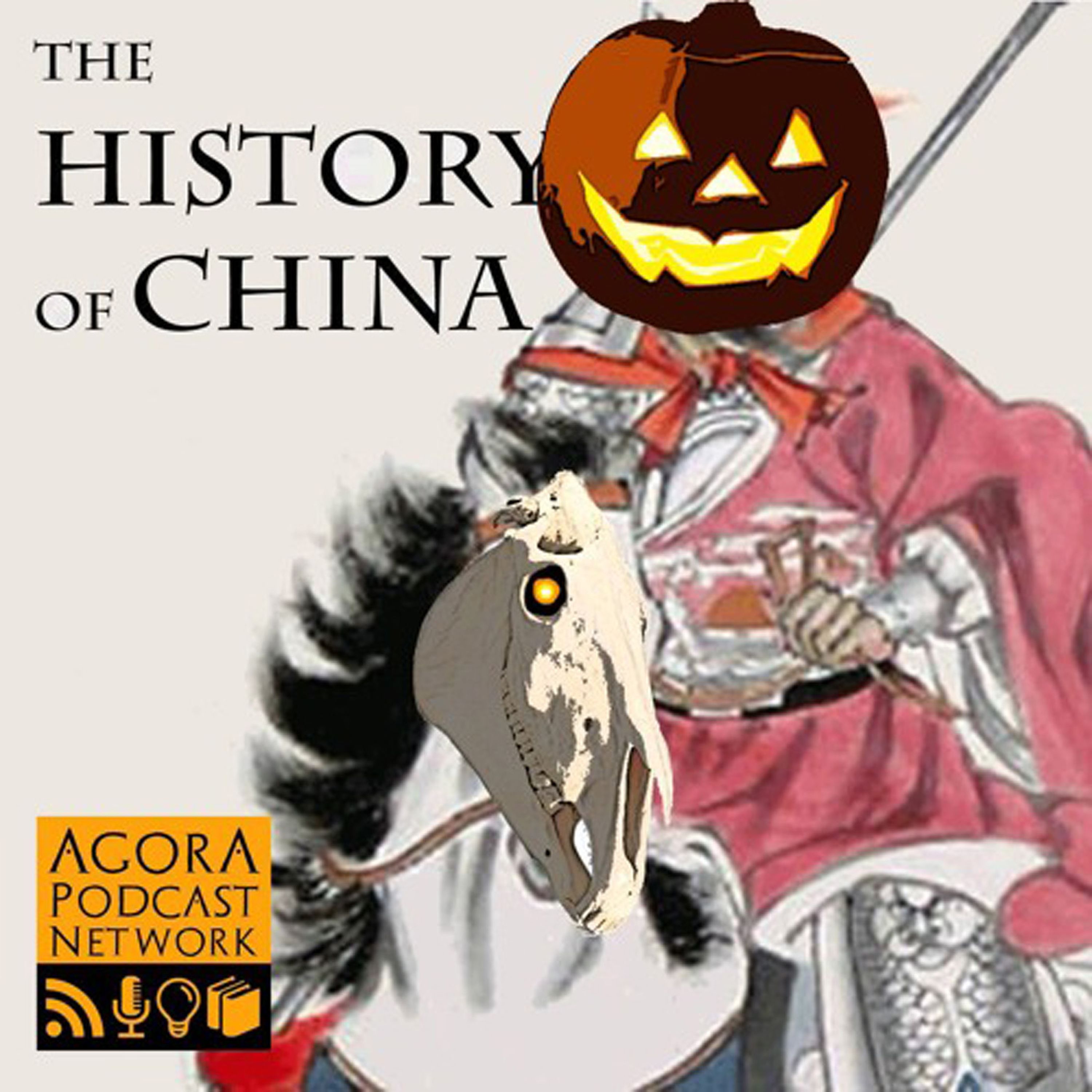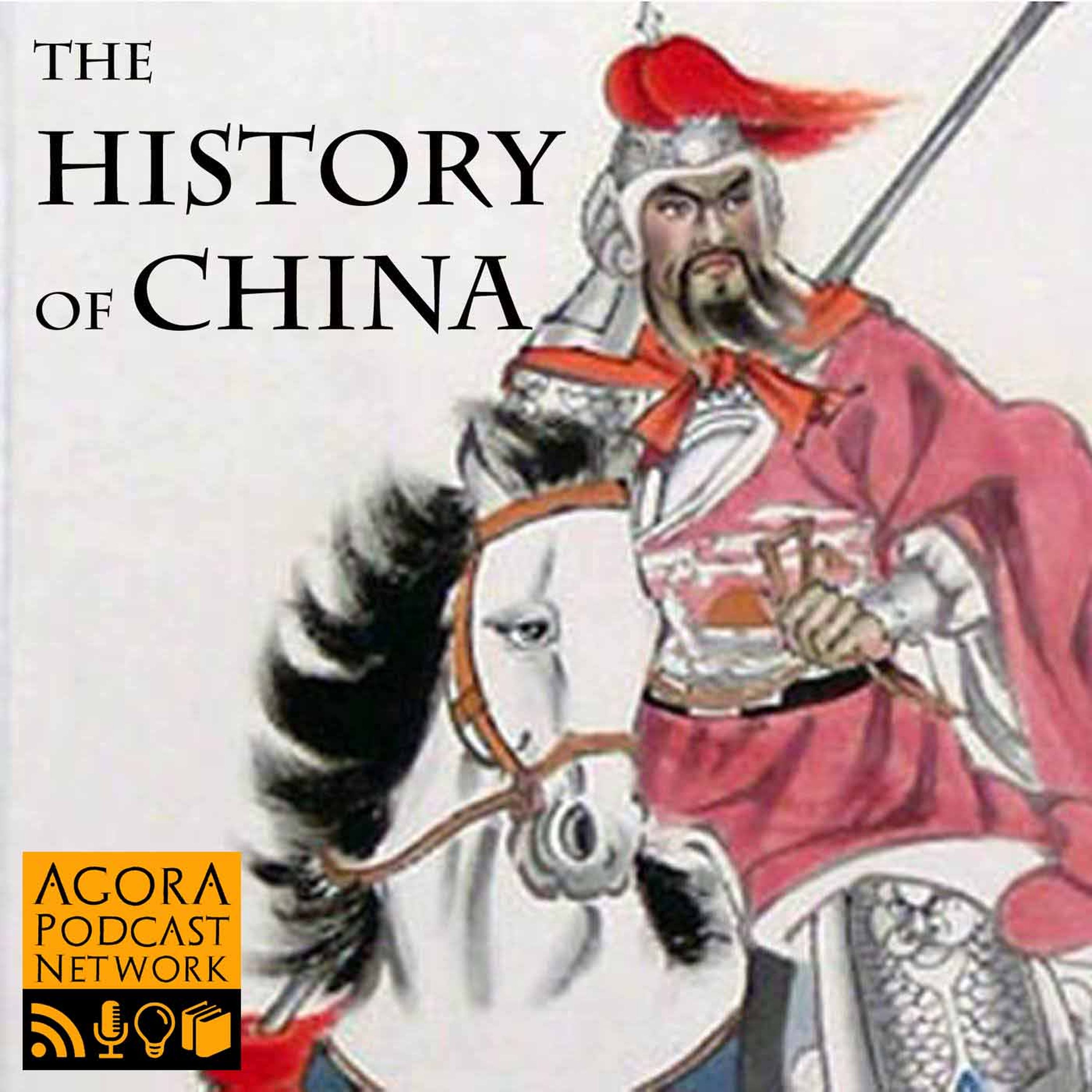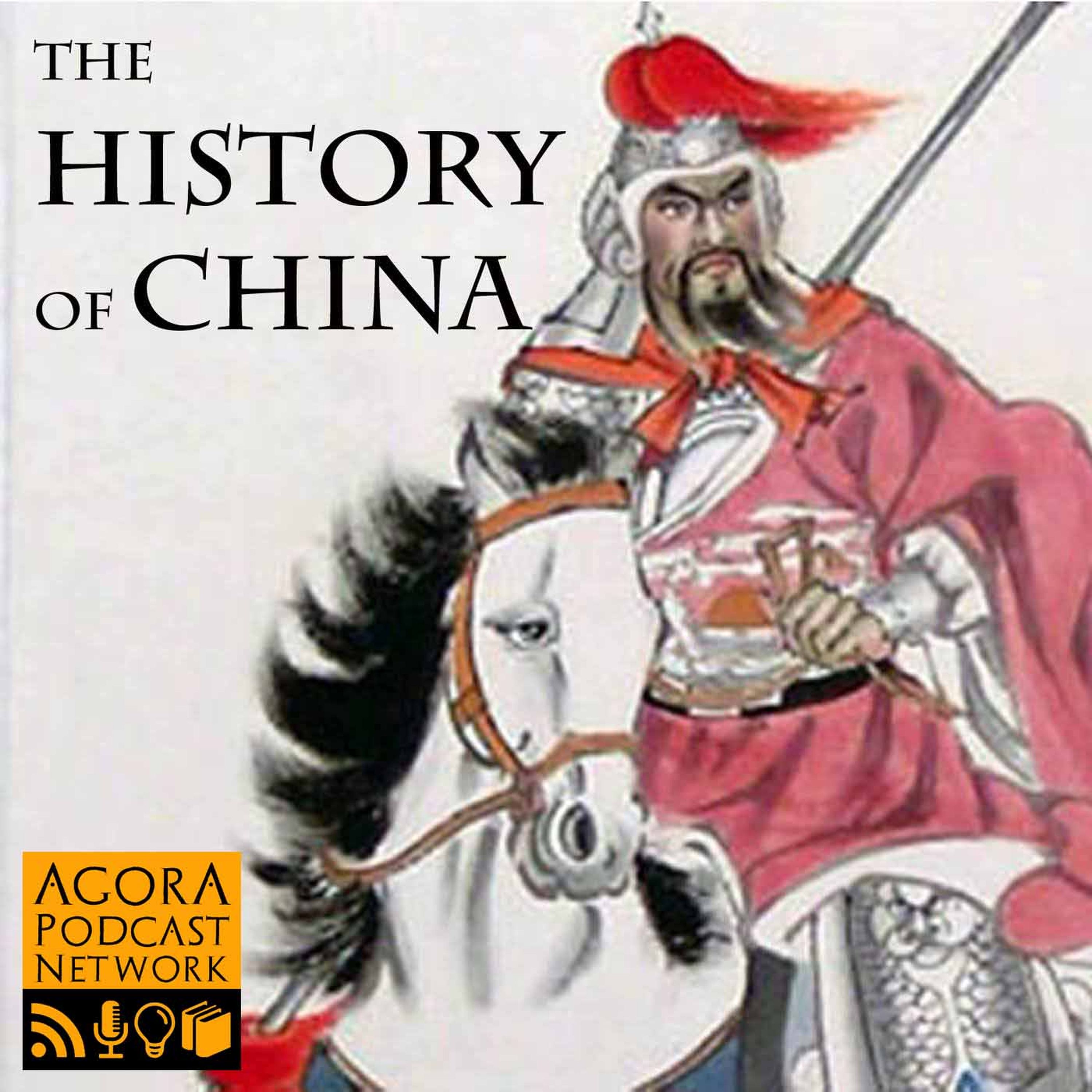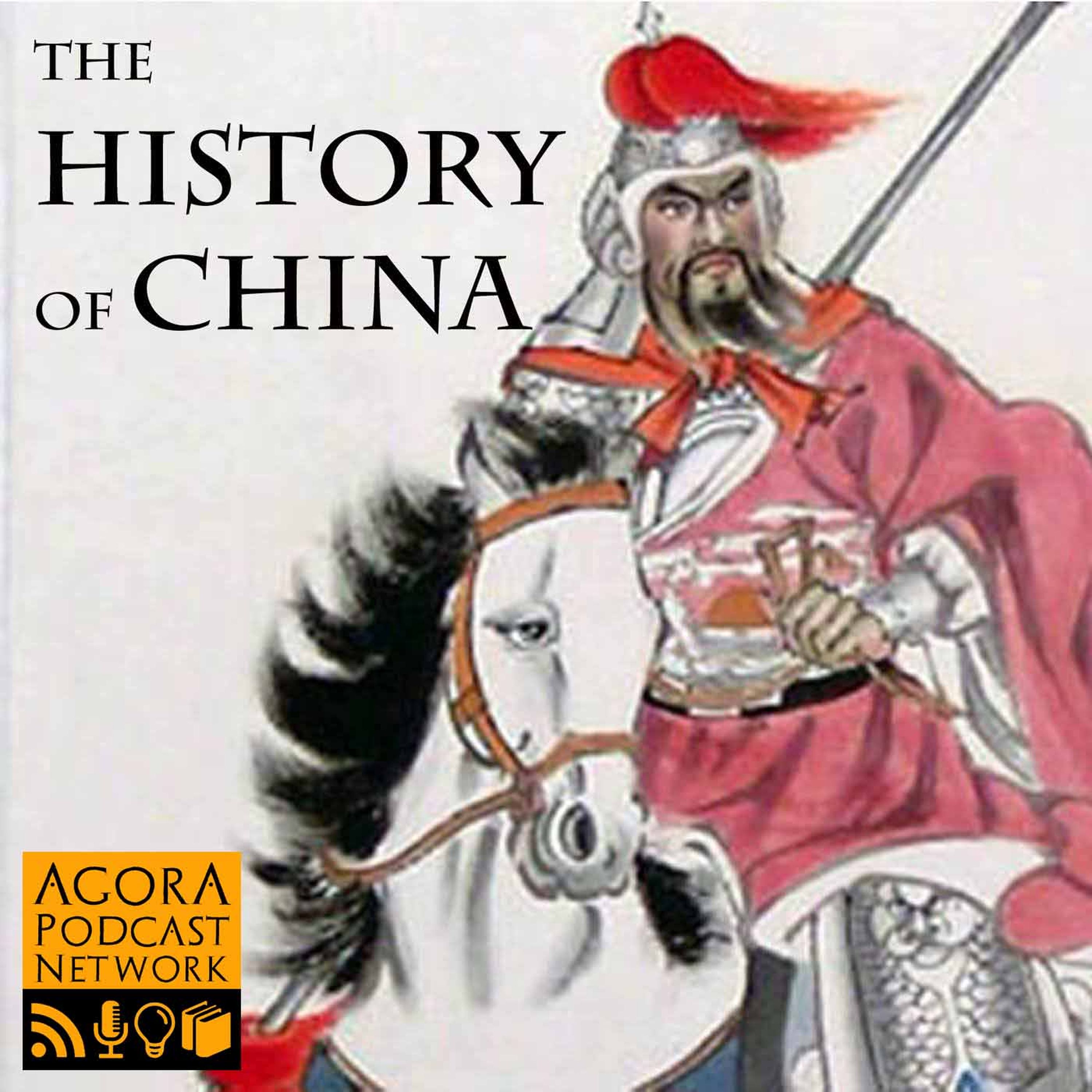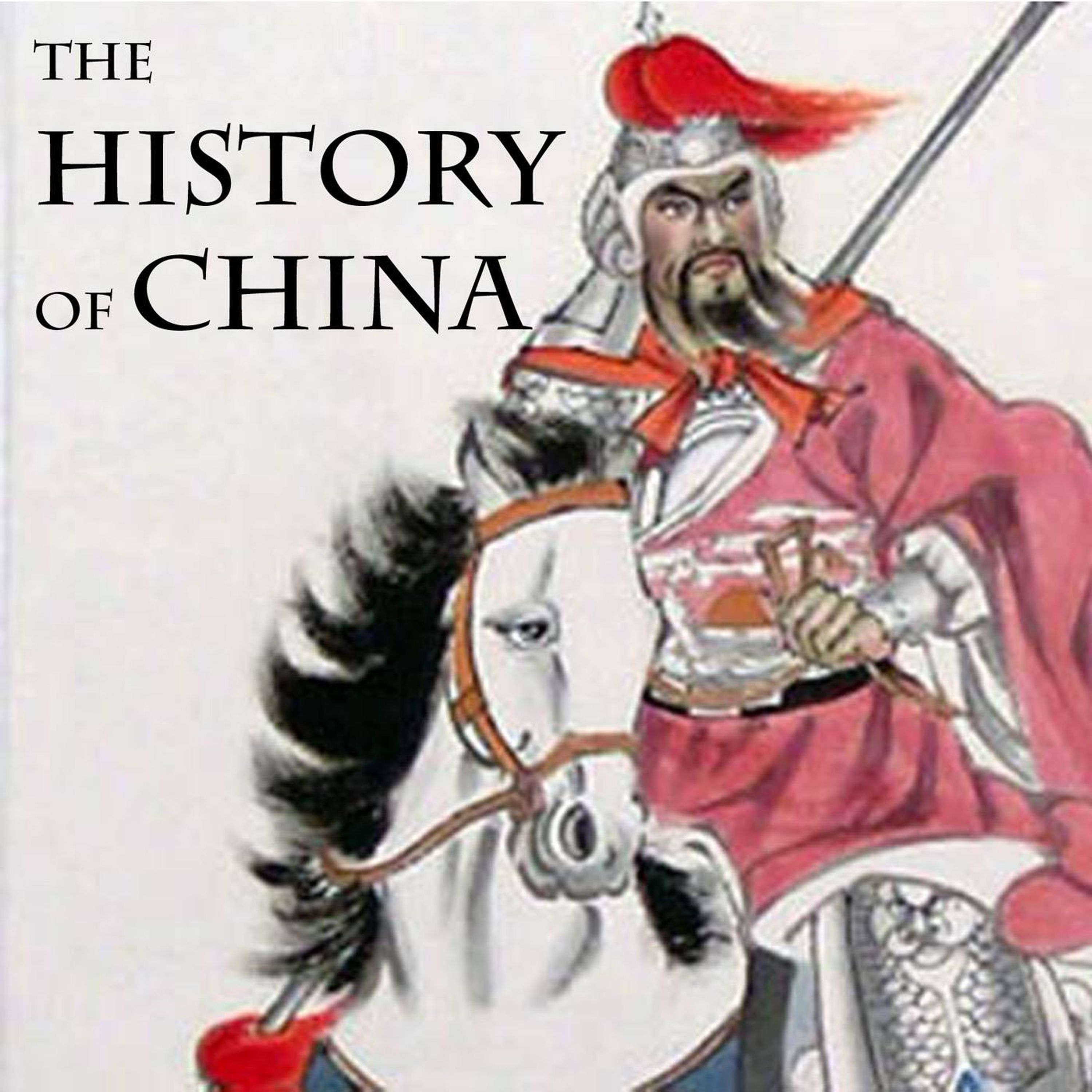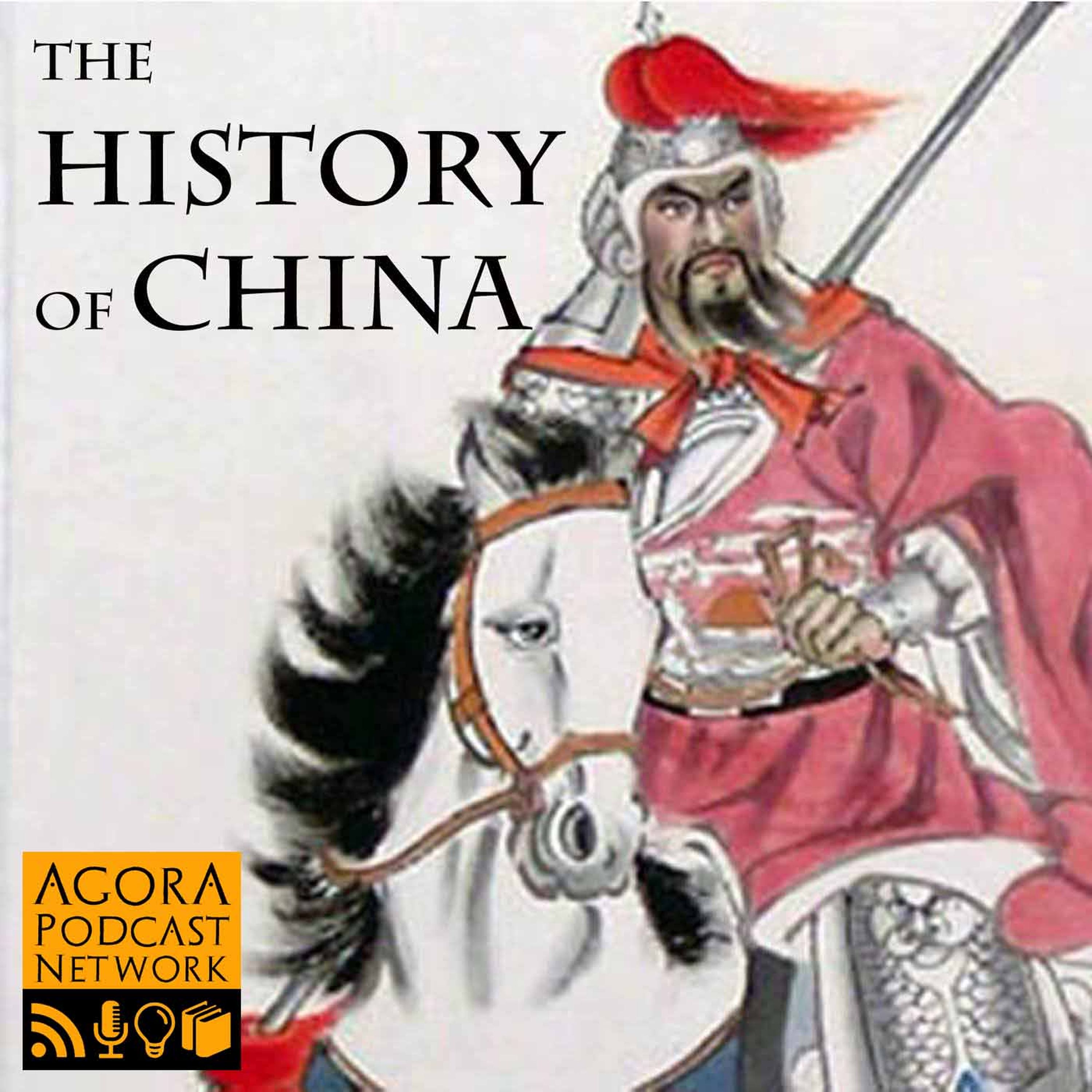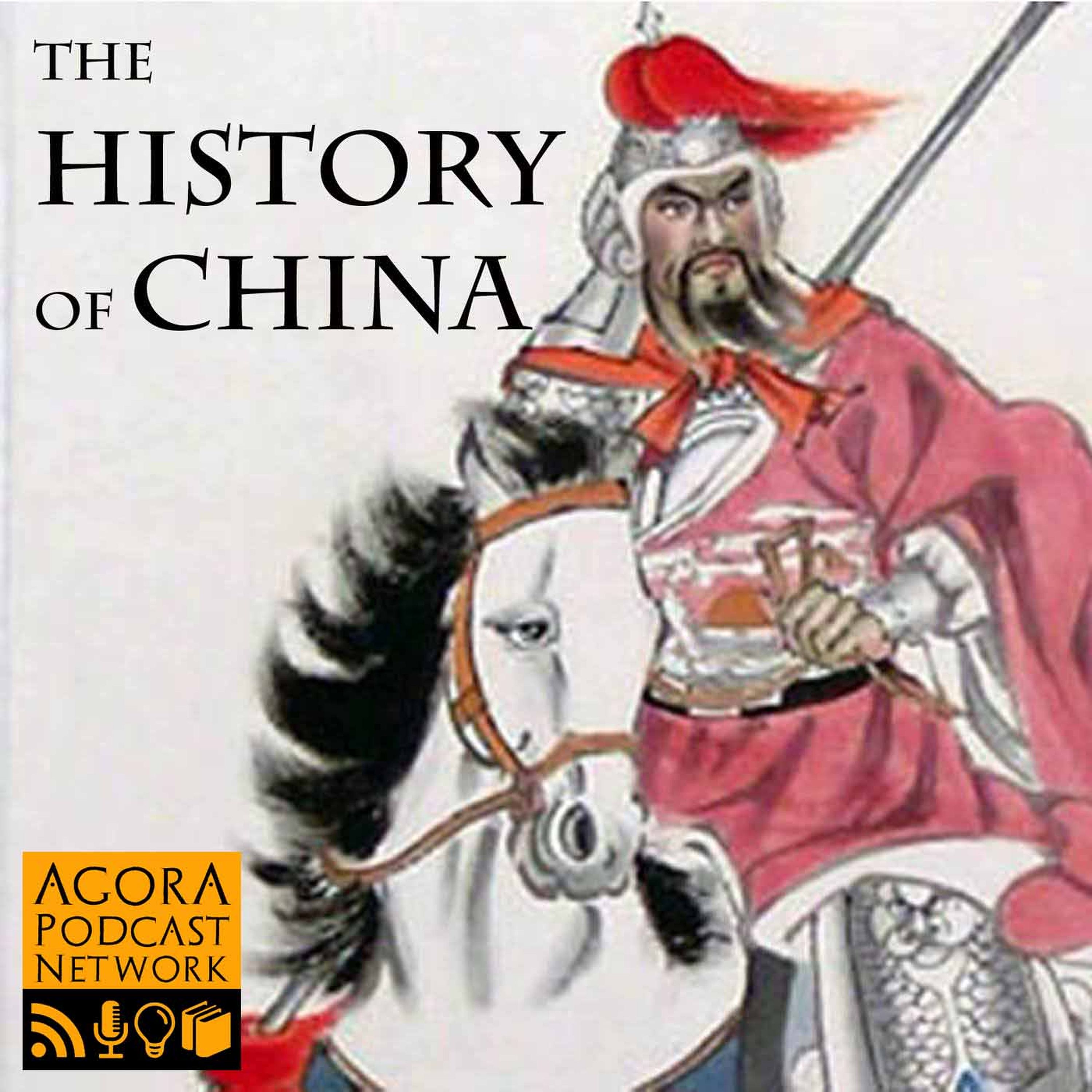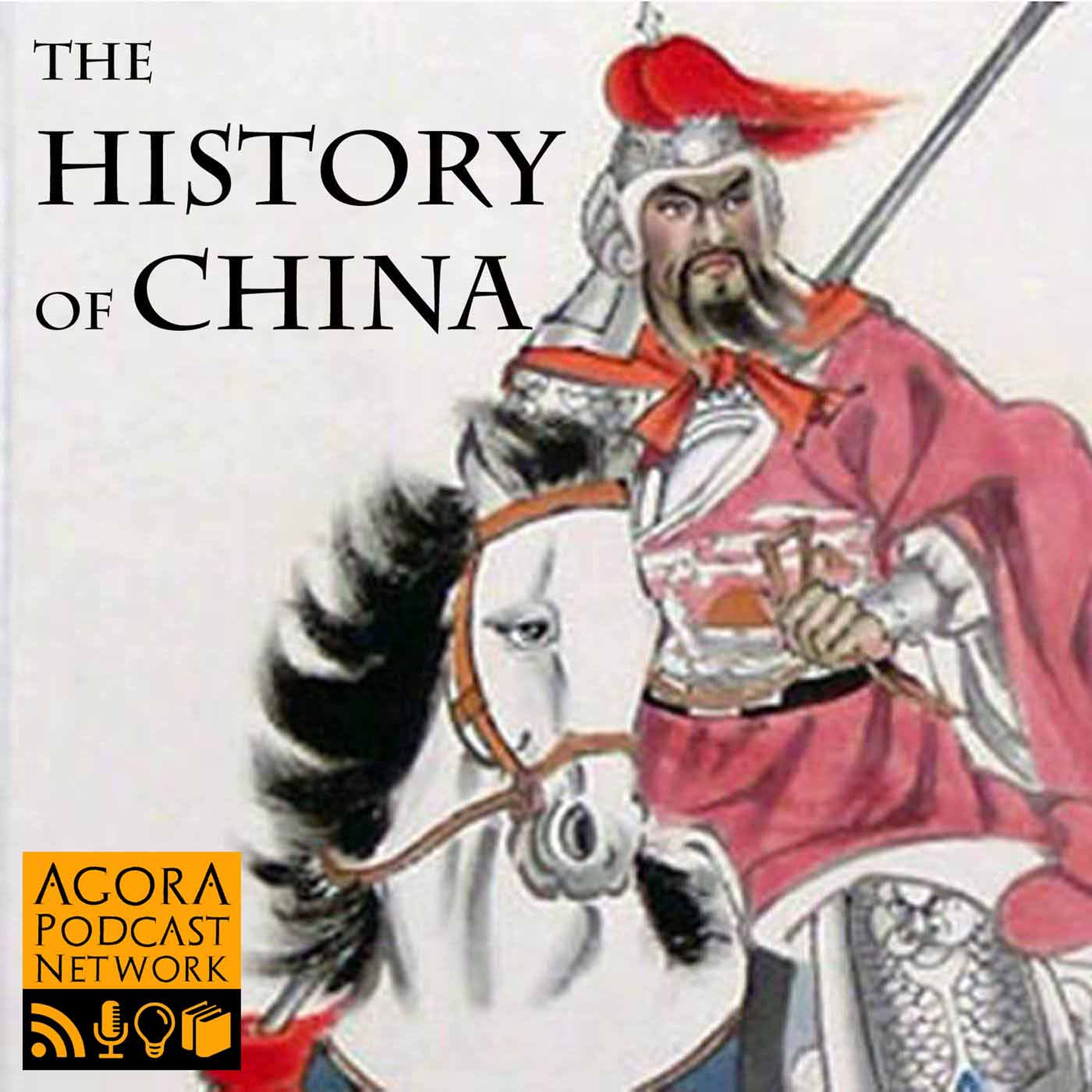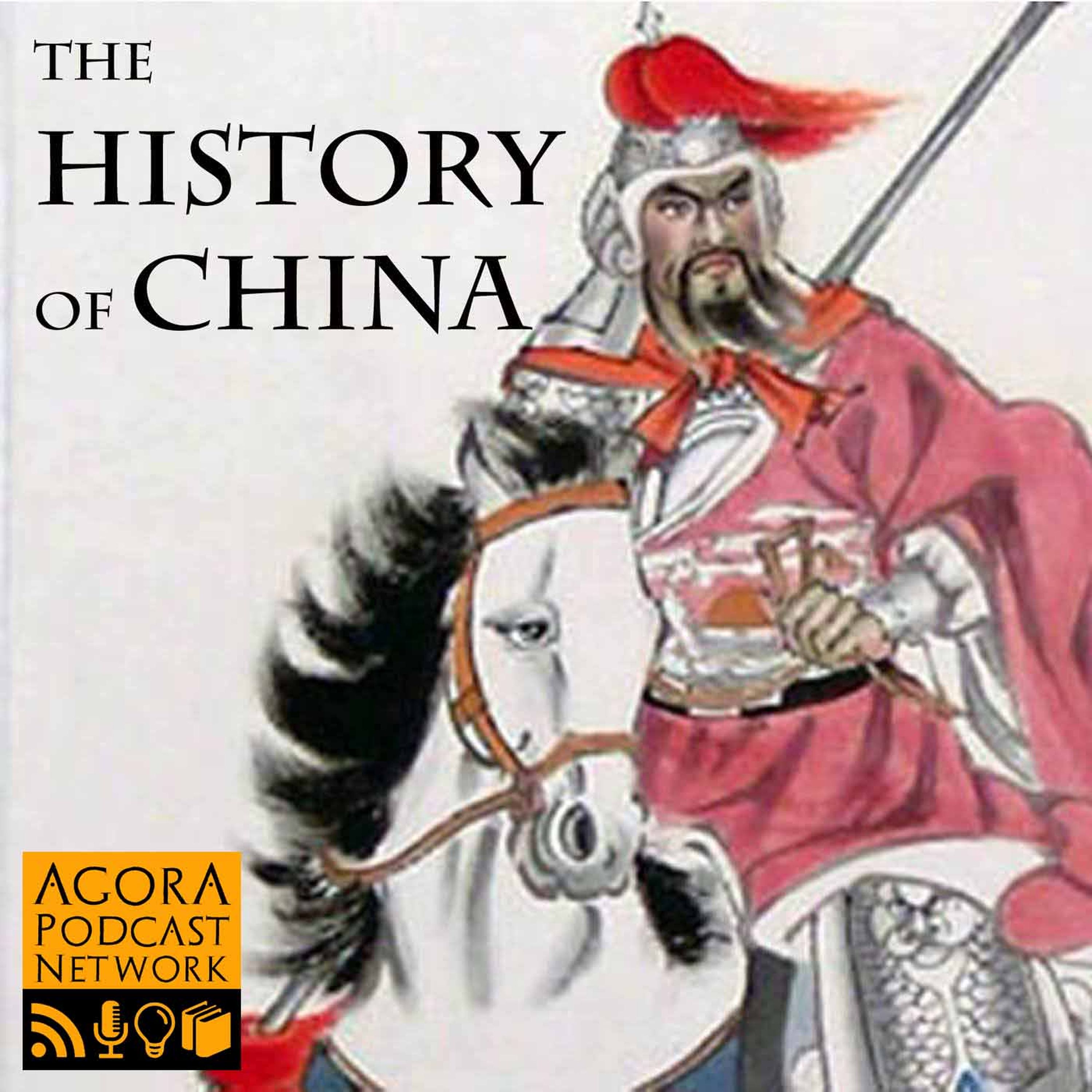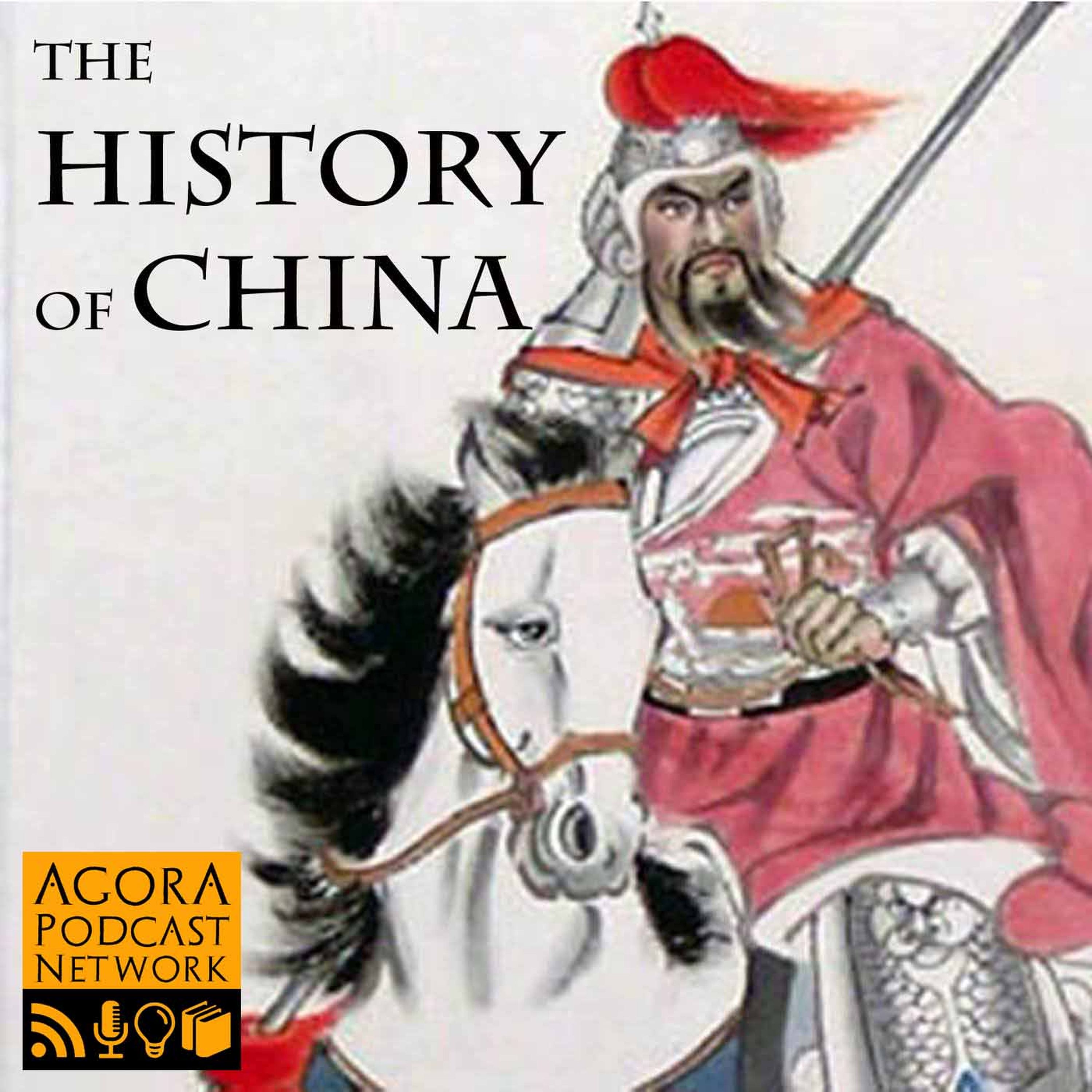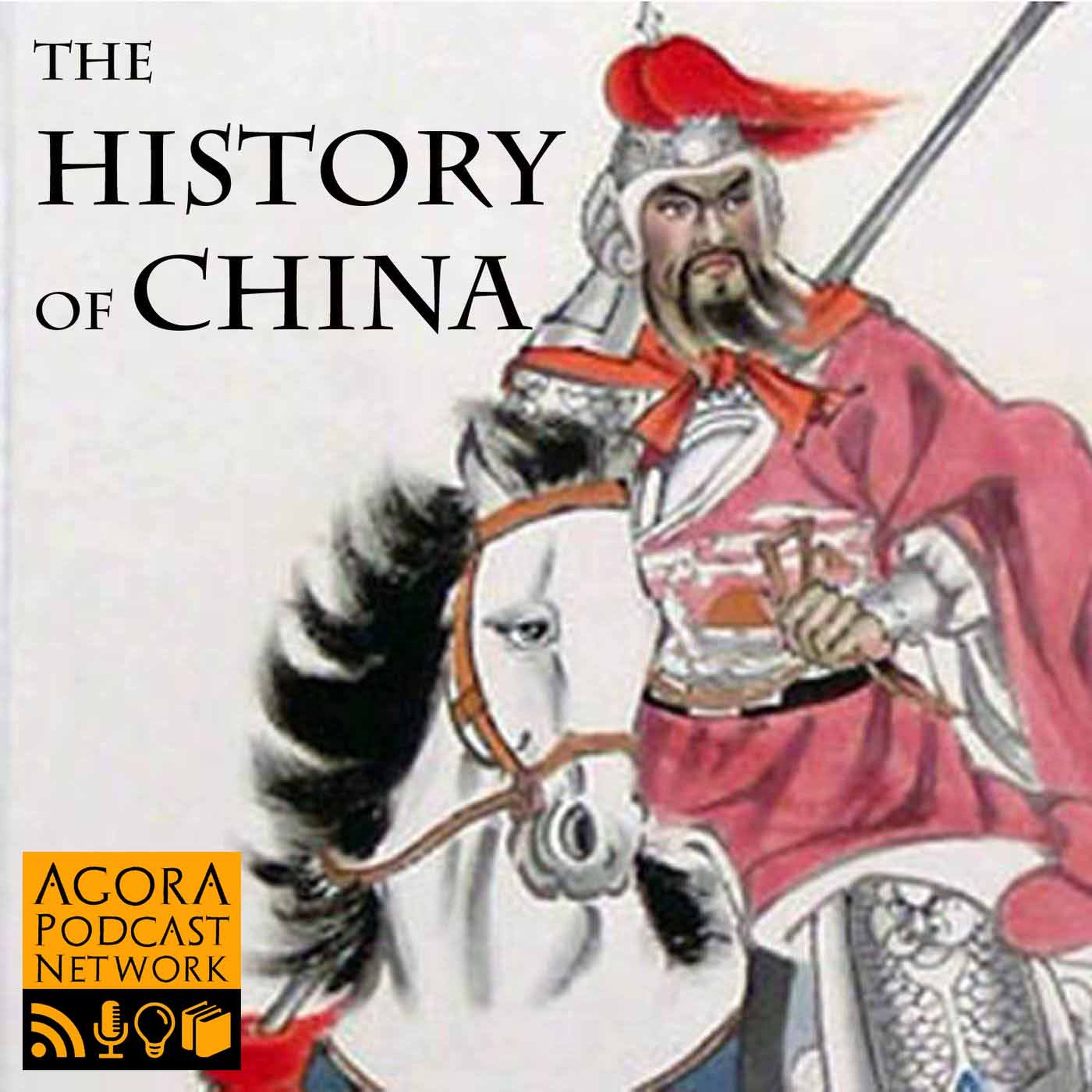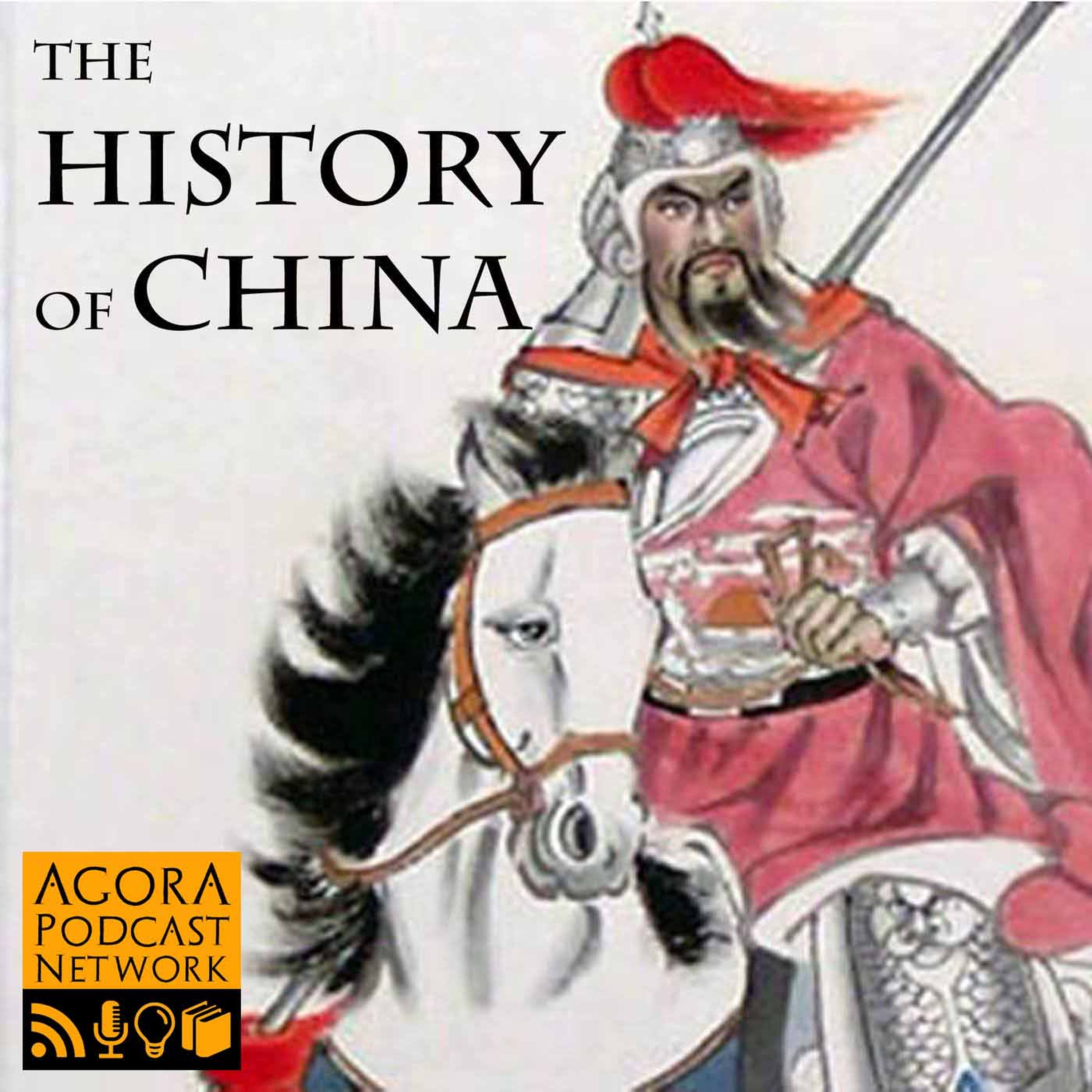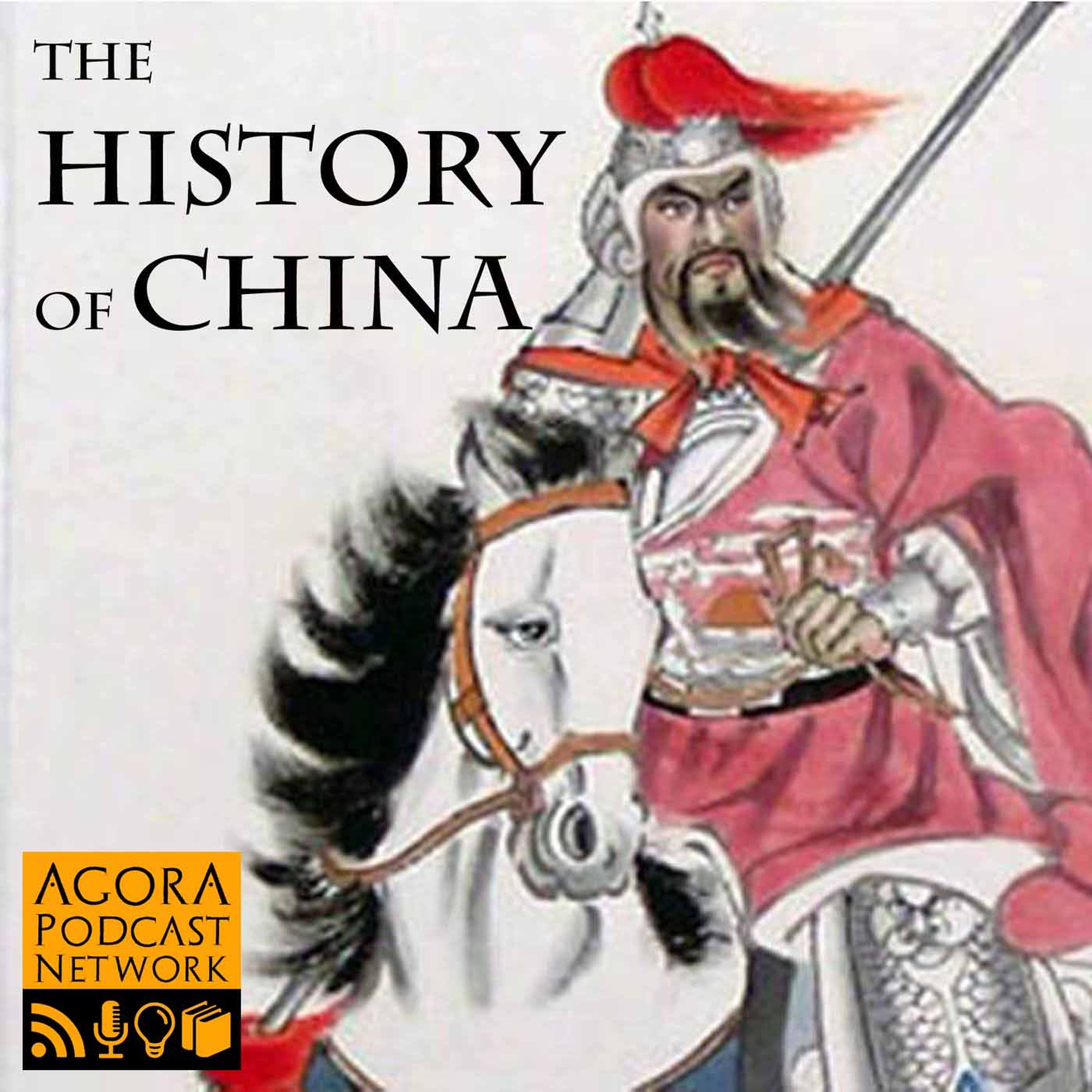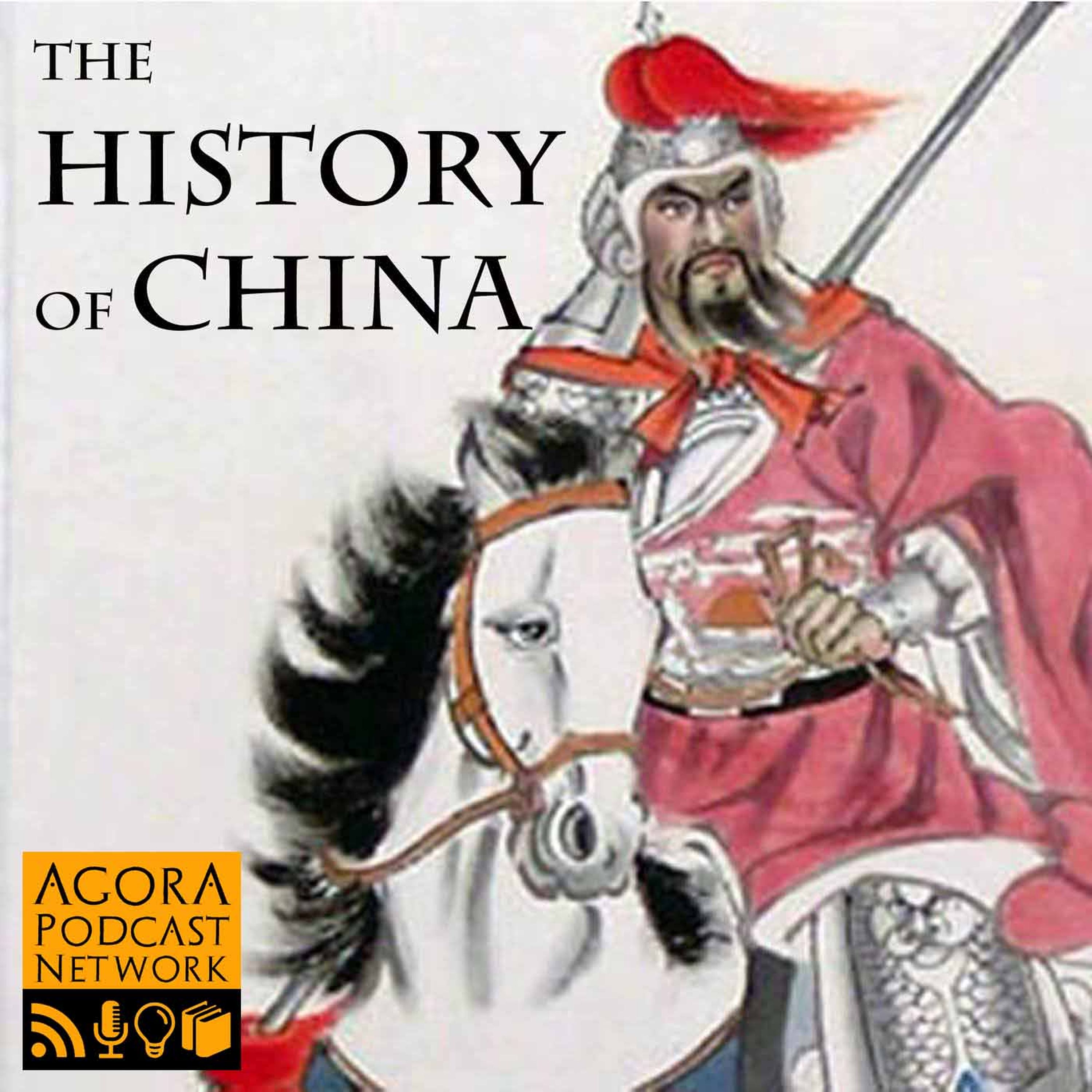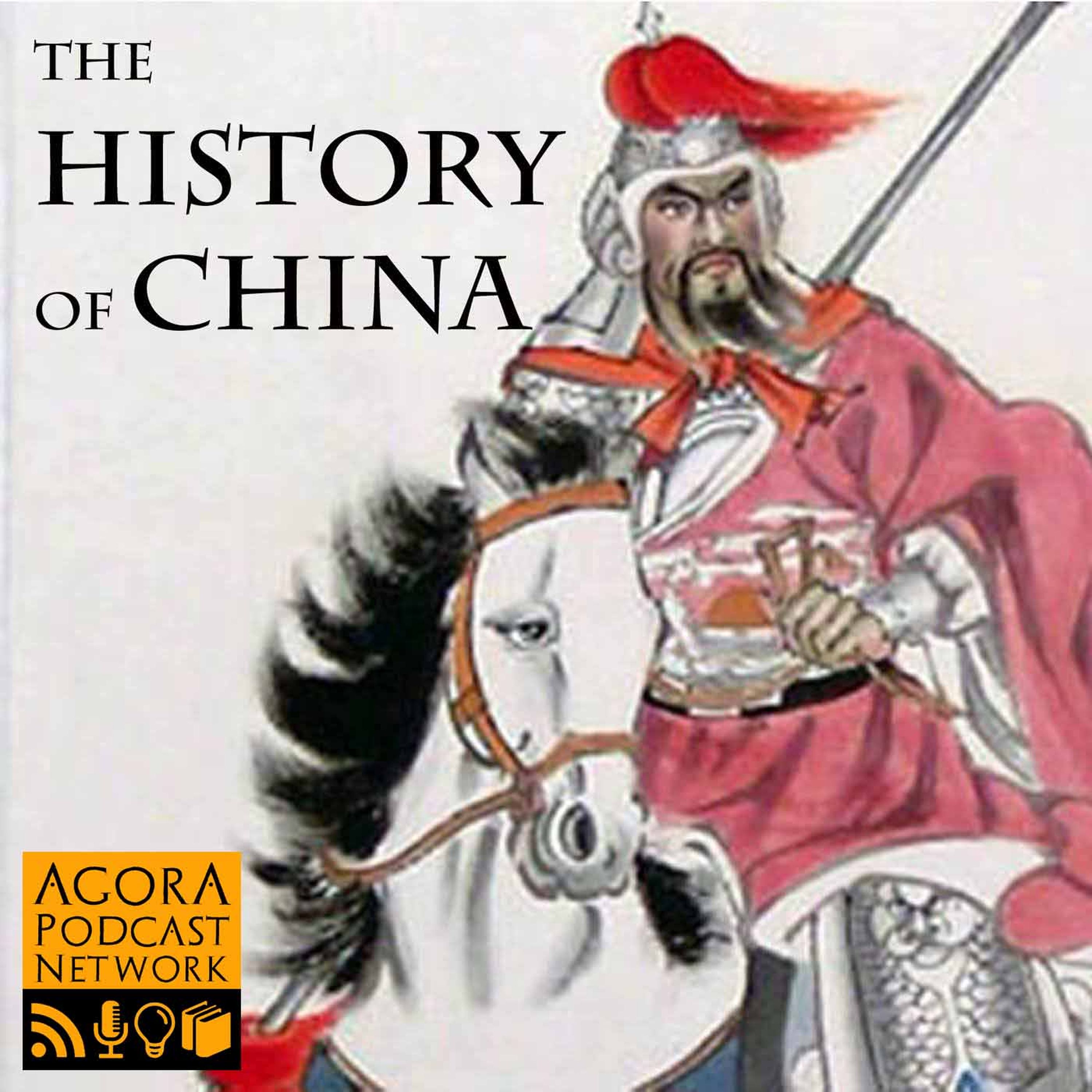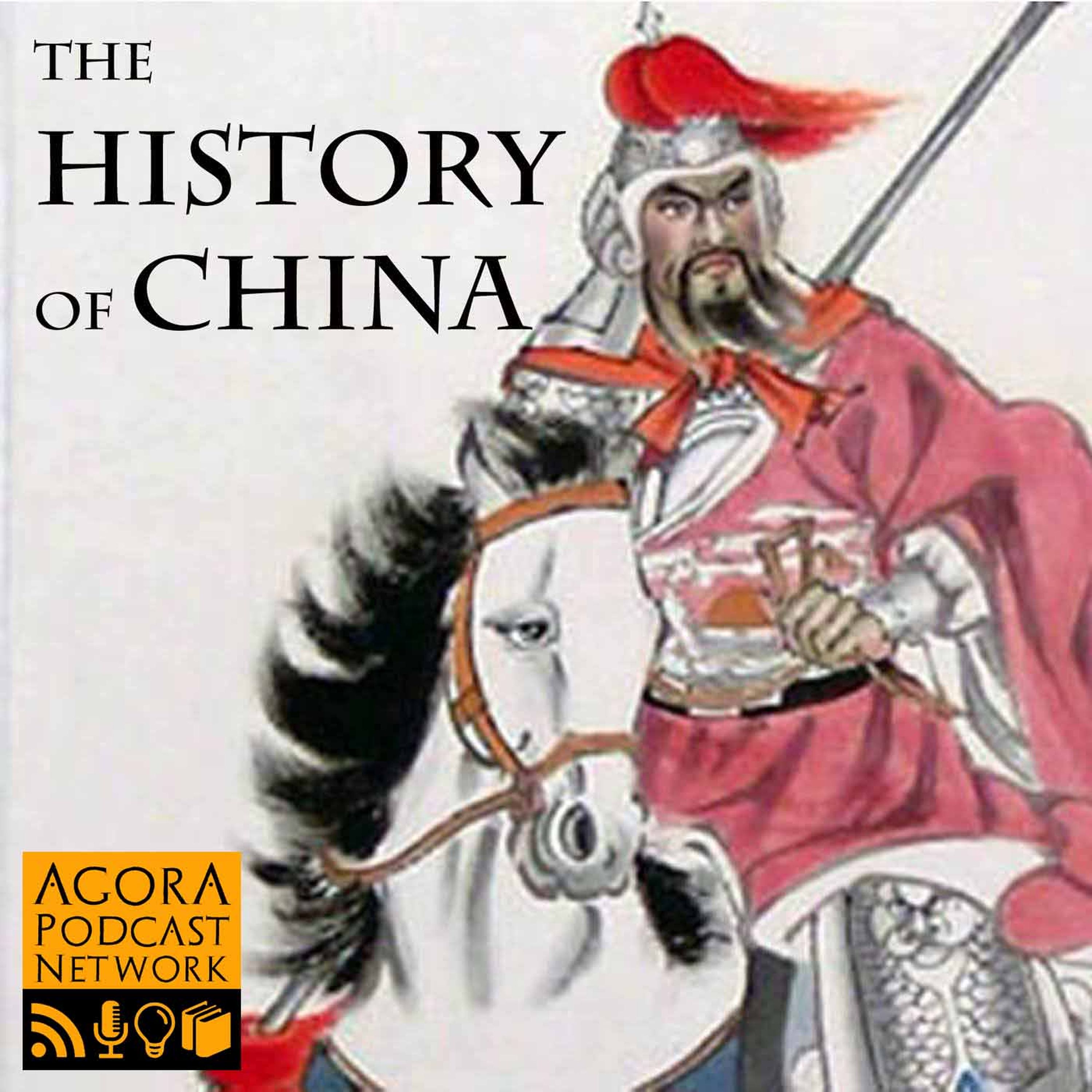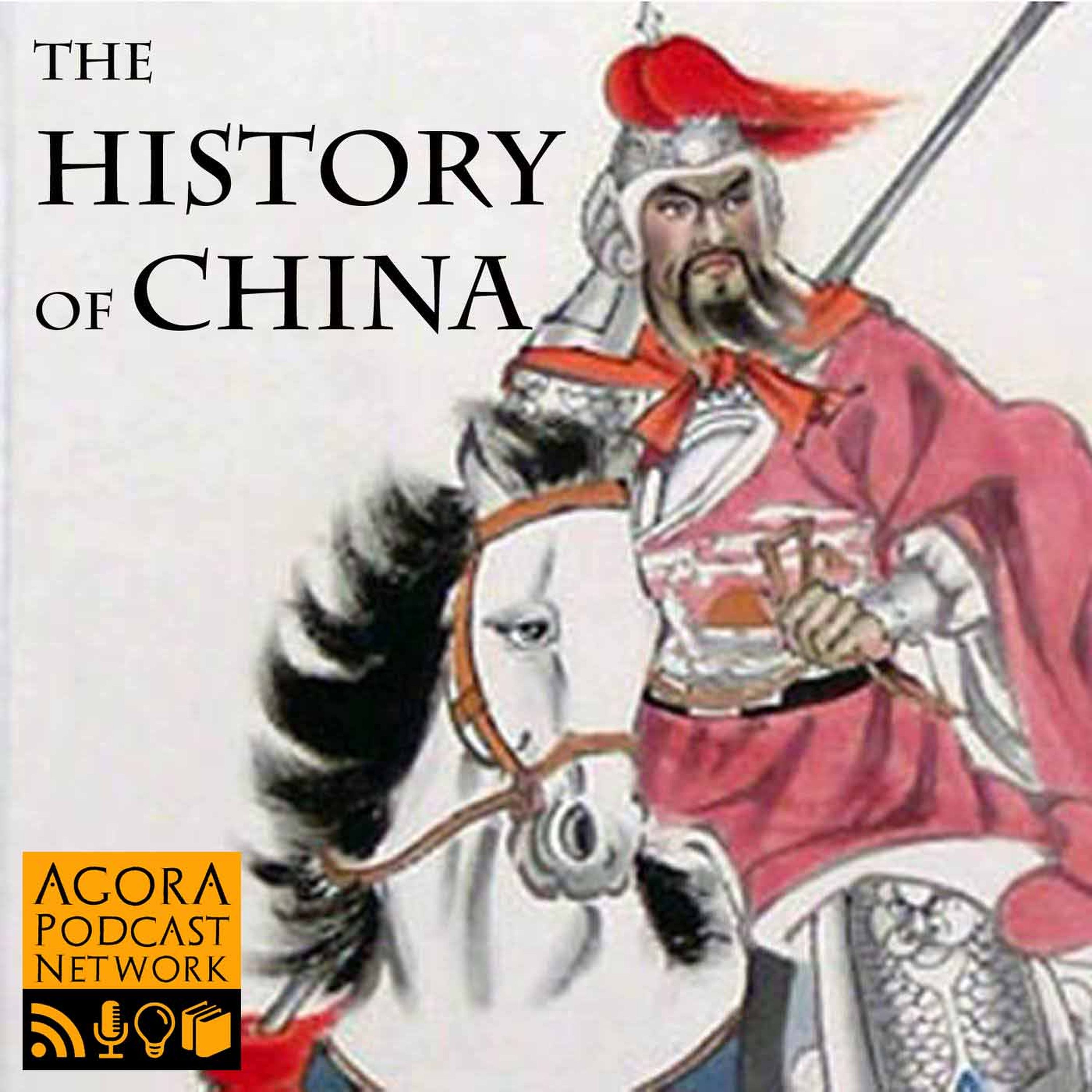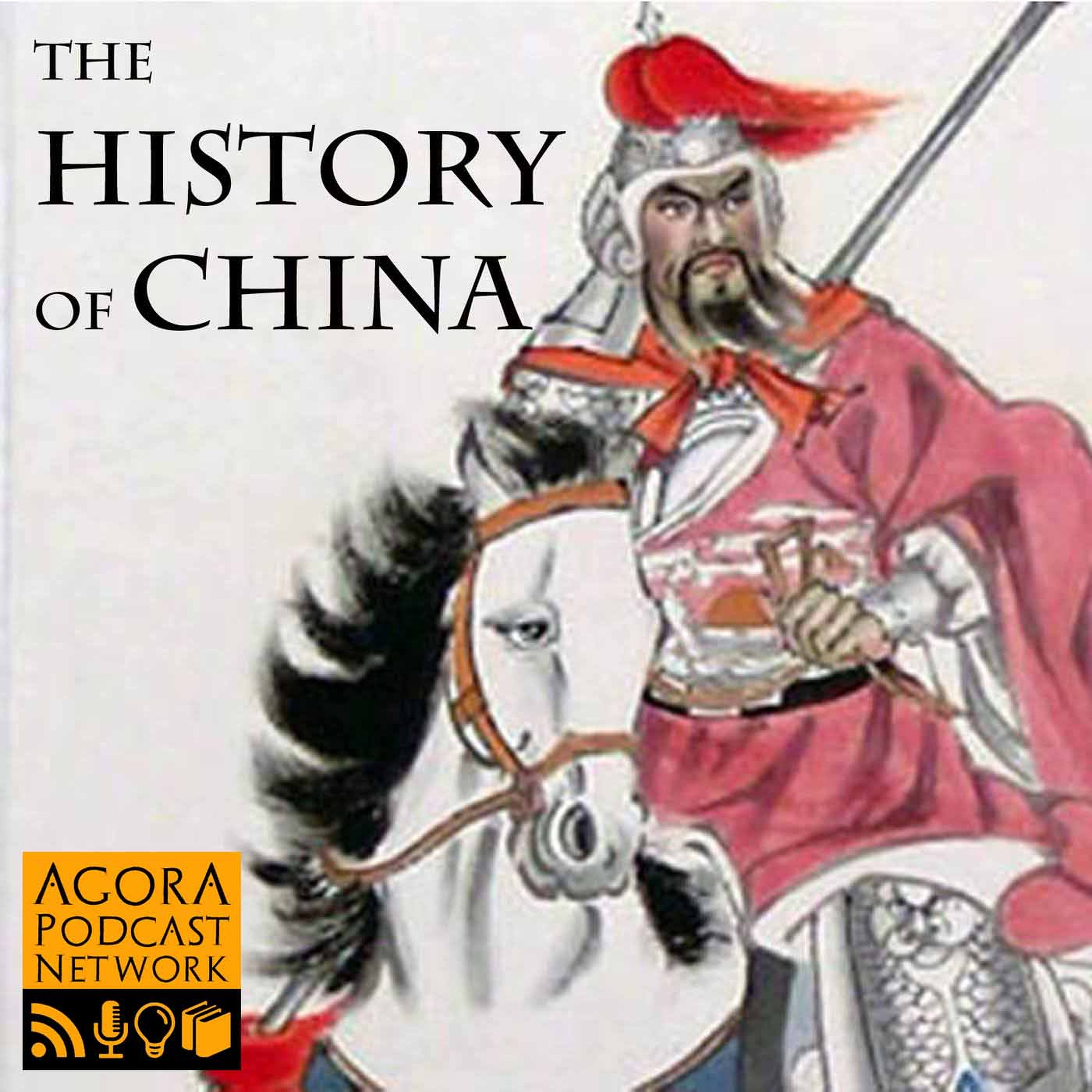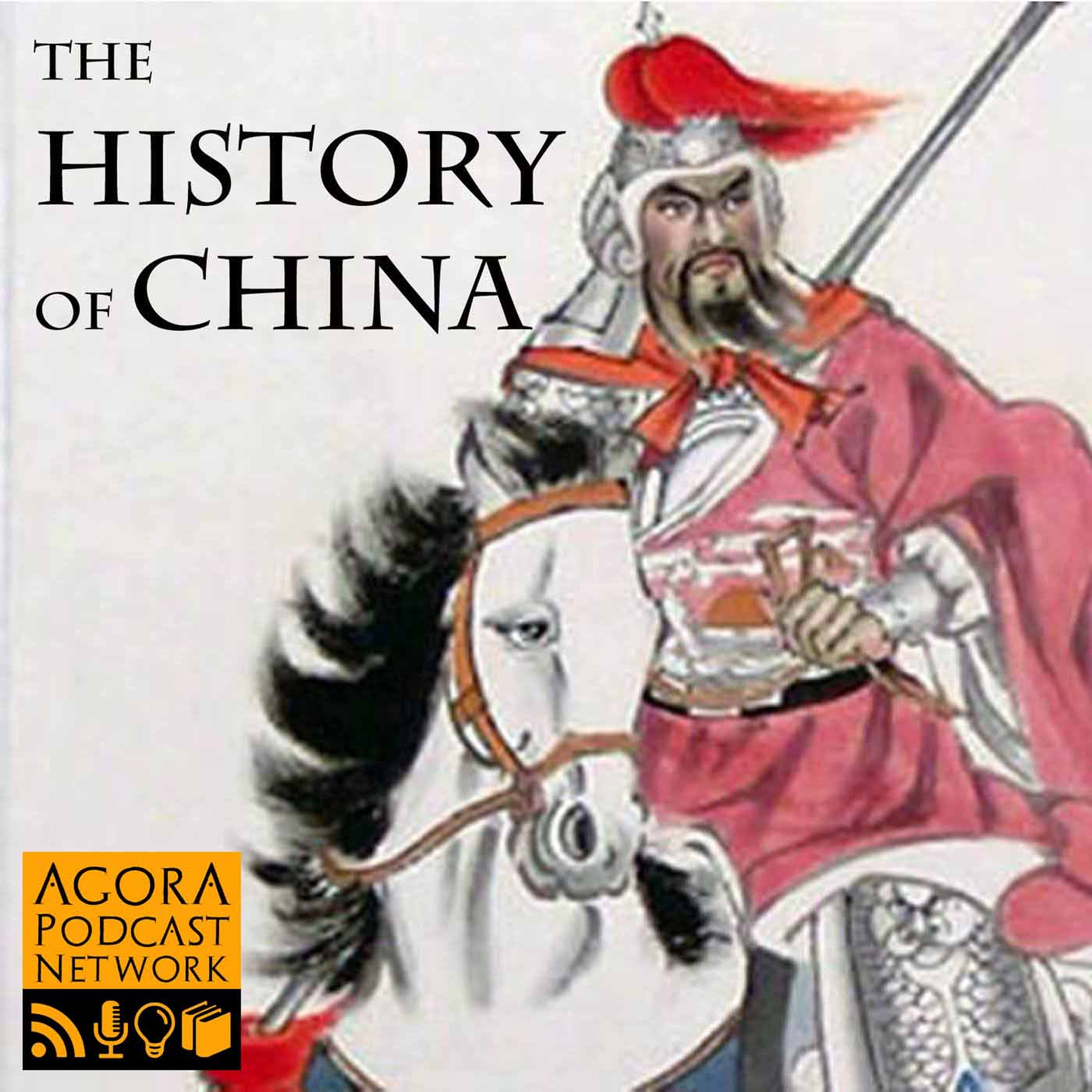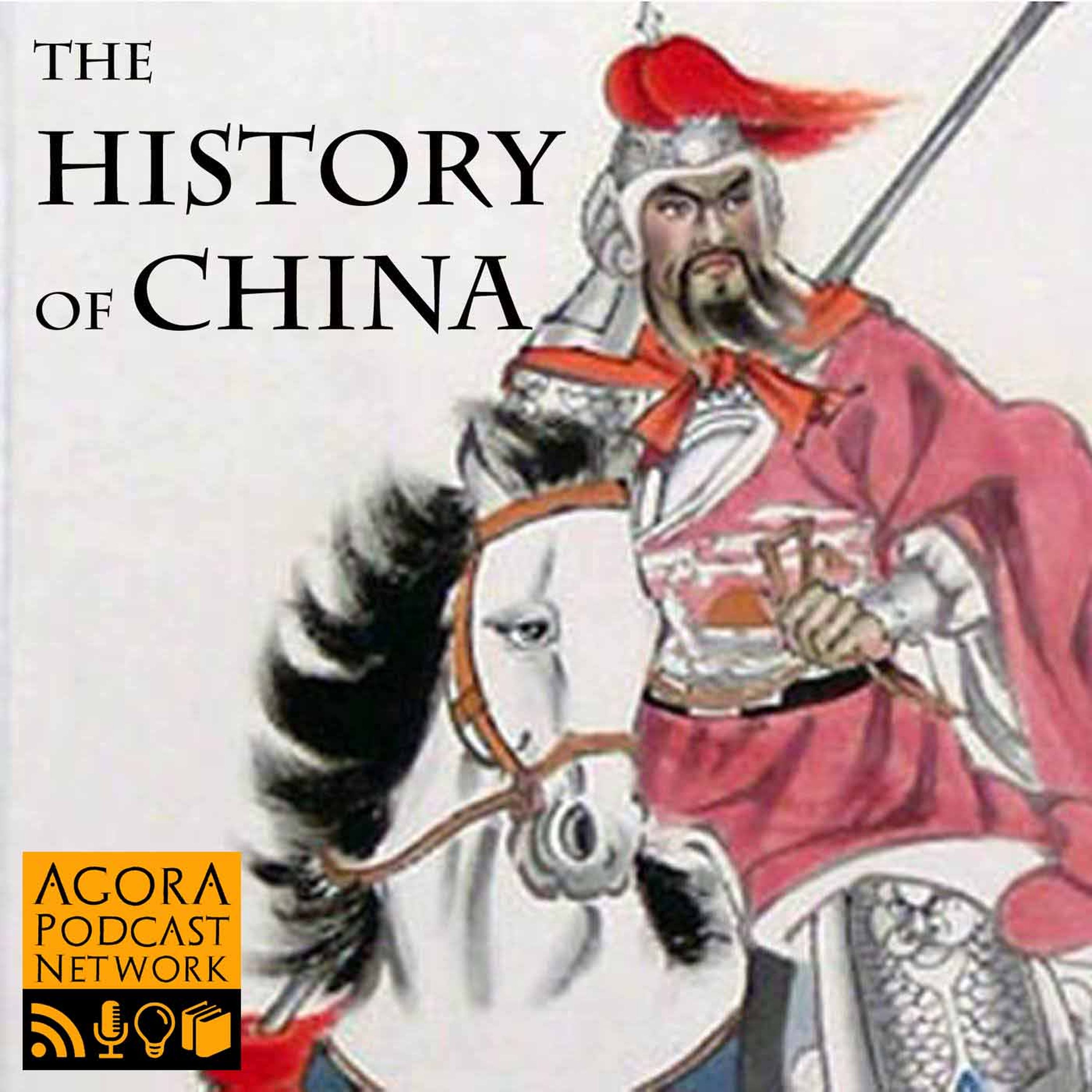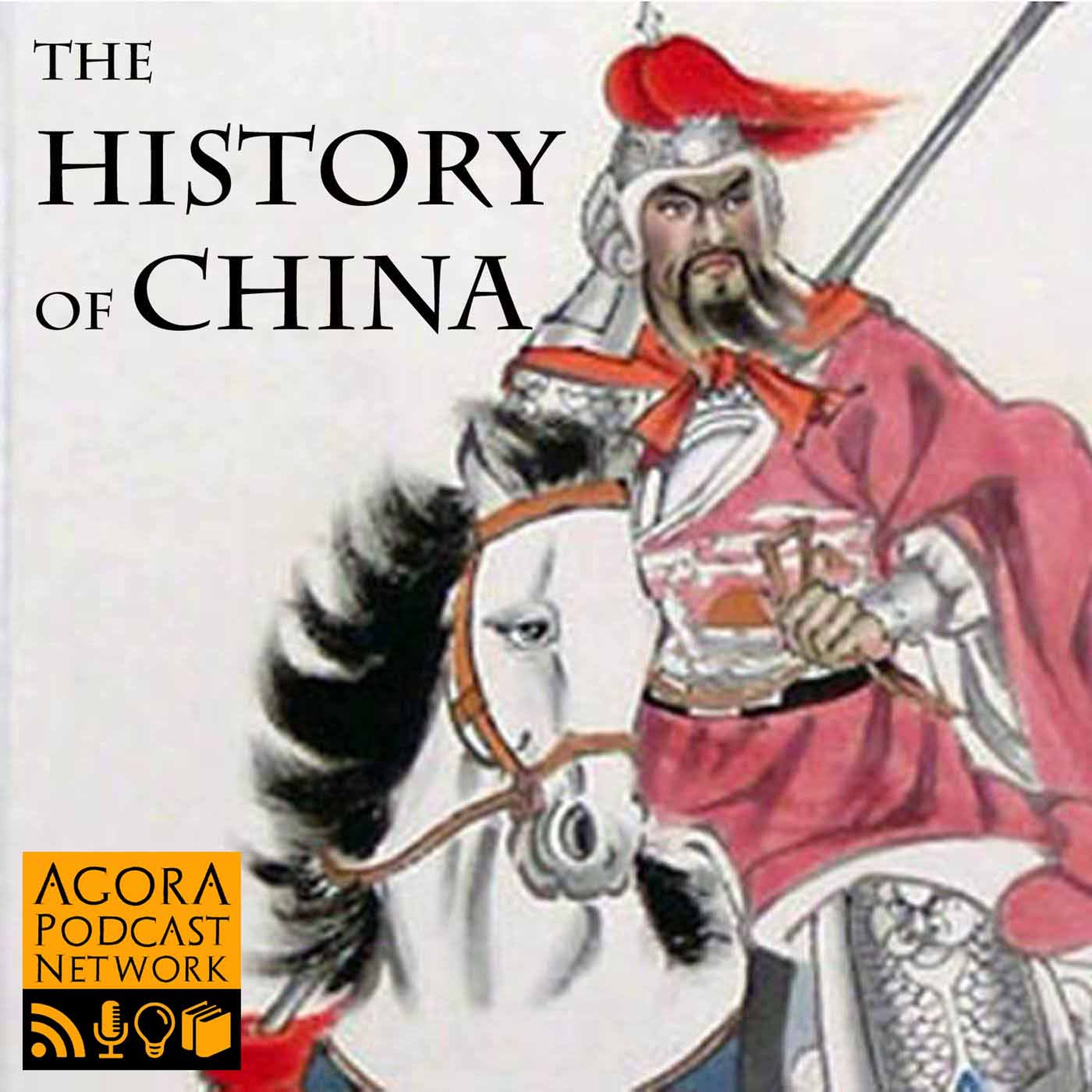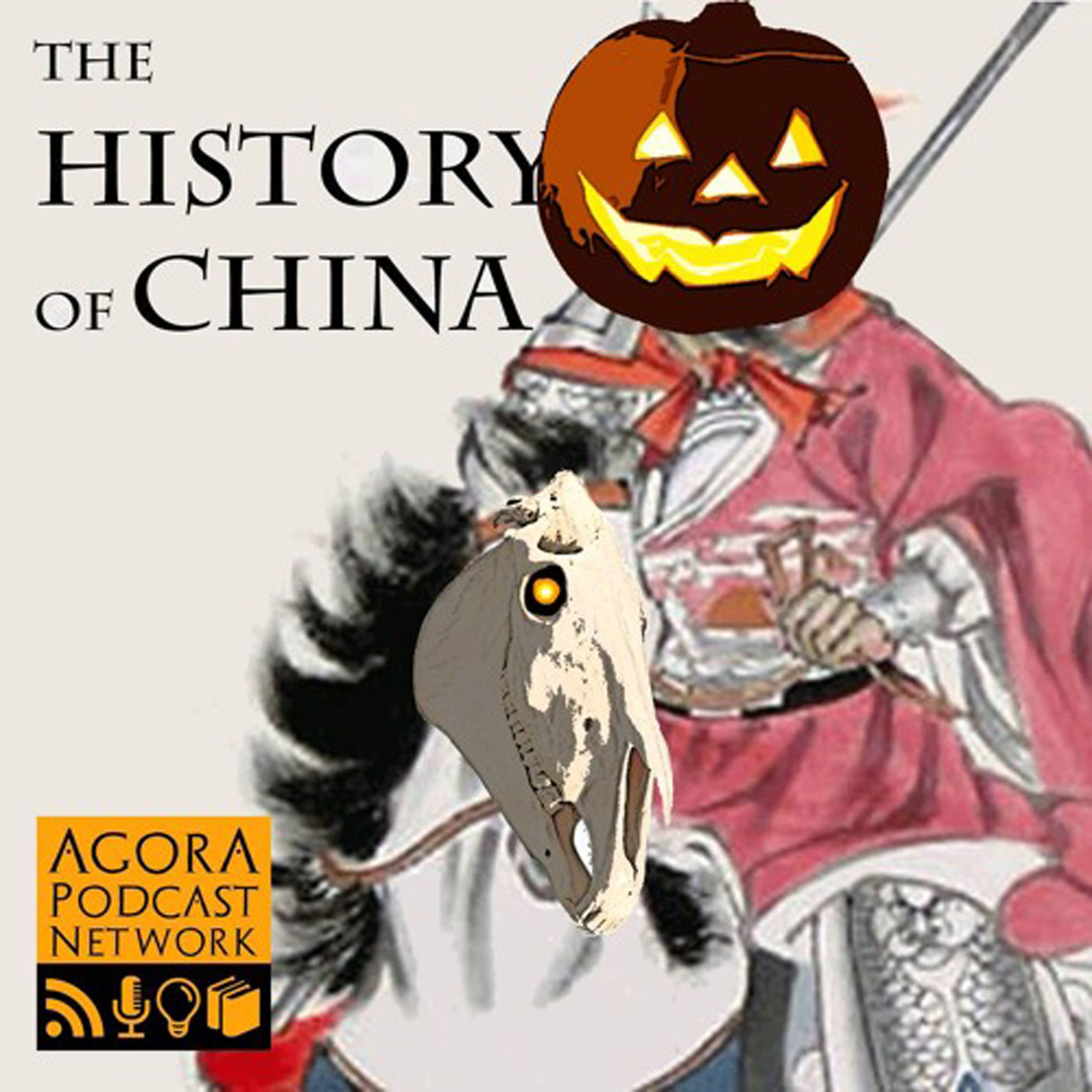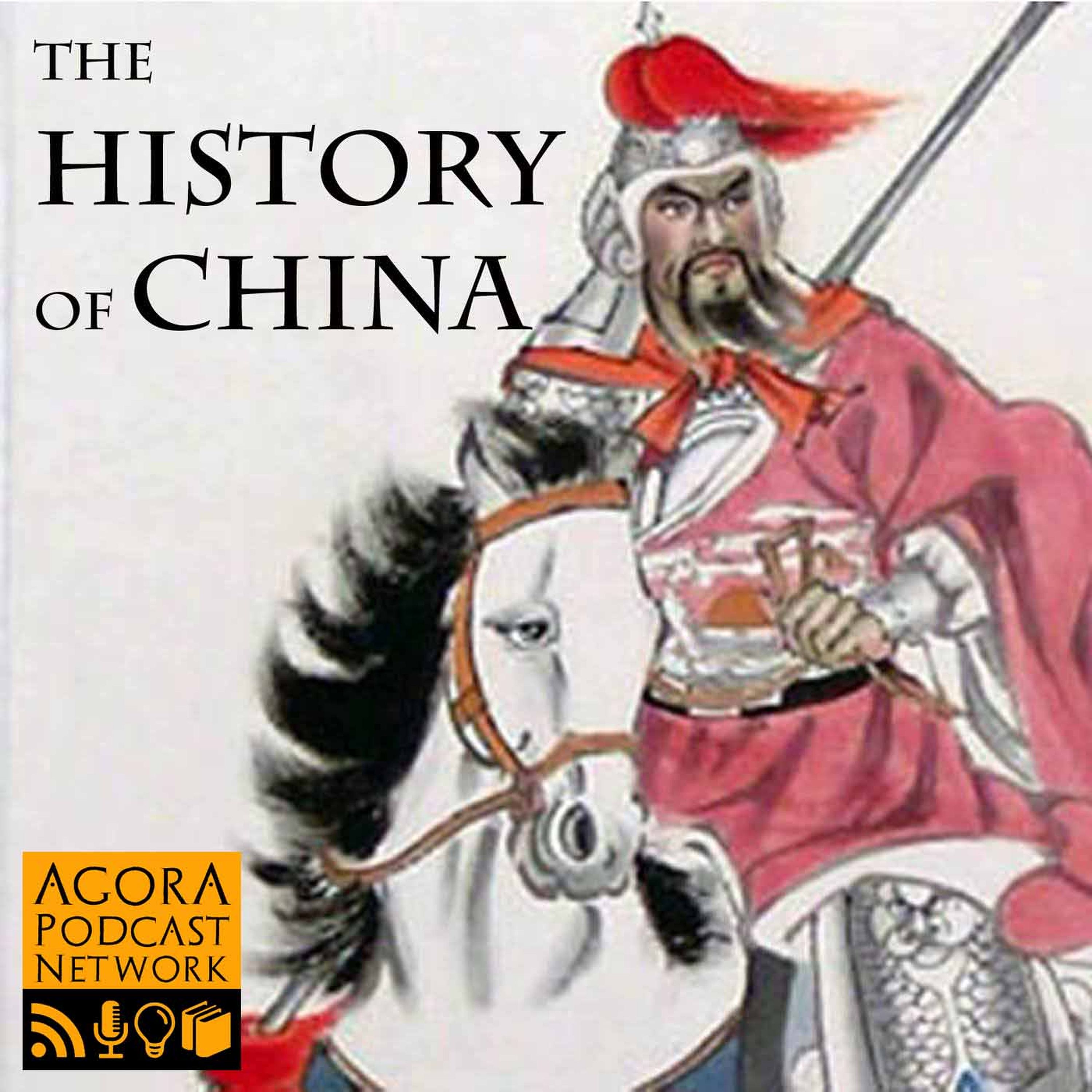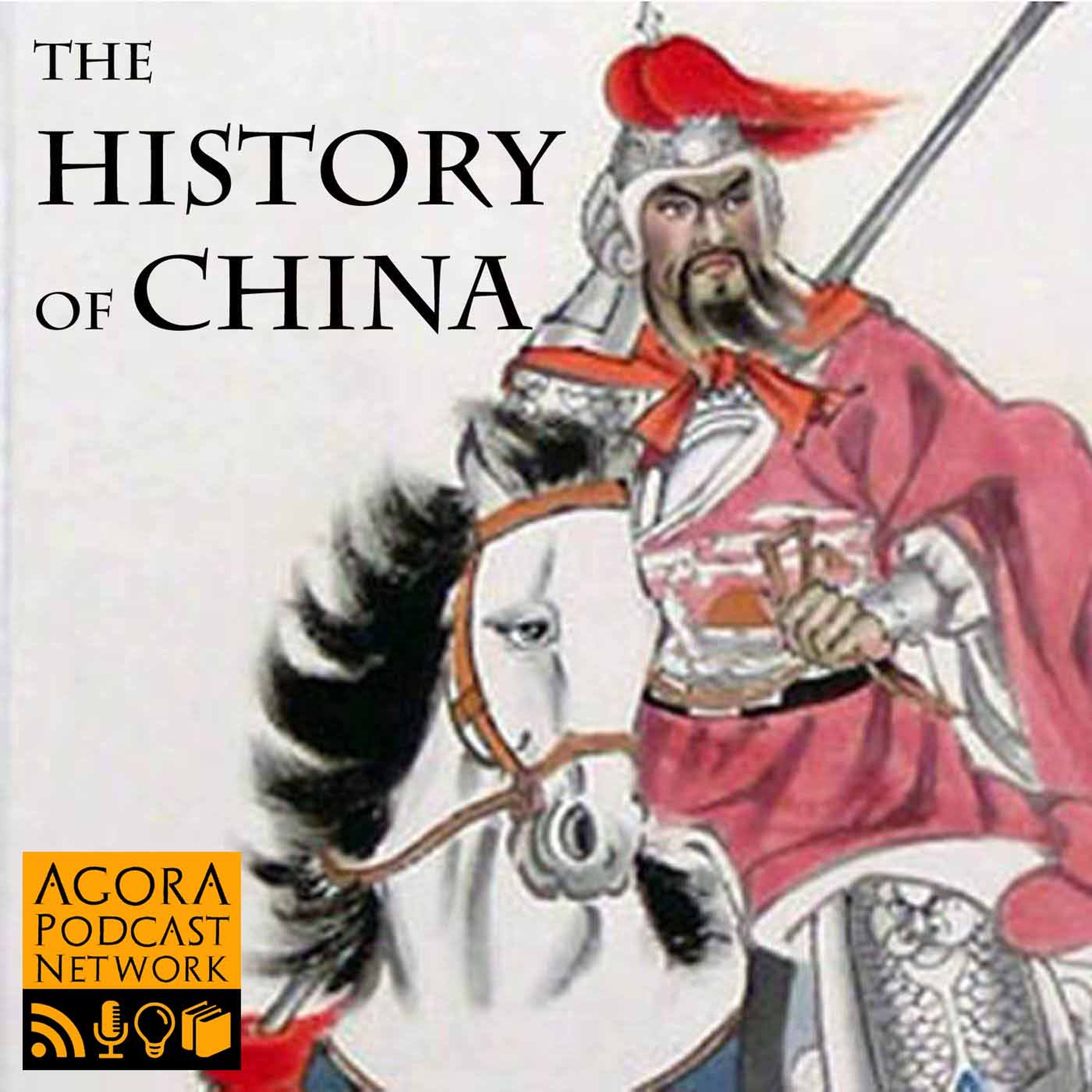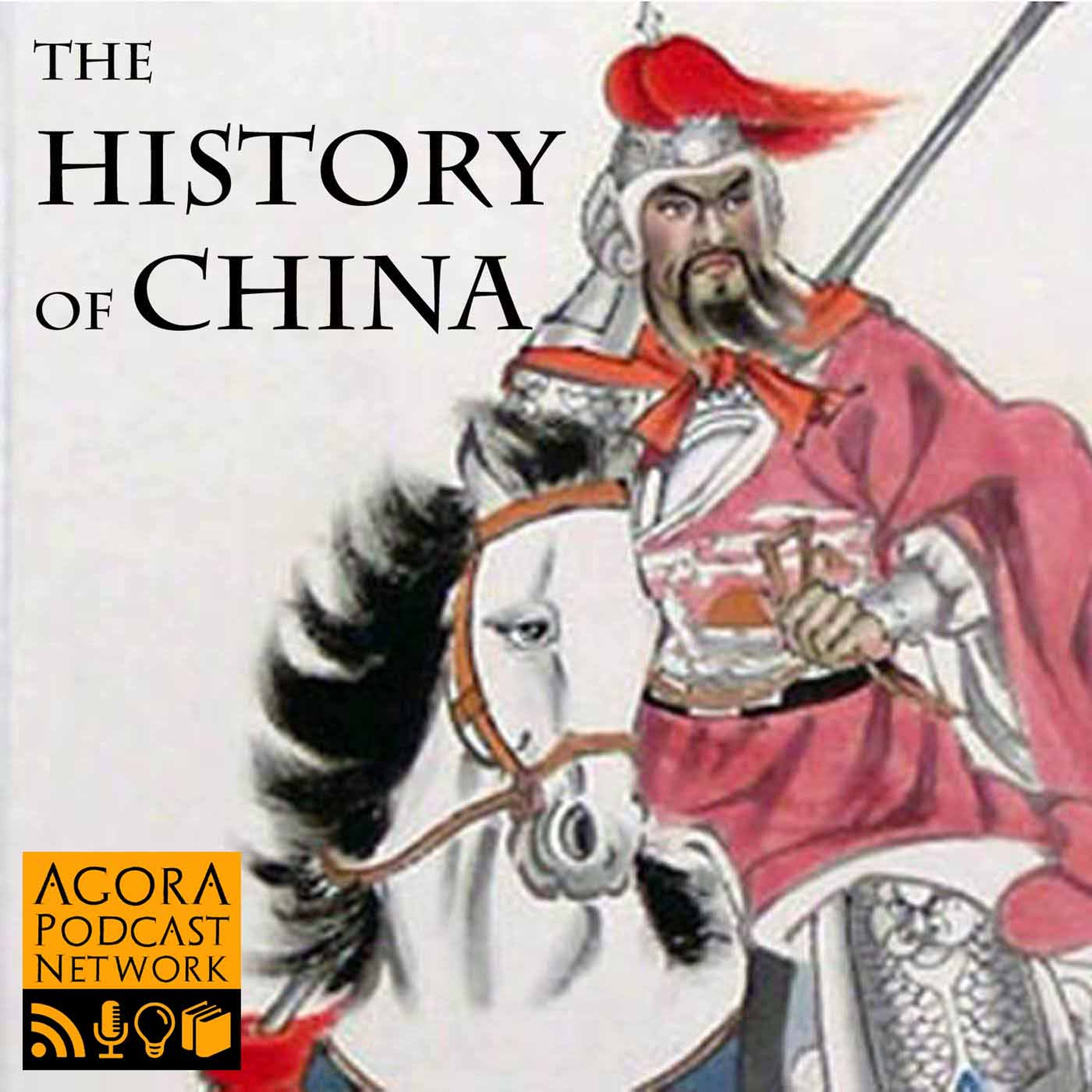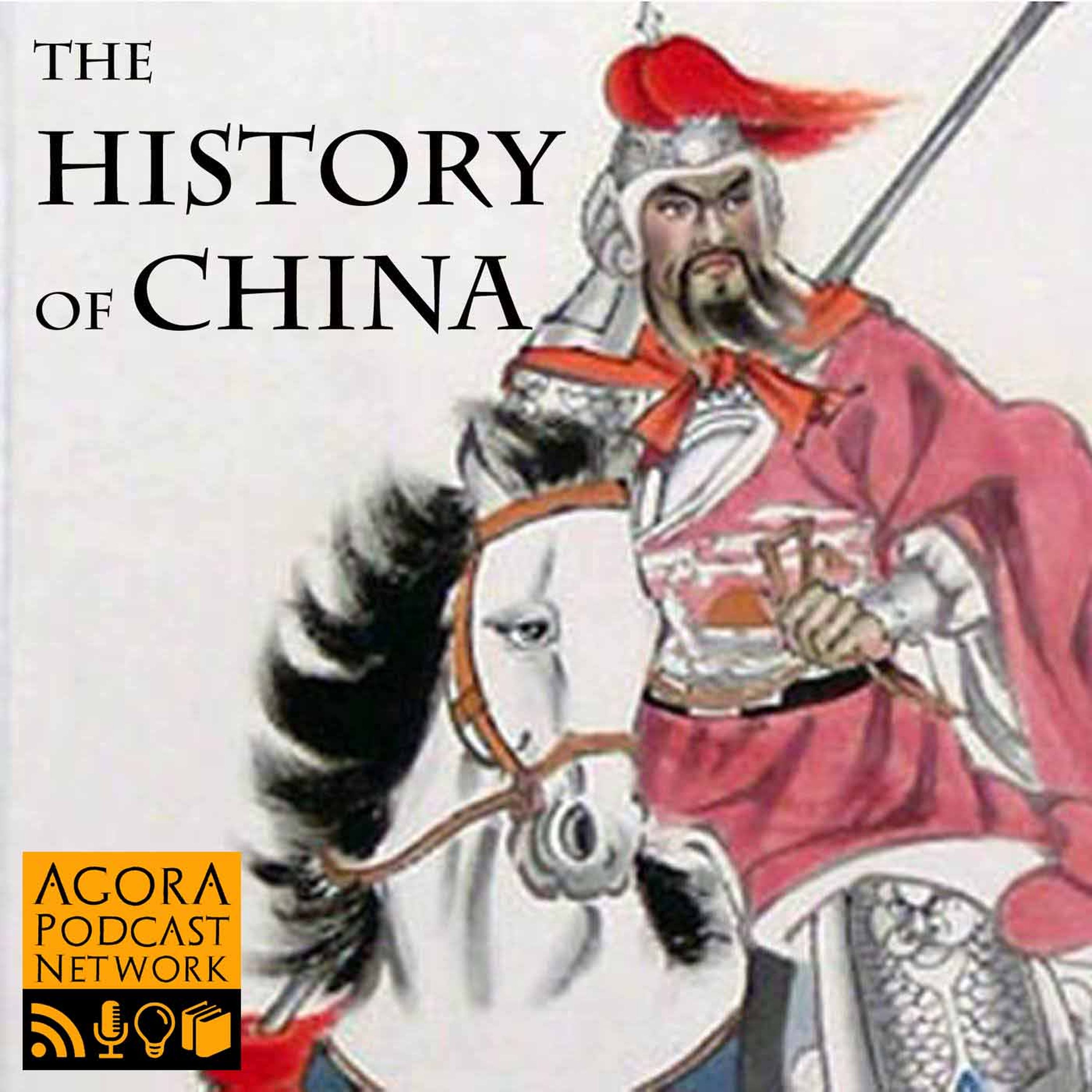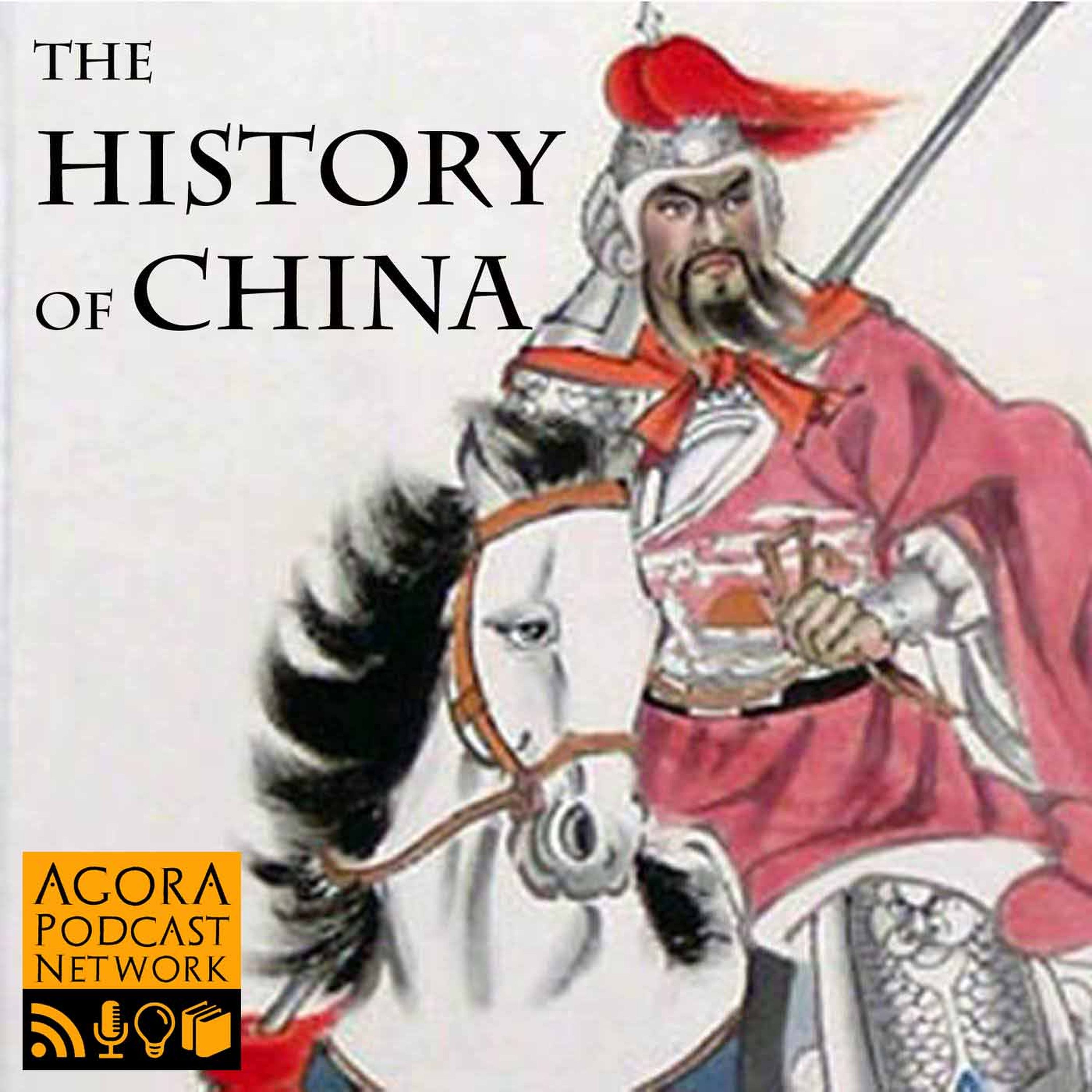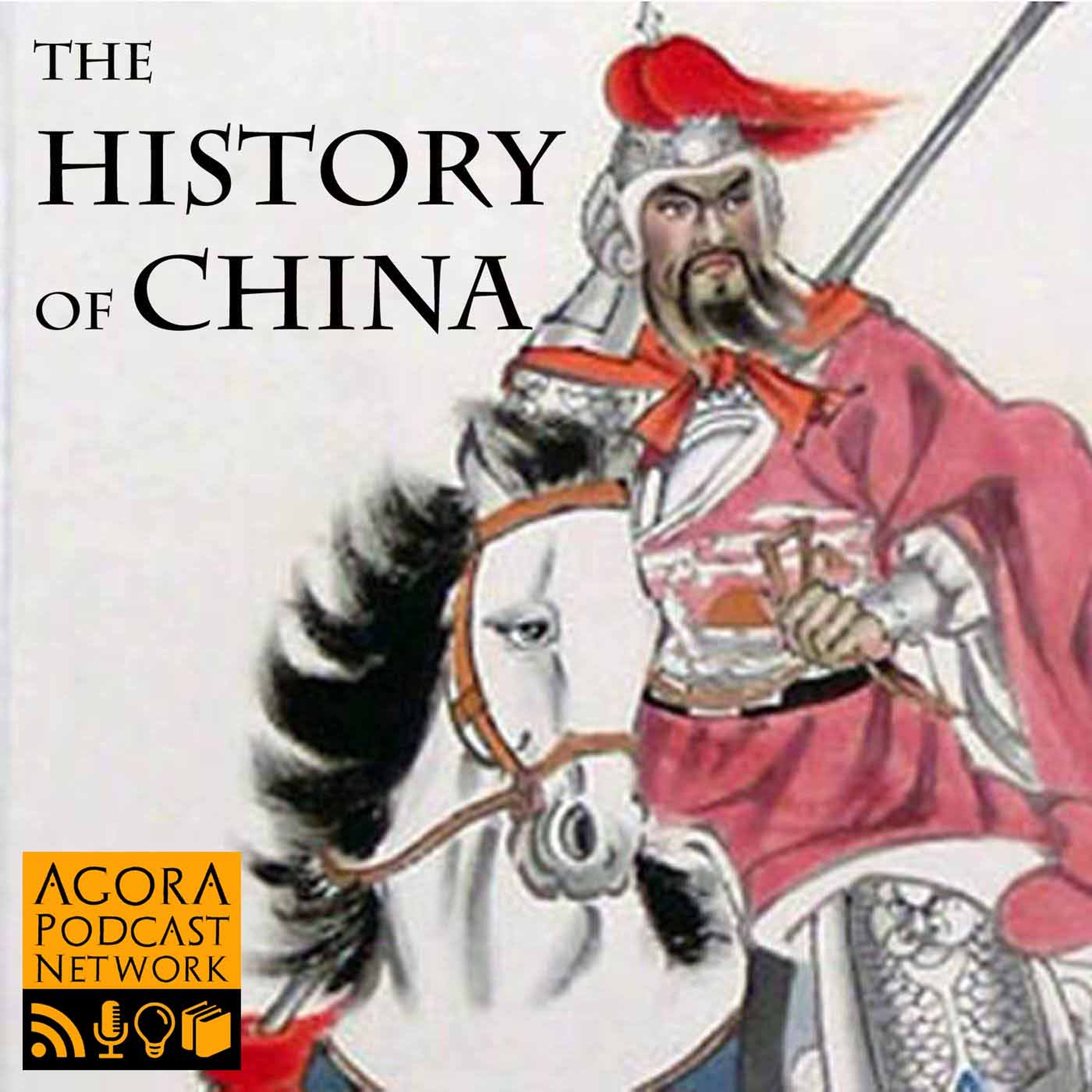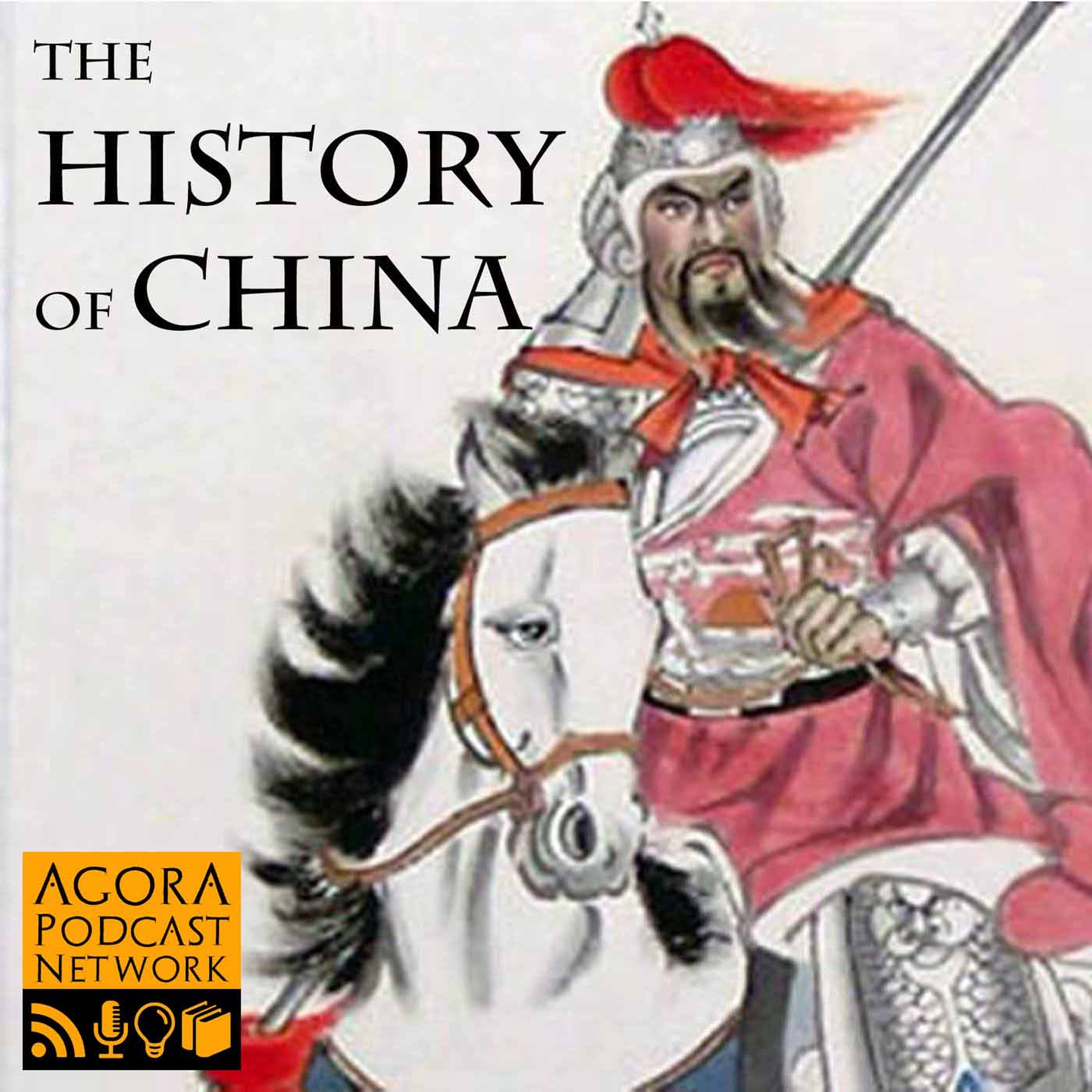The History of China
An audio journey through the 5000 year history of one of the world's oldest continuous civilizations.
The civil war between the Jianwen Emperor and his uncle, the Prince of Yan, rages on across the realm. Both sides will feel the terror and pain of the fearsome realities combat... but in the end, only one will be left standing.
Time Period Covered:
1399-1402 CE
Major Historical Figures:
The Jianwen Emperor (Zhu Yunwen) [r. 1398-1402]
Zhu Di, the Prince of Yan [1360-1424]
Minister Huang Zicheng [1350-1402]
Minister Qi Tai [d. 1402]
Minister Fang Xiaoru [1357-1402]
General Geng Bingwen [1334-1403]
General Li Jinglong [1369-1424]
Major Works Cited:
Andrade, Tonio. “How Yongle learned to stop worrying and love the gun” in The Ming World.
Chan, Hok-lam. “The Chien-wen, Yung-lo, Hung-hsi, and Hsüan-te Reigns, 1399-1435” in The Cambridge History of China, Vol. 7: The Ming Dynasty, 1368-1633, Part I.
Ditmanson, Peter. “Venerating the Martyrs of the 1402 Usurpation: History and Memory in the Mid and late Ming Dynasty” in T’oung Pao, Second Series, Vol. 93.
Ditmanson, Peter. “Fang Xiaoru: Moralistic Politics in the Early Ming” in The Human Tradition in Premodern China.
See acast.com/privacy for privacy and opt-out information.
In the wake of the Hongwu Emperor's death, his grandson - Zhu Yunwen - will assume command. He's been brought up and trained in the highest of Confucian ethics and morals, and will seek to curb the excesses of his dear grandfather's... more bloodthirsty policies. But not everyone is thrilled at the new leaf being turned in the book of the regime... especially those who stand to lose much more than they could possibly gain.
Time Period Covered:
1398-1399 CE
Major Historical Figures:
The Jianwen Emperor (Zhu Yunwen) [r. 1398-1402]
Zhu Di, the Prince of Yan [1360-1424]
Minister Huang Zicheng [1350-1402]
Minister Qi Tai [d. 1402]
Minister Fang Xiaoru [1357-1402]
General Geng Bingwen [1334-1403]
General Li Jinglong [1369-1424]
Major Works Cited:
Andrade, Tonio. “How Yongle learned to stop worrying and love the gun” in The Ming World.
Chan, Hok-lam. “The Chien-wen, Yung-lo, Hung-hsi, and Hsüan-te Reigns, 1399-1435” in The Cambridge History of China, Vol. 7: The Ming Dynasty, 1368-1633, Part I.
Ditmanson, Peter. “Venerating the Martyrs of the 1402 Usurpation: History and Memory in the Mid and late Ming Dynasty” in T’oung Pao, Second Series, Vol. 93.
Ditmanson, Peter. “Fang Xiaoru: Moralistic Politics in the Early Ming” in The Human Tradition in Premodern China.
See acast.com/privacy for privacy and opt-out information.
The Hongwu Emperor enters the twilight of his life. But before he's ready to ride off into that long sunset, he's going to take a hell of a lot more people with him...
Time Period:
1387-1398 CE
Major Historical FIgures:
The Hongwu Emperor (Zhu Yuanzhang) [r. 1368-1398]
Crown Prince Zhu Biao [1355-1392]
Crown Prince Zhu Yunwen (The Jianwen Emperor) [1377-1402]
Zhu Shuang, the Prince of Qin [1356-1395]
Zhu Gang, the Prince of Jin [1358-1398]
Zhu Di, the Prince of Yan [1360-1424]
Zhu Su, the Prince of Zhou [1361-1425]
General Fu Youde [1327-1394]
General Feng Sheng [d. 1395]
Major Sources:
Langlois, John D., Jr. “The Hung-Wu-Reign” in The Cambridge History of China, Vol. 7: The Ming Dynasty, 13698-1644m Part I.
Robinson, David M. In the Shadow of the Mongol Empire: Ming China and Eurasia.
Sun, Bing. “The burial system of imperial concubines in the Ming Dynasty and the ‘ancestral system’ of the Ming Dynasty.”
See acast.com/privacy for privacy and opt-out information.
(NOTE: This is Pt. 1 or 2. The Full Episode & all other bonus content is available via Patreon.com/thehistoryofchina)
Mongke has ascended as the Great Khan of the Mongols and set loose his younger brother, Hulegu Ilkhan to bring the Islamic world to heel. The Caliph of the Abbasid Dynasty, al-Mustasim, sits ensconced in his citadel city of Baghdad - the jewel of Islam - and believes that Allah above and his loyal subjects beneath will be more than a match for barbarian hordes.
He's about to learn a lesson neither he - nor the world - will ever forget...
Time Period Covered:
1258-1259 CE
Major Historical Figures:
Mongol Empire:
Hülegü Ilkhan [ca. 1215-1265]
General Kitbukha [d. 1260]
General Baiju [1201-1260]
Abbasid Caliphate:
al-Musta’sim-Billah Abu-Ahmad Abdullah bin al-Mustansir
Billah, 37th Caliph [1213-1258]
Governor Shahab al Din Sulaiman shah [d. 1258]
Vizier Ibn al Alkami [1197-1258]
Major Sources Cited:
Al-Din, Rashid. Jami al Tararikh (Compendium of Histories).
Al-Din, Rashid (tr. John Andrew Boyle). The Successors of Genghis Khan.
Chugtai, Mizra Azeem Baig. “The Fall of Baghdad” in The Annal of Urdu Studies.
Daftary, Farhad. The Isma’ilis: Their History and Doctrines.
Hillenbrand, Robert. “Propaganda in the Mongol ‘World History’” in British Academy Review, issue 17 (March 2011).
Hodgson, M. G. S. “The Isma’ili State” in The Cambridge History of Iran, Vol. 5: The Saljuq and Mongol Periods.
Jamal, Nadia Eboo. Surviving the Mongols: Nizari Quhistani and the Continuity of Ismaili Tradition in Persia.
Marozzi, Justin. Baghdad: City of Peace, City of Blood.
Paris, Matthew of (tr. John Allen Giles). Chronica Majora (Matthew Paris’s English History From the Year 1235 to 1273, Volume 1).
Saunders, J.J. The History of the Mongol Conquests.
van Ruysbroeck, Willem (tr. W. W. Rockhill & Peter Jackson). The journey of William of Rubruck to the eastern parts of the world, 1253-55, as narrated by himself, with two accounts of the earlier journey of John of Pian del Carpine.
Wiet, Gaston. Baghdad: Metropolis of the Abbasid Caliphate.
See acast.com/privacy for privacy and opt-out information.
To both the north and south, the armies of Great Ming continue to achieve order from chaos and stability across the realm, in the imperial palace at Nanjing, the Hongwu Emperor sits the Dragon Throne - as mercurial and temperamental as its very namesake... and woe betide anyone who stokes the dragon's wrath. Still, in the name of greater peace (and fewer mass slaughters), many a brave (and often fatally foolish)scholar will tempt fate by trying to tell Hongwu what he's doing wrong.
Time Period Covered:
1379-1389 CE
Major Historical Figures:
Ming:
The Hongwu Emperor (Zhu Yuanzhang) [r.1368-1398]
Duke Li Wenzhong [d. 1384]
General Fu Youde [d. 1394]
General Feng Sheng [?]
General Lan Yu [d. 1393]
General Mu Ying [d. 1392]
Scholar Chen Wenhui [d. 1381]
Scholar Li Shilu [d. 1381]
Scholar Xie Jin [1369-1415]
Yuan/Yunnanese:
Toghus Temür Khan [d. 1388]
Basalawarmi, the Prince of Liang [d. 1382]
General Naghachu [d. 1388]
Si Lunfa, Chieftain of Shan [d. 1386?]
Major Works Cited:
Crossley, Pamela Kyle, et al. Empire at the Margins: Culture, Ethnicity and Frontier in Early Modern China.
Dillon, Michael. China’s Muslim Hui Community: Migration, Settlements and Sects.
Langlois, John D., Jr. “The Hung-Wu-Reign” in The Cambridge History of China, Vol. 7: The Ming Dynasty, 13698-1644m Part I.
Tsai, Shi-shan Henry. The Eunuchs in the Ming Dynasty.g.
See acast.com/privacy for privacy and opt-out information.
Following the destruction of the Khwarazmian Empire in 1221, the Mongol Empire's appetite for conquest to the west is whetted. It will take a few Great Khans to kick it off, but with the accession of Möngke to the throne in 1251, the way will be laid bare - to be led by his brother Hülegü Khan.
The only thing standing between him and the beating heart of Islam is a ragged band of heretics scattered across the mountain fortresses of northern Persia - a group known as the Nizari Isma'ili... or more infamously: the Assassins.
Time Period Covered:
765-1257 CE
Major Historical Figures:
Mongol Empire:
Möngke Khaghan [r. 1251-1259]
Hülegü Ilkhan [r. 1251-1265]
General Ket-Buqa (Noyan) [d. 1260]
Nizari Isma'ili:
Imam Ja'far al-Sadiq [702-765]
Hassan-i Sabbah [1050-1124]
Imam Jalal al-Din Hassan [1187-1221]
Imam Ala al-Din Muhammad III [1211-1255]
Imam Rukn al-Din Khurshah [1230-1256]
Other:
Brother Matthew of Paris [1200-1259]
Friar William of Rubruck [1220-1293]
Ata-Malik Juvayni [1226-1283]
Rashid al-Din Hamadani [1247-1318]
Major Sources Cited:
Al-Din, Rashid (tr. John Andrew Boyle). The Successors of Genghis Khan.
Daftary, Farhad. The Isma’ilis: Their History and Doctrines.
Hillenbrand, Robert. “Propaganda in the Mongol ‘World History’” in British Academy Review, issue 17 (March 2011).
Hodgson, M. G. S. “The Isma’ili State” in The Cambridge History of Iran, Vol. 5: The Saljuq and Mongol Periods.
Jamal, Nadia Eboo. Surviving the Mongols: Nizari Quhistani and the Continuity of Ismaili Tradition in Persia.
Marozzi, Justin. Baghdad: City of Peace, City of Blood.
Paris, Matthew of (tr. John Allen Giles). Chronica Majora (Matthew Paris’s English History From the Year 1235 to 1273, Volume 1).
Saunders, J.J. The History of the Mongol Conquests.
van Ruysbroeck, Willem (tr. W. W. Rockhill & Peter Jackson). The journey of William of Rubruck to the eastern parts of the world, 1253-55, as narrated by himself, with two accounts of the earlier journey of John of Pian del Carpine.
See acast.com/privacy for privacy and opt-out information.
The founder of the Ming Dynasty, Zhu Yuanzhang, the Hongwu Emperor... has got a bit of a trust problem. It starts with him getting upset that his officials are "cutting corners" when it comes to official counts of tribute payments & the stamped documents verifying them. But it quickly spirals into full-blown paranoia that absolutely everyone is out to get them, and the only was he knows how to confront this problem is by getting all of his "enemies" first.
Time Period Covered:
ca. 1373-1382 CE
Major Historical Figures:
The Hongwu Emperor (Zhu Yuanzhang) [r. 1368-1398]
Crown Prince Zhu Biao [1355-1392]
Zhu Shuang, Prince Min of Qin [1356-1395]
Zhu Gang, Prince Gong of Jin [1358-1398]
Zhu Di, Prince of Yan [1360-1424]
Chancellor Hu Weiyong [d. 1380]
Gao Qi [1334-1374]
Prefect Ye Boju [d. 1376]
Academician Zheng Shili [d. 1376]
Sources Cited:
Brook, Timothy. The Confusions of Pleasure: Commerce and Culture in Ming China.
Langlois, John D., Jr. “The Hung-Wu-Reign” in The Cambridge History of China, Vol. 7: The Ming Dynasty, 13698-1644m Part I.
Laozi. Dao De Jing.
Luo, Yuming. A Concise History of Chinese Literature.
Strassberg, Richard E. Inscribed Landscapes: Travel Writing from Imperial China.
See acast.com/privacy for privacy and opt-out information.
You might not be able to go on a real holiday - but today we take a little audio trip to the city of Hangzhou, Zhejiang... famed across the millennia for its beautiful bay, canals, and the famous West Lake.
This is no ordinary tourist get-away, though, because we'll be skipping across time, looking at the highlights of its early history.
Time Period Covered:
ca. 5,000 BCE- ca. 960 CE
Major Sources:
Cotterell, Arthur. The Imperial Capitals of China – An Inside View of the Celestial Empire.
Giles, Lionel (tr.) Sun Tzu’s The Art of War.
Loewe, Michael and Edward L. Shaughnessey. The Cambridge History of Ancient China.
Mote, F.W. Imperial China.(900-1800).
Rossabi, Morris. China Among Equals: the Middle Kingdom and its Neighbors, 10th-14th centuries.
Schmidt, J. D. Within the Human Realm: The Poetry of Huang Zunxian, 1848-1905.
Yan, Zi. Famous Temples in China.
See acast.com/privacy for privacy and opt-out information.
The Hongwu Emperor officially accedes to the throne as the founding ruler of Great Ming, to as much pomp and circumstance as his ministers can possibly pack in to the ceremony. After the parties are all done and the sacrifices all made, however, the real work of governing an empire that has been ravaged for centuries begins… and not everyone is happy about having a new sovereign sitting atop the dragon throne.
Time Period Covered:
1367-1373 CE
Major Historical Figures:
Great Ming:
The Hongwu Emperor (Zhu Yuanzhang) [r. 1368-1398]
Empress Xiaocigao (née Ma Xuying) [1332-1382]
Zhu Biao, Crown Prince [1355-1392]
Zhu Shuang, Prince of Qin [1356-1395]
Zhu Gang, Prince of Jin [1358-1398]
Zhu Di, Prince of Yan [1360-1424]
Tao Kai, Minister of Rites
General Xu Da [1332-1385]
General Deng Yu
General Fu Youde [1327-1394]
Ambassador Zhao Zhi
Xia Kingdom (Sichuan):
Emperor Ming Yuzhen [r. 1360-1366]
Emperor Ming Sheng [r. 1366-1371]
Nanchō Japan:
Prince Kaneyoshi, the Chinzei Shogun [c. 1329-1383]
Monk Sorai
Major Works Cited:
Chan, Hok-Lam. “Ming Taizu’s Problem With his Sons: Prince Qin’s Criminality and Early Ming Politics” in Asia Major, Third Series, Vol. 20, No. 1 (2007).
Langlois, John D. “The Hung-wu Reign” in The Cambridge History of China, Vol. 7: The Ming Dynasty, 1368-1644, Part 1.
See acast.com/privacy for privacy and opt-out information.
"The list of their disasters was much lengthened [...] and whenever they tried to force a way into the borders of the empire, they were beaten back. They were once more confined to the great desert, whence they originally sprang.”
“Although I am a woman, I have avenged the vengeance of my husband. When I die, there will be no regret.”
Time Period Covered:
1368~1399 CE
Major Historical Figures:
Yuan/ Northern Yuan:
Toghon Temür (Emperor Shun) [r. 1333-1368, 1368-1369]
Ayurshiridara (Biligtü Khan) [r. 1370-1378]
Prince Maidiribala [1338-1378]
General Köke Temür [1330-1375]
Elbeg Khan [r. 1393-1399]
Oljeitu Khatun [d. ~1399]
Ming:
Zhu Yuanzhang (Hongwu Emperor) [r. 1368-1399]
Xu Da, "Barbarian-Conquering Generalissimo" [1332-1385]
General Li Wenzhong [1339-1383]
See acast.com/privacy for privacy and opt-out information.
You are invited to a very exclusive party. Everyone who's anyone will be there, dressed to the nines. You're sure to have the time of your life, and won't even know where the time's gone...
Story by: Edgar Allen Poe
See acast.com/privacy for privacy and opt-out information.
The chill of autumn is in the air once again, which can only mean one thing! It’s time for more tales to terrorize & titillate, baffle & bemuse… it’s time to once again venture into the studio of Pu Songling and listen to his strange tales. So gather round the light of the fire… or the iPhone… and get ready for seven strange stories of sly foxes, flights of fancy, monstrous appetites, unusual encounters, otherworldly lessons, tricky traders, and enchanting apparitions...
00:58: The Half-Fox Girl
10:55: The Painted Wall
18:27: The Monster In the Buckwheat
21:48: The Girl From Nanjing
25:45: A Most Exemplary Monk
28:07: Stealing a Peach
33:38: The Hungry Bride
36:07: The Magic Sword & the Magic Bag
See acast.com/privacy for privacy and opt-out information.
How does a peasant, orphan, son of a farmer
in the Black Death, made a monk in the middle of a forgotten spot
In central Anhui by providence impoverished
In squalor, grow up to be a rebel hero, then a monarch?
Time Period Covered:
1364-1368 CE
Major Historical Figures:
Ming:
Zhu Yuanzhang (Hongwu Emperor) [r. 1368-1398]
General Xu Da [1332-1385]
General Chang Yuchun [1330-1369]
Commander Li Wenzhong [1338-1384]
Yuan:
Emperor Toghon Temür [r. 1333-1368, 1368-1370]
Crown Prince Ayushiridara [1340-1378]
General Chaghan Temür [d. 1362]
General Köke Temür [1330-1375]
General Bolod Temür [d. 1364]
Wu:
Zhang Shicheng (King of Dazhou) [r. 1354-1367]
General Li Bosheng
See acast.com/privacy for privacy and opt-out information.
It's our 200th(ish) episode!
And so we take to the listeners to answer some of their burning questions about... Daoist gods... Islam in China... The Mandate of Heaven... sacrifices! ... the political expedience of murdering Mongol ambassadors... The Duke ... the names of emperors... technology transfers ... Korean empresses... and more!
See acast.com/privacy for privacy and opt-out information.
You don't understand! Chen Youliang coulda had class! He coulda been a contender! He coulda been somebody... instead of a bum, which is what he is after the fiasco on the waters of Lake Poyang. Let's face it.
Time Period Covered:
1360-1363 CE
Major Historical Figures:
State of Ming:
Zhu Yuanzhang
Commander Hua Yun [d. 1360]
Han Lin'er, "Emperor of Song"
General Kang Maocai
General Xu Da
General Hu Dahai [d. 1361]
General Shao Rong [d. 1361]
State of Han:
Emperor Chen Youliang [r. 1360-1363]
General Chen Yuren
Xu Shouhui, "Emperor" of Tianwan [d. 1360]
State of Wu:
Zhang Shicheng
Yuan Dynasty:
Emperor Toghon Temur
Prince Chaghan Temur [d. 1361]
Köke Temur (Wang Baobao)
See acast.com/privacy for privacy and opt-out information.
When Ögedei dies in late 1241, the empire must choose a successor before it can move forward. In spite of the late Khan determining in advance that it should be his grandson, his empress has other ideas - namely, installing her own irascible son, Güyük, instead. This raises more than a few eyebrows, especially from the Lord of the Golden Horde (and Güyük's personal nemesis) Batu Khan. He'll spend then next 5 years doing absolutely everything in his power to prevent Güyüks' enthronement. And so, when Güyük is finally installed... is it any surprise that he'll seek to get even on his hated cousin? Their looking showdown on the fields of Dzungaria will set the stage for a truly unpredictable series of events, that will leave the Mongol Empire altered forever...
(NOTE: This is Part 1 of a Bonus Episode! Get the rest, and all other bonus content by subscribing via patreon.com/thehistoryofchina
Time Period Covered:
1242-1254 CE
Major Historical Figures:
Mongol Empire:
Temuge Otchigin, Genghis Khan's youngest brother, Prince of the Hearth [1168-1246]
House Ögedei:
*Ögedei Khaghan [r. 1232-1241]
Toregene Khatun [r. 1242-1246]
Güyük Khaghan [r. 1246-1248]
Oghul Khaimish Khatun [r. 1248-1251]
Prince Shiremun [d. 1251]
Prince Khodan [d. 1246]
Lady Fatima [d. 1246]
House Tolui:
*Tolui Otchigin [1191-1232]
Sorkhakhtani Beki [1190-1252]
Möngke Khaghan [r. 1251-1259]
Prince Khubilai
Prince Hulagu
Prince Ariq Boke
General Menggesar, Noyan Companion of Mongke
House Jochi:
*Jochi [c. 1182-1225]
Batu, Khan of the Golden Horde [1205-1255]
Major Sources Cited:
- De Nicola, Bruno. “Regents and Empresses: Women’s Rule In the Mongols’ World Empire” in Women in Mongol Iran: The Khatuns, 1206-1335.
- Hamadani, Rashid-al-Din. Compendium of Chronicles. Dowson, John (tr.)
- Juvaini, Ata-Malik. History of the World Conqueror. (tr. John Andrew Boyle).
- Kim, Hodong. “A Reappraisal of Güyüg Khan” in Mongols, Turks, and Others: Eurasian Nomand and the Sedentary World.
- Man, John. Kublai Khan: The Mongol King Who Remade China.
- McLynn, Frank. Genghis Khan: This Conquests, His Empire, His Legacy.
- Onon, Urgunge (tr.). The Secret History of the Mongols: The Life and Times of Chinggis Khan.
- Rockhill, William Woodville (tr.). The journey of William of Rubruck to the eastern parts of the world, 1253-55, as narrated by himself, with two accounts of the earlier journey of John of Pian de Carpine.
- Rossabi, Morris. “The Reigns of Ogodei and Guyug” in The Cambridge History of China, Vol. 6: Alien Regimes and Border States, 907-1368.
- Weatherford, Jack. Genghis Khan and the Making of the Modern World.
See acast.com/privacy for privacy and opt-out information.
As Guard-Captain of the Red Turbans, Zhu Yuanzhang sets his sights on the jewel of the southlands: Nanjing. Once that's in his grasp, he'll truly join the ranks of the top-tier warlords of the era... but when you've elbowed you way up to the head table, don't be surprised if those you bump up against take exception to you shoving them aside...
Time Period Covered:
1355-1360 CE
Major Historical Figures:
Yuan Dynasty:
Emperor Toghon Temur (Huizong/Shundi) [r. 1333-1368, 1368-1370]
General Shimo Yisun [d. 1360]
Red Turban:
Emperor of Song, Han Lin'er, the Little Lord of Light [r. 1351-1367]
Guo Zixing [d. 1355]
Ming:
Guard-Captain Zhu Yuanzhang, "Outstanding Hero" [1328-1398]
General Xu Da [1332-1385]
General Chang Yüchen
General Hu Dahai [d. 1362]
Minister Song Lian [1310-1381]
Han:
King Chen Youliang [1320-1363]
Wu:
Zhang Shicheng, the "Heaven Blessed" King, Salt-Smuggler Extraordinaire [1321-1367]
See acast.com/privacy for privacy and opt-out information.
My long-lost conversation with the hosts of the excellent ReConsider Podcast, Xander and Eric... now *finally* delivered to you!
See acast.com/privacy for privacy and opt-out information.
As the cataclysmic decade of the 1340s rolls in to the 1350s a planned rerouting of the Yellow River will trigger a massive uprising by what the Yuan authorities call the Red Turban Rebels. But who are they really? What do they believe? Why are they fighting? And how do they tie in with the eventual overthrow of the Mongols from their hegemony over China?
Major Historical Figures:
Maitreya Buddha, Successor to Gautama Buddha [???]
Mani the Last, Prophet of Manichaeism [ca. 216-277 CE]
Red Turbans:
Peng Yingyu, Buddhist Monk, "Father" of the Red Turbans [d. ca. 1348-1358]
Northern:
Han Shantong, Lord of Light [d. 1351]
Han Lin'er, the Young Lord of Light [1340-1367]
General Liu Futong (AKA "Liu Fangshi") [1321-1363]
Guo Zixing, Leader of Red Turban Army, Lord of Haozhou [d. 1355]
Zhu Yuanzhang, Buddhist mendicant monk, Guard Commander of the Red Turbans [1328-1398]
Southern:
Xu Shouhui, cloth-merchant, Emperor of Tianwan Kingdom, Maitreya Incarnate [1320-1360]
Qing Dynasty:
Huang Yupian, Qing Dynasty Magistrate and White Lotus Hunter [mid-19th century]
Major Sources Cited:
Brook, Timothy. The Confusions of Pleasure: Commerce and Culture in Ming China.
Buckley Ebrey, Patricia and Anne Walthall. Pre-Modern East Asia: A Cultural, Social, and Political History, Volume I.
Chao, Wei-pang. “Secret Religious Societies in North China in the Ming Dynasty” in Folklore Studies, Vol. 7.
Farmer, Edward L. Zhu Yuanzhang and Early Ming Legislation: The Reordering of Chinese Society following the Era of Mongol Rule.
Flower, Theresa. “Millenarian Themes of the White Lotus Society.”
Hung, Hing Ming. From the Mongols to the Ming Dynasty: How a Begging Monk Became Emperor of China, Zhu Yuan Zhang.
Lin, Wushu. “A Study On Equivalent Names of Manichaeism in Chinese” in Popular Religion and Shamanism.
Lin, Wushu. Manichaeism and its Dissemination in the East.
Ma, Xisha. “The Syncretism of Maitreyan Belief and Manichaeism in Chinese History” in Popular Religion and Shamanism.
Mote, Frederick W. Imperial China: 900-1800.
Mote, Frederick W. “The Rise of the Ming Dynasty, 1330-1367” in The Cambridge History of China, Vol. 7: The Ming Dynasty.
Overmeier, Daniel L. “Folk-Buddhist Religion: Creation and Eschatology in Medieval China” in History of Religions, Vol. 12, No. 1.
Shek, Richard. “Religious Dissenters in Ming-Qing China” in Religion and the Early Modern State: Views from China, Russia, and the West.
Tan, Chung. Across the Himalayan Gap: An Indian Quest for Understanding China.
Ter Haar, B.J. The White Lotus Teachings in Chinese Religious History.
Wang, Kristen. “Scandalous Tales Behind Nanjing’s 70 Ancient Names” in The Nanjinger, 07/04/2019.
Waterson, James. Defending Heaven: China’s Mongol Wars, 1209-1370.
See acast.com/privacy for privacy and opt-out information.
My presentation to the 2020 Intelligent Speech Convention, on Women, Minorities, and reading between the bamboo scrolls of history to find the hidden stories. Also with a Q&A session after.
See acast.com/privacy for privacy and opt-out information.
As Toghon Temur - the eleventh and final Great Khan of the Yuan, takes the throne - the dam holding back the near century of bad decisions back begins to buckle. Things are not helps by a dramatic climate shift, or the outbreak of one of the worst pandemics in human history, either... can we really blame the apocalyptic cults that spring up for thinking it's the end of the world?
Time Period Covered:
1333~1344 CE
Major Historical Figures:
Toghon Temur Khaghan [r. 1333-1368, 1370]
Grand Chancellor Bayan Ba'atur of the Merkid [1280-1340]
Zhu Yuanzhang [1328-1398]
See acast.com/privacy for privacy and opt-out information.
31 years later,
To forget is to risk it all happening anew...
See acast.com/privacy for privacy and opt-out information.
In the aftermath of the Golden Horde's devastating strike into Eastern Europe, Christendom reels. As apocalyptic as the assaults were, the great enemy's sudden and inexplicable evaporation offers no comfort, and only more questions.
In order to get some answers, the Holy See will dispatch an unlikely candidate to make his way across the whole of Eurasia in an attempt to first find, and then meet with, the King of the Tartars - whoever, and wherever he may be...
Time Period Covered:
1245-1247 CE
Major Historical Figures:
European Christendom:
Pope Innocent IV [r. 1243-1254]
Friar Giovanni da Pian del Carpine (John of Plano Carpini) [ca. 1185-1252]
Friar Benedict of Poland [ca. 1200-ca. 1280]
Friar Stephen of Bohemia
Konrad I, High Duke of Krakow [ca. 1187-1247]
Prince Daniel Romanovich of Galacia [1201-1264]
Grand Prince Vasilko (Basil) Romanovich of Kiev [1203-1269]
Grand Prince Yaroslav II Vsevolodovich of Vladimir [1191-1246]
Mongol Empire:
Guyük Khaghan [r. 1246-1248]
Toregene Khatun [r. 1241-1246]
Batu Khan of the Golden Horde [ca. 1205-1255]
Grand Secretary Chinqai of Khwarazm
See acast.com/privacy for privacy and opt-out information.
My interview with Beijing-based author and journalist Michael Schuman about China's history, present, future, and food... and of course about his upcoming book, "Superpower Interrupted: The Chinese History of the World," available on June 9th, 2020.
Find Michael on Twitter under the handle @michaelschuman
See acast.com/privacy for privacy and opt-out information.
We start today in the aftermath of the murder of the 9th Great Mongol Khan and the 5th Emperor of Yuan. We end a decade later, at the beginning of the 15th Great Khan and 11th Yuan Emperor... coincidentally (or not) the last of both. The treachery, assassinations, wars, and power-plays that get us from that start to that end will threaten to split the very soul of the empire in two. Also, there's a lot of Temürs along the way... like, a *lot,* a lot!
Time Period Covered:
1323-1333 CE
Major Events:
* Coup at Nanpo [Sept. 4, 1323] - Outcome: assassination of Shidebala Khaghan, accession of Yesün Temür Khaghan
* War of the Two Capitals [Aug. 1328-Nov. 14, 1328 (sporadic resistance thru 1332)] - Outcome: Khaishan Restorationist victory/ Shangdu Loyalist defeat, overthrow of Aragibagh & enthronement of Jayaatu Khaghan
* Incident at Ongghochatu [Aug. 26-30, 1329] - Outcome: assassination of Khoshila, restoration of Togh Temur Khaghan to the throne
Relevant Historical Figures:
Great Yuan:
Shidebala (Gegeen Khaghan/Yuan Yingzong) [r. 1320-1323]
Yesün Temür (Khaghan/Yuan Taiding) [r. 1323-1328]
Aragibagh (Khaghan/Yuan Tianshun) [r. Oct.-Nov. 1328]
Togh Temür (Jayaatu Khaghan/Yuan Wenzong) [r. Oct. 1328-Apr. 1329, Sept. 1329- Sept. 1332]
Khoshila (Khutughtu Khaghan/Yuan Mingzong) [r. Feb. 1329-Aug. 1329]
Rinchinbal (Khaghan/Yuan Ningzong) [r. Oct. 29, 1332-Dec. 14, 1332]
Toghon Temür (Ukhaghatu Khaghan/Yuan Huizong) [r. 1333-1368]
Empress Budashiri [1307-1340]
Crown Prince Aradnadara [d. 1330]
Prince El Tegüs [c. 1329-c. 1340]
Daula-shah, Grand Councilor of the Right [d. 1228]
El Temür, General & Grand Councillor of the Right [d. 1333]
Bayan of the Merkids, General & Grand Councillor of the Left [d. 1340]
Chagatai Khanate:
Esen Bukha I, Khan [r. 1310-1318]
Eljigidey Khan [r. 1326-1329]
Golden Horde:
Öz Beg Khan [r. 1313-1341]
Ilkhanate:
Abu Sa'id (Bahadur Khan) [r. 1316-1335]
See acast.com/privacy for privacy and opt-out information.
Temur Khan's death without an heir sparks a power vacuum within the Yuan court - two brothers will come to power together, but only one will be able to sit the throne at a time, who will succeed? Meanwhile, as money issues continue to plague the empire, the Mongol nobility get more and more fed-up with the Yuan Borjigins' continual shift toward Chinese-style reforms.
Time Period Covered:
1307-1323 CE
Major Historical Figures:
Khaishan (Külüg Khaghan/Emperor Wuzong) [r. 1307-1311]
Ayurbarwada (Buyantu Khaghan/Emperor Renzong) [r. 1311-1320]
Shidebala (Gegeen Khaghan/Emperor Yingzong) [r.1320-1323]
Grand Empress Dowager Targi [d. 1322]
Empress Bulukhan [d. 1307]
Khosila, Prince of Zhou
Prince Ananda [d. 1307]
Grand Councilor of the Right, Harghasun [d. 1307]
Grand Councilor of the Right, Temüder [d. 1322]
Grand Councilor of the Left/Right, Baiju [d.1323】
See acast.com/privacy for privacy and opt-out information.
King Bela IV of Hungary has a bit of a barbarian problem. You see, he let in some Cumans, but now some different barbarians are demanding that he give them back. So Bela does the sensible thing: he kills the Mongol emissaries. Batu Khan and General Subotai are less than pleased...
Time Period Covered:
c. 1239-1242 CE
Major Historical Figures:
Mongol Empire:
Batu Khan [c. 1205-1255]
General Subotai Ba'atur ("the Valiant") [c. 1175-1248]
General Khadan [d. 125?]
General Shiban [d. 1266]
Kingdom of Greater Hungary:
King Bela III [r. 1172-1196]
King Andrew II [r. 1205-1235]
King Bela IV [r. 1235-1265]
Duke Coloman of Slavonia [d. 1241]
Archbishop Ugolin of Kaolocsa [d. 1241]
Duke Palatine of Hungary [d. 1241]
Bishop Benedict of Oradea [d. 1241]
Templar Master Rembald de Voczon [d. 1241]
Archdeacon Thomas of Spalato [1200-1268]
Master Roger of Torre Maggiore, Archdeacon of Varad [1205-1266]
Cuman Tribes:
Chieftain Khotan [d. 1140]
Austria:
Duke Frederick of Austria "the Quarrelsome" [d. 1245]
Holy Roman Empire:
Emperor Frederick II [r. 1220-1250]
Conrad IV, King of Italy, Germany, the Romans, and Jerusalem [r. 1228-1254]
Roman Catholic Church:
Pope Gregory IX [r. 1227-1241]
See acast.com/privacy for privacy and opt-out information.
Olziyet Temur - the Blessed Iron Khan - takes the throne as the Yuan Dynasty's second emperor, Changzong "The Preserver." He has taken it upon himself to uphold and protect his grandfather Khubilai's glorious legacy... but granddad sure left a bit of a mess for him to try to clear up.
Time Period Covered:
1294-1307 CE
Major Historical Figures:
Olziyet Temur Khan (Emperor Changzong of Yuan) [r. 1294-1307 CE]
Empress Bulukhan
Crown Prince Deshou [d. 1306]
Empress-Dowager Kököchin
Gammala, Prince of Jin
Öljei, Grand Councilor of the Right [d. 1303]
Sayyid Boyan al-Dīn, Finance Minister
Khaidu Khan of House Ögedei [d. 1301]
Du'a Khan of House Chagatai
Öljeitu, Ilkhan of House Hülegü
General Bayan of the Barin, "Hundred Eyes"
See acast.com/privacy for privacy and opt-out information.
Khubilai is ancient, pained, and sick... but he still has more Mongol justice to mete out before he joins the Eternal Sky. Still, some campaigns will go better than others.
Period Covered:
ca. 1287-1294 CE
Major Historical Figures:
Yuan Dynasty:
Khubilai (Emperor Shizu) [r. 1260-1294]
Crown Prince Olziit Temur (Emperor Chengzong) [r. 1294-1307]
Prince Esen Temur
Prince Temur Bukha
General Shibi
General Gao Xing
Admiral Yike Musi
Ambassador Meng Qi
Phagspa Lama, Imperial Preceptor of Tibet [1235-1280]
Imperial Preceptor Dharmapalarasita
Kingdom of Pagan (Burma):
King Narathihapate [r. 1256-1287]
Kingdom of Singhasari (Java):
King Kertanagara [d. 1292]
Prince Raden Vijaya [r. 1293-1309]
Duke Jayakatwang of Kediri [d. 1293]
Mongol Khanates:
Du'a Khan of the Chagatids
Khaidu Khan of the Ögedeids [d. 1301]
Prince Nayan [d. 1287]
See acast.com/privacy for privacy and opt-out information.
Traditional Chinese Medicine - as its name duly implies - has been a part of China for at least 2,500 years. But what does it mean? Where does it come from? How does it work? And does it have a place it modern society?
See acast.com/privacy for privacy and opt-out information.
Khubilai Khan has led a pretty blessed existence as of the year 1279. But fate has a way of balancing things out in starkly brutal fashion...
Time Period Covered:
~1279-1287 CE
Major Historical Figures:
Yuan Dynasty:
Emperor Khubilai
Empress Chabi (d. 1281)
Crown Prince Zhenjin (1242-1285)
Prince Toghon, Prince of Suppression of the South
Finance Minister Ahmad Fanakati (d. 1282)
Finance Minister Lu Shijing (d. 1285)
Admiral Hong Tau
General Fan Wenhu
General Xindu
General Nasir al-Din
Commander Sodu (d. 1285)
Commander Arigh Khaya
Japanese Shogunate:
Hojo Tokimune, Regent of the Shogun
Kingdom of Pagan:
King Narathihapate
Kingdom of Champa:
King Jaya Indravarman VI
Kingdom of Dai-Viet:
Emperor Tran Than-Tong
See acast.com/privacy for privacy and opt-out information.
Khubilai Khan is a man astride multiple worlds - trying to be both the Khan of the Great Mongol Nation, and the Emperor of the Yuan Dynasty. This will take quite a bit of accommodation, and between Mongolian shamanism, Chinese Confucianism, Buddhism, Daoism, Islam, and Christianity... more than a little behaving like a cultural chameleon to square those civilizational circles.
See acast.com/privacy for privacy and opt-out information.
Jochi was tasked with subduing the Cuman tribes of the western steppes. Jochi failed. Now, under the second Great Khan Ögedei, it will fall to his successor, Batu, Khan of the Golden Horde, to finish what his father could not. He won't be going alone, though. In addition to his invincible tumens, he'll bring with him a host of imperial princes, as well as the greatest commander to ever mount a steed - Subotai the Valiant, now returns to the Western expanses to finish what he began 15 years ago...
Note: this is part 1 of an extended bonus episode! Find the full episode and all other Bonus Episodes by become a patron at patreon.com/thehistoryofchina
Time Period Covered:
ca. 1235-1240 CE
Major Historical Figures:
Mongol Khanate:
Ögedei Khaghan (1186-1241)
Subotai Ba'atuur, The Last Orlok (ca. 1176-1248)
General Uriyangkhadai (1201-1272)
House Ogedeid:
Guyuk (1206-1248)
Khadan (?)
Khaidu (c. 1230-1301)
House Jochi (Golden Horde):
Batu Khan (ca. 1205-1255)
House Tolui:
Möngke (1209-1259)
Bujek (?)
House Chagatai:
Baidar(?)
Buri (d. 1252)
Kipchak-Cuman Confederacy:
Bachman Khan (d. 1237)
Khoten Khan (d. 1241)
Russian Principalities:
Grand Prince Yuri II of Vladimir (1188-1238)
Prince Roman of Vladimir (d. 1238)
Prince Michael of Chernigov (1179-1246)
Dmitri, Voivode of Kiev (?)
Kingdom of Hungary:
King Béla IV (1206-1270)
See acast.com/privacy for privacy and opt-out information.
It's finally time to give holiday thanks and - of course - submit myself before the high inquisitors pelting me with questions day and night!
Topics this year ranged far and wide:
1. How wide-ranging was Genghis Khan's last command in Western Xia?
2. How do I keep my loud mouth out of trouble with the PRC?
3. How "good" were the good times of dynasties for the normies?
4. Which Khan has got it goin' on?
5. Were there plagues in ancient China? How were they dealt with?
6. Did the Mongols trigger anti-foreign conservatism in the Ming?
7. Where should we divide "Chinese" history from "non-Chinese" history?
8. Just how incompetent was the Song Dynasty?
9. Why does THoC be like it do?
10. How did the Mongols relay orders over long distances before writing?
11. How much was opium to blame versus other factors in the decline and fall of the Qing Dynasty?
See acast.com/privacy for privacy and opt-out information.
While his armies have been keeping busy in every direction on both offense and defense, Emperor Khubilai had been hard at work re-organizing the mess his family made in China and reformatting it into a stable, lawful Yuan Dynasty. And Grandpa Genghis was right: it's was a *lot* more work to run an empire, than to conquer one...
Period Covered:
ca. 1261-1290
See acast.com/privacy for privacy and opt-out information.
Khubilai must face off against his most potent threat - his own traditionalist cousin, Khaidu. Meanwhile, Khaidu frets over his daughter Khutulun - a girl as desirable as she is formidable, and will brook no husband who cannot best her at wrestling.
Time Period Covered: ca. 1265-1306 CE
Notable Historical Figures:
Yuan Dynasty:
Khubilai Khan
Prince Zhenjin
Prince Nomukhan
Prince Kokochu
Prime Minister of the Right Antong
General Bayan
Chagatai Khanate:
Khaidu Khan
Princess Khutulun
Rebel Princes:
Togh Timur
Shiregi
Yobukhur
Melik Timur
See acast.com/privacy for privacy and opt-out information.
The armies of Great Yuan sweep across the east, destroying and conquering all who would stand against them. Goryeo Korea eventually sees the writing on the wall and cuts a deal with the Great Khan. Khubilai will then turn his sights out over the waters of the Pacific, to the Land of the Rising Sun... and send its monarch a friend request.
Time Period Covered:
ca. 1257-1275 CE
Major Historical Figures:
Yuan Dynasty:
Khubilai, Great Khan of Mongolia, Emperor of Yuan
Princess Hutulun Jielimishi
Zhao Liangbi, Yuan Emissary to Japan
Goryeo Korea:
Choi Ui, Warlord of Korea [d. 1257]
King Wonjong [r. 1260-1274]
Im Yon, Warlord [d. ca. 1271]
Pan Pu, Yuan Emissary to Japan
Kamakura Japan:
Hojo Tokimune, Regent of the Shogun (Shikken, de facto ruler of Japan)
Shoni Sukeyoshi, Magistrate of Chikuzen City
See acast.com/privacy for privacy and opt-out information.
With the untimely death of Möngke Khaghan outside the walls of Chongqing, the Mongol Empire will be fore to choose for a new emperor for the 5th time in just three decades. Unlike the first four conclaves, however, this will result in not one, but two khuriltais, and two who would be Great Khan. Möngke’s brothers, Khubilai and Ariq Böke, will duel it out across Central Asia to determine who will rule all under the Eternal Blue Sky.
Time Period Covered:
1259-1266 CE
Major Historical Figures:
Toluids:
Möngke Khaghan [d.1259]
Khubilai’s Supporters:
Khubilai Khaghan [r. 1260-1289]
Chabi Khatun [1225-1281]
Hulegu Ilkhan [d. 1265]
General Ked Bukha [d. 1260]
King Hethum I of Armenia [r. 1226-1270]
Ariq Böke Supporters:
Ariq Böke Khaghan [r. 1260-1264, d. 1266]
Berke Khan (Golden Horde/Jochid) [d. 1266]
Alghu Khan (Chagatids) [d. 1265]
Jumukhur (Ilkhanate)
Urung Tang (Möngke Toluid)
General Alandar [d. 1262]
General Durchi
Mamluk Sultanate:
Sultan Saif ad-Din Qutuz [r. 1259-1260]
Sultan Baibars [r. 1260-1277]
Song Dynasty:
Chancellor Jia Sidao [d. 1273]
See acast.com/privacy for privacy and opt-out information.
Confucius talked about a *lot* ... but there were certain things about which even the Master dare not speak. Today we break that ancient taboo with 4 stories of spooky strangeness...
2:01 - "A Karmic Meal"
5:30 - "The Concubine's Revenge"
20:22 - "Too Poor to Be Haunted"
24:26 - "A Hell of a Trial"
Adapted from:
Zibuyu "What the Master Would Not Discuss" by Yuan Mei
See acast.com/privacy for privacy and opt-out information.
Genghis Khan is dead, and his 3rd son Ögedei has ben selected to lead the Mongol Empire into an uncertain future. Once he is confirmed on the throne, he'll strike on in every direction against every foe at once. On the way, there will be virgin sacrifices, talking wolves, free money, mass enslavement, Persian princes, Assassins, poison, angry water spirits, battle-mages, cannibalism... and that's just the tip of the iceberg!
Note: This is part 1 of the 2-part conclusion to the life of Genghis Khan, with the conclusion available to subscribers via: www.patreon.com/thehistoryofchina
Time Period Covered:
1227-1234 CE
Major Historical Figures:
Ogedeids:
Ogedei Khaghan
Subotai the Valiant
General Chormakhan
Minister Yelu Chu Cai
Toluids:
Tolui Khan
Sorkhakhtani Beki Khatun
Chagatids:
Chagatai Khan
Khwarazmia:
Jalal al-Din
Kingdom of Georgia:
Queen Rusudan
See acast.com/privacy for privacy and opt-out information.
The people throughout China have been plunged into bitter suffering and tribulations since the Chiang Kai-shek Kuomintang reactionary government betrayed the fatherland, colluded with imperialists, and launched the counter-revolutionary war. Fortunately our People's Liberation Army, backed by the whole nation, has been fighting heroically and selflessly to defend the territorial sovereignty of our homeland, to protect the people's lives and property, to relieve the people of their sufferings, and to struggle for their rights, and it eventually wiped out the reactionary troops and overthrew the reactionary rule of the Nationalist government.
Now, the People's War of Liberation has been basically won, and the majority of the people in the country have been liberated. On this foundation, the first session of the Chinese People's Political Consultative Conference , composed of delegates of all the democratic parties and people's organization of China, the People's Liberation Army, the various regions and nationalities of the country, and the overseas Chinese and other patriotic elements, has been convened. Representing the will of the whole nation, [this session of the conference] has enacted the organic law of the Central People's Government of the People's Republic of China, elected Mao Zedong as chairman of the Central People's Government; and Zhu De, Liu Shaoqi, Song Qingling, Li Jishen, Zhang Lan, and Gao Gang as vice chairmen [of the Central People's Government]; and Chen Yi, He Long, Li Lisan, Lin Boqu, Ye Jianying, He Xiangning, Lin Biao, Peng Dehuai, Liu Bocheng, Wu Yuzhang, Xu Xiangqian, Peng Zhen, Bo Yibo, Nie Rongzhen, Zhou Enlai, Dong Biwu, Seypidin, Rao Shushi, Tan Kah-kee [Chen Jiageng], Luo Ronghuan, Deng Zihui, Ulanhu, Xu Deli, Cai Chang, Liu Geping, Ma Yinchu, Chen Yun, Kang Sheng, Lin Feng, Ma Xulun, Guo Moruo, Zhang Yunyi, Deng Xiaoping, Gao Chongmin, Shen Junru, Shen Yanbing, Chen Shutong, Szeto Mei-tong [Situ Meitang], Li Xijiu, Huang Yanpei, Cai Tingkai, Xi Zhongxun, Peng Zemin, Zhang Zhizhong, Fu Zuoyi, Li Zhuchen, Li Zhangda, Zhang Nanxian, Liu Yazi, Zhang Dongsun, and Long Yun as council members to form the Central People's Government Council, proclaimed the founding of the People's Republic of China and decided on Beijing as the capital of the People's Republic of China.
The Central People's Government Council of the People's Republic of China took office today in the capital and unanimously made the following decisions: to proclaim the establishment of the Central People's Government of the People's Republic of China; to adopt the Common Program of the Chinese People's Political Consultative Conference as the policy of the government; to elect Lin Boqu from among the council members as secretary general of the Central People's Government Council; to appoint Zhou Enlai as premier of the Government Adminstration Council of the Central People's Government and concurrently minister of Foreign Affairs, Mao Zedong as chairman of the People's Revolutionary Military Commission of the Central People's Government, Zhu De as commander-in-chief of the People's Liberation Army, Shen Junru as president of the Supreme People's Court of the Central People's Government, and Luo Ronghuan as procurator general of the Supreme People's Procuratorate of the Central People's Government, and to charge them with the task of the speedy formation of the various organs of the government to carry out the work of the government.
At the same time, the Central People's Government Council decided to declare to the governments of all other countries that this government is the sole legal government representing all the people of the People's Republic of China. This government is willing to establish diplomatic relations with any foreign government that is willing to observe the principles of equality, mutual benefit, and mutual respect of territorial integrity and sovereignty.
Mao Zedong
Chairman
See acast.com/privacy for privacy and opt-out information.
You know it’s hard out there for a prince. The fourth sons of a fourth son, Khubilai of the Borjigin will grow up little recognized, and bound for a life of little more than comfortable obscurity. But between his mother’s machinations, his wife’s guidance, his own skills… and a healthy smattering of good fortune, he’ll find himself suddenly thrust into the spotlight and tasked with overseeing the conquest of the Mongols’ oldest foe.
Time Period Covered:
1215-1259 CE
Major Historical Figures:
Mongol:
Tolui [c. 1191-1232] – 4th son of Genghis Khan, Khubilai’s father
Sorkhokhtani Beki [c. 1190-1252] – Khubilai’s mother, Nestorian Christian
Möngke Khaghan [1209-1259] – Tolui’s eldest son, 4th Great Khan of the Mongols
Khubilai, Ilkhan of the Left [1215-1289] – favored grandson of Genghis
Hulagu, Ilkhan of the Right [1218-1265] – 3rd son of Tolui and Sorkhokhtani
Ariq Böke [1219-1266] – youngest son of Tolui, Otchigin “Hearthkeeper”
Chabi Khatun [1225-1281] – Khubilai’s 2nd wife & only love, Tibetan Buddhist
North China:
Minister Yao Shu
Liu Bingzhong, Buddhist Monk, Adviser & Architect of Kaiping/Shangdu city
The Phagspa Lama [1235-1280]
Dali Kingdom:
King Duan Xingzhi [r. 1251-1254, 1256-1260 (as Maharaja)]
Prime Minister Gao Taixiang [d. 1253]
Major Sources:
Atwood, Christopher P. Encyclopedia of Mongolia and the Mongol Empire.
Broadbridge, Anne F. Women and the Making of the Mongol Empire.
Clements, Jonathan. A Brief History of Khubilai Khan: Lord of Xanadu, Founder of the Yuan.
May, Timothy (ed.). The Mongol Empire: A Historical Encyclopedia, vol. 1.
McLynn, Frank. Genghis Khan: His Conquests, His Empire, His Legacy.
Rossabi, Morris. “The Reign of Khubilai Khan” in The Cambridge History of China, v. 6: Alien Regimes and Border States, 907-1368.
Weatherford, Jack. The Secret History of the Mongol Queens.
See acast.com/privacy for privacy and opt-out information.
Kubla Khan
Or, a vision in a dream. A Fragment.
In Xanadu did Kubla Khan
A stately pleasure-dome decree:
Where Alph, the sacred river, ran
Through caverns measureless to man
Down to a sunless sea.
So twice five miles of fertile ground
With walls and towers were girdled round;
And there were gardens bright with sinuous rills,
Where blossomed many an incense-bearing tree;
And here were forests ancient as the hills,
Enfolding sunny spots of greenery.
But oh! that deep romantic chasm which slanted
Down the green hill athwart a cedarn cover!
A savage place! as holy and enchanted
As e’er beneath a waning moon was haunted
By woman wailing for her demon-lover!
And from this chasm, with ceaseless turmoil seething,
As if this earth in fast thick pants were breathing,
A mighty fountain momently was forced:
Amid whose swift half-intermitted burst
Huge fragments vaulted like rebounding hail,
Or chaffy grain beneath the thresher’s flail:
And mid these dancing rocks at once and ever
It flung up momently the sacred river.
Five miles meandering with a mazy motion
Through wood and dale the sacred river ran,
Then reached the caverns measureless to man,
And sank in tumult to a lifeless ocean;
And ’mid this tumult Kubla heard from far
Ancestral voices prophesying war!
The shadow of the dome of pleasure
Floated midway on the waves;
Where was heard the mingled measure
From the fountain and the caves.
It was a miracle of rare device,
A sunny pleasure-dome with caves of ice!
A damsel with a dulcimer
In a vision once I saw:
It was an Abyssinian maid
And on her dulcimer she played,
Singing of Mount Abora.
Could I revive within me
Her symphony and song,
To such a deep delight ’twould win me,
That with music loud and long,
I would build that dome in air,
That sunny dome! those caves of ice!
And all who heard should see them there,
And all should cry, Beware! Beware!
His flashing eyes, his floating hair!
Weave a circle round him thrice,
And close your eyes with holy dread
For he on honey-dew hath fed,
And drunk the milk of Paradise.
See acast.com/privacy for privacy and opt-out information.
Hangzhou is surrounded by the Mongol Yuan army, and is soon to fall. When the child-emperor and the Empress Dowager are taken captive, it will fall to the last two princes of House Zhao to flee to the islands and archipelagos of the Deep South, if they’re to stand any chance at all of keeping the flame of the Song from guttering out forever.
Time Period Covered:
1275-1279 CE
Southern Song:
Grand Empress Dowager Xie
Empress Dowager Chuan
Emperor Zhao Xian (Gong of Song) [r.1274-1276, d. 1323]
Emperor Zhao Shi (Duanzong) [r. 1276-1278]
Emperor Zhao Bing [r. 1278-1279]
Chancellor Chen Yizhong
Mongol Yuan Dynasty:
Khubilai, Mongol Khan & Emperor of Yuan
General Bayan, Commander of the Southern Campaign
General Atzuhan
Admiral Dong Wenping
Lt. Menkhutai
Lt. Fan Wenhu
See acast.com/privacy for privacy and opt-out information.
Mongolia is gripped in a civil war of its own, meaning the Song Empire has a chance to breathe. But with the immediate threat allayed for now, other problems become apparent. And when the new Great Khan, Khubilai, returns his attention to the land south of the Yangtze, China will find out whether it was a decade well spent in preparation for the coming assault, on one utterly squandered.
Time Period Covered:
1259-1275 CE
Major Historical Figures:
Song Empire:
Emperor Lizong (Zhao Yun) [r. 1221-1264]
Emperor Duzong (Zhao Qi) [r. 1264 -1274]
Grand Empress Dowager Xie [1210-1283]
Chancellor Jia Sidao [1213-1275]
Mongolia:
Möngke [1209-1259]
Khubilai [1215-1294]
Ariq Böke [1219-1264]
General Aju [1227-1287]
See acast.com/privacy for privacy and opt-out information.
Genghis Khan is old, wracked by pain in his body and heart, and in spite of his best efforts, has come to accept there is one foe he cannot defeat: mortality itself. Thus, even before setting out on his campaign against the Khwarazmian Empire, he will assemble his four sons and together reach a fateful decision - who among them will rule when Genghis is gone?
Note: This is part 1 of the 2-part conclusion to the life of Genghis Khan, with the conclusion available to subscribers!
Time Period Covered:
1220-1227 CE
Major Historical Figures:
Genghis Khan [Temüjin] (1162-1227)
Börte Khatun (c.1161-c.1130)
Jochi (1181-1226)
Chagatai Khan (1183-1242)
Ögedei Khan (c.1186-1241)
Tolui (c.1191-1232)
See acast.com/privacy for privacy and opt-out information.
The Mongol Khanate is on the warpath against all who would stand against it... until several unexpected system errors for the whole system to reboot. How will Song China deal with these unexpected years of preparatory time?
Time Period Covered:
1241-1260 CE
Major Historical Figures:
Song Dynasty:
Emperor Lizong
Chancellor Jia Sidao
Mongol Empire:
Ögedei Khan
Toregene Khatun
Guyuk Khan
Oghul Khaimish Khatun
Sorkhokhtani Beki
Möngke Khan
Khubilai Ilkhan
General Uriyangkhadai
See acast.com/privacy for privacy and opt-out information.
Just off of the heady victory over the Jin Dynasty with their new BFFs, the Mongols, a first-in-a-century visit to the Imperial Tombs gives the Song court a brilliant idea - what if we just took them back without asking? What's the worst that could happen?
Time Period Covered: 1234-1241 CE
Major Historical Figures:
Song Dynasty:
Emperor Lizong
Chancellor Zheng Qingzhi
Chancellor Shi Miyuan [d. 1233]
General Zhao Kui
General Quan Zicai
Mongol Khanate:
Ögedei Khaghan
Töregene Khatun
Prince Khödan
Prince Khöchu
Ambassador Wang Qi
See acast.com/privacy for privacy and opt-out information.
In the course of their pursuit of the fleeing Khwarazmian Amir, Genghis Khan's two top commanders have reached the shores of the Caspian Sea, and heard some of the strangest tales about what - and who - lay beyond. When the Great Khan gives his go-ahead to scout it out, they'll launch a three-year trek that will remake the world in their bloody image.
Time Period Covered:
1220-1221 CE
See acast.com/privacy for privacy and opt-out information.
The Jin Dynasty is surrounded on all sides. It cannot get out. Soon enough, the Mongol stranglehold around Kaifeng will signal the Empire of Black & Gold's death-knell.
Time Period Covered:
1224-1234 CE
See acast.com/privacy for privacy and opt-out information.
With enemies on all sides, and the Mongol sledgehammer poised to strike its crushing blow against them, the Jin Dynasty seeks an out by plunging southward, only to find that the Song defenses have become the anvil on which they rest. Exhausted, they’ll seek peace at any cost… but will it be enough to save the tatters of their empire?
Time Period Covered:
1217-1225 CE
Major Historical Figures:
Song:
Emperor Ningzong (Zhao Kuo) [r. 1194-1224]
Emperor Lizong (Zhao Yun) [r. 1224-1264]
Empress Yang [1162-1232]
Chancellor Shi Miyuan [1164-1233]
Crown Prince Zhao Xun [1194-1220]
Prince Zhao Hong [1207-1225]
General Zhao Fang
An Bing, Commandant of Sichuan
Jin:
Emperor Xuanzong (Wudubu/Wanyan Xun) [r. 1213-1224]
Emperor Aizong (Ningjiasu/ Wanyan Shouxu) [r.1224-1234]
Mongol:
Genghis Khan (Temüjin) [r. 1206-1227]
General Mukhali [1170-1223]
See acast.com/privacy for privacy and opt-out information.
Even after 30 years...
When you're ordered to forget, to remember becomes an act of defiance.
See acast.com/privacy for privacy and opt-out information.
The Jin Empire is all at once ripped apart from 4 different directions all at once: Shandong rebels from the east, Khitan from the northeast, Mongols from the northwest, and Tanguts from the West. So they decide to go the only direction left… and invade Southern Song.
Time Period Covered:
1208-1217 CE
Relevant Historical Figures:
Song:
Emperor Ningzong
Chancellor Shi Miyuan
Minister Zhen Dexiu
Jin:
Prince Wei
Emperor Xuanzong
Commander Hesheli Zhizhong
Councilor Zhuhele Guoleqi
Mongol:
Genghis Khan
Red Jacket Rebels:
Yang the Saddler
Khitan:
Yelu Liuge, puppet-Emperor of Liao
Dazhen Kingdom:
Heavenly King Puxian Wannu
See acast.com/privacy for privacy and opt-out information.
Chancellor Han Tuozhou is down-but-not-yet-out following his ill-fated attempting to bring down the Neo-Confucians. Thus, in an attempt to salvage his career and reputation, he'll launch the Song Empire into full-scale war against the Jin Dynasty... with unexpected results.
Time Period Covered:
ca. 1200-1207 CE
Major Historical Figures:
Emperor Ningzong of Song
Empress Yang
Chancellor Han Tuozhou
Minister Shi Miyuan
General Wu Xi
Commissioner Cheng Song
See acast.com/privacy for privacy and opt-out information.
Neo-Confucianism has made a strong comeback through the synthesis of its various doctrines under the philosophical guidance of Zhu Xi of the Southern Song court. He and his likeminded ministers seek to bring back the perfection of eras gone by by being perfectly morally upright, and expecting everyone else to do the same. But when it turns out that certain other loose-living party-boys like Chancellor Han Tuozhou and Emperor Ningzong aren’t so thrilled about their buzzkilling ways, it will set up a massive conflict at court.
Time Period Covered:
1194-1202 CE
Major Historical Figures:
Emperor Ningzong
Chancellor Han Tuohzou
Minister Zhu Xi
See acast.com/privacy for privacy and opt-out information.
Back in Song China, we have a tale of two emperors: one who is devoted utterly to his father, and the other who's...well... not.
Time Period Covered:
1165-1194 CE
Major Historical Figures:
Retired Emperor Gaozong [r. 1127-1162, as retired emperor 1162-1187]
Emperor Xiaozong [r. 1162-1189, as retired emperor 1189-1194]
Emperor Guangzong [r. 1189-1194]
Empress Dowager Wu [1115-1197]
Empress Li [1144-1200]
See acast.com/privacy for privacy and opt-out information.
You know you want to...
www.patreon.com/thehistoryofchina
See acast.com/privacy for privacy and opt-out information.
Temujin Khan crushes his enemies, sees them driven before him, and hears the lamentations of their women!!!
Time Period Covered:
ca. 1202-1206 CE
Major Historical Figures:
Borjigin/Mongol:
Temujin (Genghis Khan)
Khasar, Temujin's Brother
Börte - Temujin's 1st Wife
Yesugen - Temujin's 2nd Wife
Yesui - Temujin's 3rd Wife
Jochi, Temujin's first son(?)
Jirkho’adai (Jebe the Arrow)
Khubilai
Jelme
Subedei
Jadaran:
Jamukha (Gurkhan) - Temujin's anda/nemesis
Kereyid:
To'oril (Ong Khan)
Senggum, Ong's son
Cha'ur Beki, Ong's daughter
Naiman:
Tayang Khan
Queen Gürbesu, Tayang's Wife/Stepmother
Works Cited:
Allsen, Thomas (1994). “The Rise of the Mongolian Empire and Mongolian Rule in North China” in The Cambridge History of China, Vol. 6: Alien Regimes and Border States.
Kahn, Paul (tr.) (2005). The Secret History of the Mongols: The Origin of Chingis Khan.
Onon, Urgunge (2001). The Secret History of the Mongols: The Life and Times of Chingghis Khan.
Ostrowski, Donald (2002). Muscovy and the Mongols: Cross-Cultural Influences on the Steppe Frontier, 1304-1589.
Pelliot, Paul (1959). Notes on Marco Polo, Vol. 1.
Weatherford, Jack (2005). Genghis Khan and the Making of the Modern World.
Weatherford, Jack (2017). Genghis Khan and the Quest for God.
Weatherford, Jack (2011). The Secret History of the Mongol Queens.
See acast.com/privacy for privacy and opt-out information.
Temujin will enlist the aid of his recently-sworn father, To'oril AKA Ong Khan of the Kereyid to rescue his stolen wife, Börte. But his successful rescue of his beloved will only mark the beginning of his remarkable journey from isolated herder, to powerful khan of the steppes. Unfortunately, one of the sacrifices he'll be forced to make along the path to power will be that most-sacred: his sworn brotherhood with Jamukha, who will transform from Anda to Nemesis for Temujin.
Time Period Covered:
ca. 1178-1201 CE
Major Historical Figures:
Borjigin:
Temujin, Khan of the Borjigin
Börte, wife of Temujin
Ho'elun, mother of Temujin
Khasar, Brother of Temujin
Belgutei, Half-Brother of Temujin
Jelme, Companion of Temujin
Bo'orchu, Companion of Temujin
Jochi, Temujin's first-born son(?)
Kereyid:
To'oril, Khan of the Kereyid (Ong Khan)
Jadaran:
Jamukha (Gurkhan)
See acast.com/privacy for privacy and opt-out information.
In spite of difficulties, Ho'elun and her family endeavor to persevere. Temüjin discovers the power of friendship, and the clarity of purpose that comes with true love <3.
See acast.com/privacy for privacy and opt-out information.
High in the wildlands of the Khentii Mountains, a tribe of hunters and scavengers comes into possession of a young and captured bride. Ripped out of her old life, she and the family her new husband create at the edge of the world will have to find a way to survive.
Time Period Covered:
ca. 1158~1170 CE
See acast.com/privacy for privacy and opt-out information.
Both Song and Jin have a new set of emperors at the helm... it will mean war... and peace... but the riptides of history will ensure that, whatever the outcome of this conflict, very little will remain the same for much longer.
Time Period Covered: ~1140-1162 CE
See acast.com/privacy for privacy and opt-out information.
Emperor Gaozong really, *really* wants his dad's coffin.
Qin Hui really, *really* wants to give the Jurchen whatever they ask for.
The Jurchen really, *really* want the Mongol khan to stop tweaking their emperor's beard.
Time Period Covered: 1135-1160 CE
Major Works Cited:
Allsen, Thomas. “Chapter 4: The rise of the Mongolian empire and Mongolian rule in north China” in Vol. 6, Alien Regimes and Border States.
Franke, Herbert. “Chapter 3: The Chin Dynasty” in Vol. 6, Alien Regimes and Border States.
Tao, Jing-Shen. “The Move to the South and the Reign of Kao-Tsung” in Vol. 5, the Sung Dynasty and Its Precursors.
See acast.com/privacy for privacy and opt-out information.
General Yue Fei will reach career highs as he strikes back against Jurchen aggression with remarkable success. He'll drive his enemies so fast and hard, that he'll drive the Jin Dynasty close to its breaking point. But on the precipice of victory, ministerial machinations back in Hangzhou will spell the undoing of him and his life's work...
See acast.com/privacy for privacy and opt-out information.
In this first of a two-part look into the life and legend of this epic Chinese hero, we chronicle Yue Fei's early life and education, his induction into the military to serve his nation with utmost loyalty, his meteoric rise through the ranks, and his stalwart resolve in facing the greatest crisis his country his known in centuries, all while garnering a cult-like following of soldiers, and the panicked attention of the imperial court.
Time Period Covered:
1103-1137 CE
Major Works Cited:
Foster, Robert W. The Human Condition in Premodern China.
Jenne, Jeremiah. “The Execution of Yue Fei: 875 Years of Patriotic Myth” from radiichina.com
Li, Xiaobi. China at War.
Lorge, Peter. War, Politics and Society in Early Modern China, 900-1795.
Mote, Fredrick W. “Ch. 13: The Southern Song and Chinese Survival” in
Imperial China 900-1800.
Tao, Jing-shen. “The Move to the South and the Reign of Kao-tsung” in The Cambridge History of China, Vol. 05: The Sung Dynasty and Its Precursors, 907-1279.
Wills, Jr., John E. E. Mountain of Fame: Portraits in Chinese History.
Zhou, Zuoren, trans. Tim Cronen. “A View of the Hero Yue Fei and the Traitor Qin Hui” in The China Heritage Quarterly No. 28, December 2011.
See acast.com/privacy for privacy and opt-out information.
The JURCHEN JIN reigns. Having decimated the Song Dynasty, Emperor Jin Taizong now deploys his merciless legions to seize military control of the Yellow River Valley.
Only Prince Zhao Gou and his band of LOYALIST ministers stand against the rising tyranny, certain that the last scion of Zhao can yet restore a spark of hope to the fight.
But the Loyalists have been exposed. As the Jin cavalry speeds toward Yintian Fu, the brave heroes mount a desperate escape....
Historical Period Covered:
1127-1130 CE
Major Historical Figures:
Song Dynasty:
Prince Zhao Gou, Prince of Kang (Emperor Gaozong of Song) [r. 1129-1162]
Chancellor Li Gang [1083-1140]
Yue Fei, LEGENDARY CHINESE HERO [1103-1142]
General Zong Ze, He Tried [d. 1129]
General Du Cheng, Brave Sir Du Cheng Ran Away... Bravely Ran Away, Away!
General Han Shizheng, He Means Business
Jin Dynasty:
Emperor Taizong of Jin (Wuqimai) [r. 1123-1135]
Prince Wanyan Wuzhu, Commander of Jin Strikeforce [d. 1148]
Zhang Bangchang, Puppet Emperor of Great Chu [r. 1129-1129]
See acast.com/privacy for privacy and opt-out information.
The Song Dynasty manages to epically pull defeat from the jaws of victory when it manages to twice goad its nominal ally, the Jurchen Jin, into a border war. The first time, it’s beaten so badly that it has to give up almost half of its northern holdings. But when even that’s not enough to quench Emperor Qinzong’s delusions of grandeur, he and his regime will pay with everything they have…
Time Period Covered:
1125-1127 CE
Major Historical Figures:
Northern Song:
Emperor Huizong of Song (Zhao Ji) [r. 1100-1126, ret. Emperor 1126-1127]
Emperor Qinzong of Song (Zhao Huan) [r. 1126-1127]
General Tong Guan [1054–1126]
General Wang Bing [d. 1126]
Jurchen Jin:
Emperor Taizong of Jin (Wuqimai) [r. 1123-1135]
Prince Wanyan Zonghan (Nianhan) [1080-1136]
Prince Wanyan Zongwang (Wolibu) [c. 1073-1133?]
Zhang Bangchang, Puppet Emperor of Chu [1081–1127]
Major Works Cited:
Levine, Ari Daniel. “The Reigns of Hui-Tsung and Ch-in-Tsung” in The Cambridge History of China, Vol.05: The Sung Dynasty and Its Precursors, 907–1279. Part 1.
Lorge, Peter Allen. War, Politics, and Society in Early Modern China, 900-1795
Tao, Jing-shen. “The Move to the South and the Reign of Kao-Tsung (1127–1162)” in The Cambridge History of China, Vol.05: The Sung Dynasty and Its Precursors, 907–1279. Part 1.
Various. the Accounts of Jingkang
See acast.com/privacy for privacy and opt-out information.
A very sexy Halloween edition...
Stir Fry - 1:45
Steel Skin - 4:15
Silkworm - 5:35
See acast.com/privacy for privacy and opt-out information.
Our third entry of Seasonal Spookiness for your unsettling aural pleasure.
From Strange Tales from a Chinese Studio (聊齋志異) by: Pu Songling
1:25 - "The Girl in Green"
8:30 - "A Very Sharp Sword"
10:45 - "He Came Back"
18:25 - "A Transformation"
22:45 - "Mr. Miao"
34:05 - "A Prank"
See acast.com/privacy for privacy and opt-out information.
Emperor Huizong’s Song Dynasty’s luck runs dry with a series of epic screw up that throw the whole system in disarray. War with the Tangut Xi Xia goes badly awry – and his generals won’t even tell him about it. And then rebellions start breaking out in the south – on by a millennialist death-cult led by a 12th century Jim Jones: Fang La… and another breaking out in the swamps and marshes of Liangshan, and led by Chinese Robin Hood of literary fame: Song Jiang. All of this will throw the Song military's carefully laid plans against the crumbling Khitan Liao into disarray, and make their would-be allies the Jurchen Jin wary of how reliable a partner the Chinese might actually be.
Time Period Covered: 1103-1123 CE
Major Historical Figures:
Emperor Huizong of Song (Zhao Ji) [r. 1100-1126]
Chancellor Cai Jing [1047-1126]
General Tong Guan, Commander of the Imperial Armies, eunuch [1054-1126]
Fang La, lacquer farmer-cum-millenialist death-cult leader and rebel commander, mad as hell and not going to take it anymore [d. 1121]
Song Jiang, Liangshan rebel commander, Leader Star of Destiny, “Timely Rain,” Haohan Hero [d. ca. 1123]
"Chapter/Poetry Music" "Spring River Flower Moon Night" 古筝 - 春江花月夜 - played on guzheng
See acast.com/privacy for privacy and opt-out information.
To the north of Song China, sandwiched between Goryeo Korea and the invincible Liao Empire, a new force arises on the banks of the Black and Gold Rivers, that will shake the very foundations of All Under Heaven...
Time Period Covered:
1099-1123 CE
See acast.com/privacy for privacy and opt-out information.
With Wang Anshi out of the picture, Emperor Shenzong's ministers find to their horror that theg uy they thought was radicalizing the monarch... had actually be holding him back this whole time. Now there's nothing to stop Shenzong from fulfilling his lifelong ambition to conquer Western Xia... nothing, that is... except the idiocy of the commanders he'll put in charge of the operation.
See acast.com/privacy for privacy and opt-out information.
Wang Anshi's heady, glorious dream at last comes crashing into the cold, mechanical reality of imperial bureaucracy, to everyone's chagrin.
See acast.com/privacy for privacy and opt-out information.
Wang Anshi weilds his newfound power to implement, through his hand-picked Finance Planning Commission, a sweeping series of reforms aids at revitalizing that dynasty's sagging economy. They'll include a government loan program, new tax policies to pay for laborers, a rethink of the state's very relationship with commerce and traders, and a re-formatting of the empire's volunteer self-defense forces.
Time Period Covered:
1069-1073 CE
See acast.com/privacy for privacy and opt-out information.
In this first part of a mini-arc, southern provincial nobody Wang Anshi rises above his station and attracts both the curiosity and the attention of Emperor Shanzong and his court by laying out a bold new vision to lead the Song Dynasty out of its economic malaise before disaster inevitably strikes. But when neither Wang nor his critics are willing to give an inch on their principles, sparks fly...
Time Period Covered:
1021-1070 CE
Relevant Historical Figures:
Emperor Shenzong of Song (Zhao Xu) [r. 1067 - 1085]
Wang Anshi, Economic Maverick [1021-1086]
Sima Guang, Conservative Historian [1019-1086]
Ouyang Xiu, "Old Drunkard" [1007-1072]
See acast.com/privacy for privacy and opt-out information.
"Like milk on a hot day in San Diego, it turned out that Emperor Yingzong was a bad choice."
Time Period Covered: 1063-1067 CE
Important Historial Figures:
Song:
Emperor Renzong (Zhao Zhen)[r. 1022-1063]
Emperor Yingzong (Zhao Shu)[r. 1063-1067]
Emperor Shenzong (Zhao Xu) [r. 1067-1085]
Empress Cao [1016-1079]
Chancellor Han Qi(韩琦)[1008-1075]
Prime Minister Fu Bi
Chief Censor Sima Guang [1019-1086]
Minister Ouyang Xiu [1007-1072]
Western Xia:
Li Liangzuo (Weiming Liangzuo)[b. 1046, r. 1048-1067]
See acast.com/privacy for privacy and opt-out information.
Emperor Renzong of Song continues to twiddle his thumbs. Confucianism get a much-needed adrenaline shot to the arm via Daoism. Zhuang superpatriot Nong Zhigao declares simultaneous war on China and Vietnam in the name of his people's liberation.
Time Period Covered:
1043-1054 CE
See acast.com/privacy for privacy and opt-out information.
Emperor Renzong of Song isn't exactly... into the whole "rule" thing. He'd much rather wile away his days talking about Confucian philosophy, writing calligraphy, and making love to his concubines. But he'll be forced to uneasily embody the might of Song China when the Tangut state of Western Xia declares its independence, triggering a massive conflict on the borderlands.
Time Period Covered:
1033-1044 CE
Major Historical Figures:
Song:
Emperor Renzong
Chancellor Li Yijian
Fan Zhongyan, Commander of Yanan Circuit
Xi Xia:
Li Yuanhao (Weiming Nangxiao), Emperor of Xia
See acast.com/privacy for privacy and opt-out information.
When Emperor Renzong of Song takes the throne, he's just a boy of 12 and surely in need of his mother's guidance... but how long until Mom becomes more of a hinderance than a help? ... And what if she's not really his mother?
Time Period Covered:
1022-1033 CE
Important Historical Figures:
Emperor Renzong of Song [Zhao] (r. 1022-
Empress Dowager Liu (-1033)
Lady Li (-1032)
Chancellor Ding Wei
Chancellor Wang Zeng
Assistant Minister of the Palace Library, Lu "Fish-Head" Zongdao (-1029)
Sun Shi, Director of Education
See acast.com/privacy for privacy and opt-out information.
A Q&A like this only comes around once in a thousand years!
See acast.com/privacy for privacy and opt-out information.
After feeling forced to sign the costly and humiliating Treaty of Chanyuan with the Liao Dynasty to end the Liao-Song War, Emperor Zhenzong needs a pick-me-up to make himself feel better. He thinks that a ritual that hasn't been performed in 3 centuries might be the way... and that's when the text messages from Heaven start popping up in his inbox...
Time Period:
1004-1022 CE
Major Historical Figures
Emperor Zhenzong of Song (Zhao Heng)[r. 997 - 1022]
Wang Qinruo, Minister of Grand Ritual [c. 962 – 1025]
Chancellor Kou Zhun [c. 961 – 1023]
Du Hao, Imperial Antiquarian.
Minister Sun Shi, Grand Imperial Buzzkill.
Major Works Cited:
Cahill, Suzanne E. "Taoism at the Sung Court: The Heavenly Text Affair of 1008" in Bulletin of Sung and Yüan Studies, No. 16.
Choi, Mihwa. Death Rituals and Politics in Northern Song China.
Lau Nap-Yin and Huang K'uang-Chung. "Founding and Consolidation of the Sung Dynasty" in The Cambridge History of China, Vol. 5: The Sung Dynasty and Its Precursors, Part 1.
Li, Tao. Xu Zizhi Tongjian Changbian ("The Extended Continuation of the Comprehensive Mirror in Aid of Government")
Sima, Guang. Sushui Jiwen ("Records of Rumors from Sushui").
Toqto'a and Alutu. Songshi ("The History of the Song").
See acast.com/privacy for privacy and opt-out information.
The new Song Emperor, Zhenzong, sits uneasily on the Chinese throne after his father’s untimely death in 997. But court intrigues and attempted coups will only be the tip of the iceberg for this untested and unlikely sovereign, because the Liao Dynasty to the north has its eyes and hearts set on revenge for Chinese slights, and will send a massive force bent on crushing Song resistance to their will.
Time Period Covered:
997-1005 CE
See acast.com/privacy for privacy and opt-out information.
"Rice is great if you're really hungry and want eat 2,000 of something." - Mitch Hedberg
See acast.com/privacy for privacy and opt-out information.
To the Northwest of the Song Empire, a group of non-Chinese known as the Tanguts have long been subject to the whims and subjugations of their greater neighbors. But with the Chinese focused on their struggle against the Khitan Liao, and the Tibetans and Uighur states having collapsed to the far west, the Tanguts need to unite - in spite of their often fractious nature - if they're to seize the moment and carve out their place in history.
Time Period Covered: ~735-1001 CE
Major Historical Figures:
Song Dynasty:
Emperor Taizong of Song (Zhao Jiong) [r. 976-997]
Emperor Zhenzong of Song (Zhao Heng) [r. 997-1022]
Western Xia:
Governor-General Tuoba Sigong (Li Sigong)of Dingnan, Duke of Xia [d. 886?]
Li Yiyin/Yixin, Prince of Xia (posthumous) [d. 967]
Li Kerui, Governor-General of Xia [r.967-978]
Li Jiqian, rebel leader against Song Dynasty[963–1004]
Li Deming (post. Emperor Taizong of Western Xia), founder of Xi Xia Dynasty [981–1032]
See acast.com/privacy for privacy and opt-out information.
Song's second emperor, Taizong, wants to achieve the heights of Chinese glory, power, and territory just like the Tang and Han before him. But aspirations are easier than results, and he's going to have to contend with neighbor states on all sides far more powerful than his predecessors - and with his own position far weaker. Still it's either that or the utterly unthinkable: acknowledge that China is no longer the preeminent superpower of the East, but now just one state among equals.
Time Period Covered:
976-986 CE
See acast.com/privacy for privacy and opt-out information.
Zhao Kuangyin has seized the north and now aims to reunify China under his new Song Dynasty by smashing the south. And it’s super effective! But when a strange order of succession leaves question mark surrounding his legacy, it’s anyone’s guess as to what will happen next.
Time period covered:
960-976 CE
Major Historical Figures
Emperor Taizu of Song (Zhao Kuangyin) [r. 960-976]
Emperor Taizong of Song (Zhao Guangyi) [r. 976-997]
Prince Zhao Dezhao [951-979]
Chancellor Zhao Pu [922-992]
Liu Chang, Emperor of Southern Han [r. 958-972]
War Elephants!!!
Li Yu, King of Southern Tang [r. 961-976]
See acast.com/privacy for privacy and opt-out information.
The Duke of Song Circuit and Grand Marshal of the armies of Later Zhou is dispatched by the 6-year-old emperor and his mom to the northeast to investigate and drive out a reported incursion by the Khitan Liao and their Northern Han allies. But he won’t make it very far at all before the nature of his mission changes dramatically…
Time Period Covered:
960-962 CE
Major Historical Figures:
Emperor Gong of Later Zhou (Guo Zongxun) [r. 959-960, d. 973]
Zhao Kuangyin (Emperor Taizu of Song) [r. 960-976]
Zhao Kuangyi (Guangyi) [939-997]
Zhao Pu (922-992)
Governor Li Yün of Luzhou [d. 960]
Governor Li Chengjin of Yanzgzhou [d. 960]
See acast.com/privacy for privacy and opt-out information.
We round out our overview of the 10 Kingdoms of the south by looking at the trials and tribulations of Chu, Former & Later Shu, Jingnan, and Southern Han’s travails against Annam… but little do they know, they’re one and all riding for a fall…
Time Period Covered:
870-960 CE
Major Historical Figures:
Huang Chao
Chu:
Governor Liu Jianfei,
King Ma Yin,
Minister Gao Yu,
King Ma Xifan,
Prince Ma Xi’ou,
King Ma Xiguang
Former/Later Shu:
King Wang Jian (“Bandit Wang Eight”) [r. 903-918],
Minister Feng Juan,
Minister Wei Zhuang,
King Wang Yan [r. 918-925]
King Meng Zhixiang [r. 933-965]
Governor Dong Chang [d. 930]
Jingnan:
King Gao Zhichang [r. 907-]
King Gao Congmei
Southern Han:
Governor Liu Qian, of the Man People [d. 896]
Prince Liu Yin of Nanhai [r. 896-911]
Emperor Liu Yan, “The Heavenly Dragon” [r. 911-942]
Emperor Liu Hongdu [r. 942-960]
Annam (N. Vietnam):
Governor Duong Dinh Nghe [d. 938]
Ngo Quyen [r. 939-]
See acast.com/privacy for privacy and opt-out information.
We sweep over 4 of the southern kingdoms along the southeastern coast.
WuYüe: which remains rich and prosperous owing to its favorable trade and geographic positions at the mouth of the Yangtze.
Wu: which starts off strong only to be subsumed from within, giving way to Southern Tang.
Min: whose coastal location is fatally undermined by it own geographic atomization, unto civil war, breakup, and destruction.
See acast.com/privacy for privacy and opt-out information.
With the rise of the last of the 5 Dynasties, Later Zhou, the North China Plains is able to go onto the offensive for the first time in decades; not against the endless expanses of the northern steppes, but a new strategy to reinvigorate the north by seizing the fertile and as of yet untouched reaches of the southern kingdoms, who are ripe for the plucking. Through it all, a brilliant military commander by the name of Zhao Kuangyin will prove his valor and skill, and is ultimately rewarded with a fateful governorship to the city of Song.
Time Period Covered:
954-959 CE
Major Historical Figures:
Later Zhou:
Chai/Guo Rong (Emperor Shizong) [r. 954-959]
Chancellor Wang Pu [d. 957]
General Zhao Kuangyin
Southern Tang:
Li Jing (Emperor Yuanzong) [r. 943-961]
Northern Han:
Liu Chong (Emperor Shizu) [r. 951-954/5]
Liu Jun (Emperor Ruizong) [r. 955-968]
See acast.com/privacy for privacy and opt-out information.
Emperor Deguang of Liao has conquered the North China Plain with ease and packed the Later Jin emperor off to eternal exile. But he doesn’t plan to stick around… instead, he’ll pack up everything – and everyone – he deems valuable to take back home. But when illness strikes him dead, new challengers will arise to do battle over the fate of northern China.
Time Period Covered:
947-954CE
Major Historical Figures:
Liao:
Yelü Deguang (Emperor Taizong) [r. 927-947]
Yelü Ruan (Wuyu, Emperor Shizong) [r. 947-951]
Yelü Jing (Emperor Muzong) [r. 951-969]
General Xiao Han [d. 949]
General Zhang Yanze [d. 947]
Later Han:
Liu Zhiyuan (Emperor Gaozu) [r. 947-948]
Liu Chengyou (Emperor Yin) [r. 948-951]
Northern Han:
Liu Chong (Emperor Shizu) [r. 951-954]
Later Zhou:
Guo Wei (Emperor Taizu) [r. 951-954]
Chai/Guo Rong (Emperor Shizong) [r. 954-959]
Sources Utilized:
Sima Guang, et al. 1084. Zizhi Tongjian (Comprehensive Mirror in Aid of Governance).
Standen, Naomi. 2009. “The Five Dynasties” in The Cambridge History of China, vol. 5, pt. 1: The Sung Dynasty and Its Precursors 907-1279 (Denis Twitchett and Paul Jakov Smith, ed.)
Standen, Naomi. 2005. “What Nomads Want: Raids, Invasions and the Liao Conquest of 947” in Mongols, Turks, and Others: Eurasian Nomads and the Sedentary World (Reuven Amitai and Michal Biran, ed.)
Toqto’a (Tuotuo), et al. 1344. Liao Shi (History of the Liao).
See acast.com/privacy for privacy and opt-out information.
Later Jin seems to have its bed made within its steadfast alliance with Liao - in spite of the humiliating stipulations such a relationship imposes onto a proud Son of Heaven. Yet when Later Jin's first emperor dies, his replacement will do his level-best to unmake all the gains his nation has made... at his own peril.
Time Period Covered:
937-947 CE
Major Historical Figures:
Later Jin:
Shi Jingtang (Emperor Gaozu of Later Jin) [r. 936-942 CE]
Shi Chonggui (Emperor Chu of Later Jin) [r. 942-947 CE]
Governor-General An Chongrong [d. 942]
Chancellor Feng Dao [882-954 CE]
General Jing Yanguang [892-947 CE]
Liao:
Yelü Deguang (Emperor Taizong of Liao) [r. 927-947 CE]
See acast.com/privacy for privacy and opt-out information.
In the state of Later Tang, things go from bad to worse as a revolving door of emperors combines with a suddenly-mercenary imperial guard corps... all to bring the state itself to an untimely, but fiery, demise.
Time Period Covered:
926-937 CE
Major Historical Figures:
Emperor Mingzong of Later Tang (Li Siyuan)[r. 926-933]
Prince Li Congrong [d. 933]
Emperor Li Conghou of Later Tang [r. 933-934]
Chancellor Zhu Hongjiao [d. 934]
Chancellor Feng Yun [d. 934]
Emperor Li Congke of Later Tang [r. 934-936]
Shi Jingtang, Emperor of Later Jin [r. 936-942]
Meng Zhixiang, Emperor of Later Shu [r. 933-934]
Emperor Taizong of Liao (Yelü Guangde) [r. 927-947]
See acast.com/privacy for privacy and opt-out information.
We track the Khitan people of Mongolia/Manchuria from their origins in the mythological mists of pre-history, all the way through their reformation under Abaoji Kaghan into a Chinese-style state, known as the Liao Dynasty.
See acast.com/privacy for privacy and opt-out information.
The Later Liang Dynasty is forced back onto the defense following the murder if its first two emperors by its third, coupled with the rise of the latest Prince of Jin, Li Cunxu, who is waging a war to restore the Tang regime. But he’ll be forced to decide whether a restoration premised on putting himself on the throne rather than the old imperial clan can really be called a “restoration” at all.
Time Period Covered:
915-926 CE
Major Historical Figures:
Later Liang Dynasty:
Zhu Wen (Emperor Taizu) [d. 915]
Zhu Youzhen (Emperor Mo) [r. 916-923]
Later Tang Dynasty:
Li Cunxu, Prince of Jin (Emperor Zhuangzong) [r. 923-926]
Li Siyuan (Emperor Minzong) [r. 926-933]
Crown Prince Li Zhizhi [d. 926]
Former Shu Dynasty:
Wang Yen (Emperor Houzhu) [r. 918-925]
Liao Dynasty:
Yelü Abaoji Kaghan (Emperor Taizu of Liao) [r. 907-926]
Works...
See acast.com/privacy for privacy and opt-out information.
Zhu Wen has proclaimed the dissolution of the Tang and the formation of Later Liang, with him as its Emperor Taizu... but there are more than a few people ready, willing, and able to object rather strongly to that claim...
See acast.com/privacy for privacy and opt-out information.
We take a sweeping look back at all 289 years of the Tang one more time before pressing into the 5 Dynasties and beyond, and also take a look at some of the aspects of 9th centuryChinese society that are more frequently overlooked... like women's fashion, regional cuisine, playing cards, and toilet paper.
See acast.com/privacy for privacy and opt-out information.
We've made it to the end of the Tang and questions abound! From portrayals of Han Emperors, to my favorite Emperor, and the best Dynasty EVER, to battle tactics and armor, to grat Chinese kung fu movies and how much a protsitute would have been worth... we've had a whole host of excellent questions that I do my very best to answer!
Cheers!
See acast.com/privacy for privacy and opt-out information.
Take the army, go to the capital, kill the imperial clan, exterminate the eunuchs, usurp the throne, have a nice cold pint and wait for all this to blow over. How’s that for a slice of fried gold?
Time period covered:
888-907 CE
Major Historical Figures:
Emperor Zhaozong of Tang [r. 887-905]
Prince Li Yu [d. 905]
Prince Li Zuo (Emperor Ai) [r. 905-908]
Han Jian, Governor of Hezhong
Li “the One-Eyed Dragon” Keyong, Commander of the Shatuo Turks
Li Maozhen, Governor of Fengxiang
Wang Xingyu, Governor of Pinning
Zhu Wen/Quanzhong/Huang, Governor of Hedong (Emperor Taizu of Later Liang)
See acast.com/privacy for privacy and opt-out information.
The rebel-general and usurper-emperor Huang Chao will wear out his welcome in Chang’an, and meet his doom in the Valley of Tigers and Wolves… but his reign of terror over the capital will only be the first act of its terrible, drawn out fate – a fate that will mirror the Tang Dynasty’s as a whole. Emperor Xizong, already put to flight once, will return to the capital – only to swiftly find himself on the run yet again as China’s general and governors alike realize that they are no longer servants of the dynasty, but masters of their own domains… if they can hold them.
Time Period Covered:
882-888 CE (“The Era of Radiant Beginnings”)
Major Historical Figures:
Emperor Xizong of Tang (Li Yan) [r. 873-888]
Prince Li Jie (Emperor Zhaozong)
Chief Eunuch Tian Lingzi [d. 893]
Chen Jingxuan, Governor of Sichuan
General Zheng Tian, Commander of the Northwest
General Li Keyong, “The One-Eyed Dragon”, Khan of the Shatuo...
See acast.com/privacy for privacy and opt-out information.
See acast.com/privacy for privacy and opt-out information.
See acast.com/privacy for privacy and opt-out information.
See acast.com/privacy for privacy and opt-out information.
See acast.com/privacy for privacy and opt-out information.
See acast.com/privacy for privacy and opt-out information.
See acast.com/privacy for privacy and opt-out information.
See acast.com/privacy for privacy and opt-out information.
See acast.com/privacy for privacy and opt-out information.
See acast.com/privacy for privacy and opt-out information.
See acast.com/privacy for privacy and opt-out information.
See acast.com/privacy for privacy and opt-out information.
See acast.com/privacy for privacy and opt-out information.
See acast.com/privacy for privacy and opt-out information.
See acast.com/privacy for privacy and opt-out information.
See acast.com/privacy for privacy and opt-out information.
See acast.com/privacy for privacy and opt-out information.
See acast.com/privacy for privacy and opt-out information.
See acast.com/privacy for privacy and opt-out information.
See acast.com/privacy for privacy and opt-out information.
See acast.com/privacy for privacy and opt-out information.
See acast.com/privacy for privacy and opt-out information.
See acast.com/privacy for privacy and opt-out information.
See acast.com/privacy for privacy and opt-out information.
See acast.com/privacy for privacy and opt-out information.
See acast.com/privacy for privacy and opt-out information.
See acast.com/privacy for privacy and opt-out information.
See acast.com/privacy for privacy and opt-out information.
See acast.com/privacy for privacy and opt-out information.
See acast.com/privacy for privacy and opt-out information.
See acast.com/privacy for privacy and opt-out information.
Tang China goes to town on its neighbors over the course of the mid-7th century. First, the Western Regions of central Asia will feel the full force of a reunited Middle Kingdom, culminating in the collapse and Chinese annexation of the whole Western Turkic Khannate, putting Chinese borders (briefly) right up against Persia. Then, Emperor Gaozong will commit himself to completing what his father begun: the final destruction of Goguryeo. but this time he'll enlist the aid of South Korean Silla to carve out a toehold on the peninsula to give himself a better shot at success. But when a Japanese war-fleet responds to North Korean pleas for aid, it will be a showdown on the high seas for which Asian power will control the Korean Peninsula. Time Period Covered: 649-673 CE Major Historical Figures: Tang: Emperor Gaozong (Li Zhi) Empress Wu Zhao General Su Dingfang "The Turk Destroyer" General Li Shiji Western Türkic Kaghanate (Onoq): Dielishi Kaghan Shabulou Khan (Ashina Holu) Grousset, René. Empire of the Steppes: A History of Central Asia Karam Skaff. Jonathan. Sui-Tang China and Its Turko-Mongol Relations Ō no Yasumaro, Prince Toneri. Nihon Shoki. Sima, Guang. Zizhi Tongjian Twitchett, Denis (ed.), Weschler, Howard. The Cambridge History of China, vol. 3 Unger, J.M. "The Role of Contact in the Origins of the Japanese and Korean Languages." Yi, Pae-yong. Women in Korean History
See acast.com/privacy for privacy and opt-out information.
See acast.com/privacy for privacy and opt-out information.
See acast.com/privacy for privacy and opt-out information.
See acast.com/privacy for privacy and opt-out information.
See acast.com/privacy for privacy and opt-out information.
See acast.com/privacy for privacy and opt-out information.
See acast.com/privacy for privacy and opt-out information.
See acast.com/privacy for privacy and opt-out information.
See acast.com/privacy for privacy and opt-out information.
See acast.com/privacy for privacy and opt-out information.
See acast.com/privacy for privacy and opt-out information.
See acast.com/privacy for privacy and opt-out information.
See acast.com/privacy for privacy and opt-out information.
See acast.com/privacy for privacy and opt-out information.
See acast.com/privacy for privacy and opt-out information.
See acast.com/privacy for privacy and opt-out information.
See acast.com/privacy for privacy and opt-out information.
See acast.com/privacy for privacy and opt-out information.
See acast.com/privacy for privacy and opt-out information.
See acast.com/privacy for privacy and opt-out information.
See acast.com/privacy for privacy and opt-out information.
See acast.com/privacy for privacy and opt-out information.
See acast.com/privacy for privacy and opt-out information.
See acast.com/privacy for privacy and opt-out information.
See acast.com/privacy for privacy and opt-out information.
See acast.com/privacy for privacy and opt-out information.
See acast.com/privacy for privacy and opt-out information.
See acast.com/privacy for privacy and opt-out information.
See acast.com/privacy for privacy and opt-out information.
See acast.com/privacy for privacy and opt-out information.
See acast.com/privacy for privacy and opt-out information.
See acast.com/privacy for privacy and opt-out information.
See acast.com/privacy for privacy and opt-out information.
See acast.com/privacy for privacy and opt-out information.
See acast.com/privacy for privacy and opt-out information.
See acast.com/privacy for privacy and opt-out information.
See acast.com/privacy for privacy and opt-out information.
See acast.com/privacy for privacy and opt-out information.
See acast.com/privacy for privacy and opt-out information.
See acast.com/privacy for privacy and opt-out information.
See acast.com/privacy for privacy and opt-out information.
See acast.com/privacy for privacy and opt-out information.
See acast.com/privacy for privacy and opt-out information.
See acast.com/privacy for privacy and opt-out information.
See acast.com/privacy for privacy and opt-out information.
See acast.com/privacy for privacy and opt-out information.
See acast.com/privacy for privacy and opt-out information.
See acast.com/privacy for privacy and opt-out information.
See acast.com/privacy for privacy and opt-out information.
See acast.com/privacy for privacy and opt-out information.
See acast.com/privacy for privacy and opt-out information.
See acast.com/privacy for privacy and opt-out information.
See acast.com/privacy for privacy and opt-out information.
See acast.com/privacy for privacy and opt-out information.
See acast.com/privacy for privacy and opt-out information.
See acast.com/privacy for privacy and opt-out information.
See acast.com/privacy for privacy and opt-out information.
See acast.com/privacy for privacy and opt-out information.
See acast.com/privacy for privacy and opt-out information.
See acast.com/privacy for privacy and opt-out information.
See acast.com/privacy for privacy and opt-out information.
See acast.com/privacy for privacy and opt-out information.
See acast.com/privacy for privacy and opt-out information.
See acast.com/privacy for privacy and opt-out information.
See acast.com/privacy for privacy and opt-out information.
See acast.com/privacy for privacy and opt-out information.
See acast.com/privacy for privacy and opt-out information.
See acast.com/privacy for privacy and opt-out information.
See acast.com/privacy for privacy and opt-out information.
See acast.com/privacy for privacy and opt-out information.
See acast.com/privacy for privacy and opt-out information.
See acast.com/privacy for privacy and opt-out information.
See acast.com/privacy for privacy and opt-out information.
See acast.com/privacy for privacy and opt-out information.
See acast.com/privacy for privacy and opt-out information.
See acast.com/privacy for privacy and opt-out information.
See acast.com/privacy for privacy and opt-out information.
See acast.com/privacy for privacy and opt-out information.
See acast.com/privacy for privacy and opt-out information.
See acast.com/privacy for privacy and opt-out information.
See acast.com/privacy for privacy and opt-out information.
See acast.com/privacy for privacy and opt-out information.
This episode we chronicle the decline and eventual fall of the once-glorious Shang Dynasty to the same vices and evils that spelled doom for the Xia centuries ago. In the West, a powerful new clan calling itself the Zhou has risen to power, eventually with an eye to make right what the final Shang Kings have twisted so horribly wrong. Along the way, we'll colonize the Japanese islands and raise a minor Chinese prince to the King of Korea.
See acast.com/privacy for privacy and opt-out information.
In this first of two parts, we look at the first half of the Shang Dynasty beginning with the victory and reign of Tang "The Perfect" and leaving off 21 emperors, five capitals, and 400 years later with the amazing reign of Wu Ding and his warrior-priestess wife Lady Fu Hao. Along the way, there are warlike redheaded Xirong, Demonic Mongols, and Blue Barbarians.
See acast.com/privacy for privacy and opt-out information.
We take a "time out" from our forward-marching chronology to examine the evidence we have of the Shang state, and how we came to know what we know about his period. Mostly, it's about what we can learn from reading divine messages off of dragon bones.
See acast.com/privacy for privacy and opt-out information.
This episode we cover our source materials, and then delve into the latter half of the Xia Dynasty post Shao Kang's restoration. It all ends with the corrupt and cruel Emperor Jie coming face to face with the Army of Shang bearing down on him, intent on ending his reign of terror once and for all.
See acast.com/privacy for privacy and opt-out information.
This time, we take an in depth look into Shao Kang, the prince born in hiding who would rise from his dynasty's ashes to seek revenge against the Usurper-General Han Zhuo who had ruthlessly pursued him. Through a combination of skill, luck, and patience, Shao Kang will cobble together a force able to meet Han Zhuo's armies in battle.
See acast.com/privacy for privacy and opt-out information.
This week we move into the beginnings of China’s dynastic period where rulers began favoring birthright over merit – and the consequences will be almost immediately apparent. Beginning with the triumphant reign of the heroic Yu the Great, the Xia’s semi-accidental trip into dynastic succession will swiftly spiral downward, eventually leaving a usurping general in power, and the House of Xia all but exterminated after decades in exile. Rebooted as of 09/06/2016
See acast.com/privacy for privacy and opt-out information.
This episode, we enter the second half of our gaze into the Chinese origins mythos. Focusing on the Five Emperors descended from the Yellow Emperor, this period marks the beginning of the transformation of the Huaxia People from settled tribe, to dynastic feudal kingdom. There will be betrayal, cataclysmic flooding, bird kingdoms, the Vietnamese, magical earth, and – of course – dragons. UPDATE: as of 08/28/2016, this episode has been fully rebooted from the ground up. Enjoy!
See acast.com/privacy for privacy and opt-out information.
In episode 1, we begin with an introduction to this podcast, followed by a brief overview of what we’ve come to know about early human migration and settlement in the region that will eventually become China. Finally, we’ll delve into the mythological origin story that purports to tell of the three divine Sovereigns who would create and then rule over the Han people. I’m very excited to be getting this journey underway! Once again welcome, and thank you for listening. UPDATE: As of 08/28/2016, this episode has been completely rebooted from the ground-up. Enjoy!
See acast.com/privacy for privacy and opt-out information.

